EAST RUTHERFORD, N.J. – Dabs' Digest, an exclusive weekly interview with Giants head coach Brian Daboll:
Q: The more things change, the more things stay the same. The Giants open the season Sunday in Tennessee and this is your fifth straight year playing the Titans and fourth year in a row playing in Nashville (previously with the Buffalo Bills). Does that familiarity help you at all?
Daboll: "Not really, just because it's a new season. We've played against the Titans and coach (Mike) Vrabel. But every year is a new year. I'm part of a different team, different players, different schemes. So, it's a coincidence that I have been there."
Q: No one shows anything in the preseason. As a coach, do you have a sense going into the opening game how your team is going to play? Is it a mystery until they get out there and play?
Daboll: "You'd like to think you're as prepared as possible and that you've conditioned them the right way, that you've worked on your systems enough throughout training camp. But the opening week, really the early part of the season, is you're getting a feel for your team. You might think they do something well in practice, and then it turns out in a game you've got to adjust it. I'd say there's a lot of adjustments going on in the first few weeks of the season, regardless of where I've been."
Q: Are there more in-game adjustments in an opener than a normal week?
Daboll: "Sometimes. Again, the thing that we try to do is if we haven't really done it in training camp or we haven't really installed it, to sit here and come up with a bunch of new schemes because you think they're going to do something, our focus is obviously understanding our opponent and the strengths and the weaknesses of their players. But we're really focusing on our execution, our fundamentals, our techniques, and our communication."
Q: In your time in the league, you've won a lot of openers. You've also – like last year – lost unexpectedly. And you were in New England for the 31-0 debacle in Buffalo in 2003.
Daboll: "Was it 38 or 31?"
Q: It was 31.
Daboll: "Was it? It was the same exact score at the end of the year, too."
Q: Do you take anything away from the wins and the losses in terms of what you need to do to get your team ready to play a first game?
Daboll: "No. I think you stay consistent and coach the guys. It's 17 one-week seasons. And one game doesn't define you whether you win or whether you lose. There are times where you do everything right and still come up short; there's times when you don't do everything right and win. Ideally, you'd like to do everything right and win. But you can't get too high or too low really on any week during the season. And it's easy to do. You put a lot of effort, energy, time commitment into each game – the coaches and the players and the support staff. And when you lose, it's pretty tough. And you have to figure out a way to move past that, correct the things you can correct, and move on to the next week. So, I don't think you let one game – whether it's the first game of the year, middle game – define you as a team."
Q: Does it take a few games to establish a team's identity in terms of figuring out what you do well, how teams are attacking you and how you respond to that?
Daboll: "Usually. The years that I've been in it, no matter if it's been teams that we won the Super Bowl with or teams we weren't as good or we thought we were better, you're trying to continually look at yourself and make sure you're doing the right stuff. And things you've done in training camp may look good against the team you're practicing against, which is your own team for a while. And you say, 'You know what. That's not what we need to do. We need to switch this.' Early in the season, in particular, I think I've been part of teams that were 1-3, 2-2 and won the Super Bowl. You've really got to focus on the fact that it's a players' game. And the fundamentals really need to stand out: the tackling, the catching, the decision making, the blocking, all the things you teach in individual meetings and the coordinator meetings. Those are really what's going to win or lose you the game."
Q: This game will be played on the 21st anniversary of 9/11. Last year, there were commemorative ceremonies for the 20th. You were a young coach in New England. What are your personal recollections of 9/11?
Daboll: "Very vivid. I was breaking down some tape; we were getting ready to play Carolina. I was in a small office. Very, very small. And (former Patriots assistant coach) Eric Mangini, who had a big office behind mine, said, 'Put on the television.' And I remember sitting there with the rest of the coaching staff just in disbelief at what was happening. I mean, you didn't really know. And then you started hearing things, but you saw the images, which when you see that it's something that sticks with you the rest of your life. We hung out there for a little while and then everybody went home. It was a terrible feeling."
Q: After many years as an offensive coordinator studying the opponent's defense, are you now also looking at the offense and special teams?
Daboll: "Yes, sir. That's the different thing. I'm looking at as much tape - I have it segmented in a routine during the week of how I do things. But getting ready for a game and looking at all the special teams units and their offense and their defense, and how I do it, it takes a while. It's just like you're used to being a coordinator after the game and you're grading 65 plays or whatever it may be. Now there's close to 180 plays that I didn't think about until the first preseason game. I'm like, 'Phew. This is a lot of tape.' So, I spend a good deal of my time in the early part of the morning for a few hours each day, certain things from each side of the ball. It's been good. I think you learn things when you're watching some of their stuff that they do on offense, that you come from an offensive system and say, 'Boy this is pretty interesting, how they attack.' And then you get a different feel for the kicking game of athleticism, quickness, strength."
Q: This will be your first time to speak to the team the night before a regular season game and speak to the team in the locker room. You've seen a lot of great coaches address their teams. Do you think you're going to focus on strategy or address mental or emotional factors?
Daboll: "I do that during the week a lot in my team meetings. I think the closer you get to the game, the less the coach really needs to talk. I think you give it to them on Wednesday, on Thursday, on Friday. And you have a particular message that you've been reinforcing throughout the week, but it's fairly short. Even when I was a coordinator, again it's a players' game. And you know I played a long time ago at a small D-3 school (University of Rochester). And if you're not ready to go the night before the game, then we probably have the wrong guys. There are certain reminders. Each game is a little bit different in terms of if it's strategic, if it's mental – whatever it may be. You get a feel during the week where your guys are. And you've got to keep it short and sweet and let them go play."
Q: Depending on who is healthy and active, you could have several rookies on the field on Sunday. In one sense, they're doing what they've been doing for their whole lives – playing football. But an NFL regular season game is a whole different animal. Do you have to get that point across to them during the week?
Daboll: "I don't stress it too much with those guys. I think each of the individual coaches – again, you can get too hyped for a game too early on. The big thing for me is just focus on doing your job and making sure that the guy next to you can trust you and go out there and let it rip. Play free. Look, I'm certain it will be exciting for those guys. It always is. Just like in their first practice, they're a little bit wide-eyed. And their first preseason game. This is the next step. I think we've done a good job of selecting mature young players. I think the vets handle that on our team."
Q: When you're an offensive coordinator, the quarterback is an extension of you on the field. Do you still feel that way with Daniel (Jones) even though Mike (Kafka, the Giants' coordinator) is the guy who will talk to him more during the game?
Daboll: "Yes, absolutely. There are always things you can tell a quarterback and remind him when you're on the headset. That will be a little different. But I have a lot of conversations with Daniel throughout the week. It's important to see the game through the play-caller's eyes. The play caller and quarterback have to be in lockstep. Having been on the offensive side of the ball, I understand how important that it. So, I'll let that relationship develop. But Daniel also has a good feel for my expectations and the way I see things being done from a bigger picture viewpoint than just a particular play."
Q: Since (defensive coordinator) Wink (Martindale) arrived, we've heard so much about his defense being predicated on pressure. There's a chance two of your top pressure guys (Azeez Ojulari and Kayvon Thibodeaux) will not play. Do you rely on your experience and Wink's experience to execute what you want to do on defense without some key components?
Daboll: "That's when you put together a team. You're not really relying much on the coaches as much as you are on the players. The guys that play that position – whether or not they play or don't play – they always have to be ready to play as if they're the starter. That's what we tell all the backup players. It's the same thing with the quarterback or the running back. Your job is to prepare like you're playing 70 plays a game, and if you do that, we'll give ourselves a chance."
Q: (Kicker) Graham Gano is someone you inherited. Is he someone you've come to trust very quickly?
Daboll: "Yes. He's a pro. Doing his job. He's a good teammate. His job is to score points for us, and he's been pretty good at it. Hopefully, he's kicking extra points."
Q: The NFL has become such a passing league. Now you're playing the league's best running back, Derrick Henry. Does the defense have to change its first priority, or is it always stopping the run?
Daboll: "Well, I think it depends on the team you play. There's been years where I've called games where we were very, very run heavy, and we anticipated that. There are other years that we were very, very pass heavy. So, if a team was coming in saying, 'We've got to stop the run,' it was probably the same thing. Vice versa – pass. That's where some of the strategy comes in. But I think each week, you look at who their best players are; you better take care of those guys first."
Q: And now that you've watched Tennessee offensive tape, what stands out about Derrick Henry as you watch him? You have faced him before.
Daboll: "He's really good at everything. He's hard to tackle. He's got good vision. He's got good quickness for a big man. Powerful. He can catch. Breaks tackles. I mean he's the total package as a running back."
Q: Defensively, (tackle Jeffery) Simmons is very good. (Safety Kevin) Byard was All-Pro last year. Are those the two guys that stand out to you as you study their defense?
Daboll: "Yeah. (Outside linebacker Bud) Dupree is pretty good. (Linebacker Zach) Cunningham's been in the system. He's really good. Both safeties, (Amani) Hooker and Byard, are really good. They're strong pretty much in every area. That's why they were the number one seed (in the AFC) last year. But the safeties in the back part of the field are tough to read. They disguise well. They can cover. They can play zone. They can play man. They're good players. And then the front is a problem."
Q: You spoke in your news conference about Mike Vrabel. When he arrived in New England in '01, you were in your second year on the staff as a defensive assistant. Have you coached players throughout your career about whom you said, "I think that he'll be a good coach someday"
Daboll: "It's not because he is, but you definitely thought Vrabel was. I've been fortunate to be around a lot of sharp players. A guy like (former Patriots wide receiver) Troy Brown comes to mind. I had him as a receiver. He taught me as much as I taught him, probably more. And he's coaching at New England. I thought (former Patriots running back) Kevin Faulk, I was always impressed with him. He was here for an internship throughout camp. The more you can surround yourself with smart people, not just on a coaching staff but players, the better off you usually are. And then those players that are talented and smart and love the game, if they choose that path, it's a little bit different in terms of time commitment and family life and things like that. I've certainly been around a bunch that I've seen play and been around in meeting rooms that I thought would be great coaches."
Q: I know you don't want to personalize this, but Sunday is a big day in your life. It's your first day as an NFL head coach. It's been a long journey since you were cutting up tape at William & Mary.
Daboll: "Yeah, 26 years."
Q: Will you take a moment at some point to reflect on that?
Daboll: "I haven't thought about it. I'm sure when the national anthem hits, it will probably hit me. You're just so focused. You don't have time to think about it, and it's not a generic response by all means. When I'm sitting here studying tape for however many hours, I'm not sitting there thinking 'Boy. I can't believe I'm doing this.' I'm just trying to study and do what I can do to make these notecards and go down there and talk to T-Mac (special teams coordinator Thomas McGaughey) or Wink or Kafka and make sure that we're all seeing it through the same set of eyes - how we think the game needs to be played with the offense, with the defense, with the kicking game. That's important, and it all works together."
View photos of head coach Brian Daboll's time with the New York Giants.
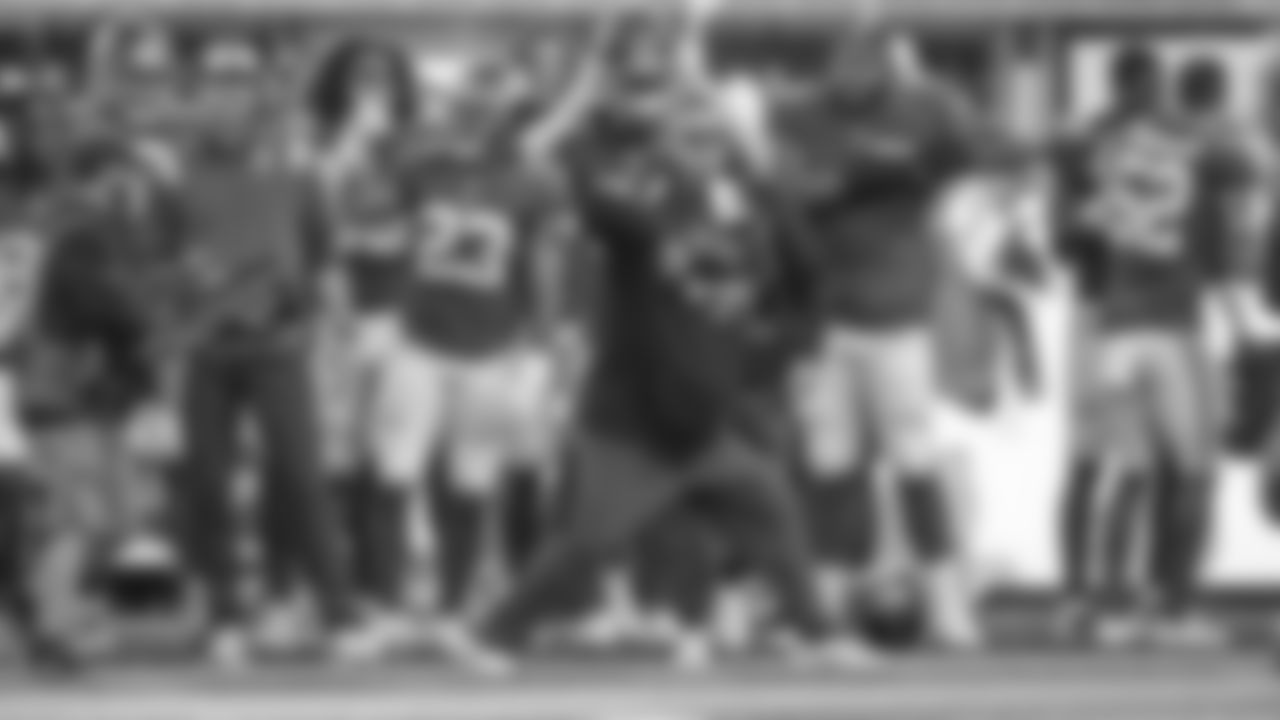

New York Giants linebacker Jihad Ward (55) and safety Julian Love (20) dump Gatorade on New York Giants head coach Brian Daboll during a NFL football game against the against the Indianapolis Colts, Sunday January 1, 2023 in East Rutherford, NJ (Evan Pinkus\New York Giants )

Brian Daboll Head Coach
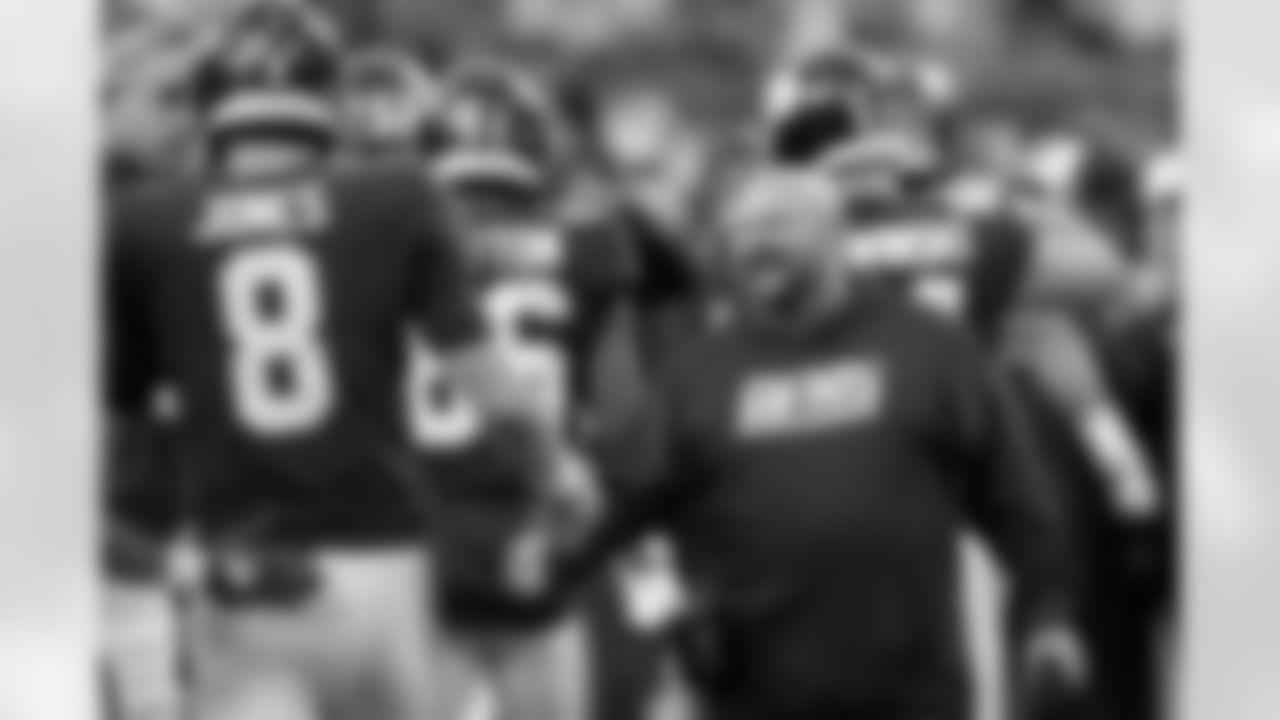
Brian Daboll Head Coach, Daniel Jones (8)

Brian Daboll Head Coach

New York Giants head coach Brian Daboll in the locker room following a week 1 football game against the Tennessee Titans on Sunday September 11, 2022 in Nashville, Tennesse (Evan Pinkus/NY Giants)
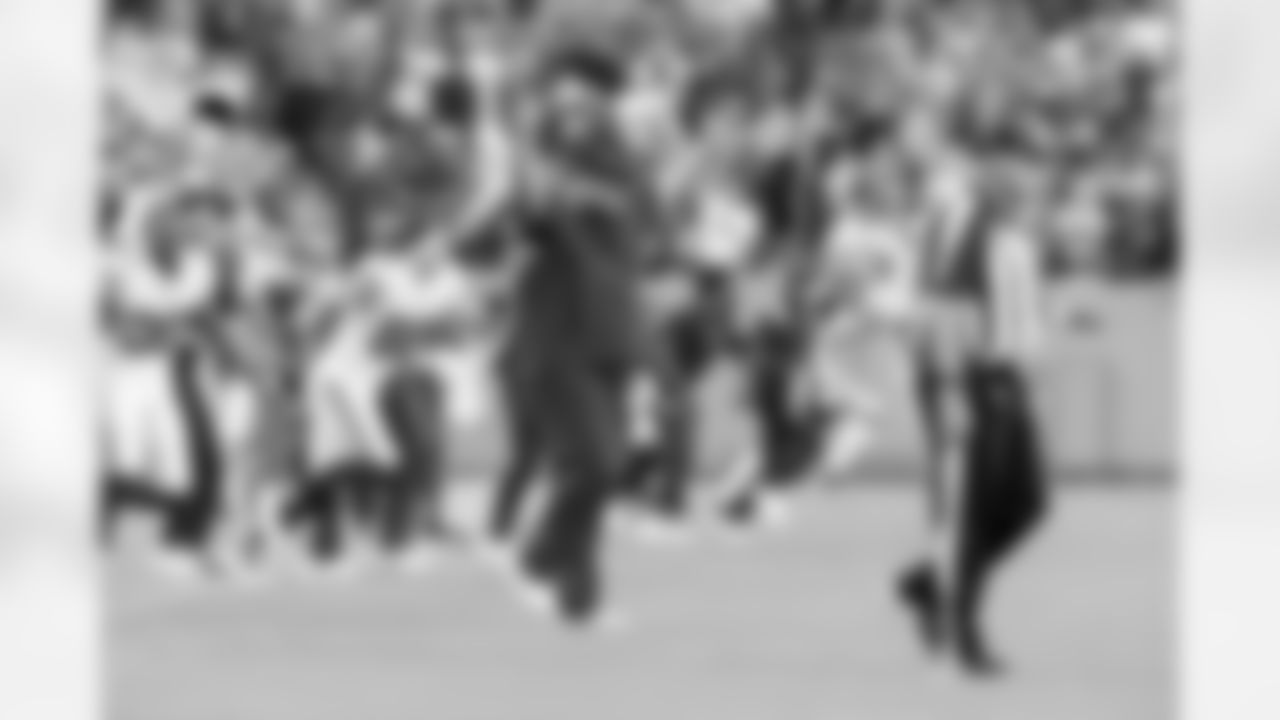
Head Coach Brian Daboll

New York Giants head coach Brian Daboll following week 1 football game against the Tennessee Titans on Sunday September 11, 2022 in Nashville, Tennesse (Evan Pinkus/NY Giants)

New York Giants head coach Brian Daboll talks with quarterback Daniel Jones (8)during a football game against the Chicago Bears on Sunday October 2, 2022 in East Rutherford, New Jersey (Evan Pinkus/NY Giants)

Brian Daboll Head Coach
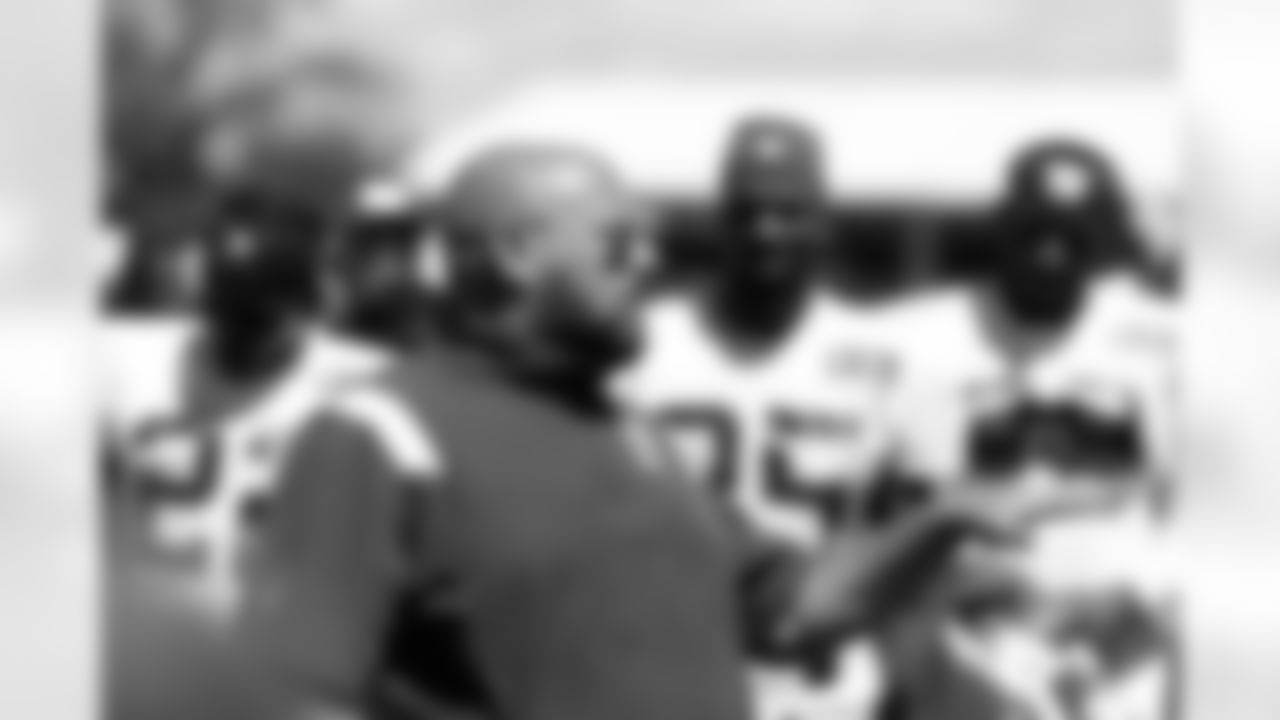
Brian Daboll Head Coach

New York Giants head coach Brian Daboll during training camp Fan Fest practice at MetLife Stadium on Friday August 5, 2022 in East Rutherford, New Jersey

Brian Daboll

Head Coach Brian Daboll

New York Giants head coach Brian Daboll talks with quarterback Daniel Jones (8) during a pre-season football game against the Cincinnati Bengals on Sunday August 21, 2022 in East Rutherford, New Jersey (Evan Pinkus/NY Giants)
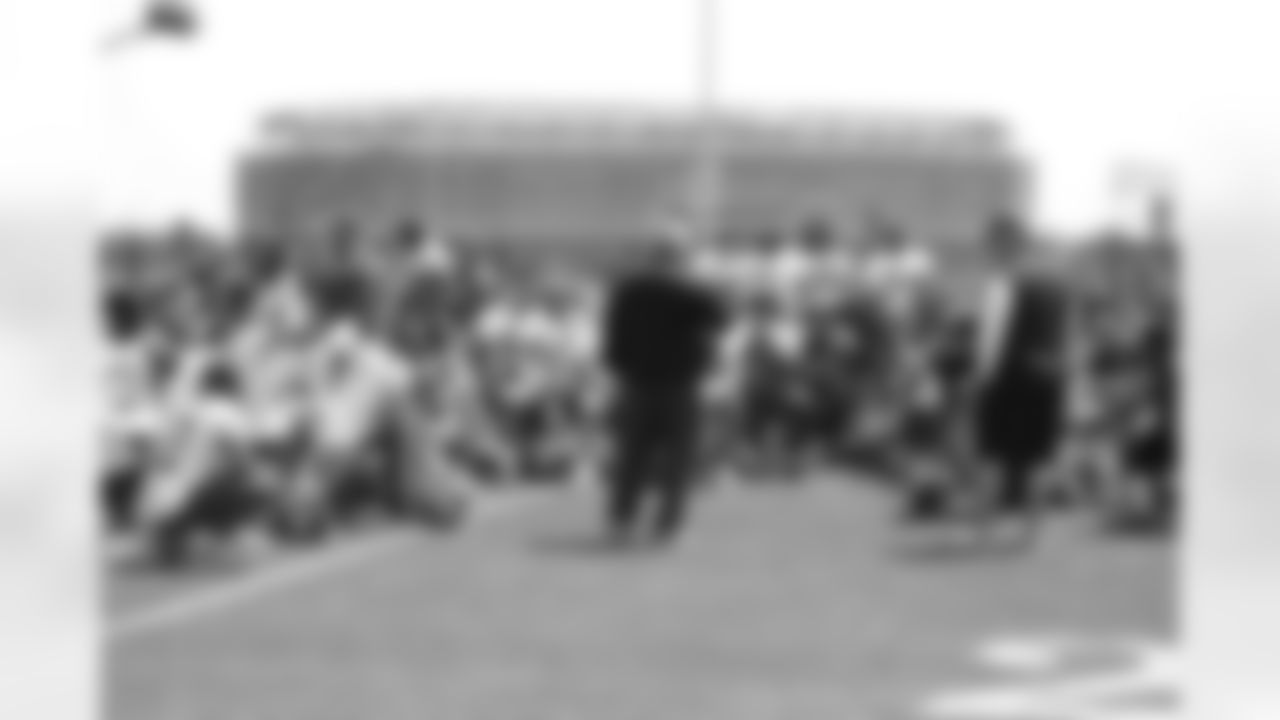
New York Giants head coach Brian Daboll talks to his team following an organized team activity practice at Quest Diagnostics Training Center on Thursday May 26, 2022 in East Rutherford, New Jersey

Brian Daboll Head Coach

Head Coach Brian Daboll, Eli Manning,
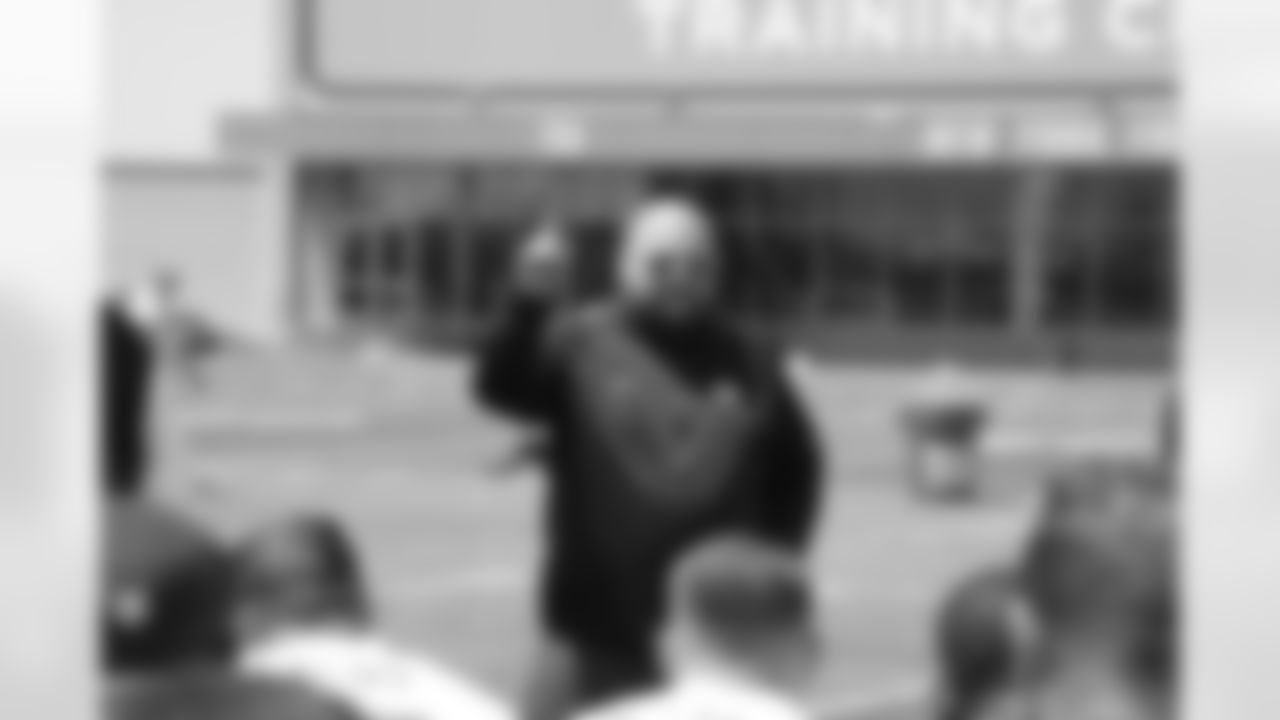
New York Giants head coach Brian Daboll talks to his team following an organized team activity practice at Quest Diagnostics Training Center on Thursday May 26, 2022 in East Rutherford, New Jersey

Brian Daboll Head Coach, Laura Young Director of Coaching Operations
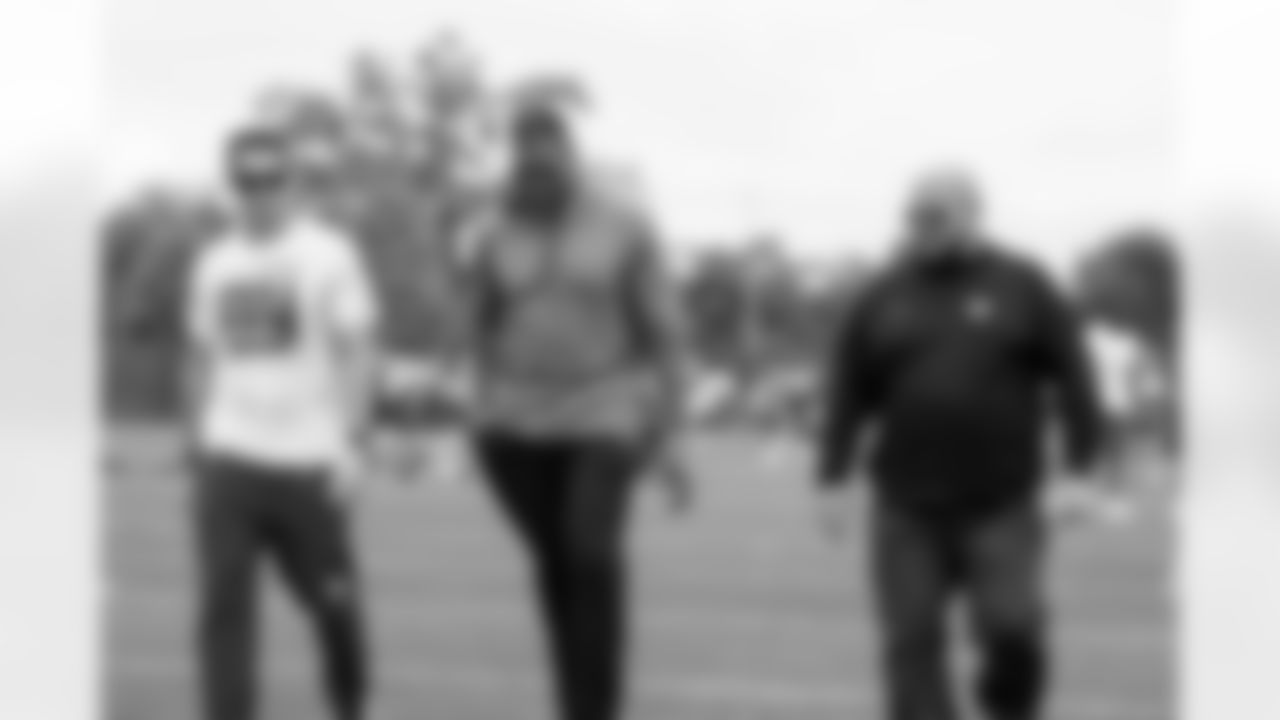
Joe Schoen Senior Vice President and General Manager, Michael Strahan, Brian Daboll Head Coach


Head Coach Brian Daboll & General Manager Joe Schoen
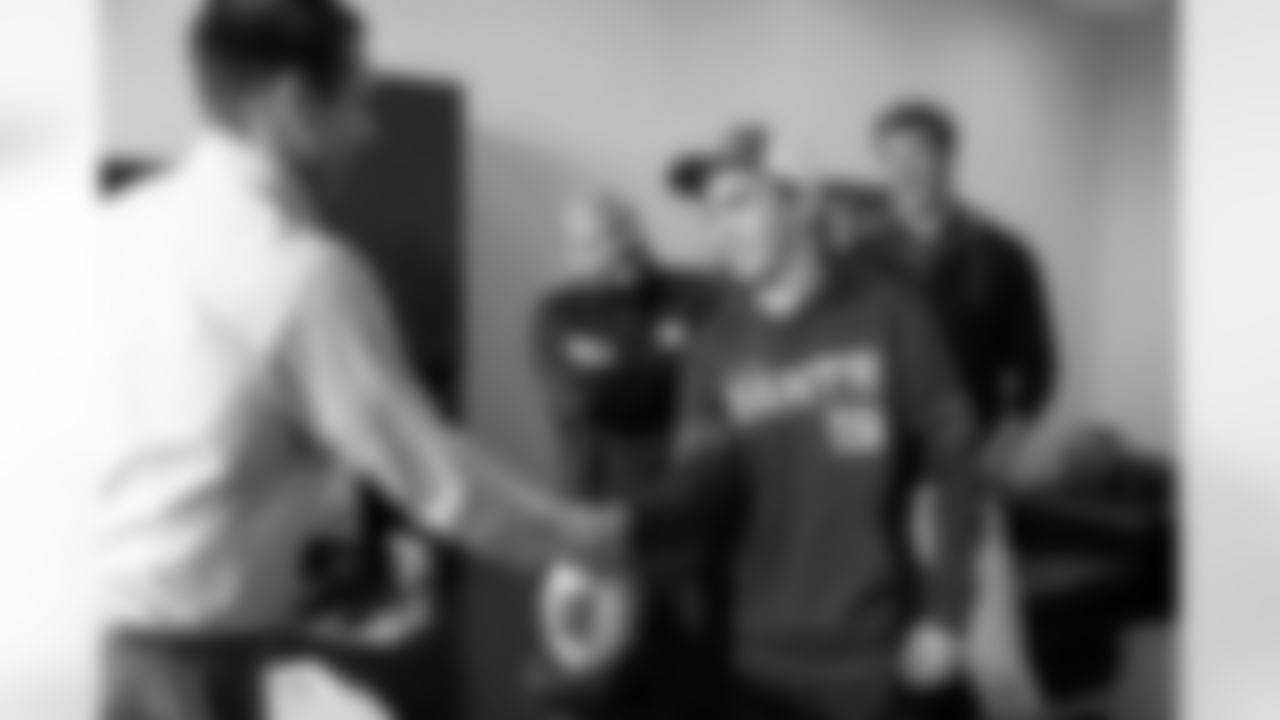
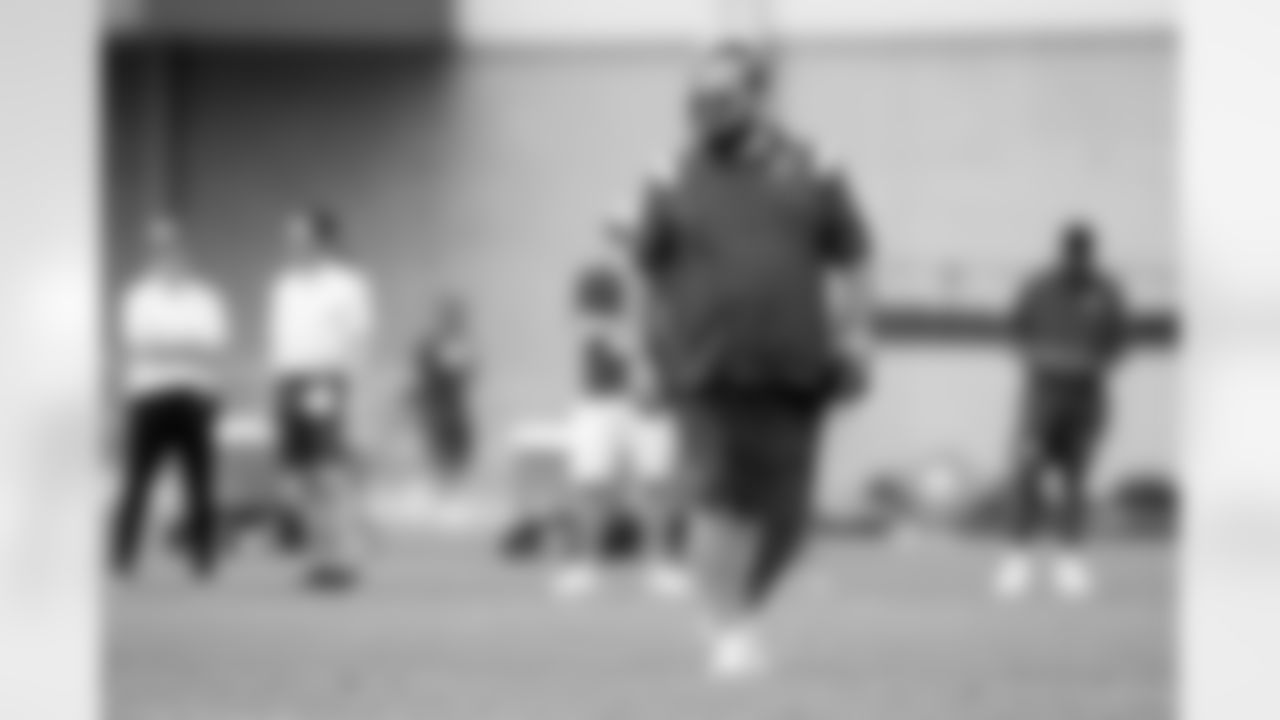
Brian Daboll Head Coach

Head Coach Brian Daboll

Brian Daboll Head Coach, WR David Sills V (84)

Head Coach Brian Daboll
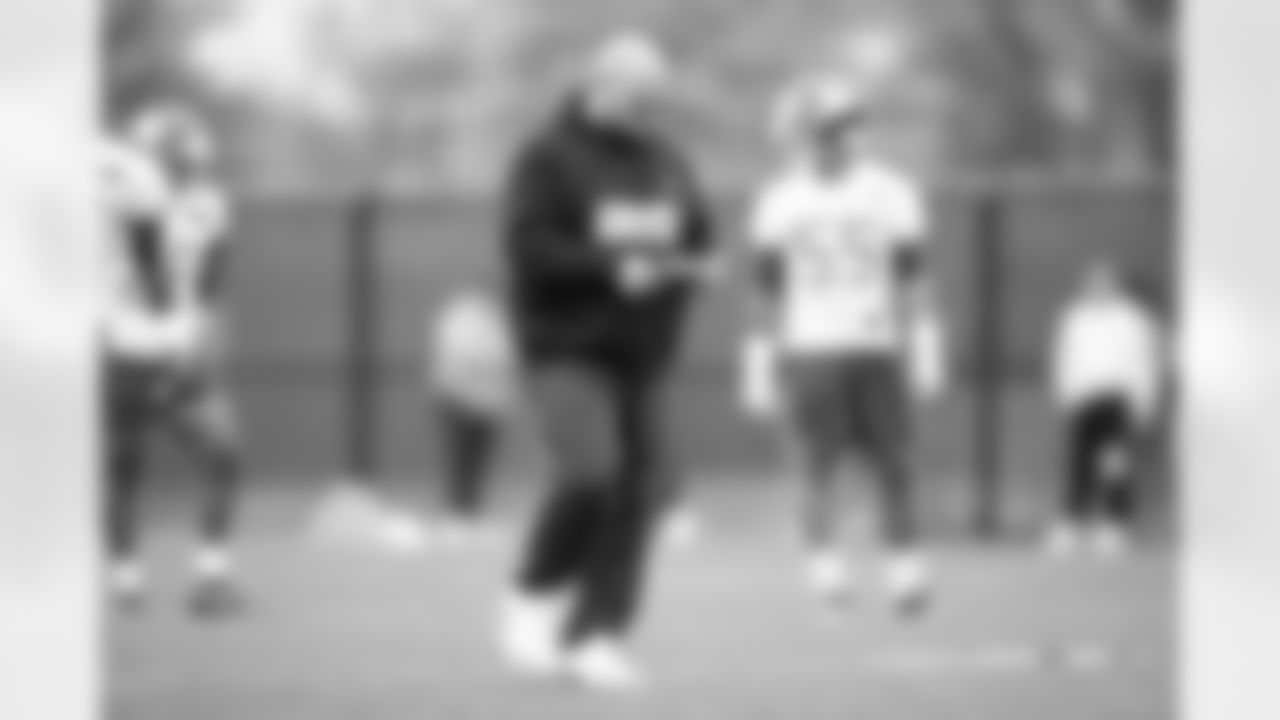
Head Coach Brian Daboll

Head Coach Brian Daboll addresses the media at the 2022 NFL Combine in Indianapolis, Indiana

General Manager Joe Schoen & Head Coach Brian Daboll
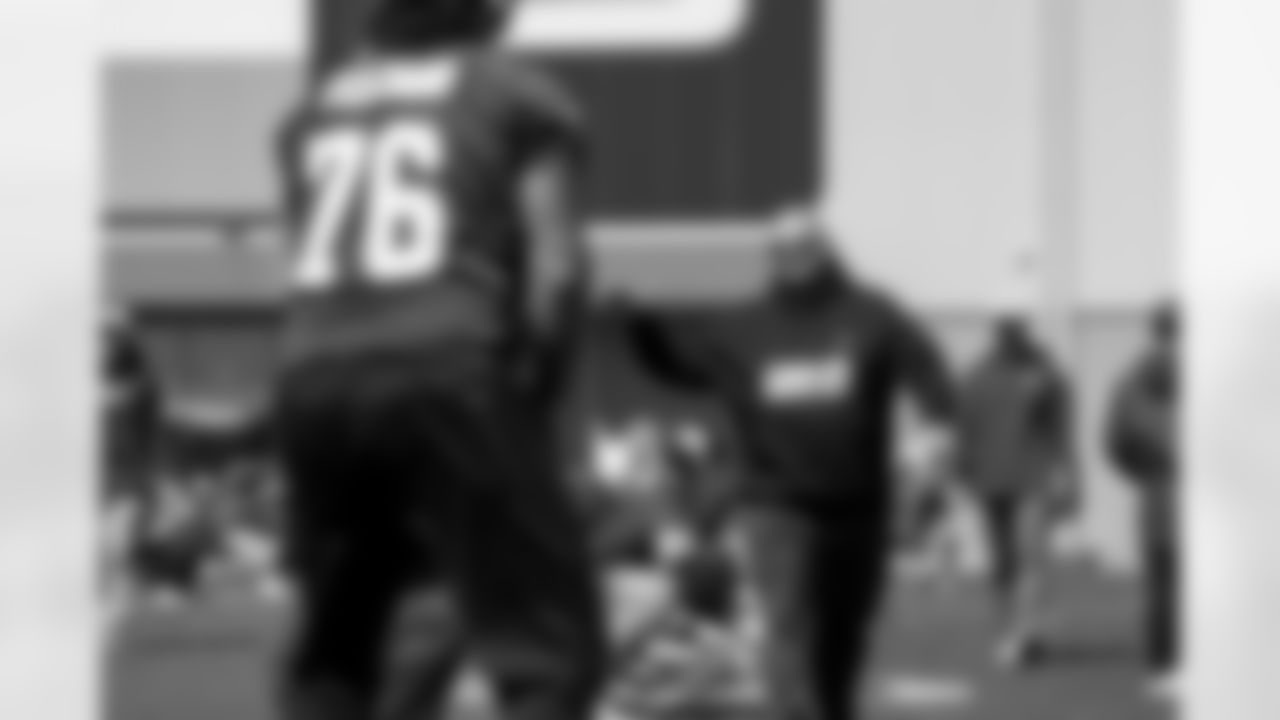
Head Coach Brian Daboll
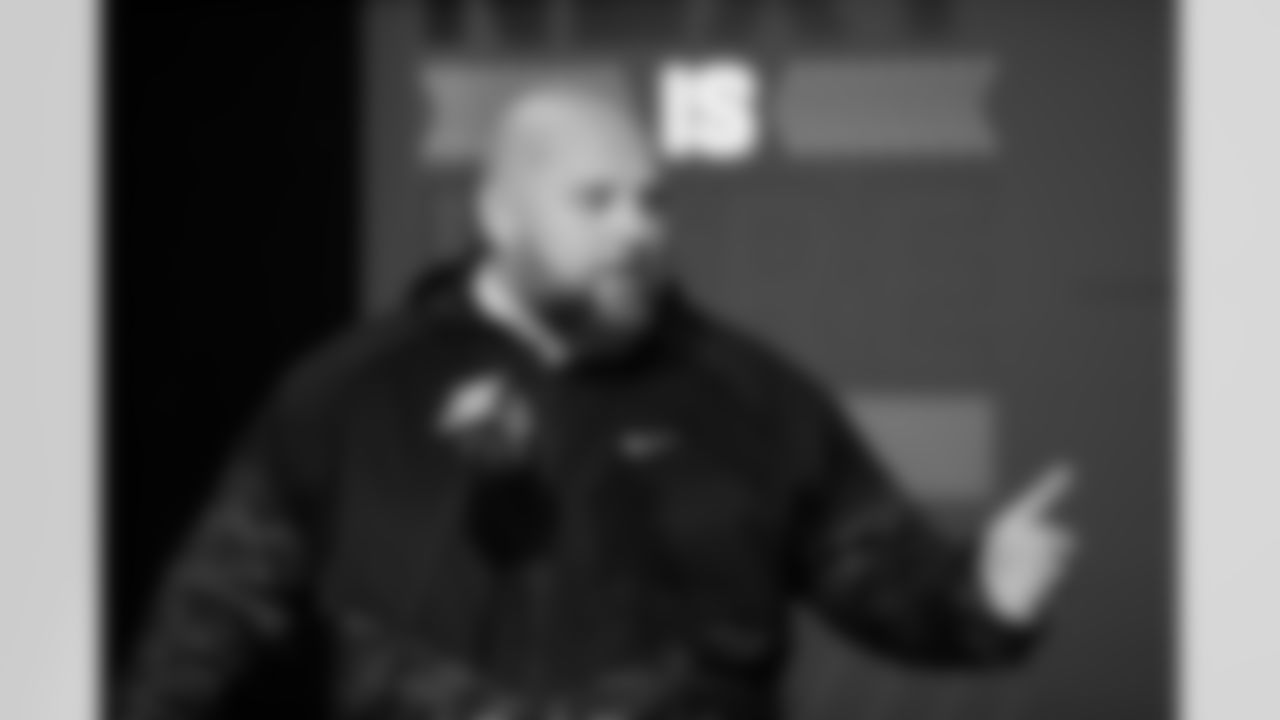
Head Coach Brian Daboll addresses the media at the 2022 NFL Combine in Indianapolis, Indiana

Head Coach Brian Daboll
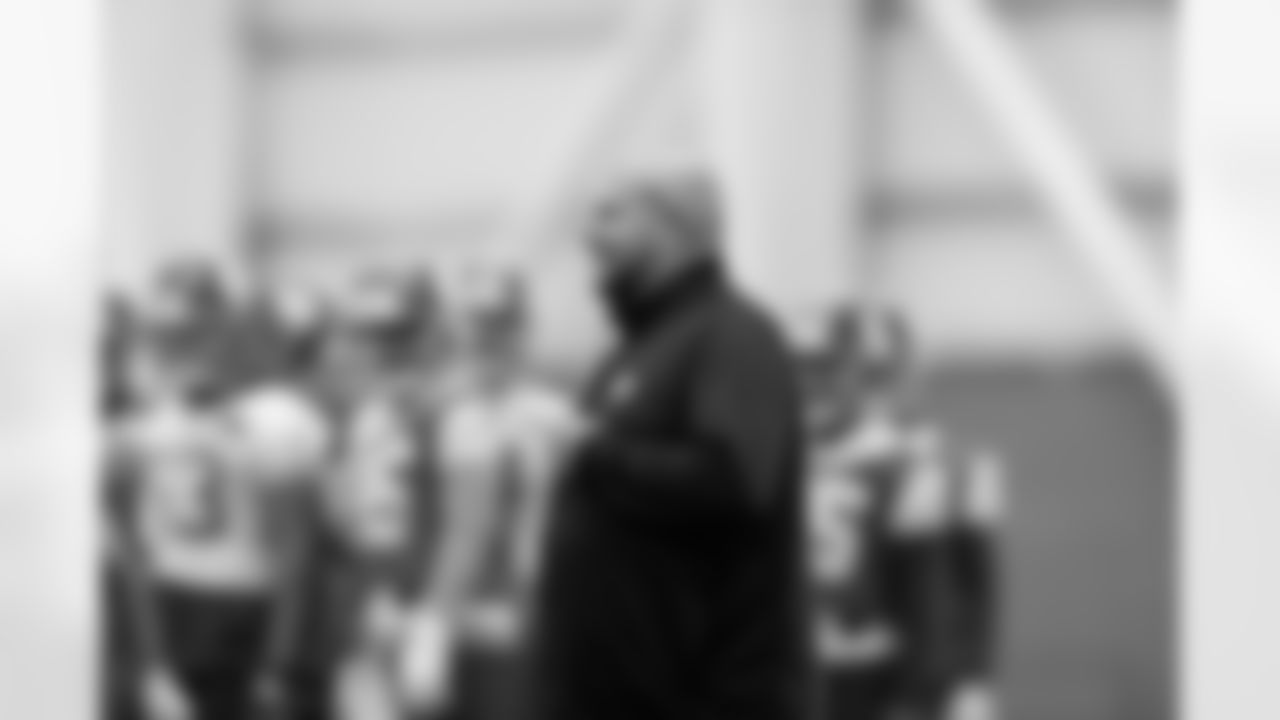
Head Coach Brian Daboll
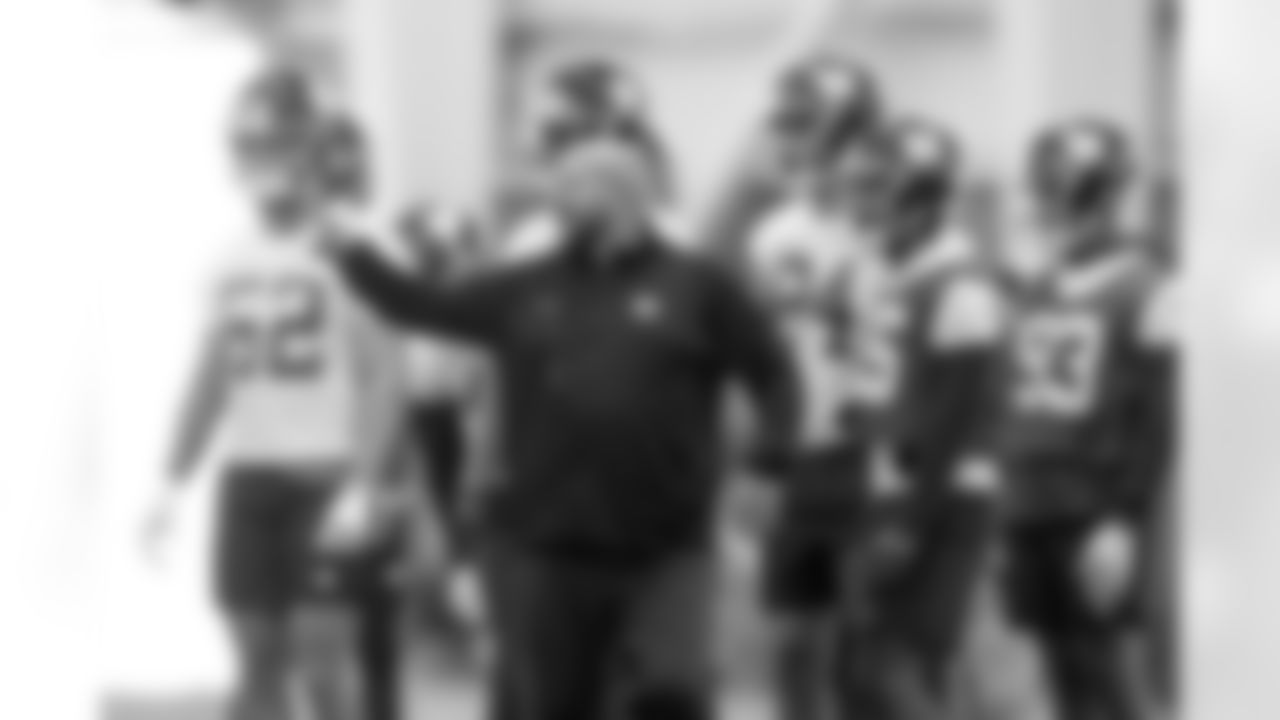
Head Coach Brian Daboll

Head Coach Brian Daboll addresses the media at the 2022 NFL Combine in Indianapolis, Indiana

Head Coach Brian Daboll addresses the media at the 2022 NFL Combine in Indianapolis, Indiana

Joe Schoen Senior Vice President and General Manager, Sam Prince, Brian Daboll Head Coach


Brian Daboll Head Coach

Head Coach Brian Daboll
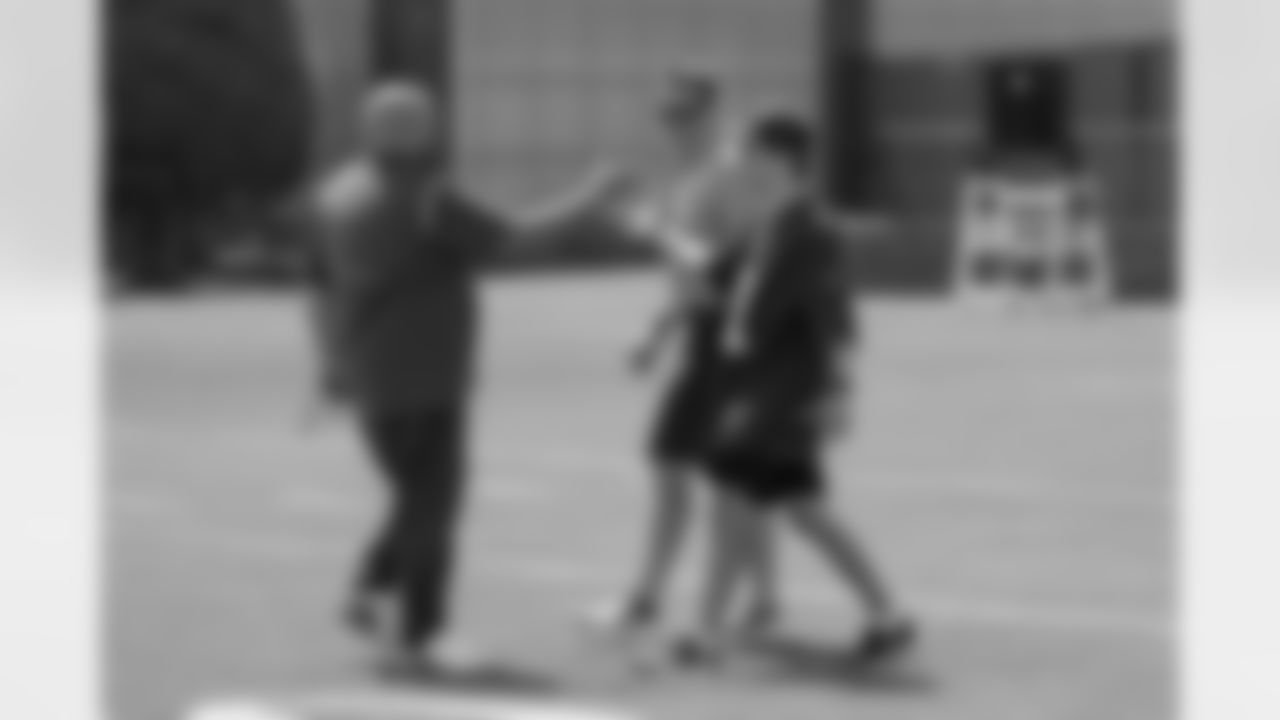
Brian Daboll Head Coach, Joe Schoen Senior Vice President and General Manager, Sam Prince

Tyrod Taylor (2), Brian Daboll

Head Coach Brian Daboll

Tyrod Taylor (2), Brian Daboll

Brian Daboll Head Coach

Brian Daboll Head Coach, Amani Toomer
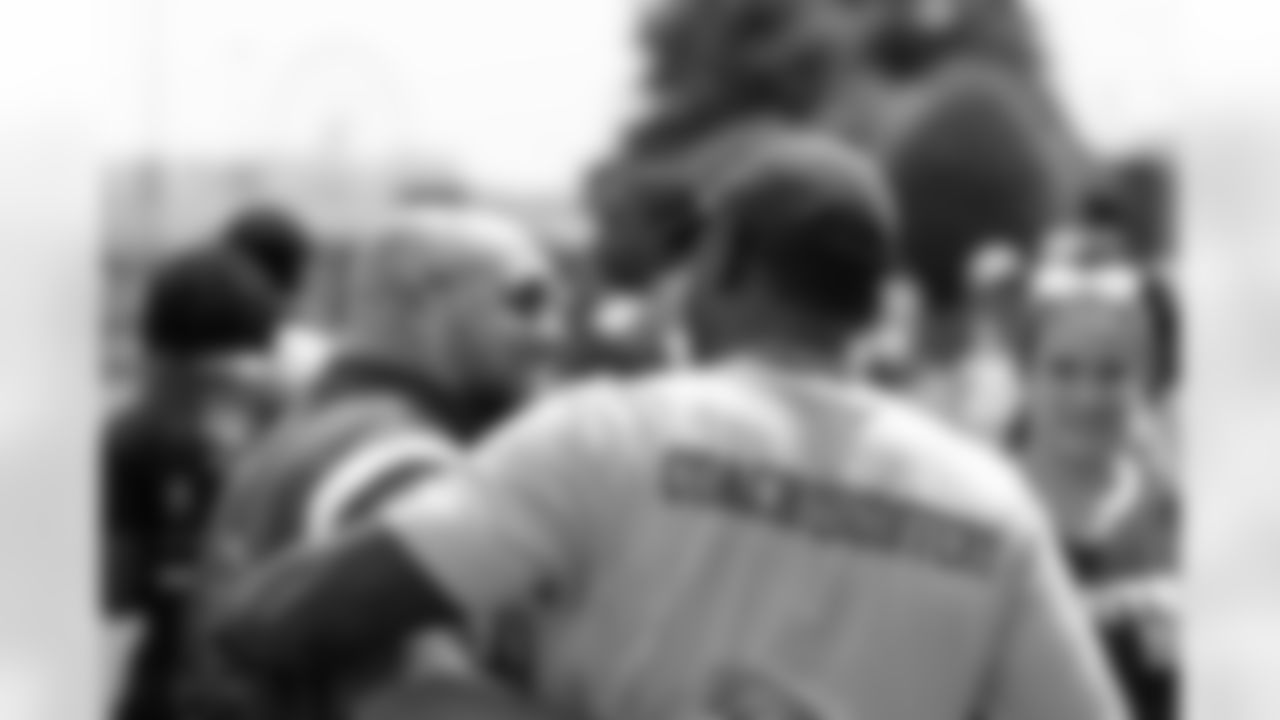
Brian Daboll Head Coach

Brian Daboll Head Coach

Brian Daboll Head Coach, Amani Toomer

Brian Daboll Head Coach

Head Coach Brian Daboll

Head Coach Brian Daboll

General Manager Joe Schoen, OT Evan Neal, Edge Kayvon Thibodeaux, Head Coach Brian Daboll
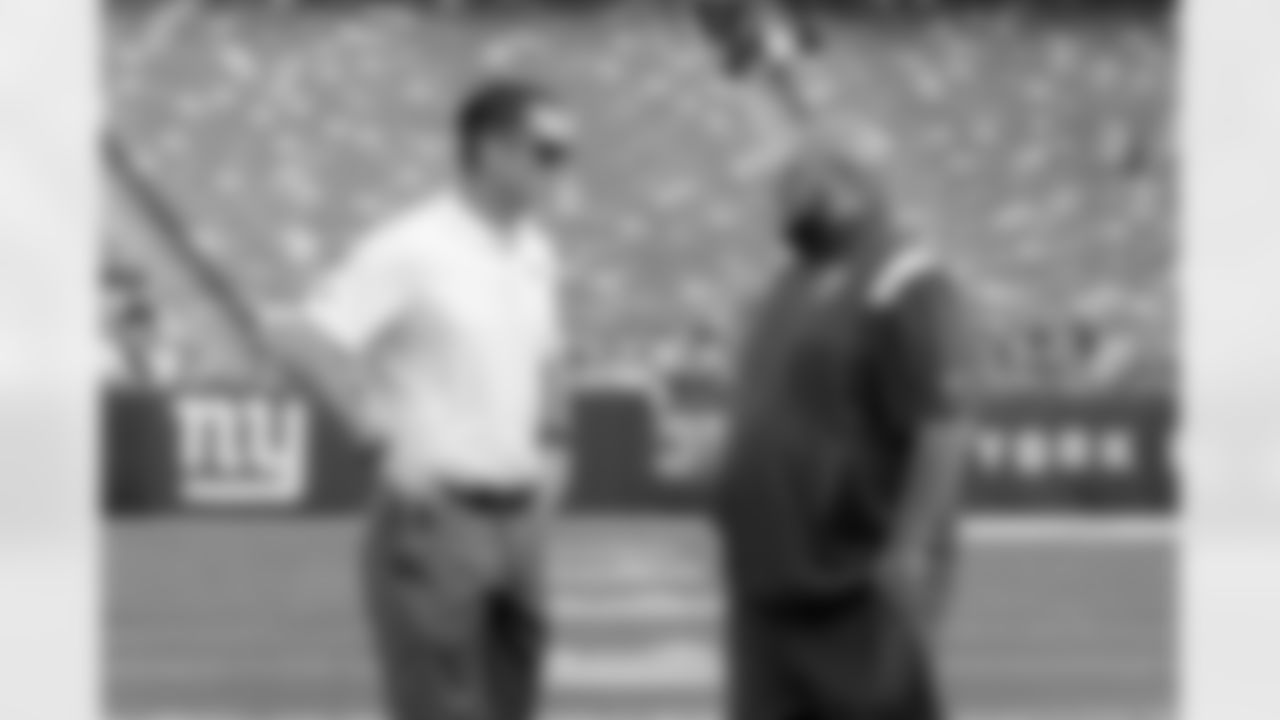
Joe Schoen Senior Vice President and General Manager, Brian Daboll Head Coach

New York Giants head coach Brian Daboll during a pre-season football game against the Cincinnati Bengals on Sunday August 21, 2022 in East Rutherford, New Jersey (Evan Pinkus/NY Giants)

Brian Daboll Head Coach
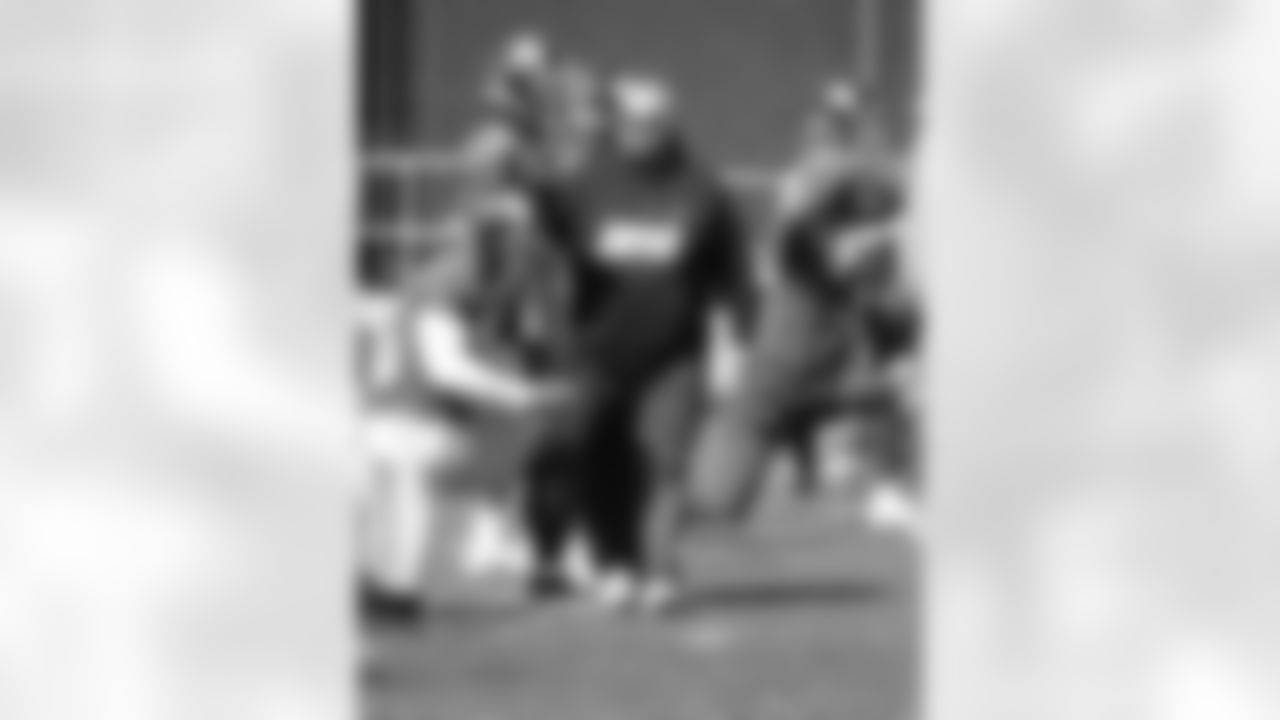
Brian Daboll before minicamp practice at Quest Diagnostics Training Center on Tuesday April 20, 2022 in East Rutherford, New Jersey
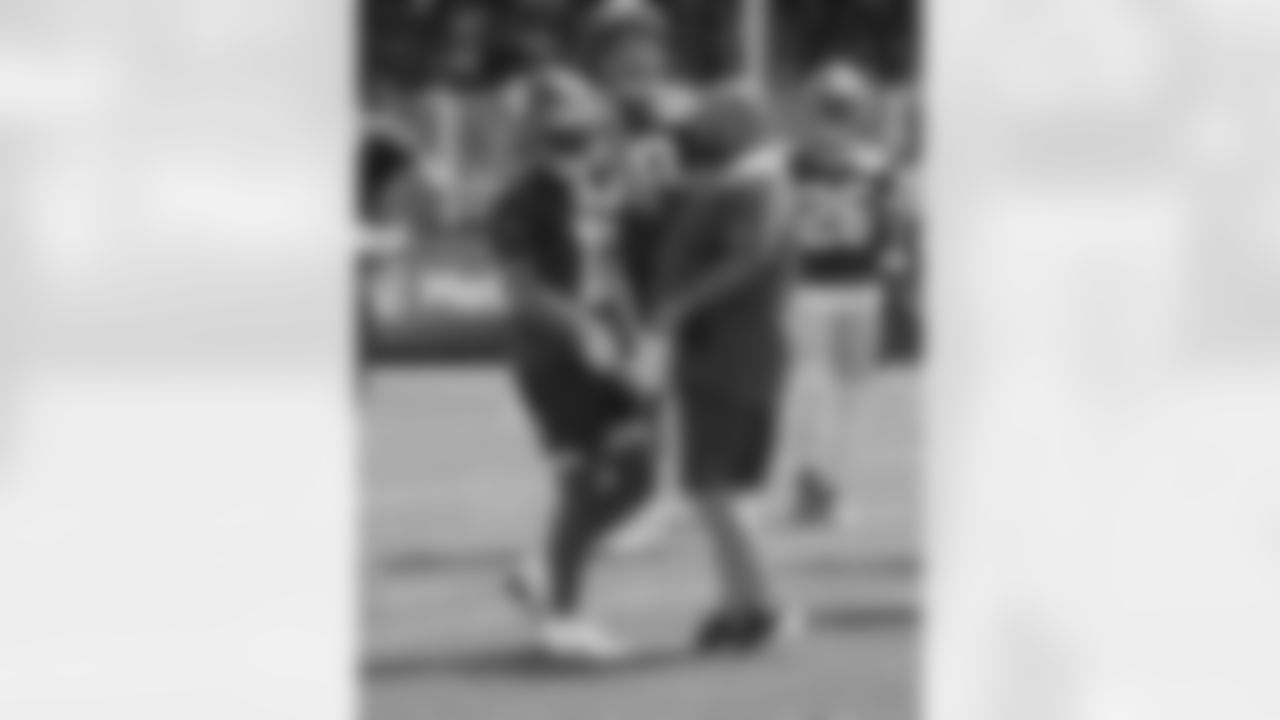
New York Giants head coach Brian Daboll talks with Wan'Dale Robinson during training camp practice at Quest Diagnostics Training Center on Wednesday July 27, 2022 in East Rutherford, New Jersey

New York Giants head coach Brian Daboll during organized team activity at Quest Diagnostics Training Center on Tuesday May 24, 2022 in East Rutherford, New Jersey
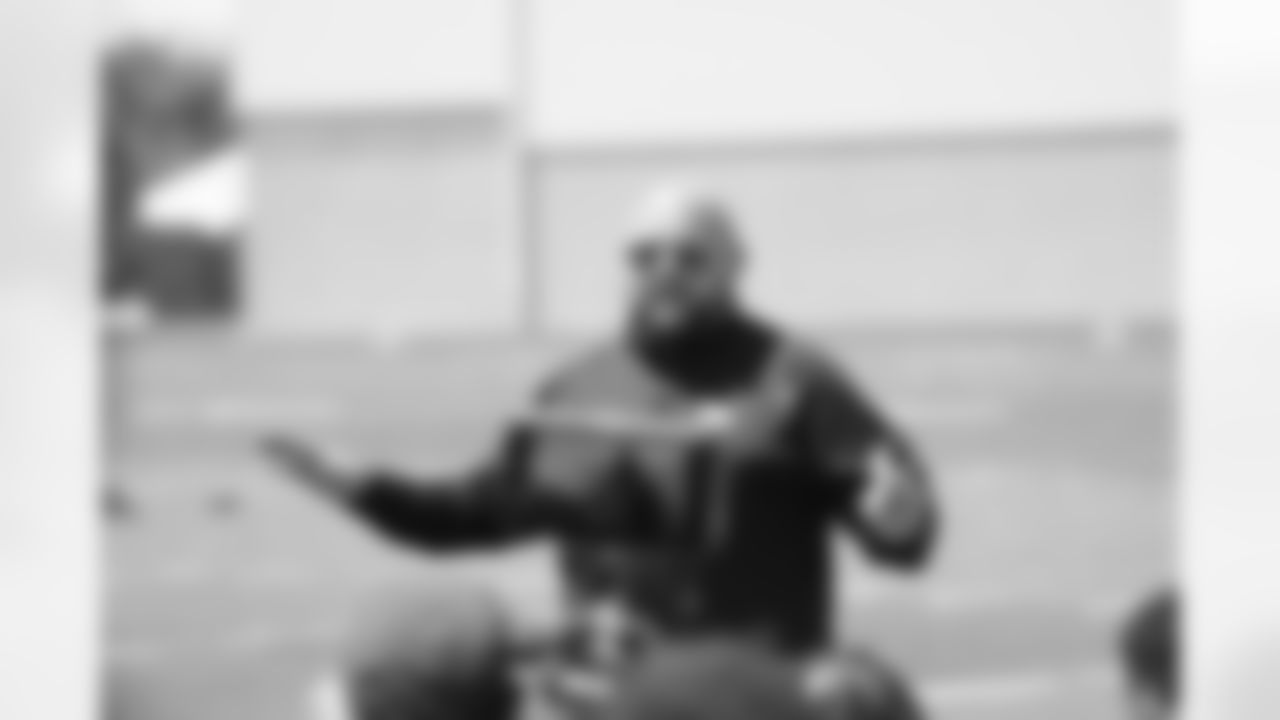
New York Giants head coach Brian Daboll talks to his team following an organized team activity practice at Quest Diagnostics Training Center on Thursday May 26, 2022 in East Rutherford, New Jersey

New York Giants head coach Brian Daboll during training camp practice at Quest Diagnostics Training Center on Wednesday July 27, 2022 in East Rutherford, New Jersey

New York Giants head coach Brian Daboll during a pre-season football game against the Cincinnati Bengals on Sunday August 21, 2022 in East Rutherford, New Jersey (Evan Pinkus/NY Giants)
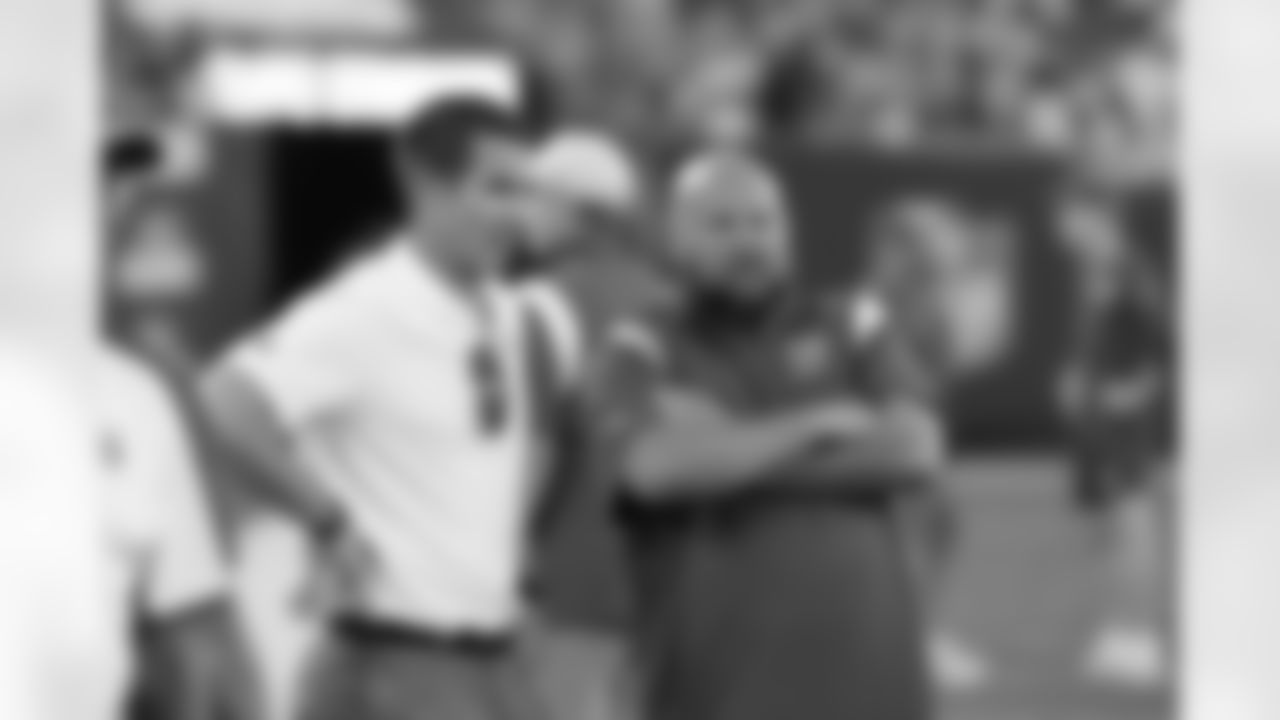
New York Giants head coach Brian Daboll talks with general manager Joe Schoen during training camp Fan Fest practice at MetLife Stadium on Friday August 5, 2022 in East Rutherford, New Jersey
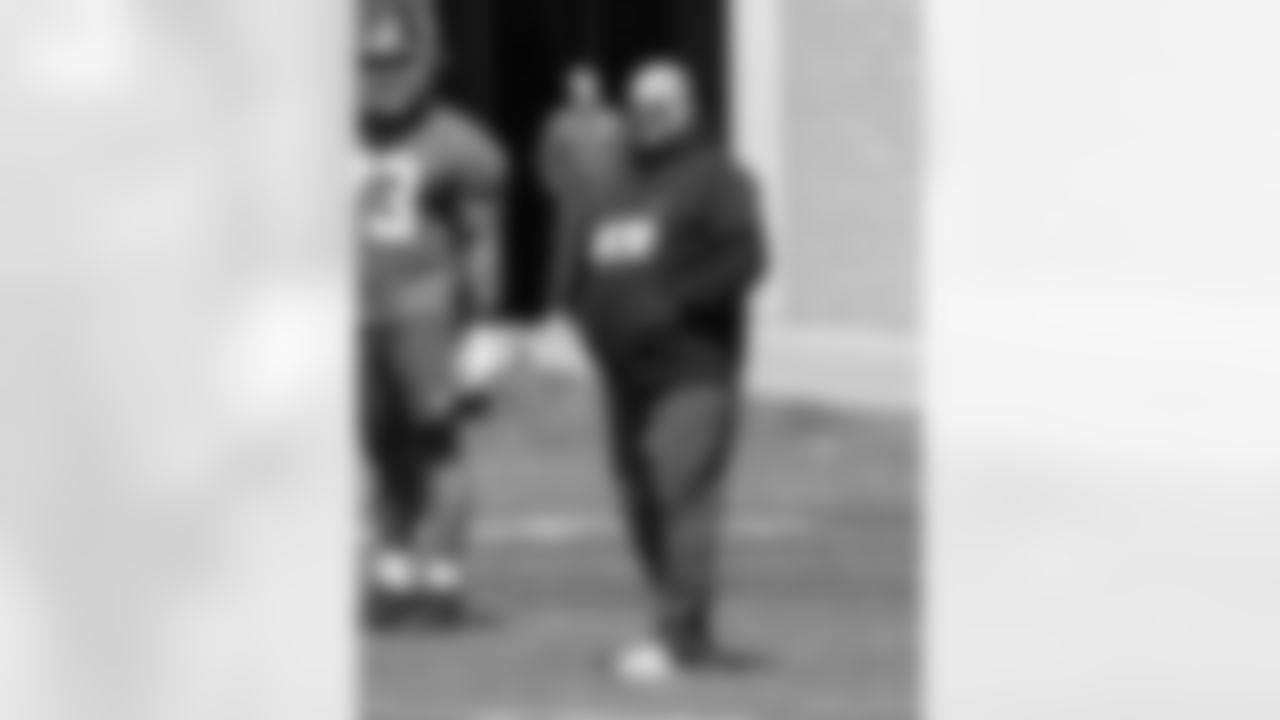
Brian Daboll during minicamp practice at Quest Diagnostics Training Center on Tuesday April 20, 2022 in East Rutherford, New Jersey
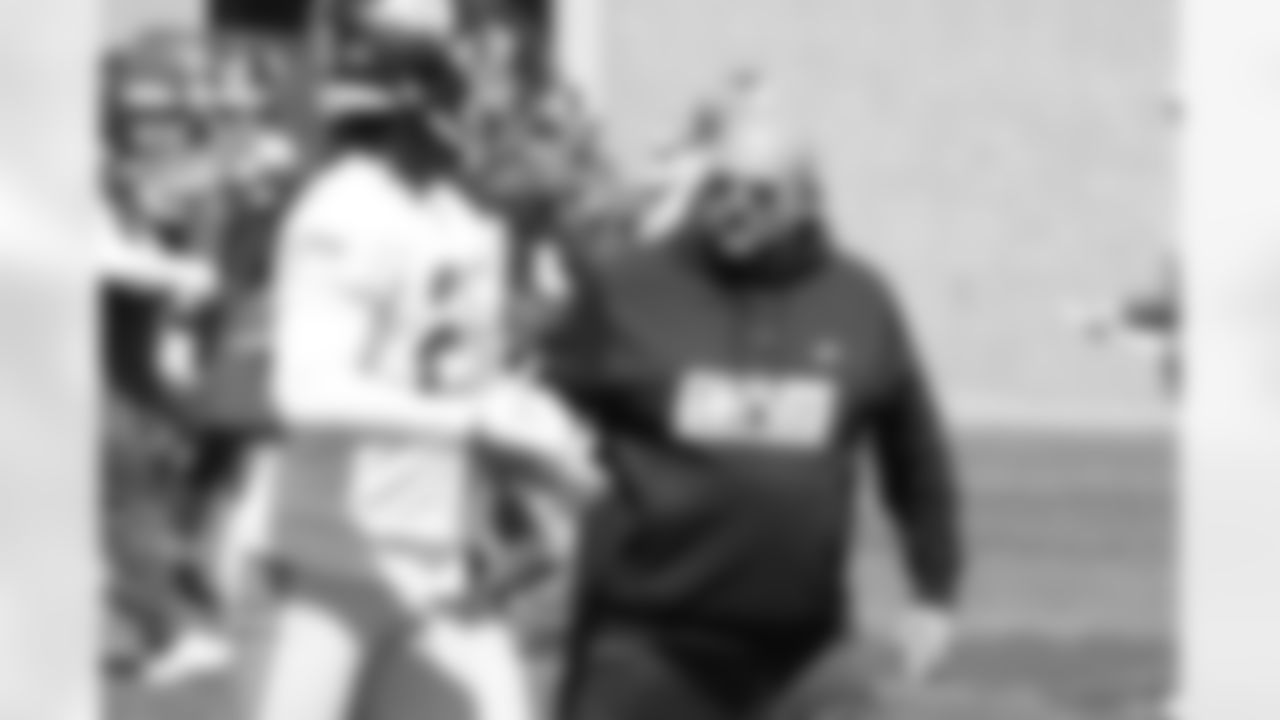
Brian Daboll before minicamp practice at Quest Diagnostics Training Center on Tuesday April 20, 2022 in East Rutherford, New Jersey
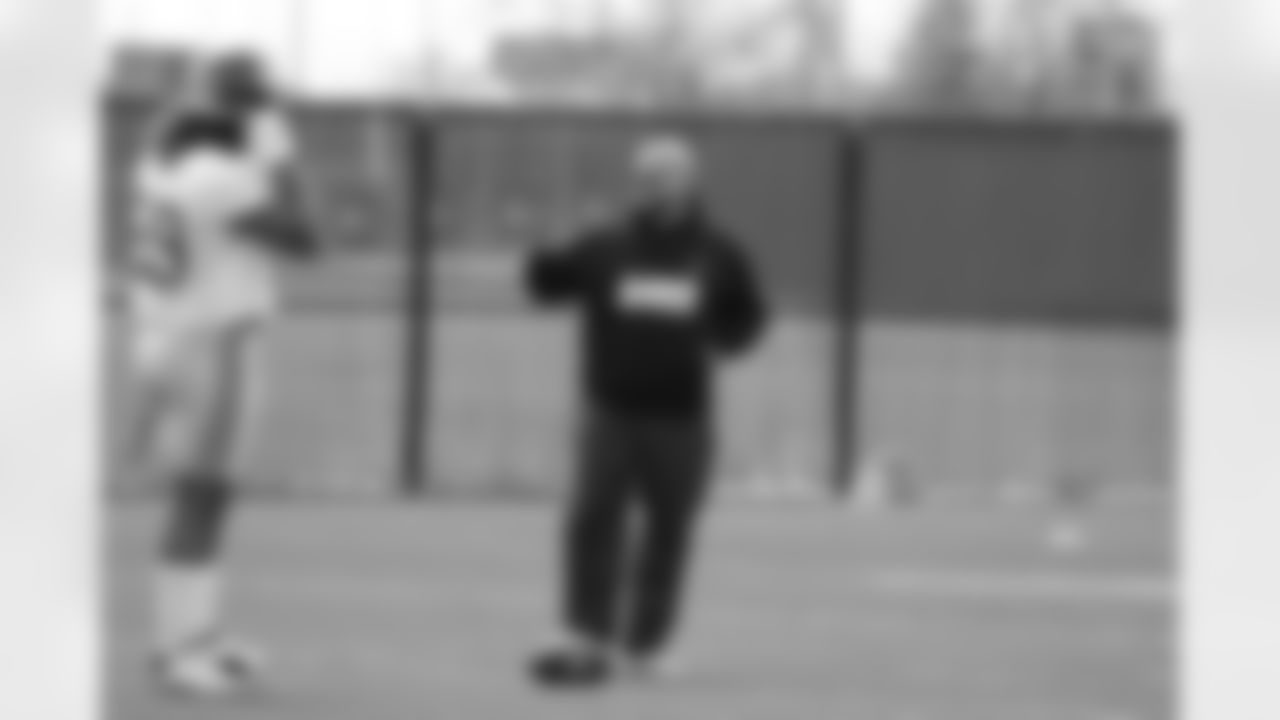
Head Coach Brian Daboll during minicamp practice at Quest Diagnostics Training Center on Tuesday April 21, 2022 in East Rutherford, New Jersey
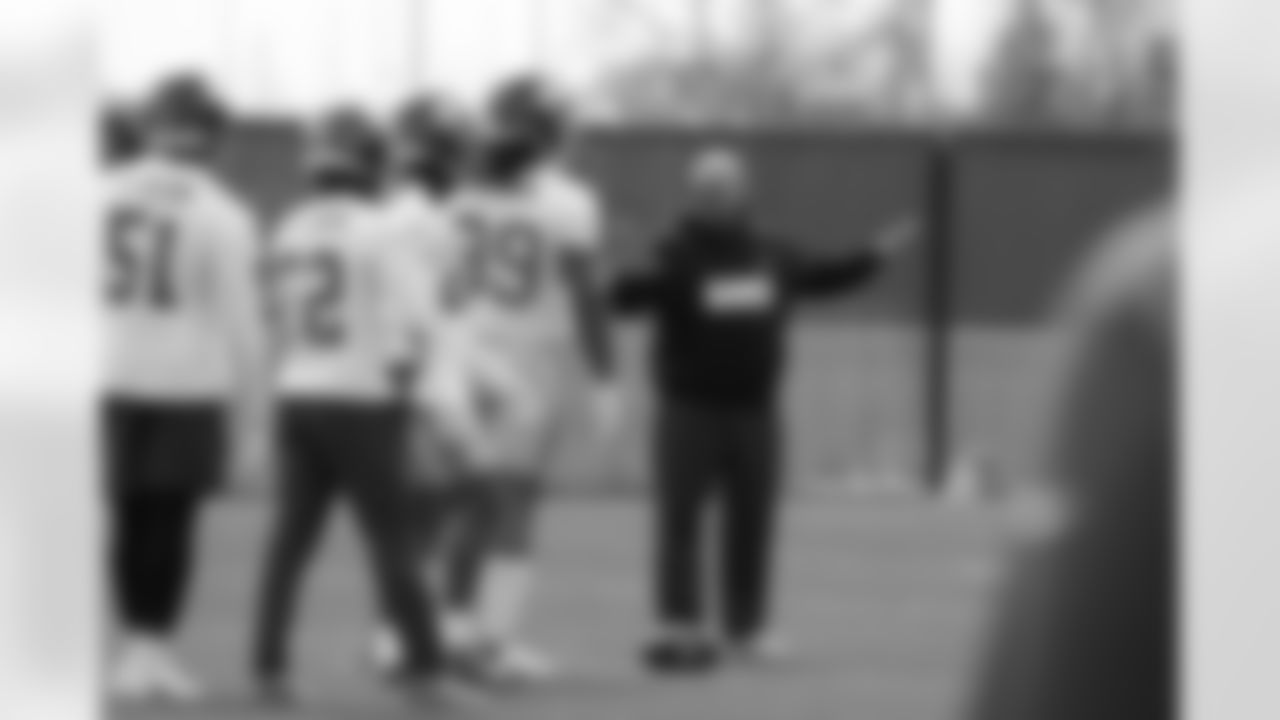
Head Coach Brian Daboll during minicamp practice at Quest Diagnostics Training Center on Tuesday April 21, 2022 in East Rutherford, New Jersey
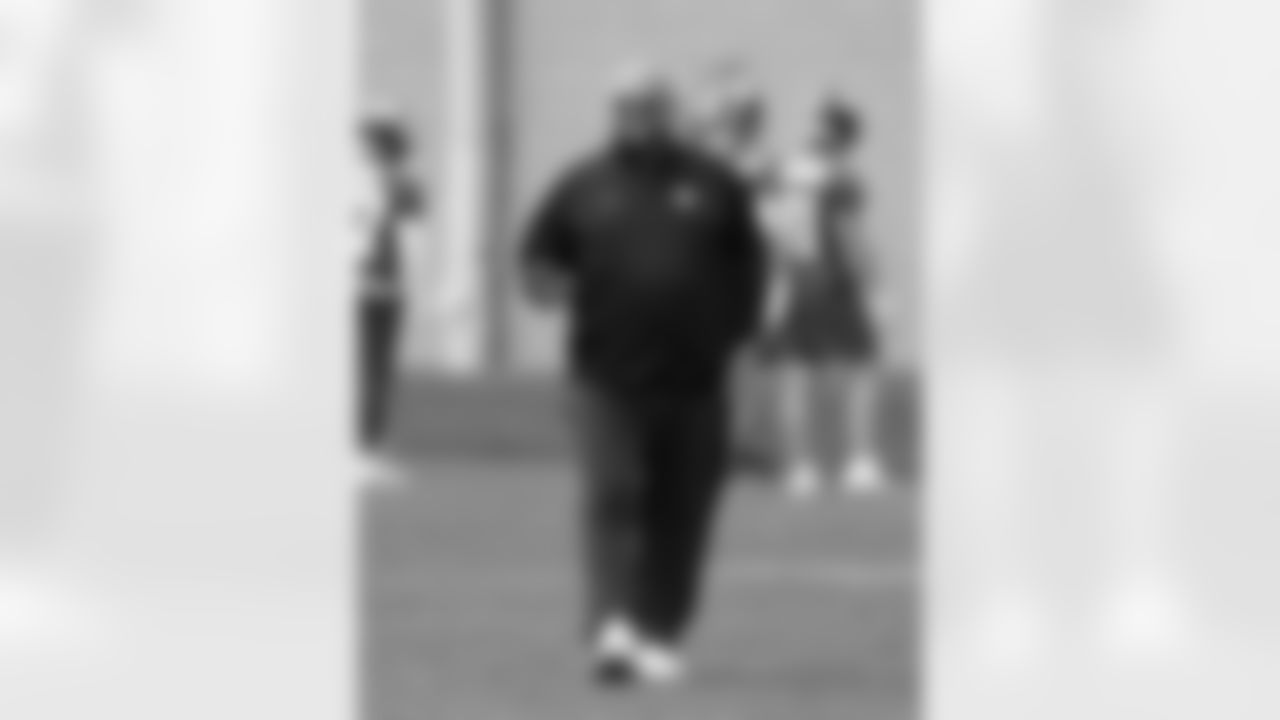
New York Giants head coach Brian Daboll during organized team activity at Quest Diagnostics Training Center on Tuesday May 24, 2022 in East Rutherford, New Jersey
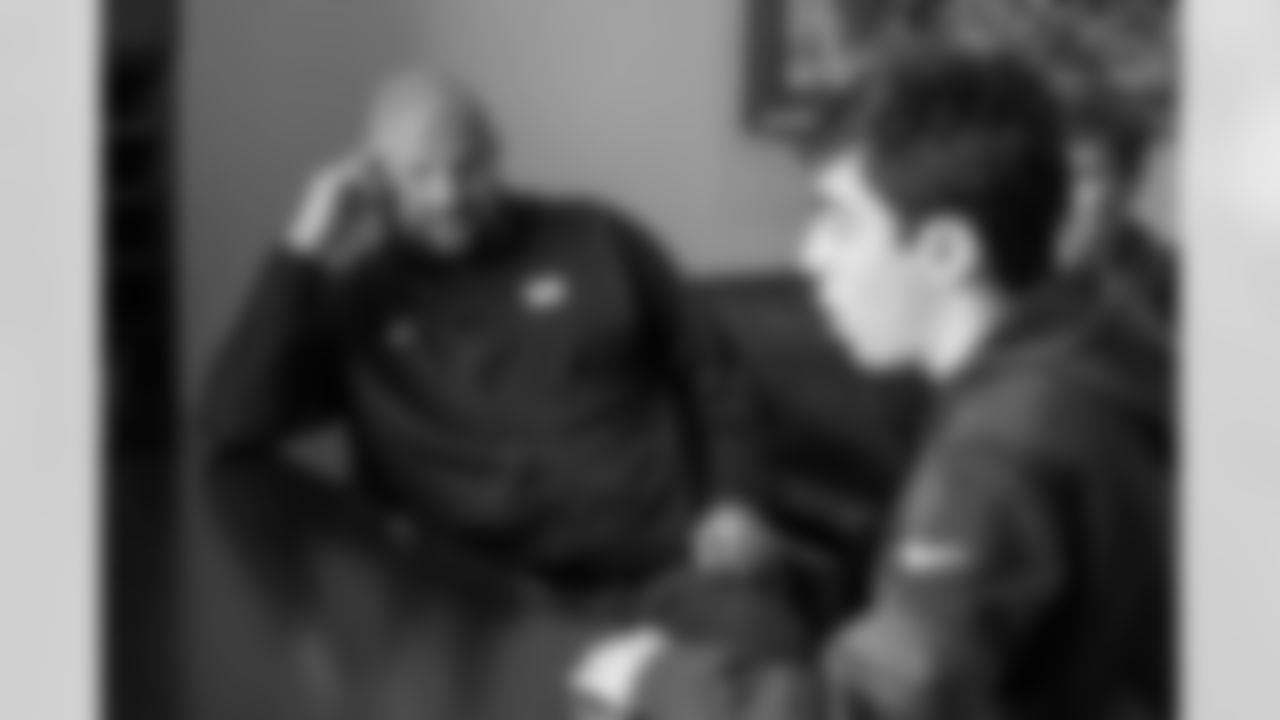
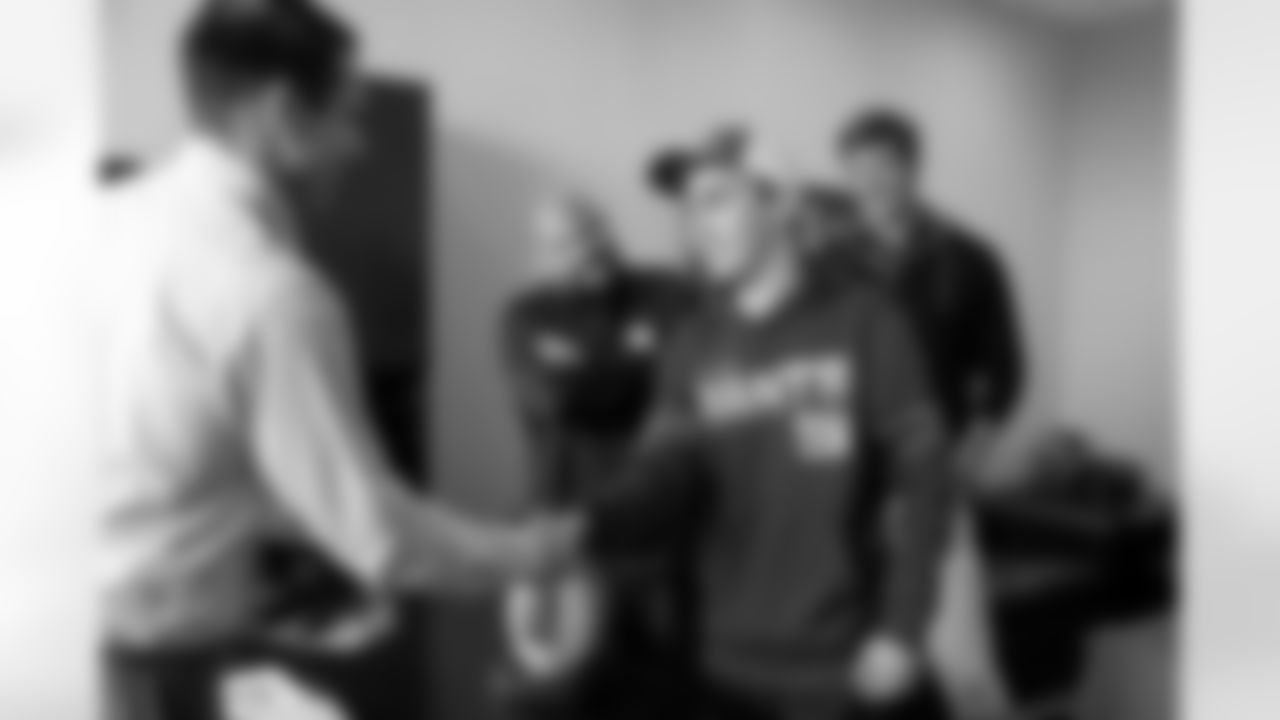
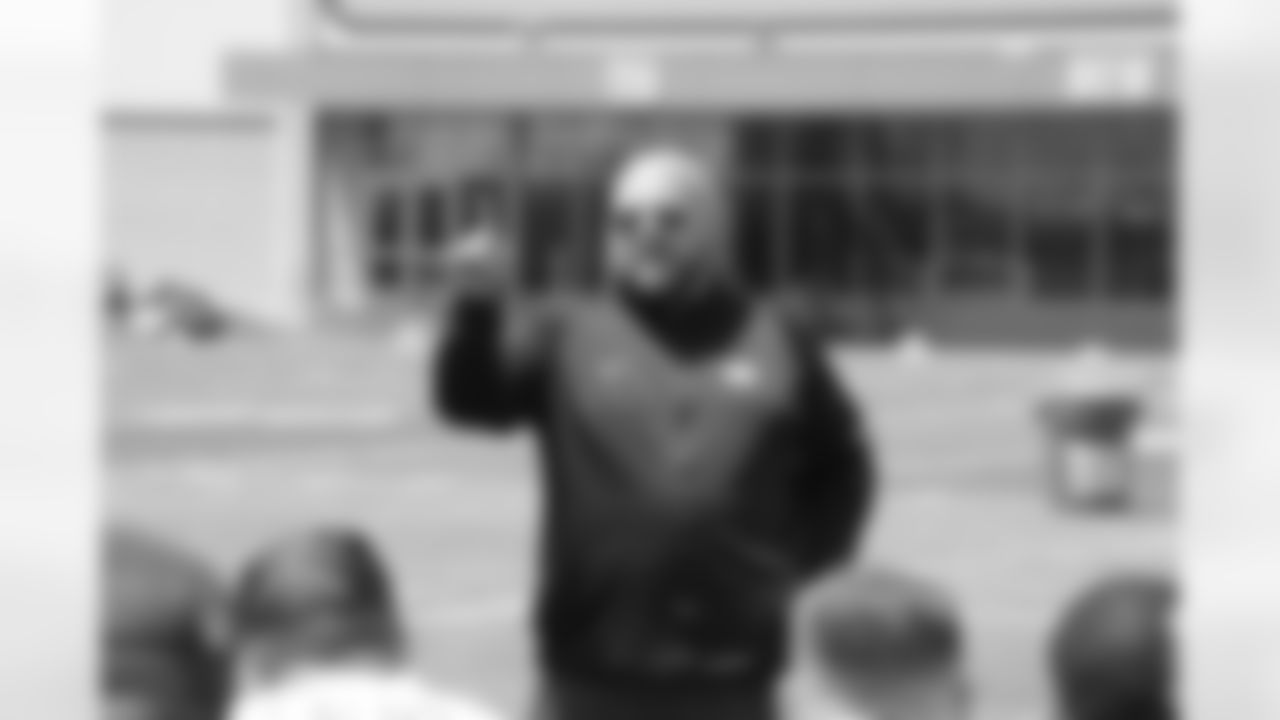
New York Giants head coach Brian Daboll talks to his team following an organized team activity practice at Quest Diagnostics Training Center on Thursday May 26, 2022 in East Rutherford, New Jersey

New York Giants head coach Brian Daboll during organized team activity at Quest Diagnostics Training Center on Tuesday May 24, 2022 in East Rutherford, New Jersey

Brian Daboll Head Coach, Amani Toomer

New York Giants head coach Brian Daboll talks with quarterback Daniel Jones (8) during a pre-season football game against the Cincinnati Bengals on Sunday August 21, 2022 in East Rutherford, New Jersey (Evan Pinkus/NY Giants)

New York Giants head coach Brian Daboll talks to his team following an organized team activity practice at Quest Diagnostics Training Center on Thursday May 26, 2022 in East Rutherford, New Jersey

New York Giants head coach Brian Daboll talks with quarterback Daniel Jones (8) during a pre-season football game against the Cincinnati Bengals on Sunday August 21, 2022 in East Rutherford, New Jersey (Evan Pinkus/NY Giants)
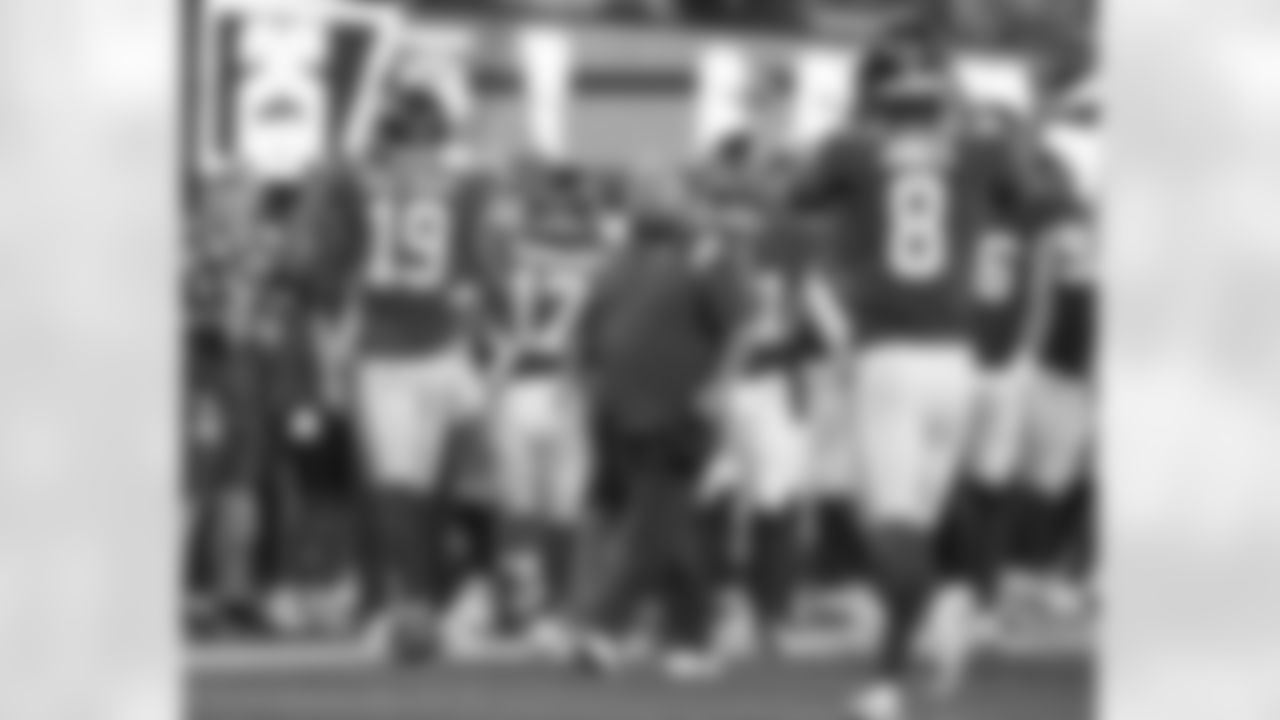
New York Giants head coach Brian Daboll during a pre-season football game against the Cincinnati Bengals on Sunday August 21, 2022 in East Rutherford, New Jersey (Evan Pinkus/NY Giants)
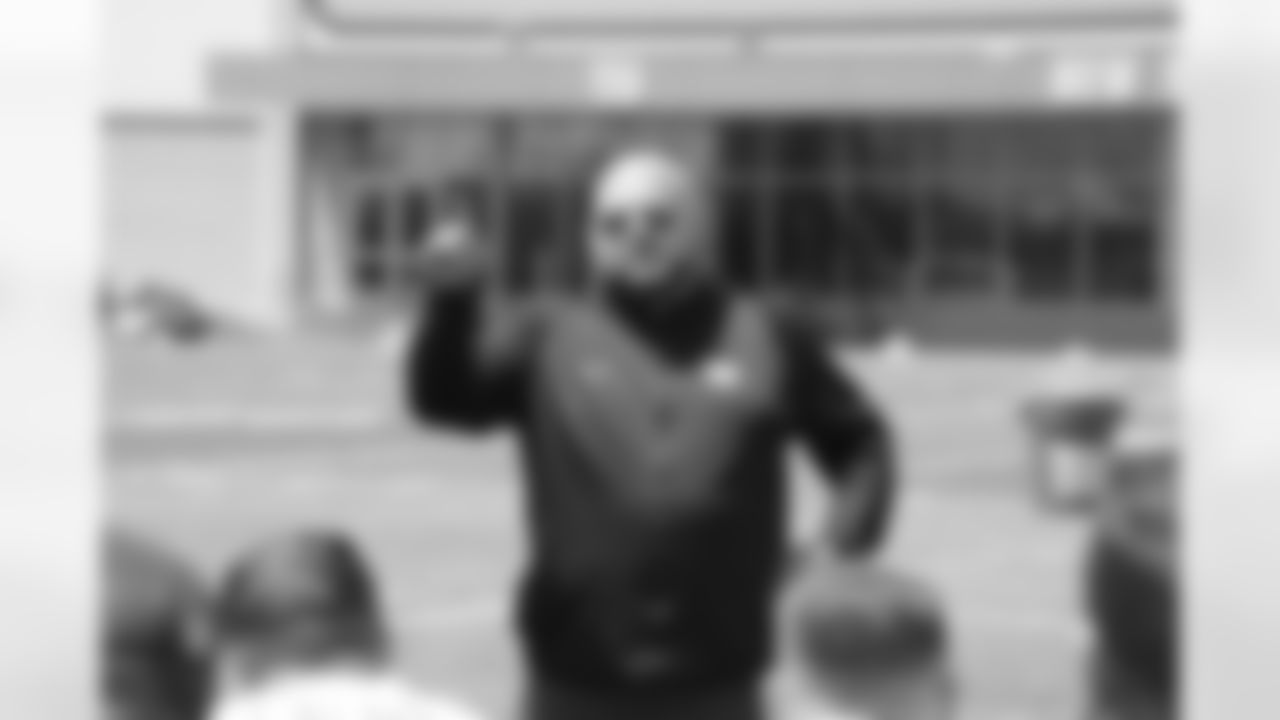
New York Giants head coach Brian Daboll talks to his team following an organized team activity practice at Quest Diagnostics Training Center on Thursday May 26, 2022 in East Rutherford, New Jersey
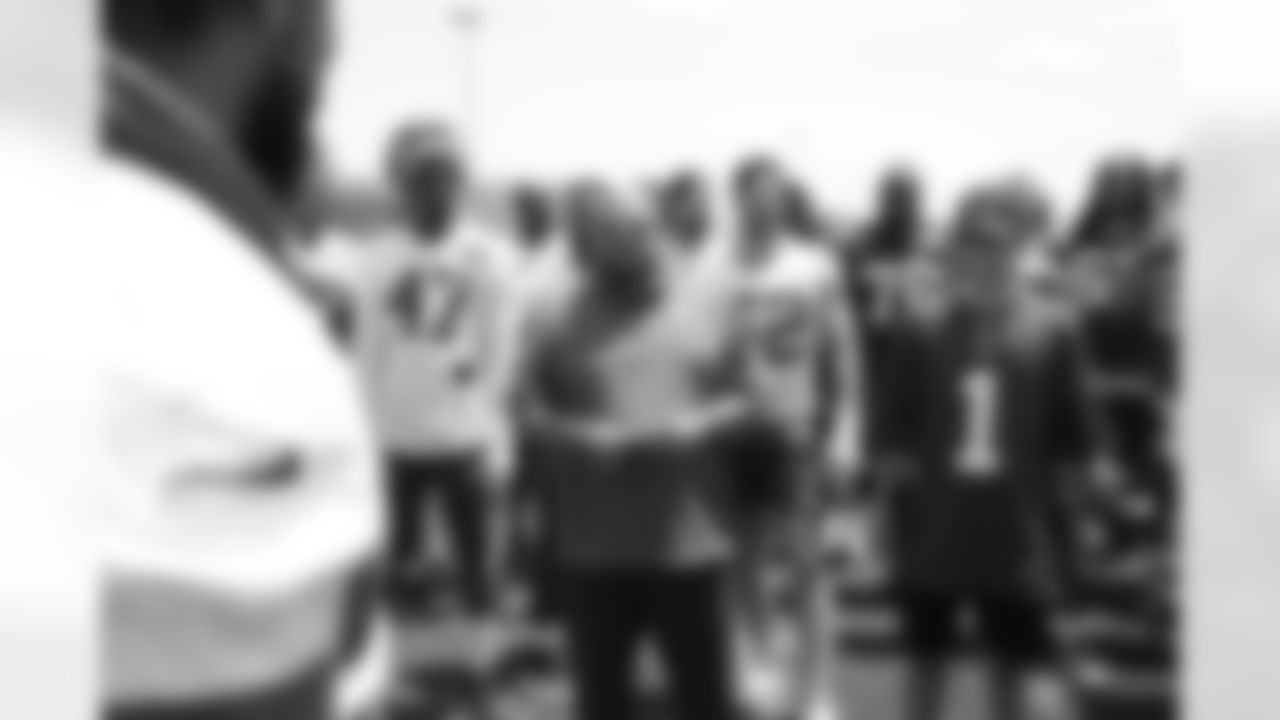
New York Giants head coach Brian Daboll talks to his team during Minicamp at Quest Diagnostics Training Center on Wednesday June 8, 2022 in East Rutherford, New Jersey

New York Giants head coach Brian Daboll talks with quarterback Daniel Jones (8) during training camp practice at Quest Diagnostics Training Center on Tuesday August 16, 2022 in East Rutherford, New Jersey

New York Giants head coach Brian Daboll introduces Osi Umenyiora during training camp practice at Quest Diagnostics Training Center on Thursday August 18, 2022 in East Rutherford, New Jersey

New York Giants head coach Brian Daboll during training camp Fan Fest practice at MetLife Stadium on Friday August 5, 2022 in East Rutherford, New Jersey

New York Giants head coach Brian Daboll talks with Osi Umenyiora during training camp practice at Quest Diagnostics Training Center on Thursday August 18, 2022 in East Rutherford, New Jersey
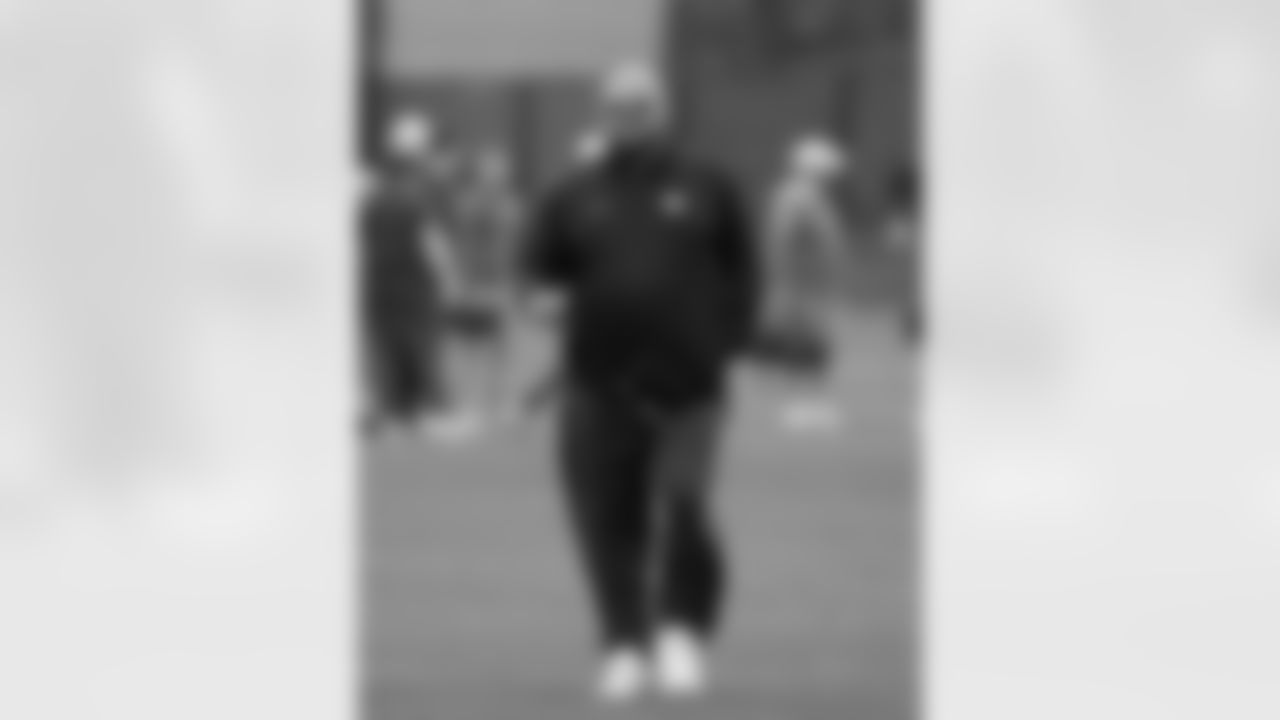
New York Giants head coach Brian Daboll during organized team activity at Quest Diagnostics Training Center on Tuesday May 24, 2022 in East Rutherford, New Jersey

New York Giants head coach Brian Daboll waves to fans before training camp Fan Fest practice at MetLife Stadium on Friday August 5, 2022 in East Rutherford, New Jersey
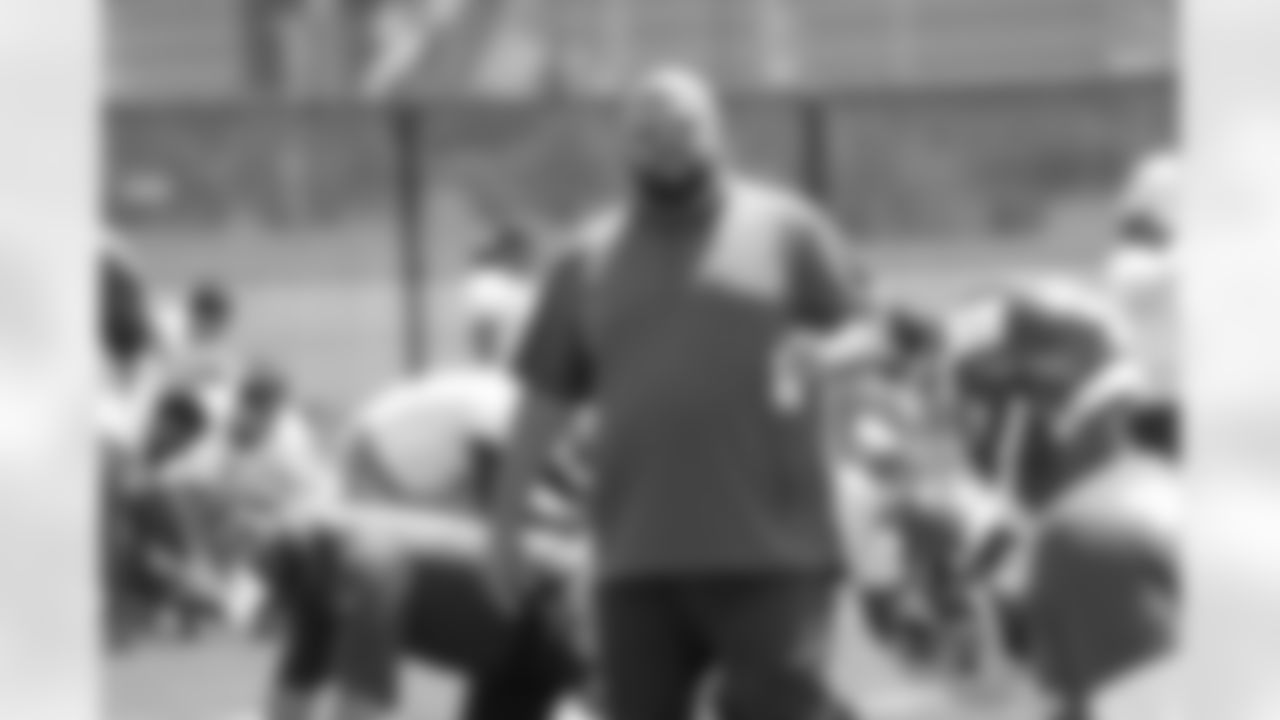
New York Giants head coach Brian Daboll during Minicamp at Quest Diagnostics Training Center on Wednesday June 8, 2022 in East Rutherford, New Jersey

Brian Daboll and Sam Prince shake hands during Minicamp at Quest Diagnostics Training Center on Wednesday June 8, 2022 in East Rutherford, New Jersey

New York Giants head coach Brian Daboll during training camp practice at Quest Diagnostics Training Center on Wednesday August 3, 2022 in East Rutherford, New Jersey

New York Giants head coach Brian Daboll during training camp practice at Quest Diagnostics Training Center on Wednesday August 3, 2022 in East Rutherford, New Jersey
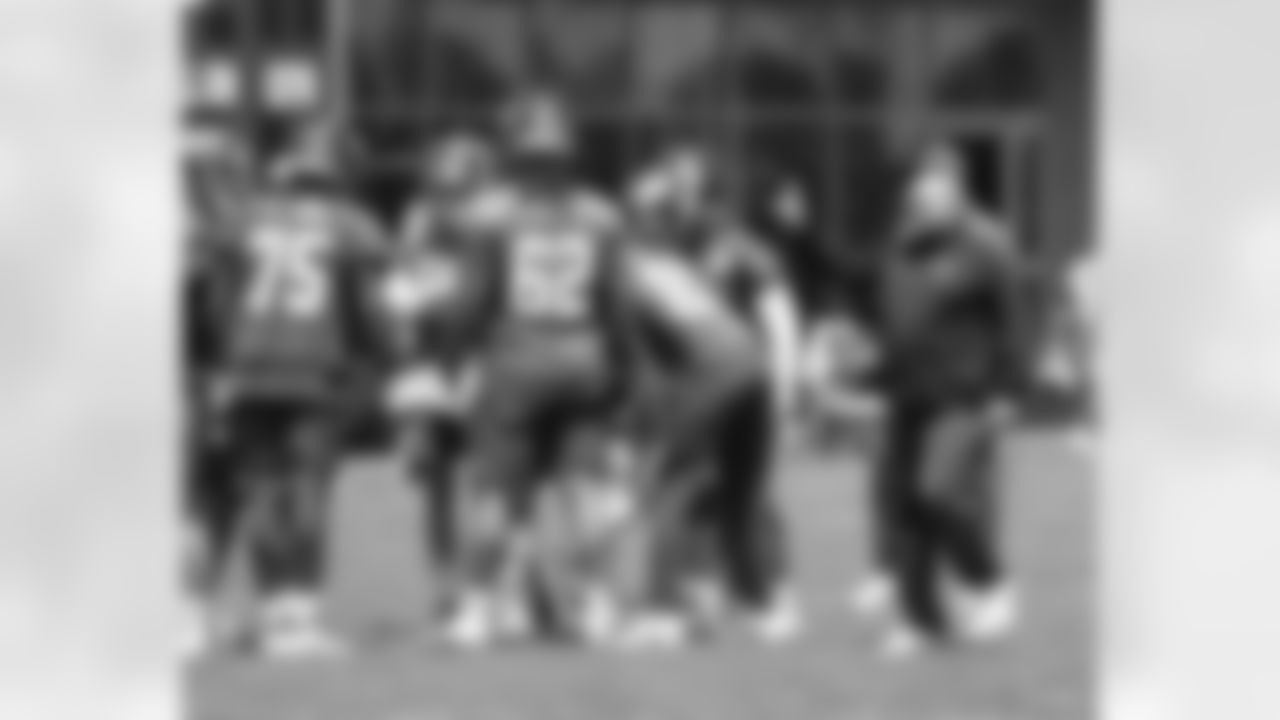
New York Giants head coach Brian Daboll during organized team activity at Quest Diagnostics Training Center on Monday May 23, 2022 in East Rutherford, New Jersey

Brian Daboll talks to Dexter Lawrence during Minicamp at Quest Diagnostics Training Center on Tuesday June 7, 2022 in East Rutherford, New Jersey
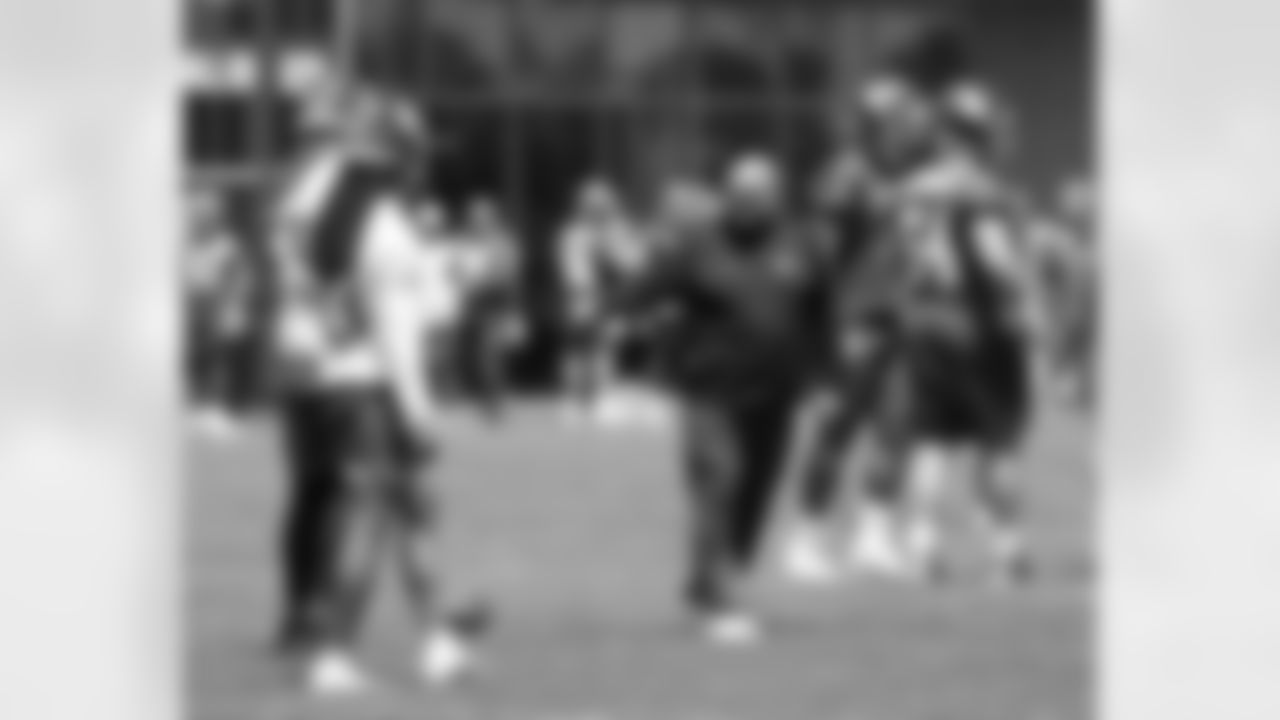
New York Giants head coach Brian Daboll during organized team activity at Quest Diagnostics Training Center on Monday May 23, 2022 in East Rutherford, New Jersey
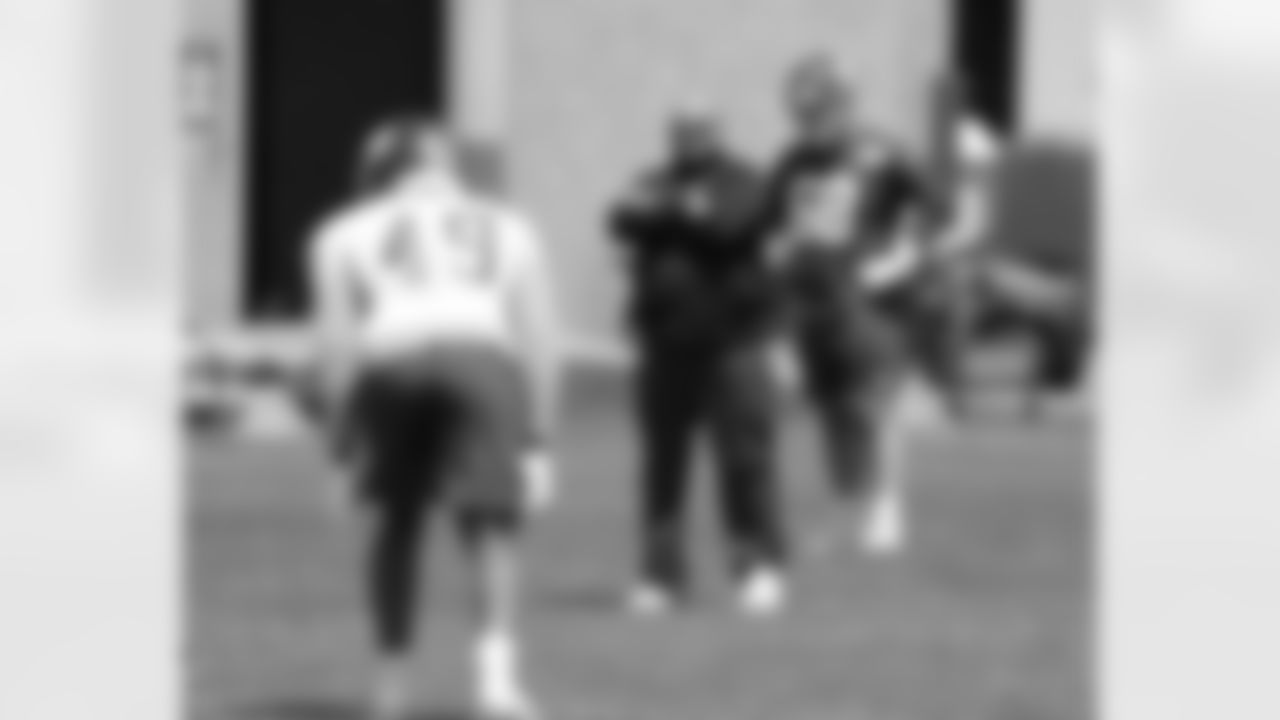
New York Giants head coach Brian Daboll during organized team activity at Quest Diagnostics Training Center on Monday May 23, 2022 in East Rutherford, New Jersey

New York Giants head coach Brian Daboll during training camp practice at Quest Diagnostics Training Center on Wednesday August 3, 2022 in East Rutherford, New Jersey
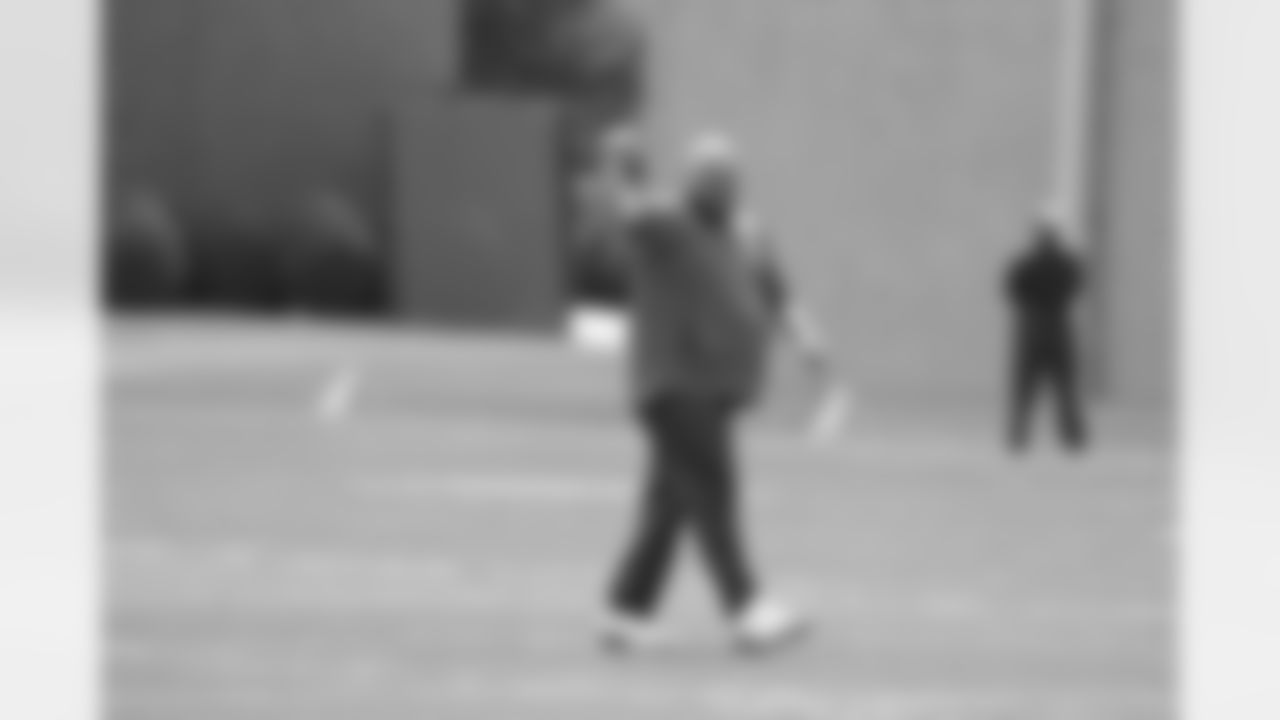
New York Giants head coach Brian Daboll during Minicamp at Quest Diagnostics Training Center on Tuesday June 7, 2022 in East Rutherford, New Jersey

New York Giants head coach Brian Daboll talks with former NFL coach Bill Cowher during training camp practice at Quest Diagnostics Training Center on Tuesday August 16, 2022 in East Rutherford, New Jersey

New York Giants Head Coach Brian Daboll during training camp practice at Quest Diagnostics Training Center on Wednesday August 3, 2022 in East Rutherford, New Jersey
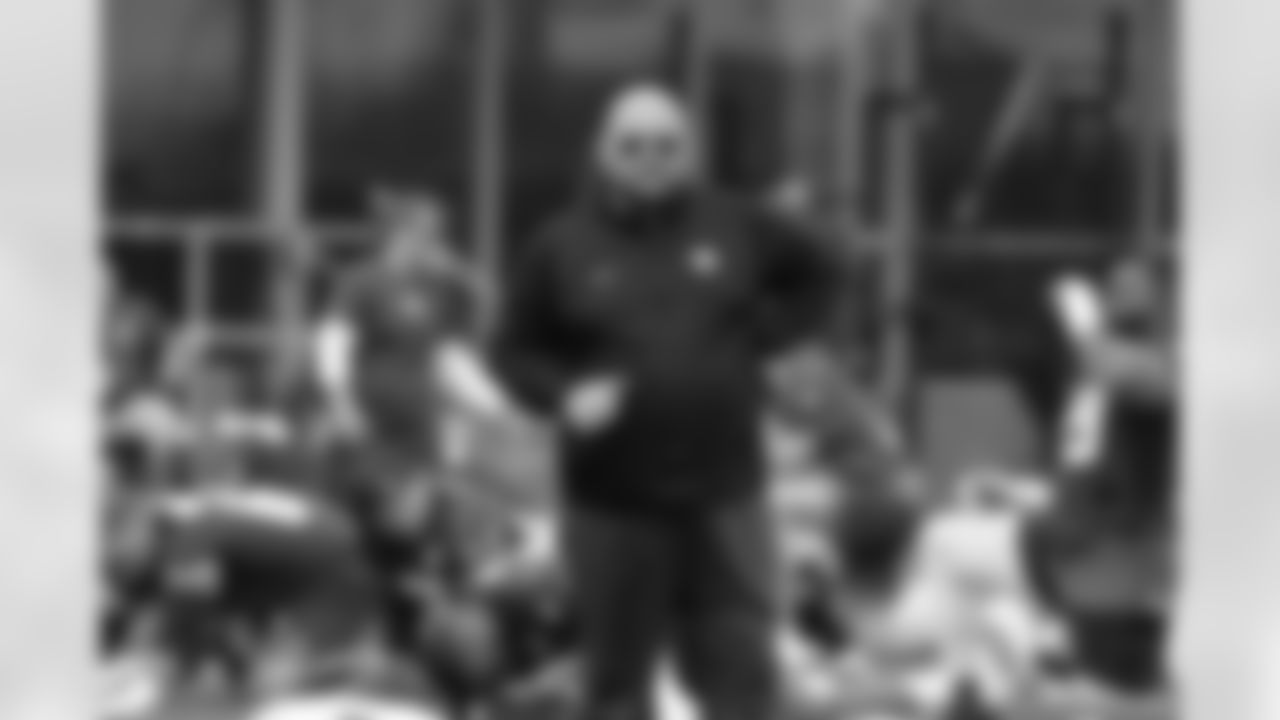
New York Giants head coach Brian Daboll during organized team activity at Quest Diagnostics Training Center on Monday May 16, 2022 in East Rutherford, New Jersey

New York Giants head coach Brian Daboll during training camp practice at Quest Diagnostics Training Center on Thursday August 18, 2022 in East Rutherford, New Jersey

New York Giants head coach Brian Daboll talks with Joe Morris following training camp practice at Quest Diagnostics Training Center on Tuesday August 16, 2022 in East Rutherford, New Jersey
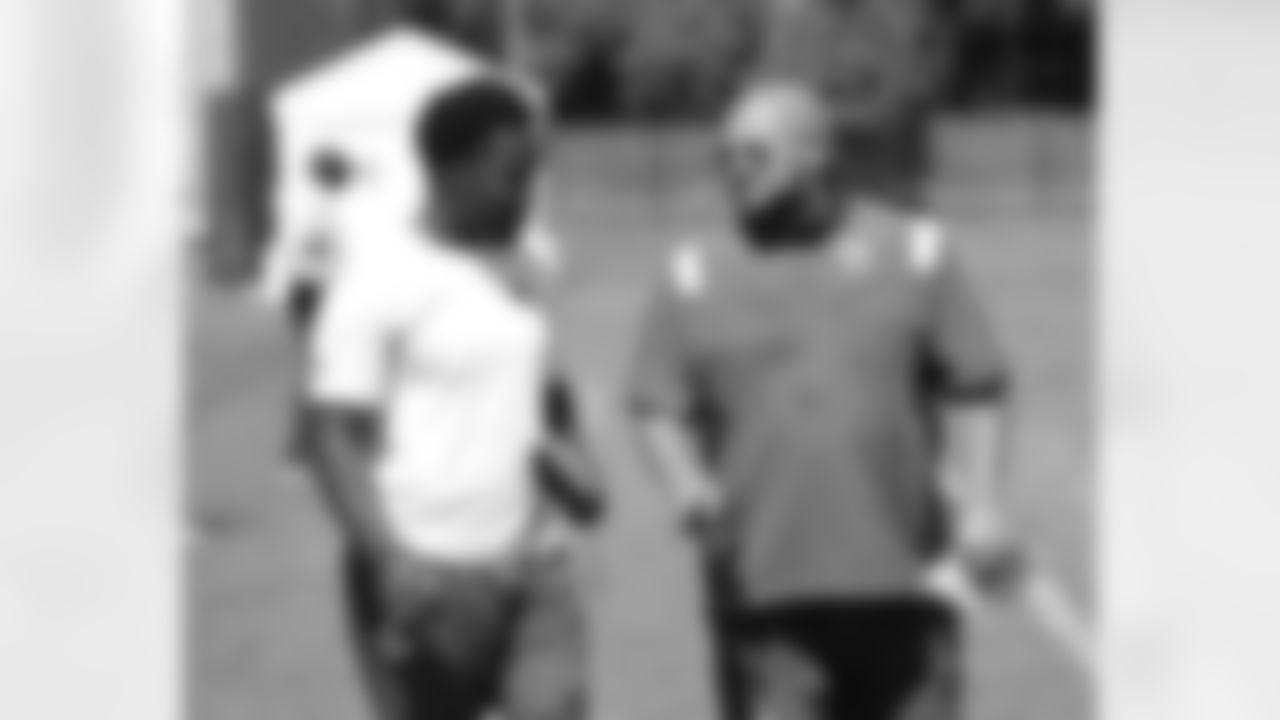
New York Giants head coach Brian Daboll talks with assistant general manager Brandon Brown during training camp practice at Quest Diagnostics Training Center on Wednesday August 3, 2022 in East Rutherford, New Jersey

New York Giants head coach Brian Daboll talks with former Giant Osi Umenyiora during training camp practice at Quest Diagnostics Training Center on Thursday August 18, 2022 in East Rutherford, New Jersey
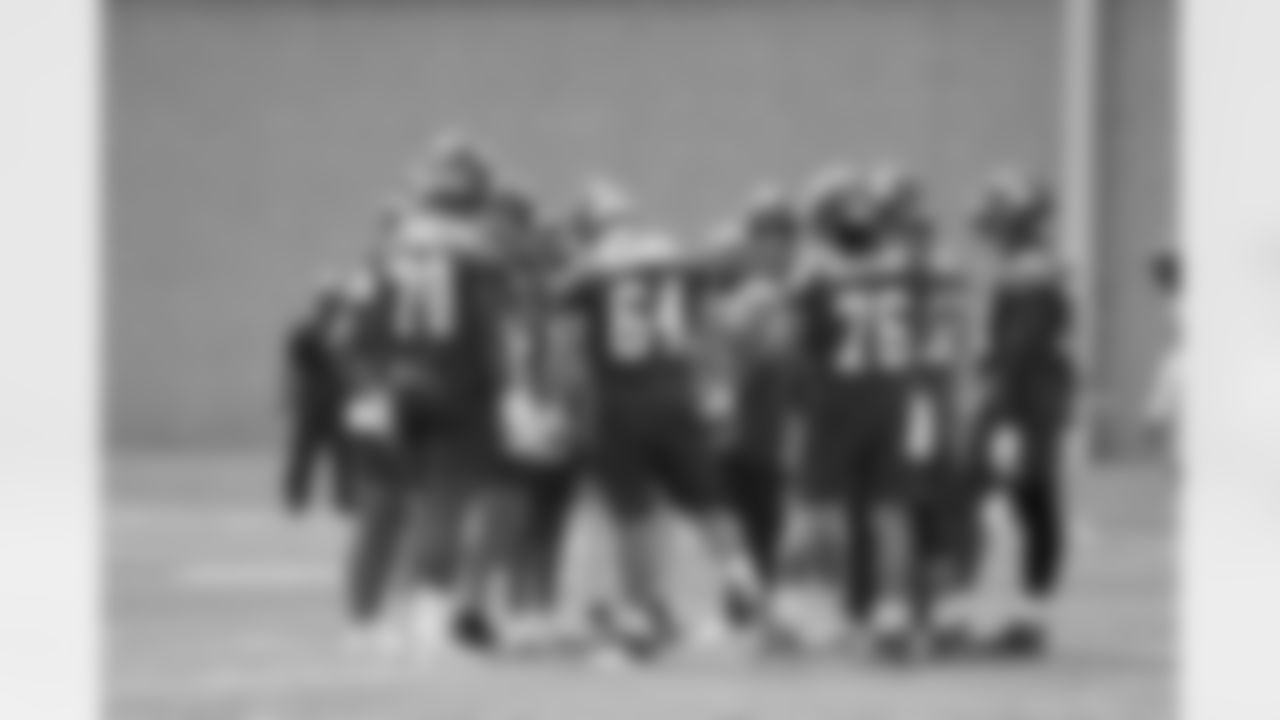
Brian Daboll stands in the offensive huddle during Minicamp at Quest Diagnostics Training Center on Tuesday June 7, 2022 in East Rutherford, New Jersey
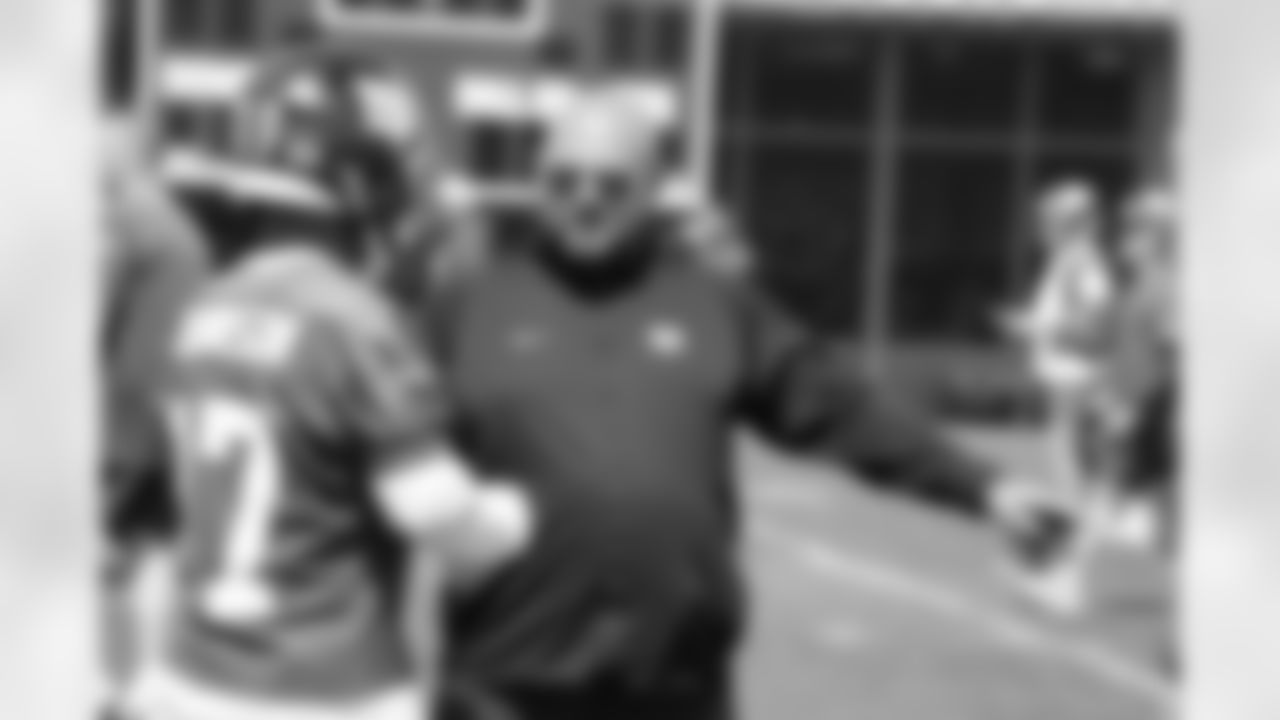
New York Giants head coach Brian Daboll during organized team activity at Quest Diagnostics Training Center on Monday May 23, 2022 in East Rutherford, New Jersey

New York Giants head coach Brian Daboll talks to his team following a preseason NFL football game against New England Patriots on Thursday August 11, 2022 in Foxborough, MA

New York Giants head coach Brian Daboll talks to his team following a preseason NFL football game against New England Patriots on Thursday August 11, 2022 in Foxborough, MA

Brian Daboll and Joe Schoen talk during Minicamp at Quest Diagnostics Training Center on Tuesday June 7, 2022 in East Rutherford, New Jersey

Brian Daboll during Minicamp at Quest Diagnostics Training Center on Tuesday June 7, 2022 in East Rutherford, New Jersey
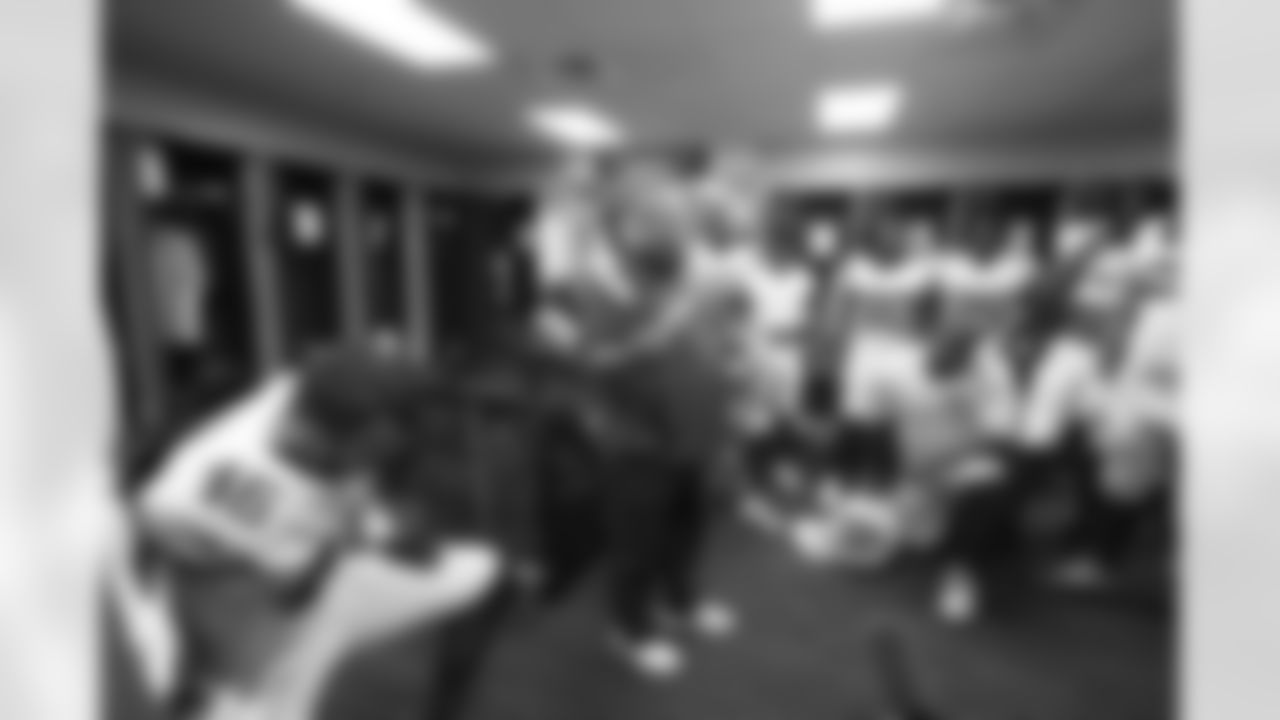
New York Giants head coach Brian Daboll talks to his team following a preseason NFL football game against New England Patriots on Thursday August 11, 2022 in Foxborough, MA
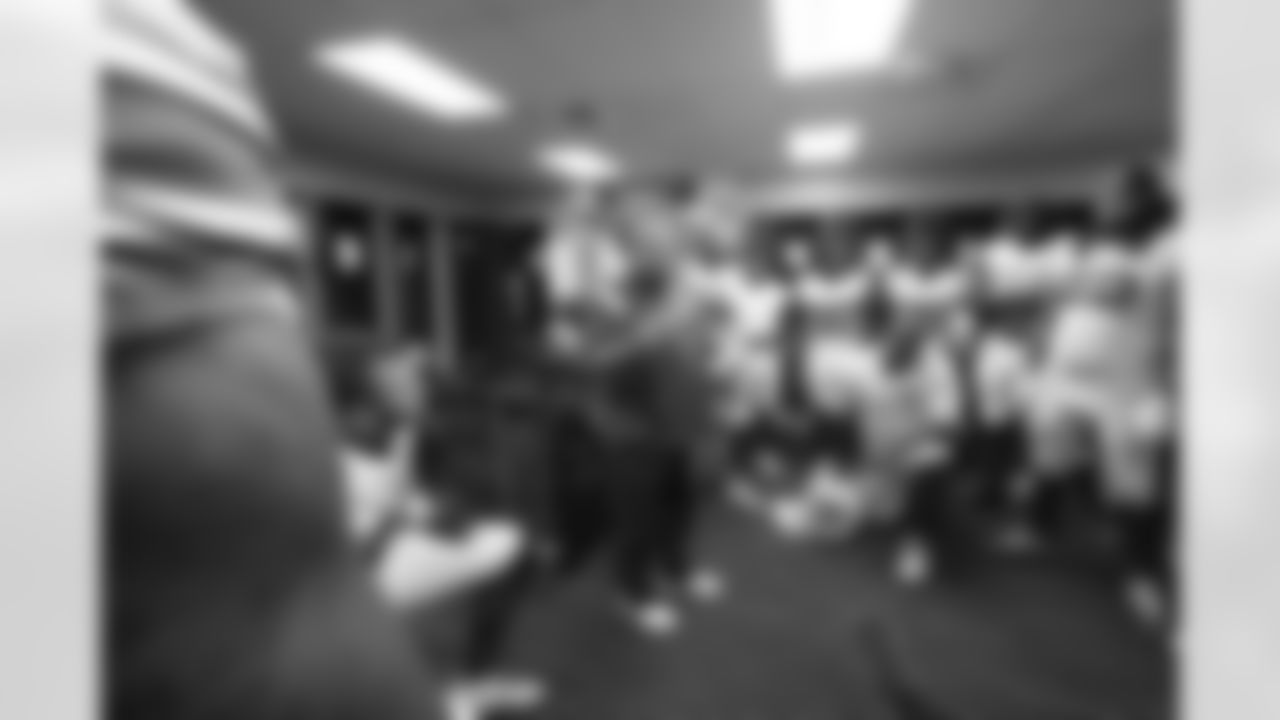
New York Giants head coach Brian Daboll talks to his team following a preseason NFL football game against New England Patriots on Thursday August 11, 2022 in Foxborough, MA

New York Giants head coach Brian Daboll during Minicamp at Quest Diagnostics Training Center on Tuesday June 7, 2022 in East Rutherford, New Jersey

New York Giants head coach Brian Daboll talks with Joe Schoen before a preseason NFL football game against New England Patriots on Thursday August 11, 2022 in Foxborough, MA

New York Giants head coach Brian Daboll during Minicamp at Quest Diagnostics Training Center on Tuesday June 7, 2022 in East Rutherford, New Jersey
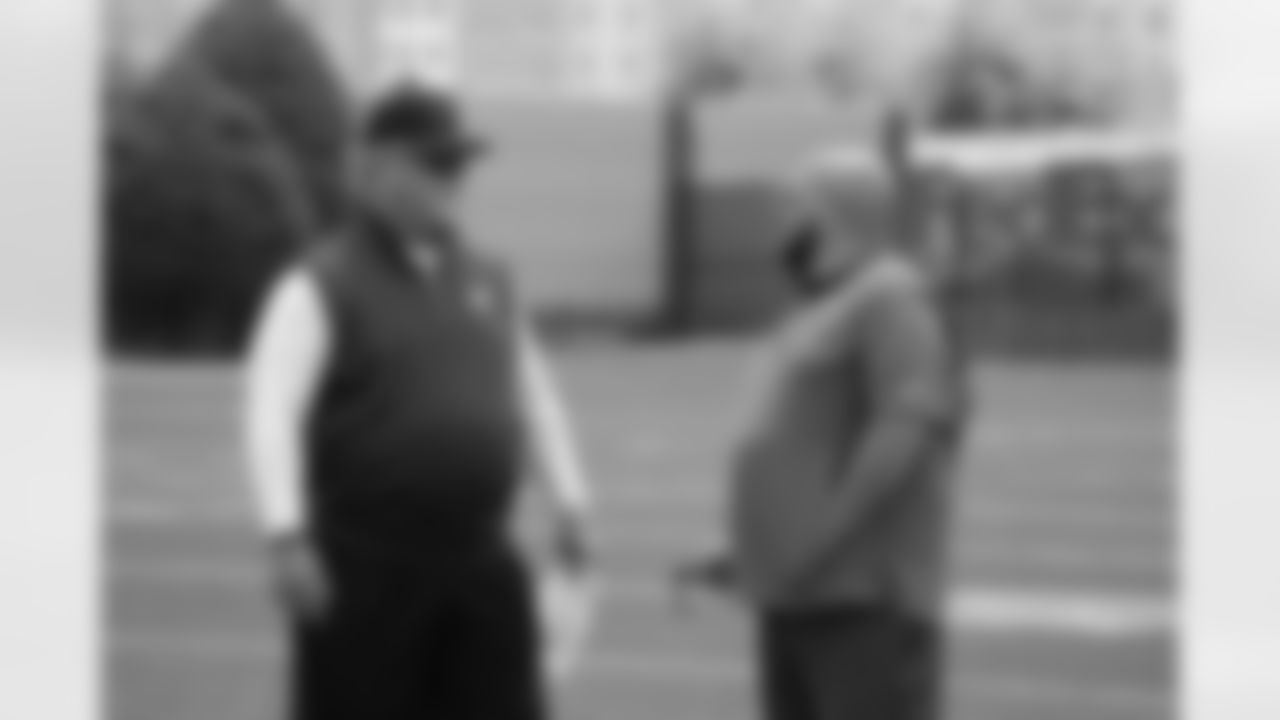
Brian Daboll and Wink Martindale talk during Minicamp at Quest Diagnostics Training Center on Tuesday June 7, 2022 in East Rutherford, New Jersey

New York Giants head coach Brian Daboll talks with former New York Giant OJ Anderson following training camp practice at Quest Diagnostics Training Center on Tuesday August 16, 2022 in East Rutherford, New Jersey

New York Giants head coach Brian Daboll talks with quarterback Daniel Jones (8) during training camp practice at Quest Diagnostics Training Center on Tuesday August 16, 2022 in East Rutherford, New Jersey

New York Giants head coach Brian Daboll before a preseason NFL football game against New England Patriots on Thursday August 11, 2022 in Foxborough, MA

New York Giants head coach Brian Daboll talks with New York Giants defensive end Leonard Williams (99) during training camp practice at Quest Diagnostics Training Center on Tuesday August 16, 2022 in East Rutherford, New Jersey

New York Giants head coach Brian Daboll during Minicamp at Quest Diagnostics Training Center on Tuesday June 7, 2022 in East Rutherford, New Jersey

Brandon Jacobs talks with Brian Daboll after training camp practice at Quest Diagnostics Training Center on Saturday July 30, 2022 in East Rutherford, New Jersey
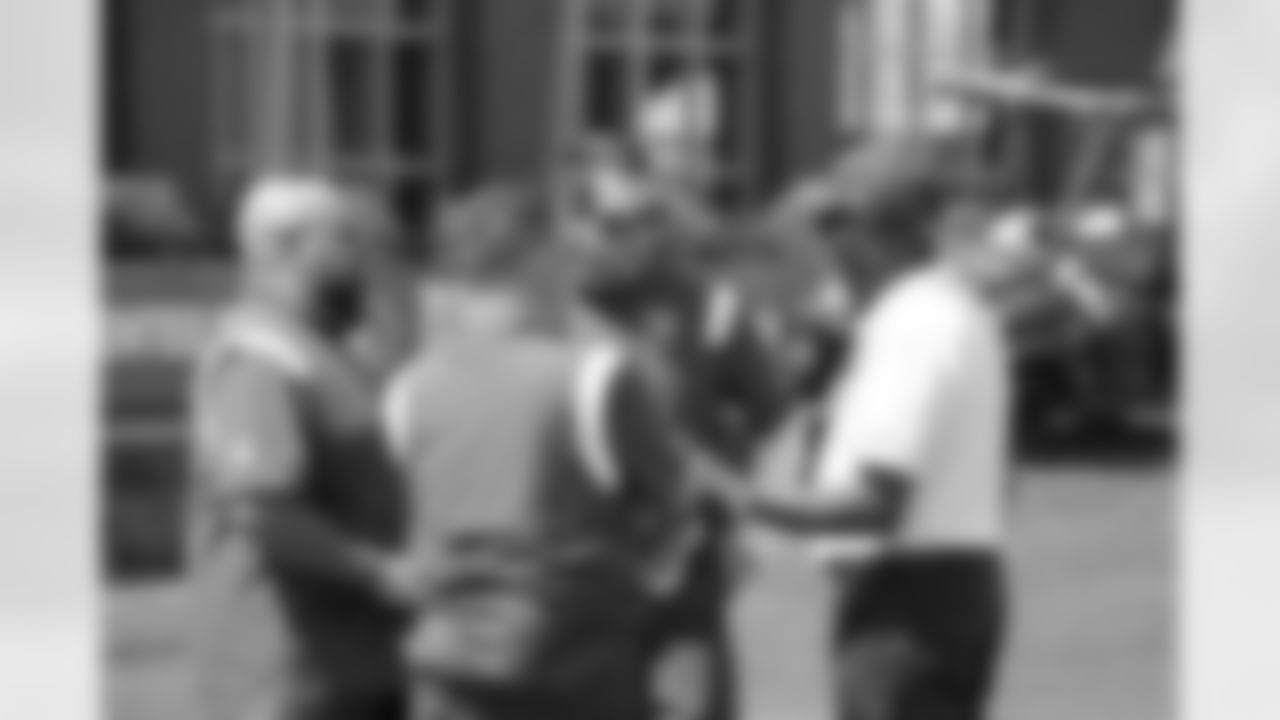
New York Giants head coach Brian Daboll talks with Joe Schoen, Ronnie Barnes and Leigh Weiss during training camp practice at Quest Diagnostics Training Center on Monday August 15, 2022 in East Rutherford, New Jersey

New York Giants head coach Brian Daboll and General Manager Joe Schoen watch training camp practice at Quest Diagnostics Training Center on Monday August 1, 2022 in East Rutherford, New Jersey

New York Giants head coach Brian Daboll arriving before a preseason NFL football game against New England Patriots on Thursday August 11, 2022 in Foxborough, MA

New York Giants head coach Brian Daboll talks to high school football players after training camp practice at Quest Diagnostics Training Center on Saturday July 30, 2022 in East Rutherford, New Jersey

New York Giants head coach Brian Daboll arriving before a preseason NFL football game against New England Patriots on Thursday August 11, 2022 in Foxborough, MA
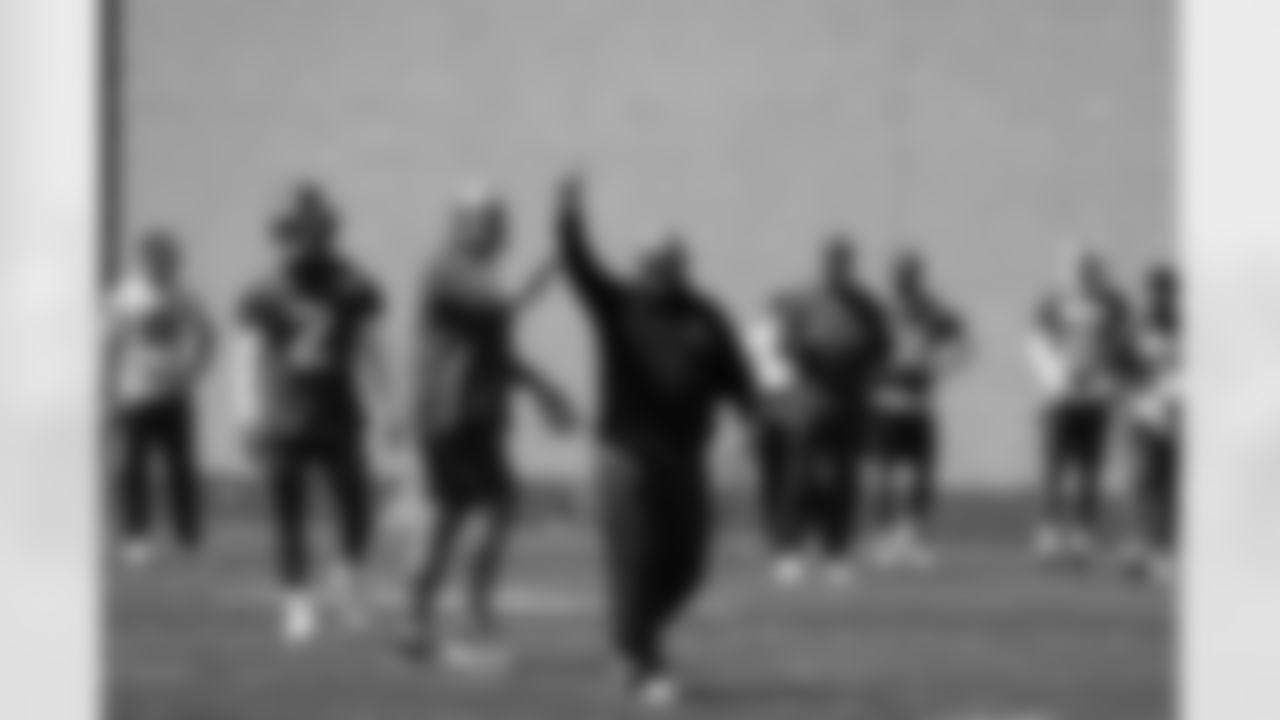
New York Giants head coach Brian Daboll during organized team activity at Quest Diagnostics Training Center on Tuesday May 17, 2022 in East Rutherford, New Jersey
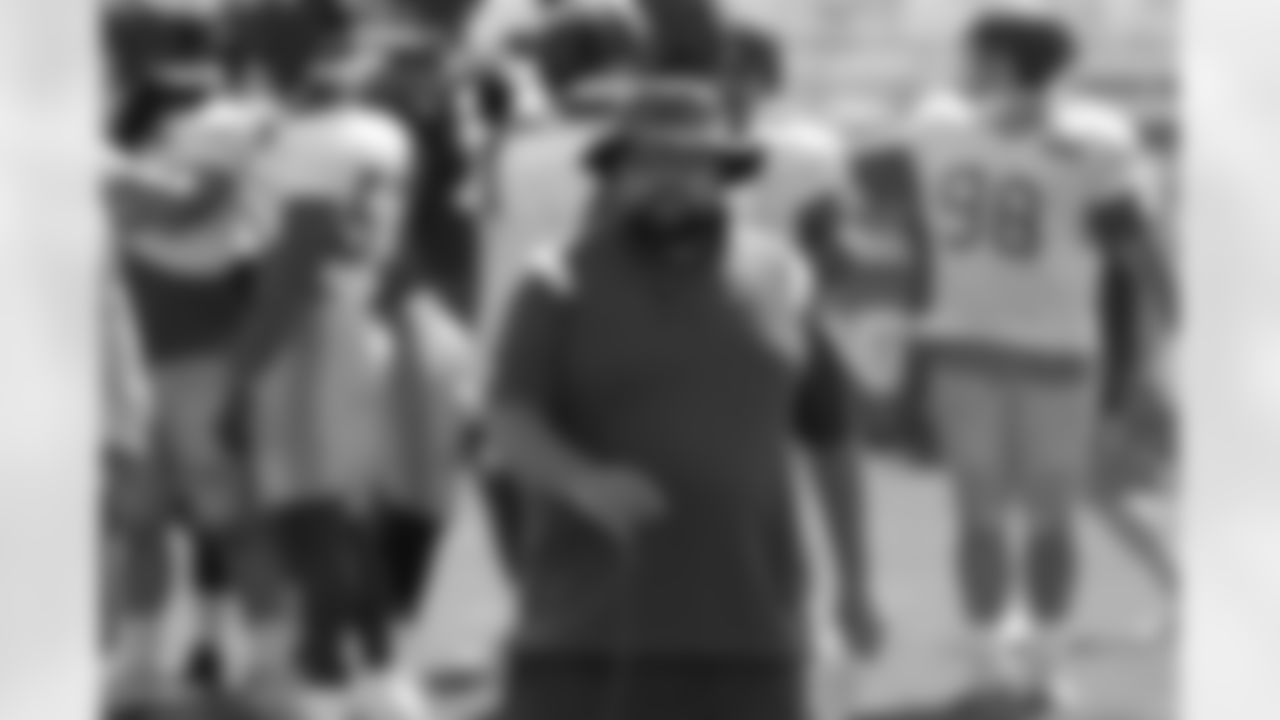
New York Giants head coach Brian Daboll during training camp practice at Quest Diagnostics Training Center on Monday August 15, 2022 in East Rutherford, New Jersey
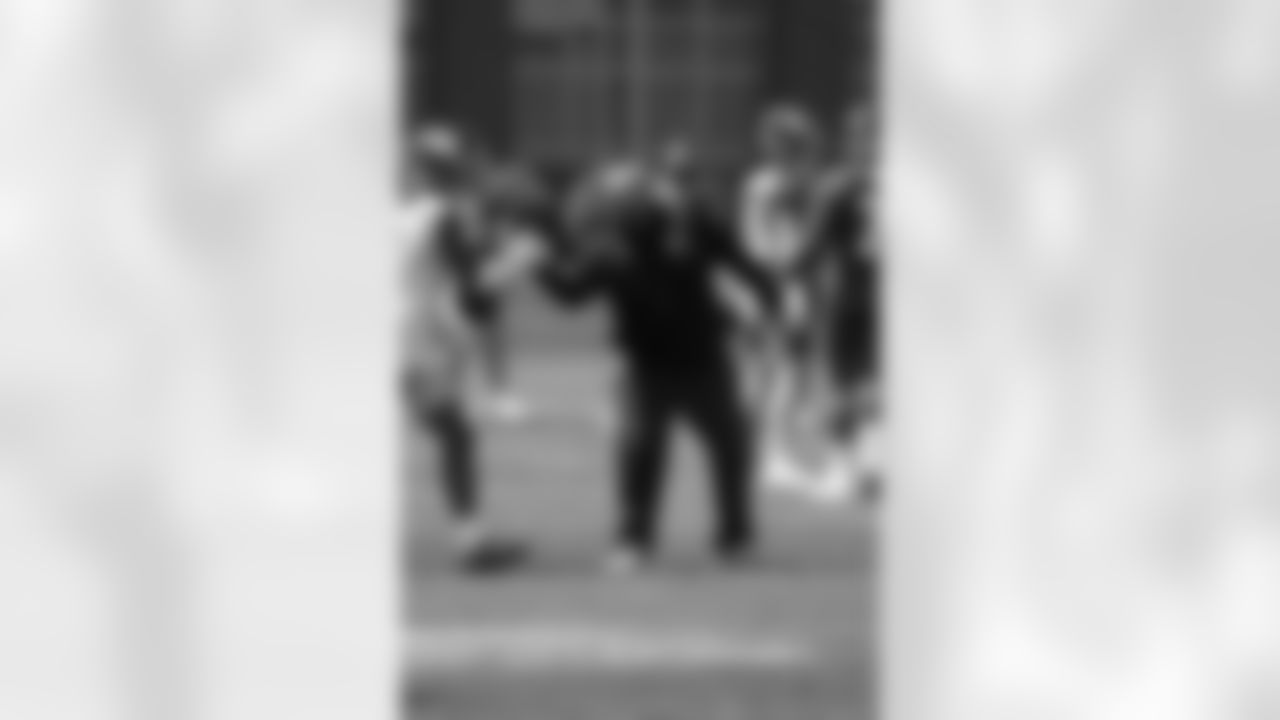
New York Giants head coach Brian Daboll shakes hands with head coach Brian Daboll during organized team activity at Quest Diagnostics Training Center on Tuesday May 17, 2022 in East Rutherford, New Jersey
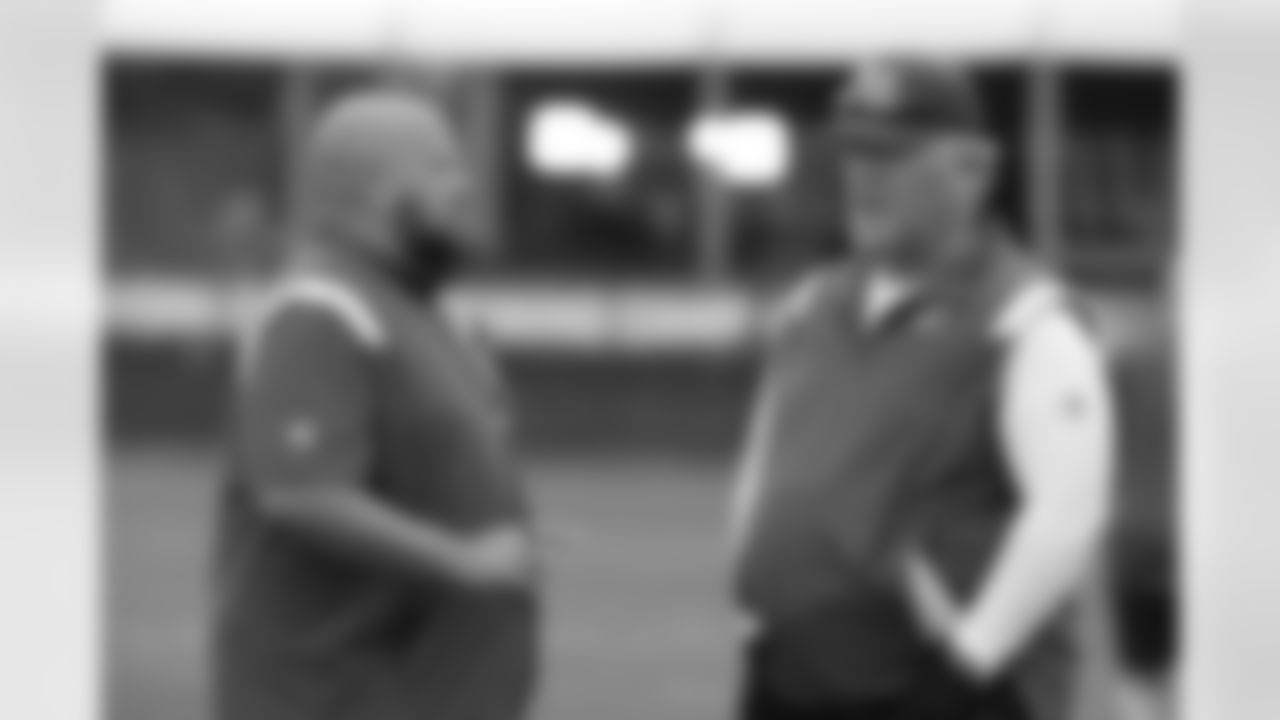
New York Giants head coach Brian Daboll talks with defensive coordinator Don Martindale during training camp practice at Quest Diagnostics Training Center on Monday August 1, 2022 in East Rutherford, New Jersey
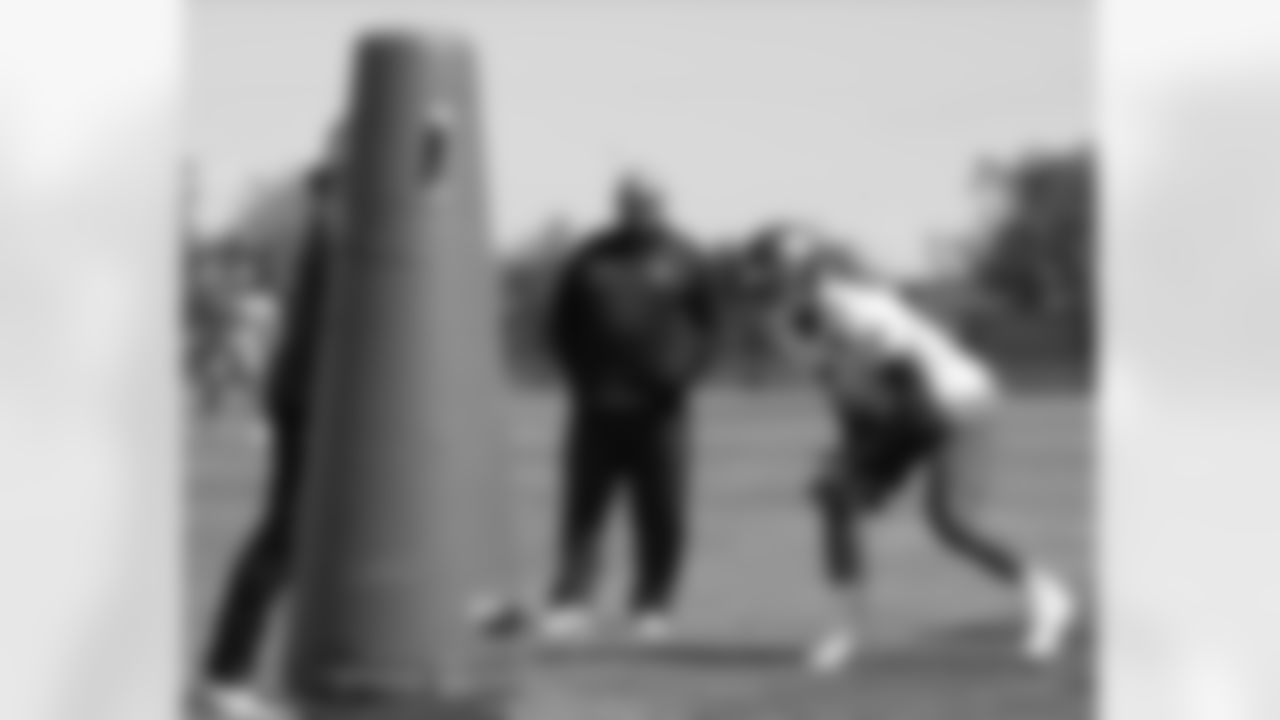
New York Giants head coach Brian Daboll watches during organized team activity at Quest Diagnostics Training Center on Tuesday May 17, 2022 in East Rutherford, New Jersey

Brandon Jacobs talks with Brian Daboll after training camp practice at Quest Diagnostics Training Center on Saturday July 30, 2022 in East Rutherford, New Jersey

New York Giants head coach Brian Daboll during organized team activity at Quest Diagnostics Training Center on Monday May 16, 2022 in East Rutherford, New Jersey
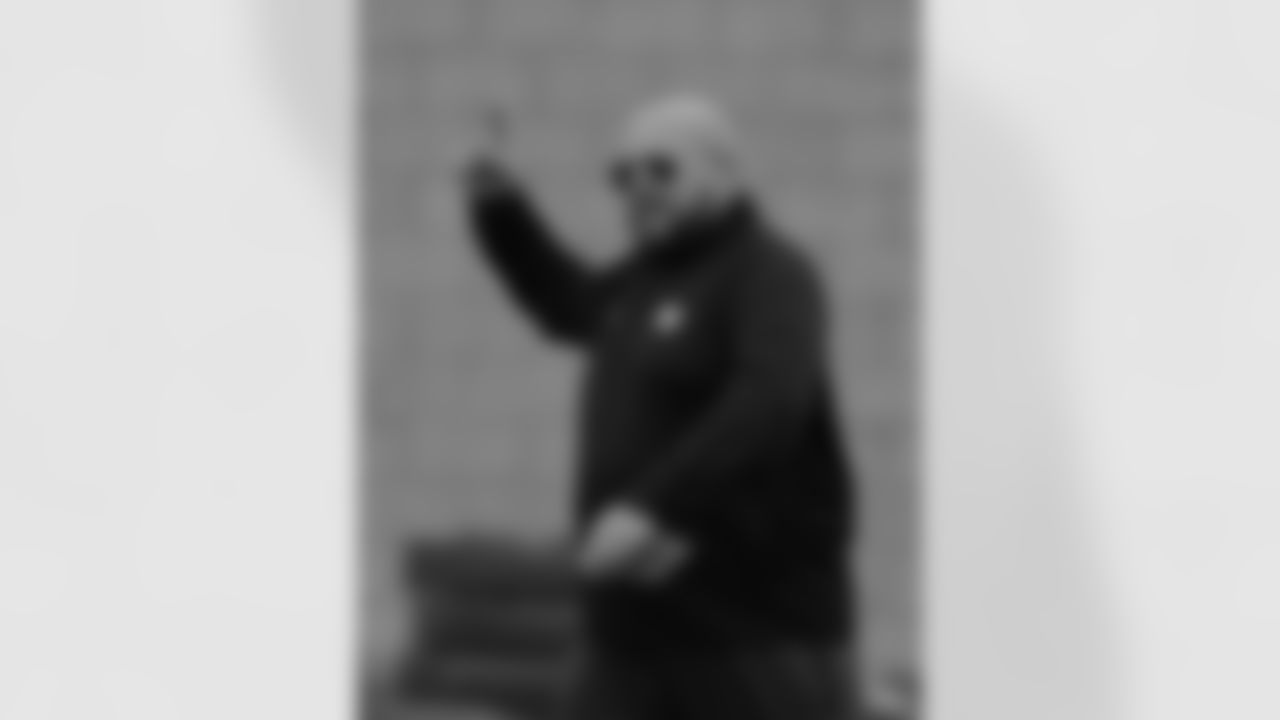
New York Giants head coach Brian Daboll during organized team activity at Quest Diagnostics Training Center on Monday May 16, 2022 in East Rutherford, New Jersey
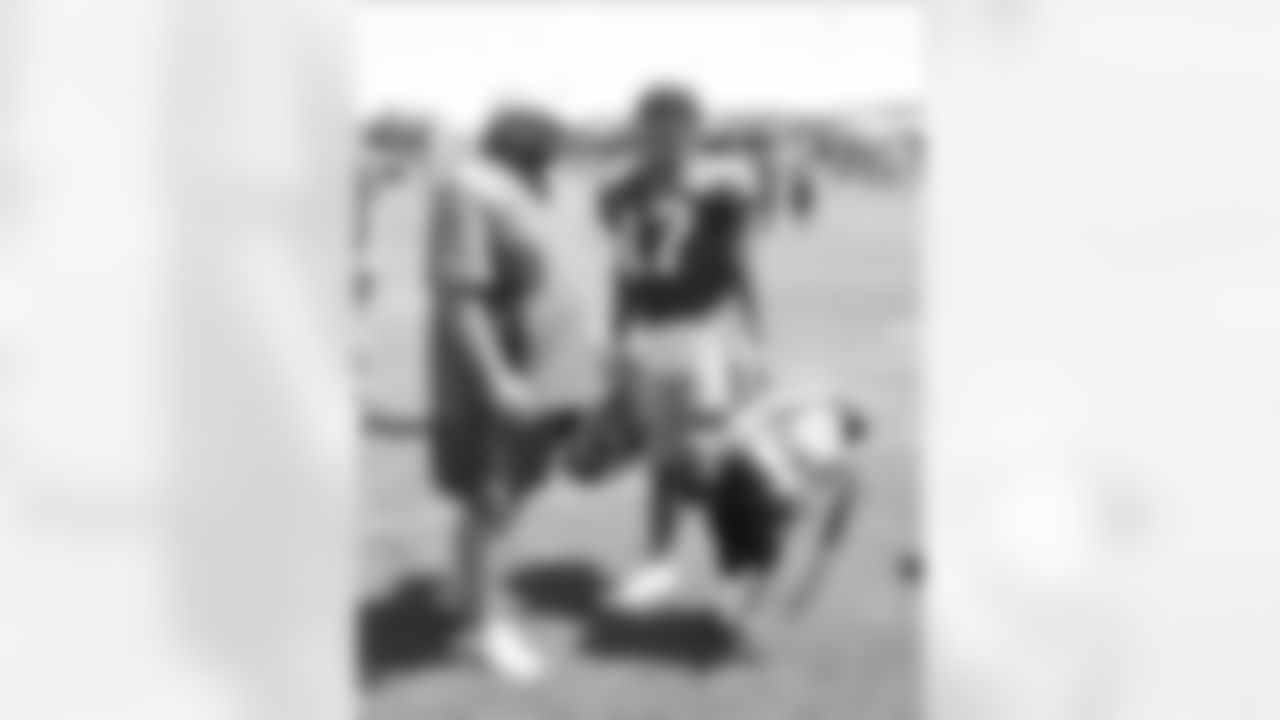
New York Giants head coach Brian Daboll talks with wide receiver Wan'Dale Robinson (17) following training camp practice at Quest Diagnostics Training Center on Wednesday August 3, 2022 in East Rutherford, New Jersey

New York Giants head coach Brian Daboll during training camp practice at Quest Diagnostics Training Center on Sunday August 14, 2022 in East Rutherford, New Jersey

New York Giants head coach Brian Daboll during training camp practice at Quest Diagnostics Training Center on Sunday August 14, 2022 in East Rutherford, New Jersey
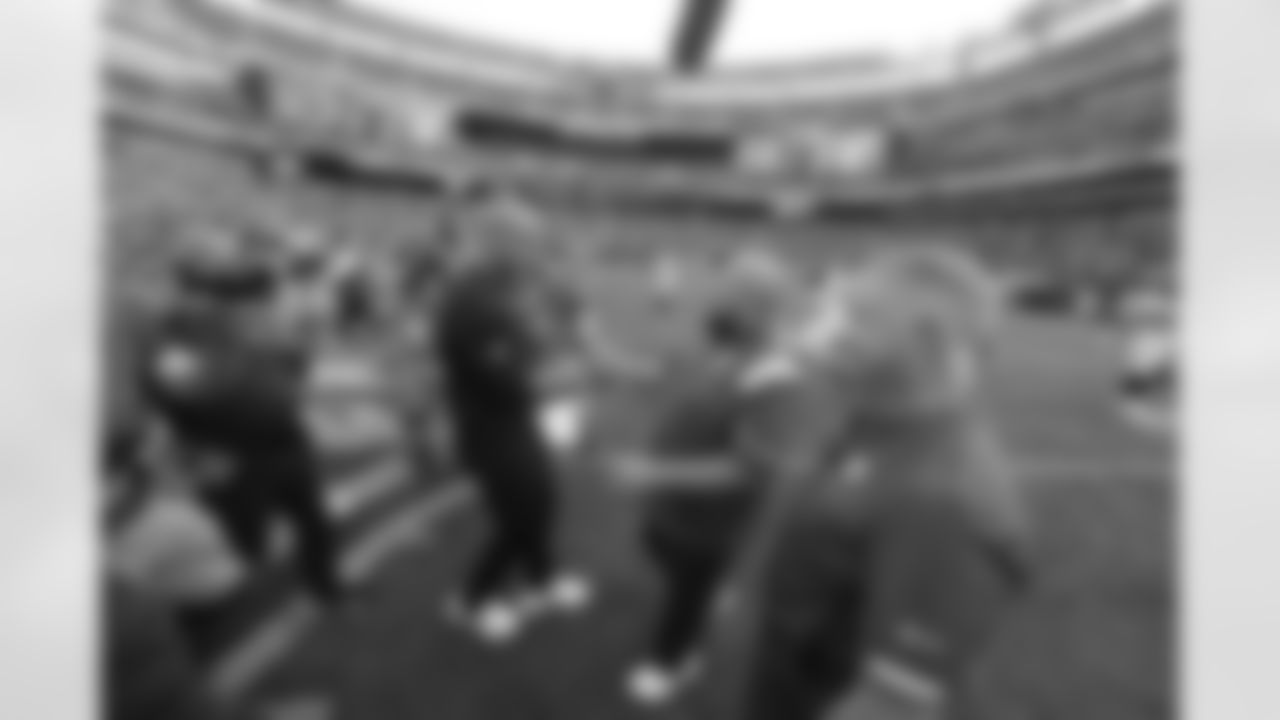
New York Jets head coach Robert Saleh shakes hands with New York Giants head coach Brian Daboll following a pre-season football game against the New York Jets on Sunday August 28, 2022 in East Rutherford, New Jersey (Evan Pinkus/NY Giants)
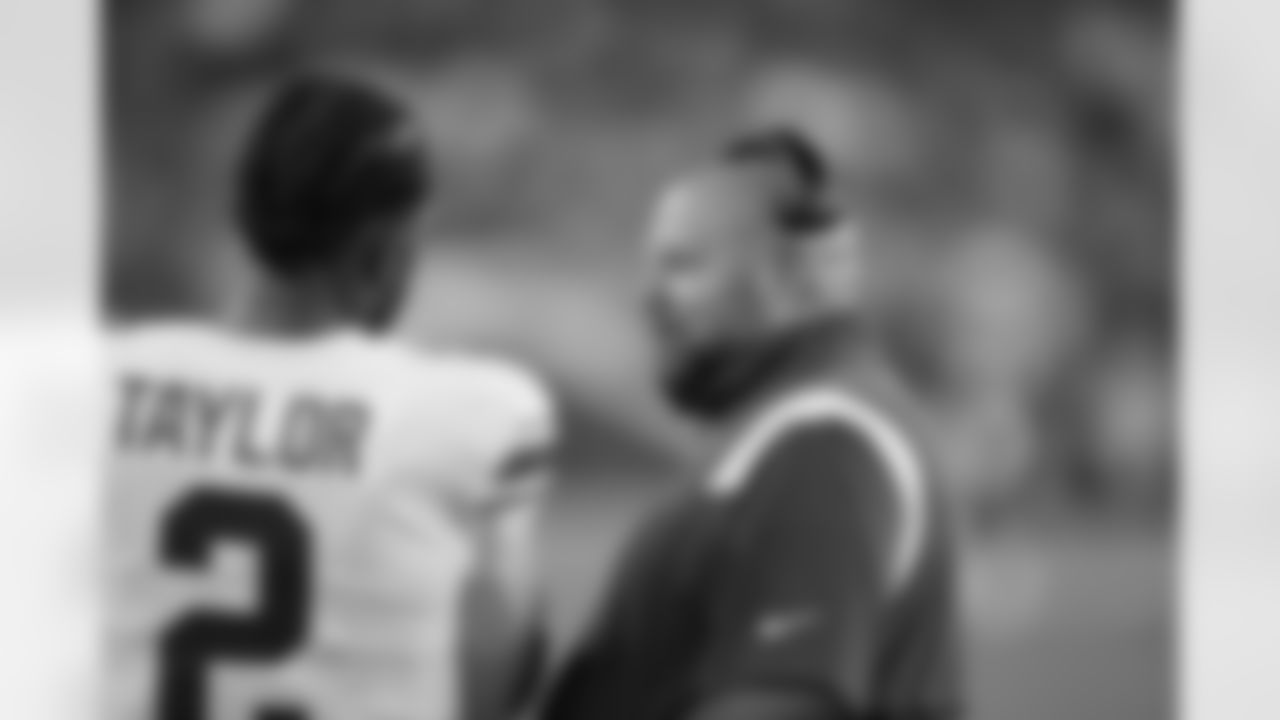
New York Giants head coach Brian Daboll during a preseason NFL football game against New England Patriots on Thursday August 11, 2022 in Foxborough, MA
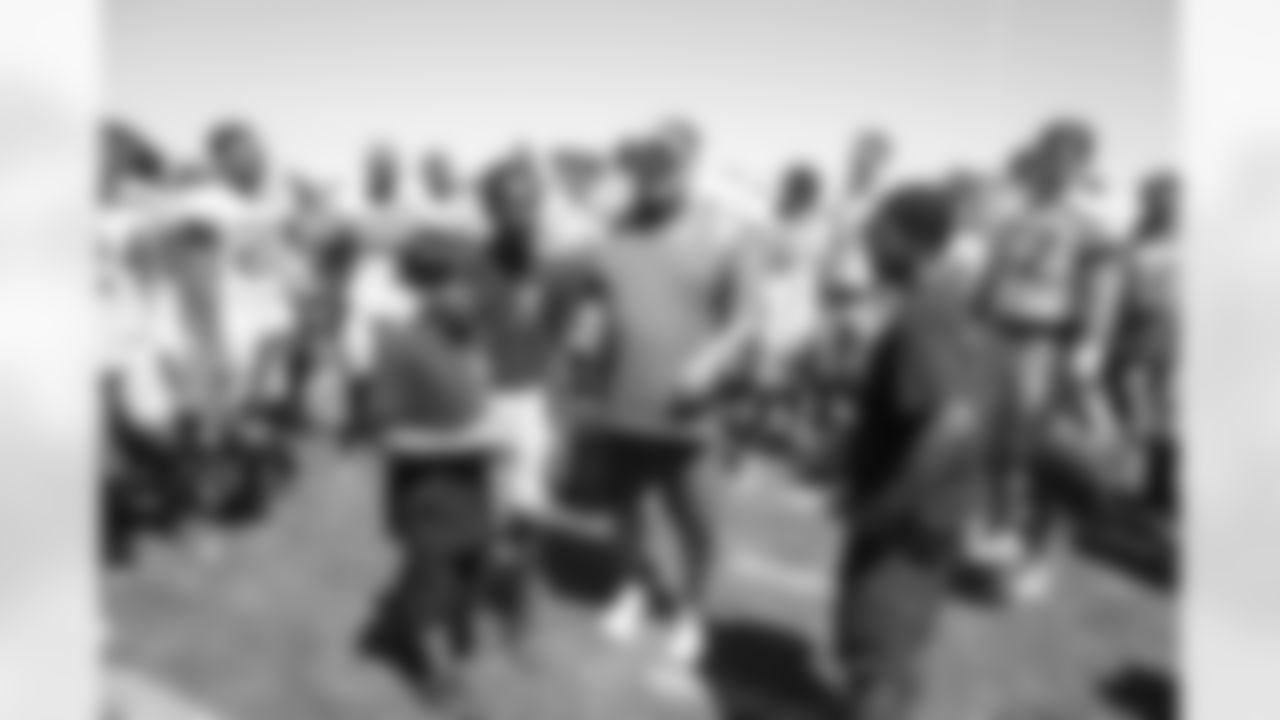
New York Giants head coach Brian Daboll introduce boys from the San Miguel Academy following training camp practice at Quest Diagnostics Training Center on Wednesday August 3, 2022 in East Rutherford, New Jersey
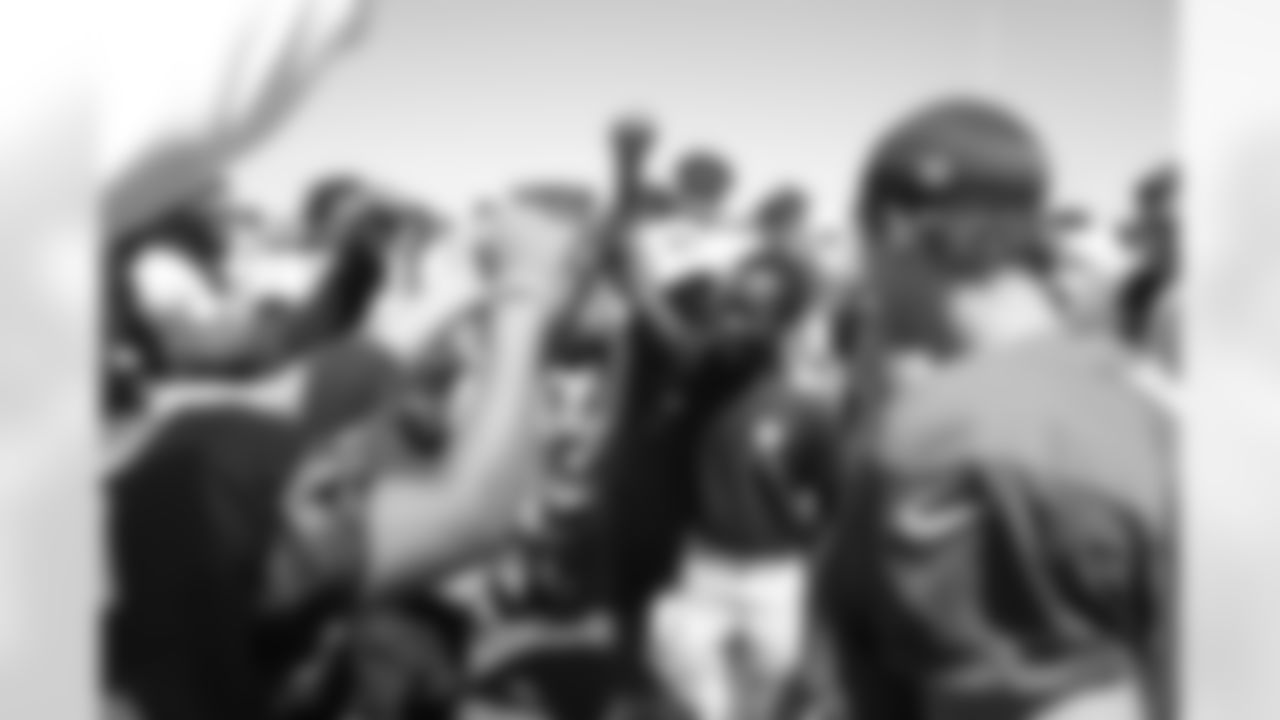
New York Giants head coach Brian Daboll introduce boys from the San Miguel Academy following training camp practice at Quest Diagnostics Training Center on Wednesday August 3, 2022 in East Rutherford, New Jersey

New York Giants head coach Brian Daboll introduce boys from the San Miguel Academy following training camp practice at Quest Diagnostics Training Center on Wednesday August 3, 2022 in East Rutherford, New Jersey

New York Giants head coach Brian Daboll introduce boys from the San Miguel Academy following training camp practice at Quest Diagnostics Training Center on Wednesday August 3, 2022 in East Rutherford, New Jersey

Brian Daboll and Joe Schoen talks during minicamp practice at Quest Diagnostics Training Center on Saturday May 14, 2022 in East Rutherford, New Jersey
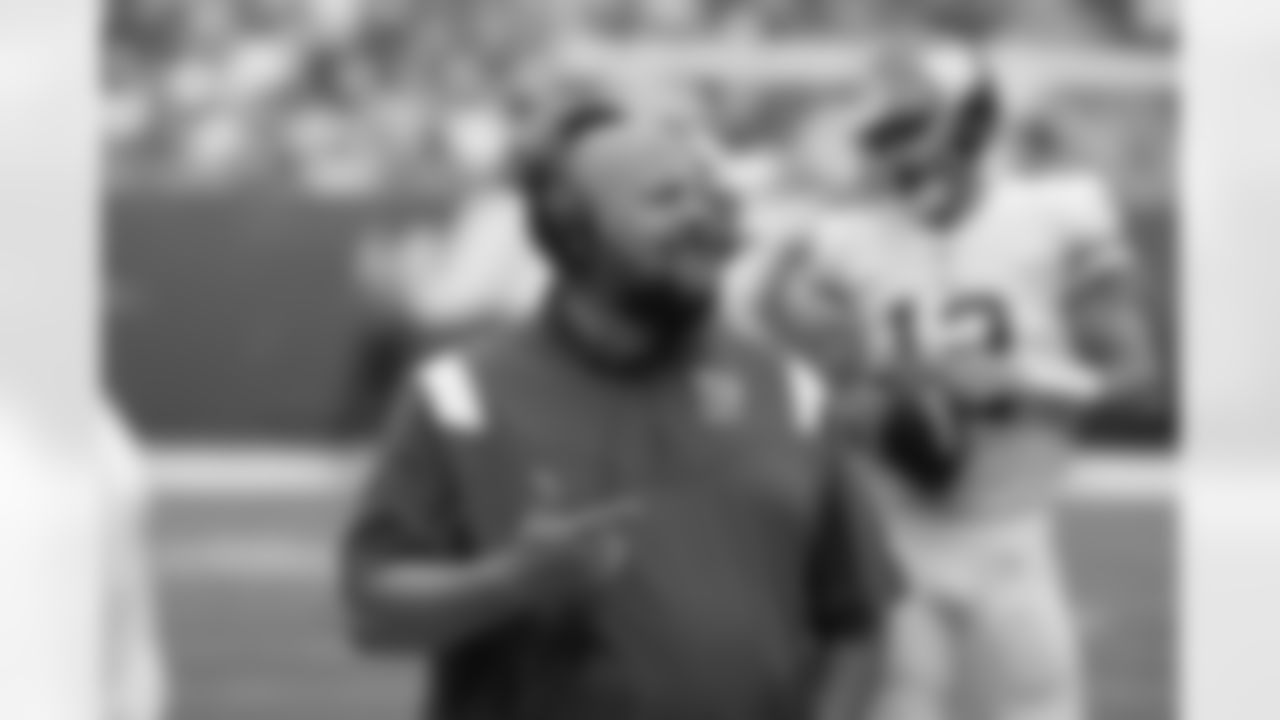
New York Giants head coach Brian Daboll during a pre-season football game against the New York Jets on Sunday August 28, 2022 in East Rutherford, New Jersey (Evan Pinkus/NY Giants)
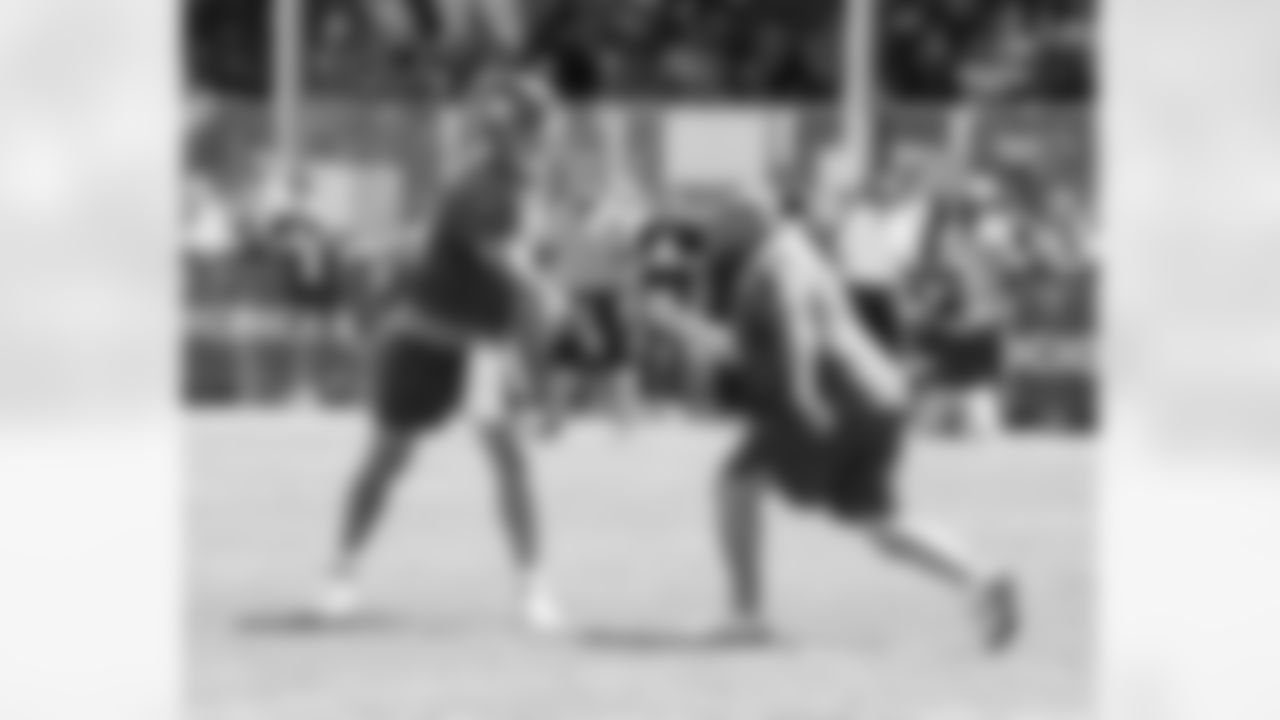
New York Giants Daniel Jones (8) celebrates a touchdown pass with head coach Brian Daboll during training camp practice at Quest Diagnostics Training Center on Saturday July 30, 2022 in East Rutherford, New Jersey
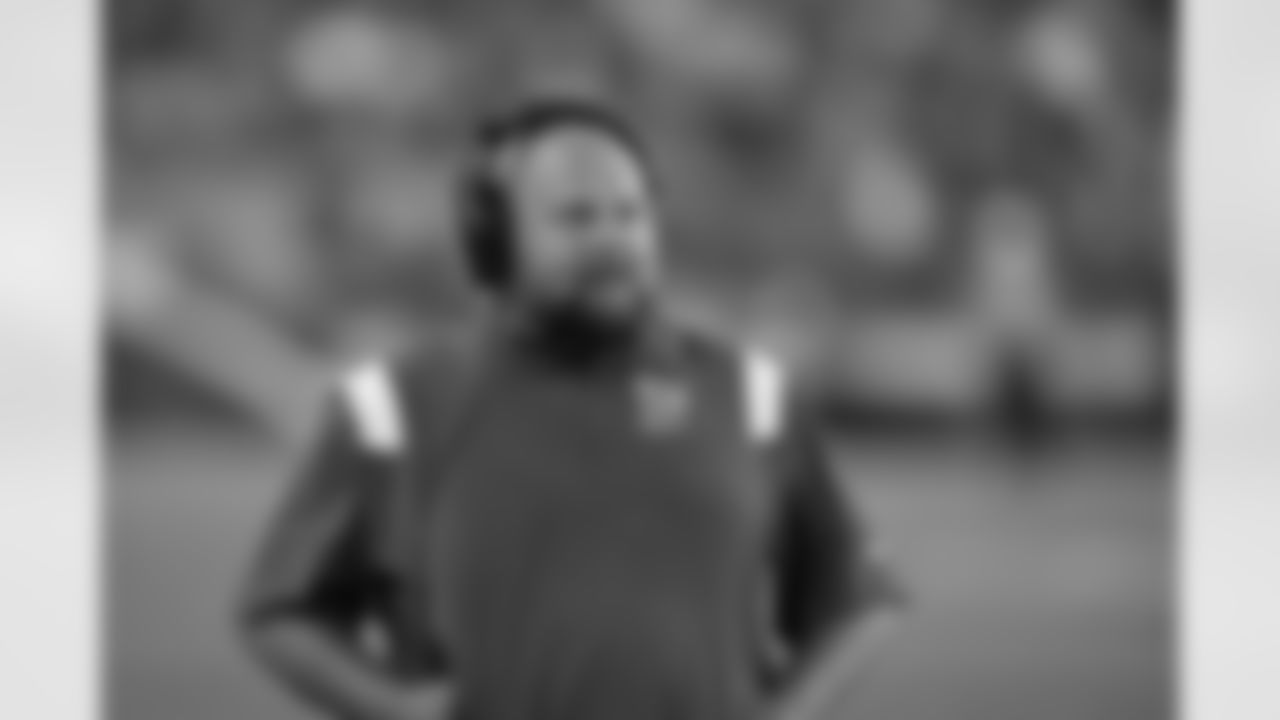
New York Giants head coach Brian Daboll during a preseason NFL football game against New England Patriots on Thursday August 11, 2022 in Foxborough, MA
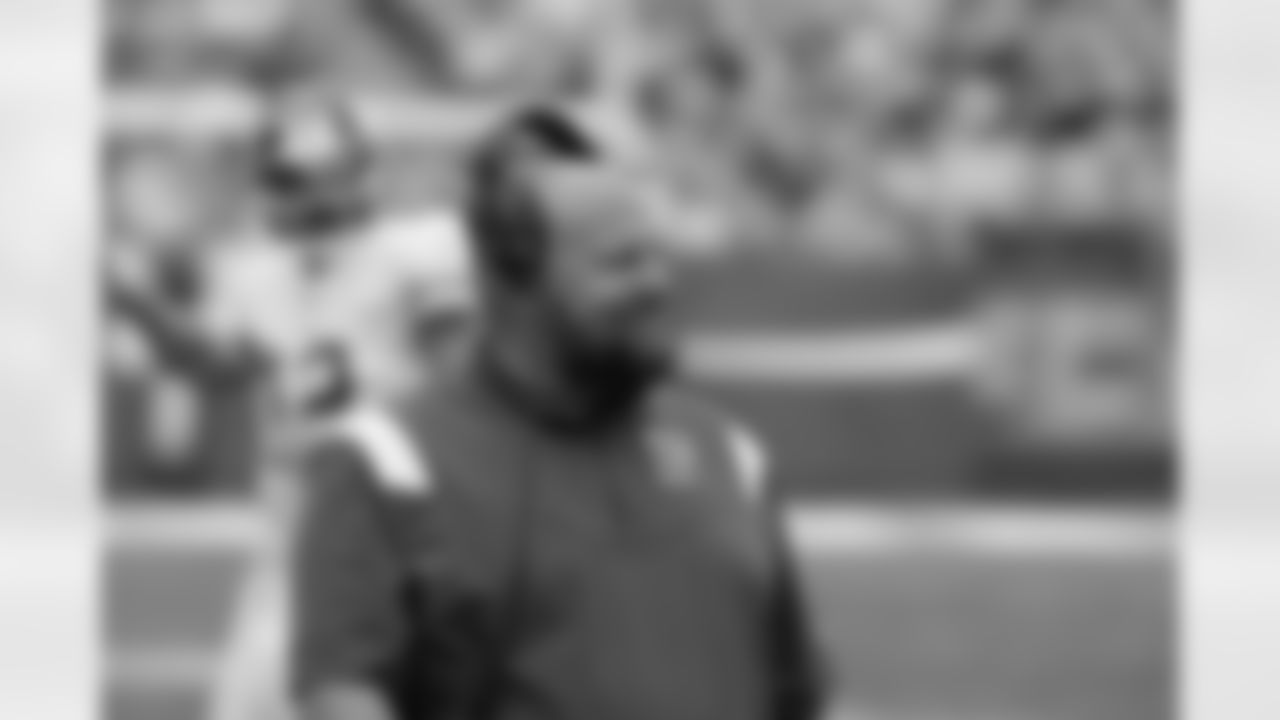
New York Giants head coach Brian Daboll during a pre-season football game against the New York Jets on Sunday August 28, 2022 in East Rutherford, New Jersey (Evan Pinkus/NY Giants)

New York Giants head coach Brian Daboll talks with general manager Joe Schoen and Shaun O'Hara during training camp practice at Quest Diagnostics Training Center on Saturday July 30, 2022 in East Rutherford, New Jersey

New York Giants head coach Brian Daboll talks to his team following training camp practice at Quest Diagnostics Training Center on Saturday July 30, 2022 in East Rutherford, New Jersey

New York Giants head coach Brian Daboll during a preseason NFL football game against New England Patriots on Thursday August 11, 2022 in Foxborough, MA

New York Giants head coach Brian Daboll during a pre-season football game against the New York Jets on Sunday August 28, 2022 in East Rutherford, New Jersey (Evan Pinkus/NY Giants)
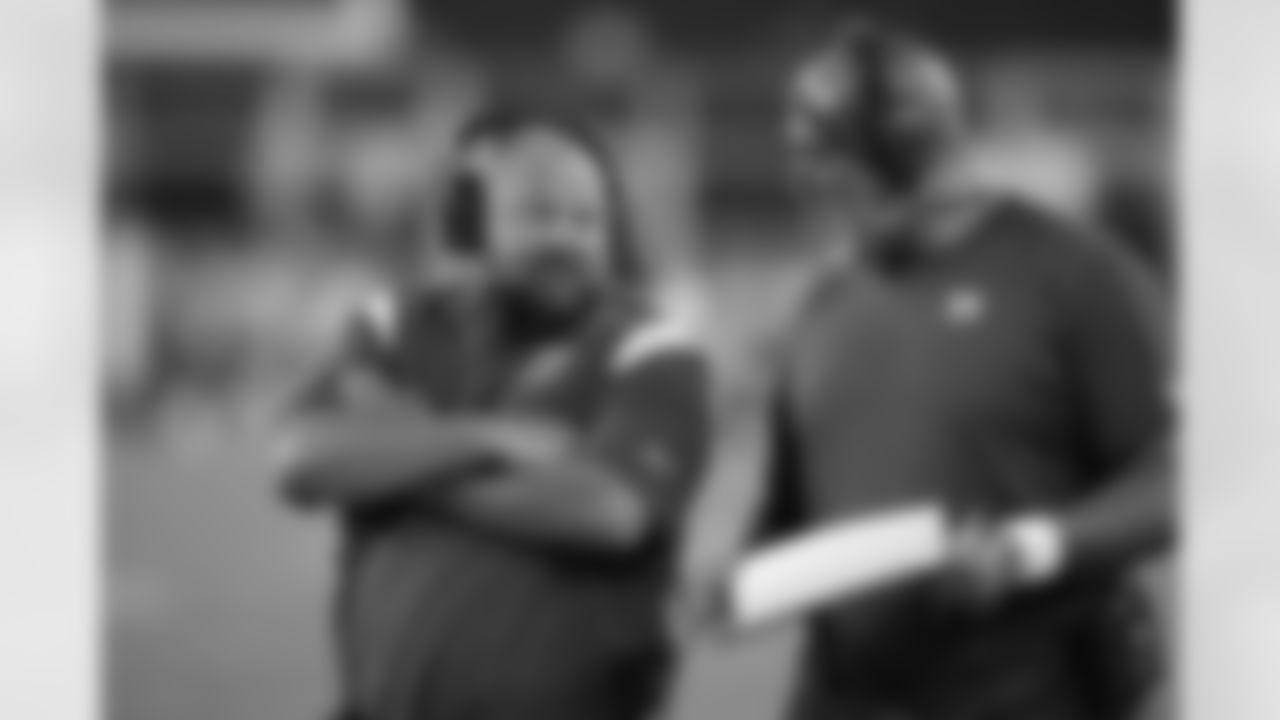
New York Giants head coach Brian Daboll talks with offensive line coach Bobby Johnson during a preseason NFL football game against New England Patriots on Thursday August 11, 2022 in Foxborough, MA

New York Giants quarterback Tyrod Taylor (2) talks with New York Giants head coach Brian Daboll during a preseason NFL football game against New England Patriots on Thursday August 11, 2022 in Foxborough, MA
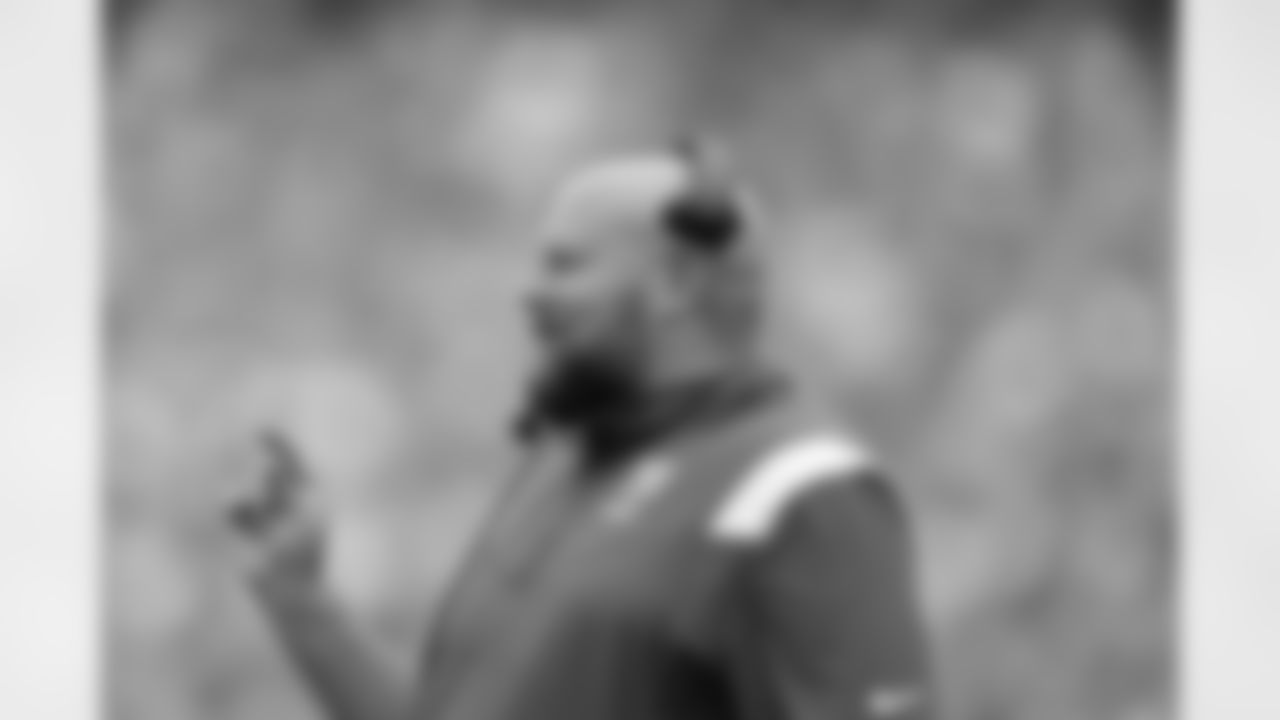
New York Giants head coach Brian Daboll during a pre-season football game against the New York Jets on Sunday August 28, 2022 in East Rutherford, New Jersey (Evan Pinkus/NY Giants)

New York Giants head coach Brian Daboll during a preseason NFL football game against New England Patriots on Thursday August 11, 2022 in Foxborough, MA

New York Giants head coach Brian Daboll during a preseason NFL football game against New England Patriots on Thursday August 11, 2022 in Foxborough, MA

New York Giants head coach Brian Daboll talks with Brandon Jacobs during training camp practice at Quest Diagnostics Training Center on Saturday July 30, 2022 in East Rutherford, New Jersey

Brian Daboll during organized team activity at Quest Diagnostics Training Center on Friday June 3, 2022 in East Rutherford, New Jersey

New York Giants head coach Brian Daboll during a preseason NFL football game against New England Patriots on Thursday August 11, 2022 in Foxborough, MA

Brian Daboll during organized team activity at Quest Diagnostics Training Center on Friday June 3, 2022 in East Rutherford, New Jersey

New York Giants head coach Brian Daboll during training camp practice at Quest Diagnostics Training Center on Saturday July 30, 2022 in East Rutherford, New Jersey
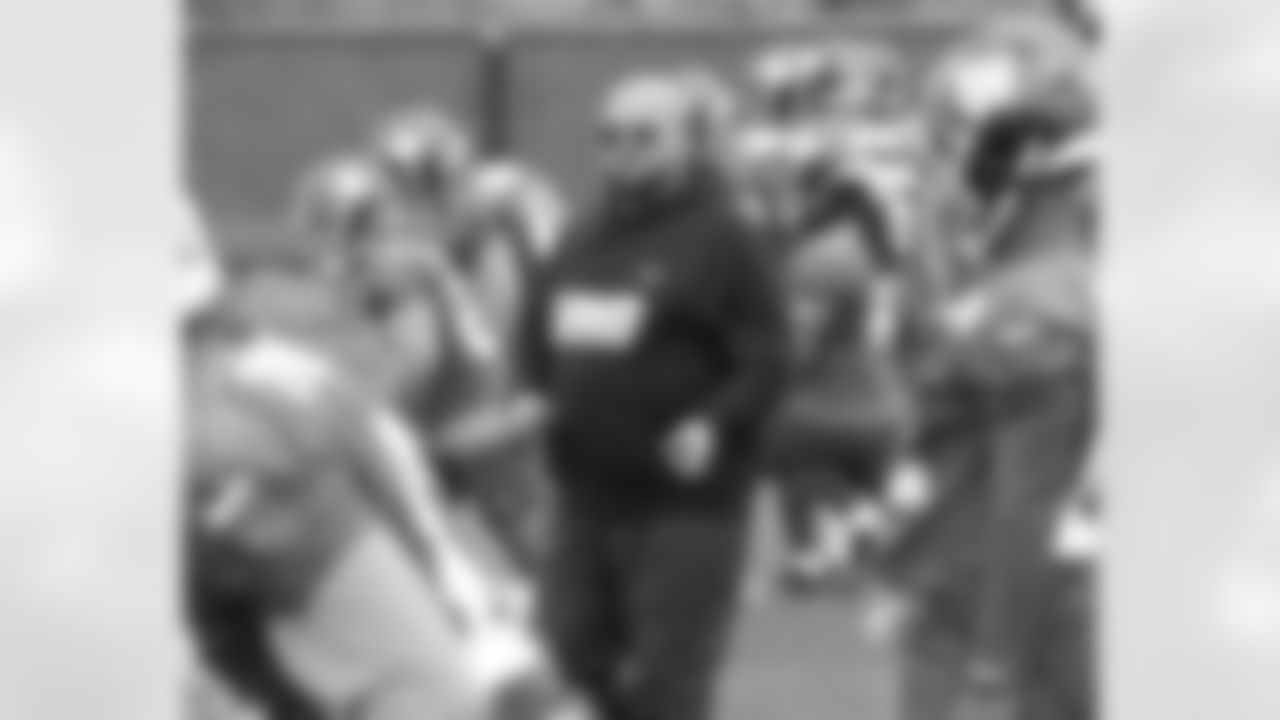
Brian Daboll during minicamp practice at Quest Diagnostics Training Center on Saturday May 14, 2022 in East Rutherford, New Jersey

New York Giants yea coach Brian Daboll talks to the offense in the huddle during organized team activity at Quest Diagnostics Training Center on Friday June 3, 2022 in East Rutherford, New Jersey

New York Giants head coach Brian Daboll during a preseason NFL football game against New England Patriots on Thursday August 11, 2022 in Foxborough, MA
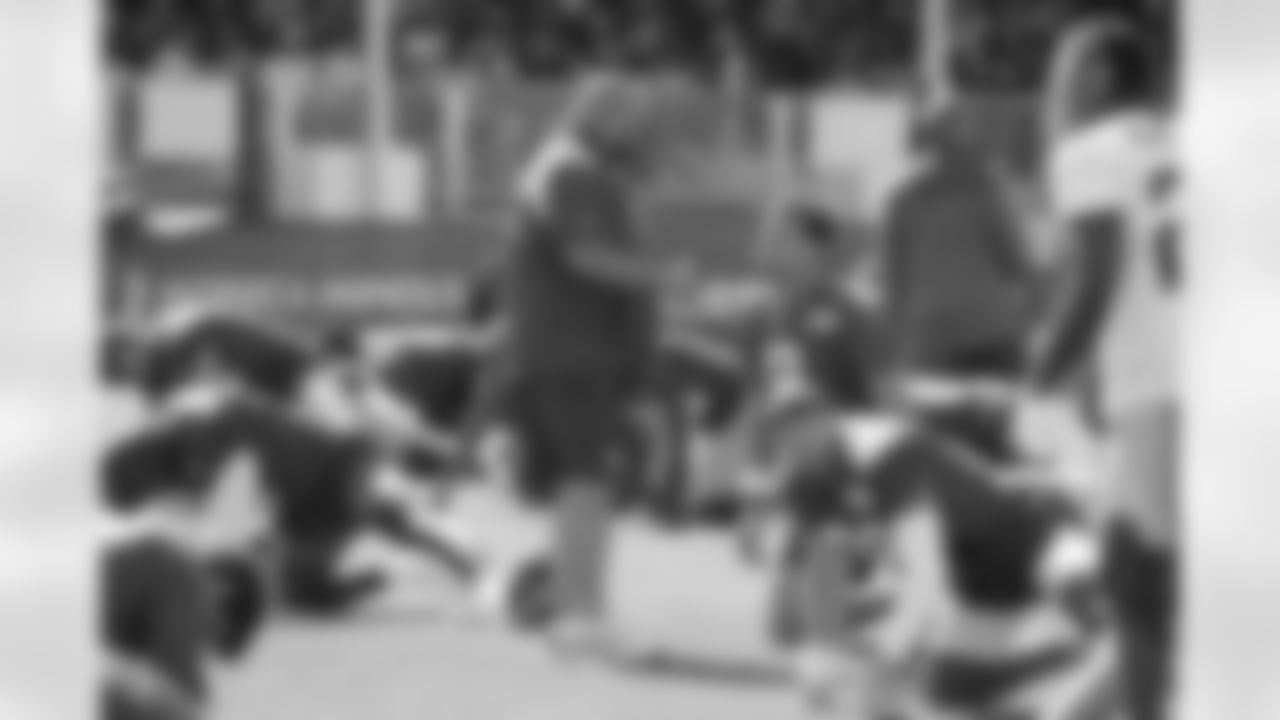
New York Giants head coach Brian Daboll talks with quarterback Daniel Jones during training camp practice at Quest Diagnostics Training Center on Saturday July 30, 2022 in East Rutherford, New Jersey
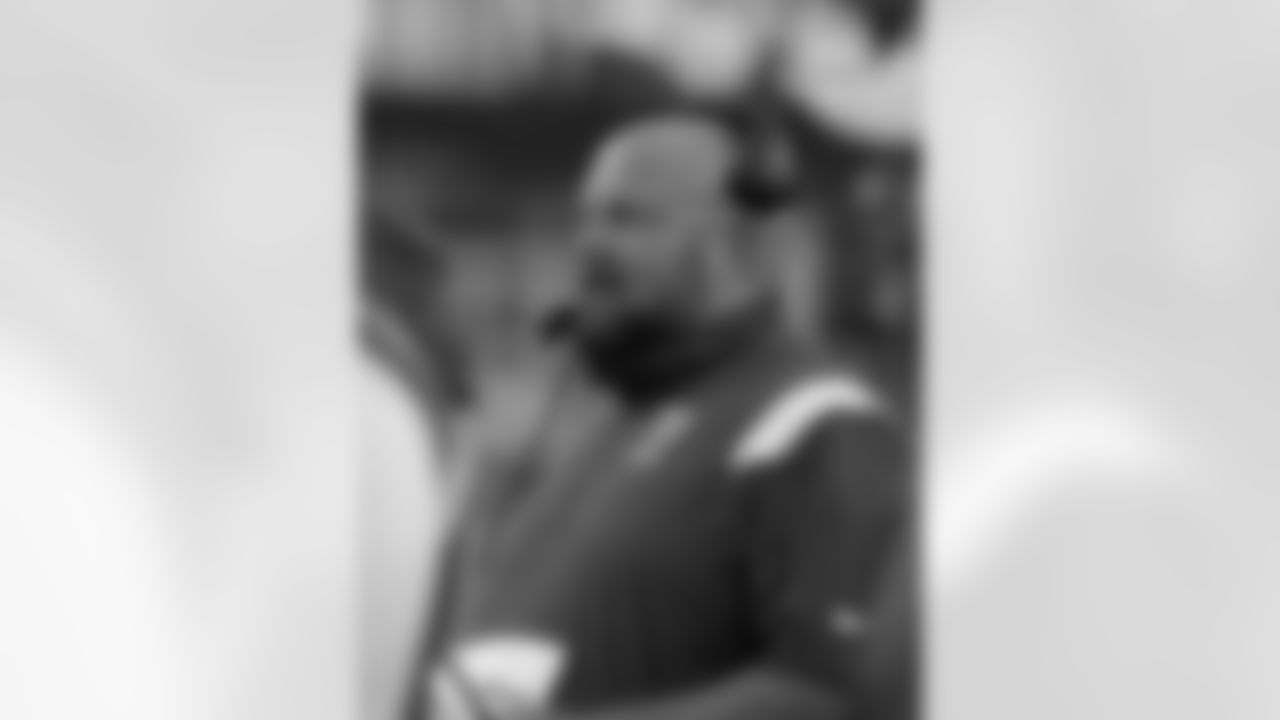
New York Giants head coach Brian Daboll during a preseason NFL football game against New England Patriots on Thursday August 11, 2022 in Foxborough, MA
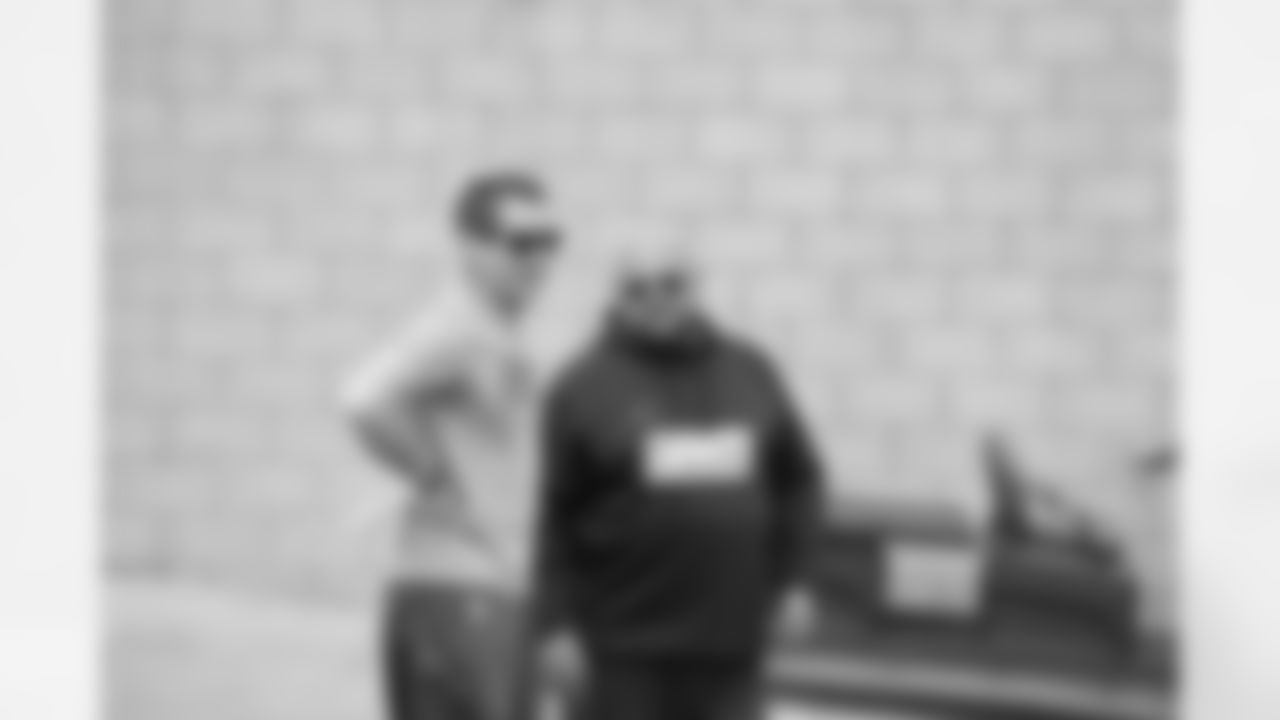
New York Giants head coach Brian Daboll talks with Joe Schoen during organized team activity at Quest Diagnostics Training Center on Friday June 3, 2022 in East Rutherford, New Jersey
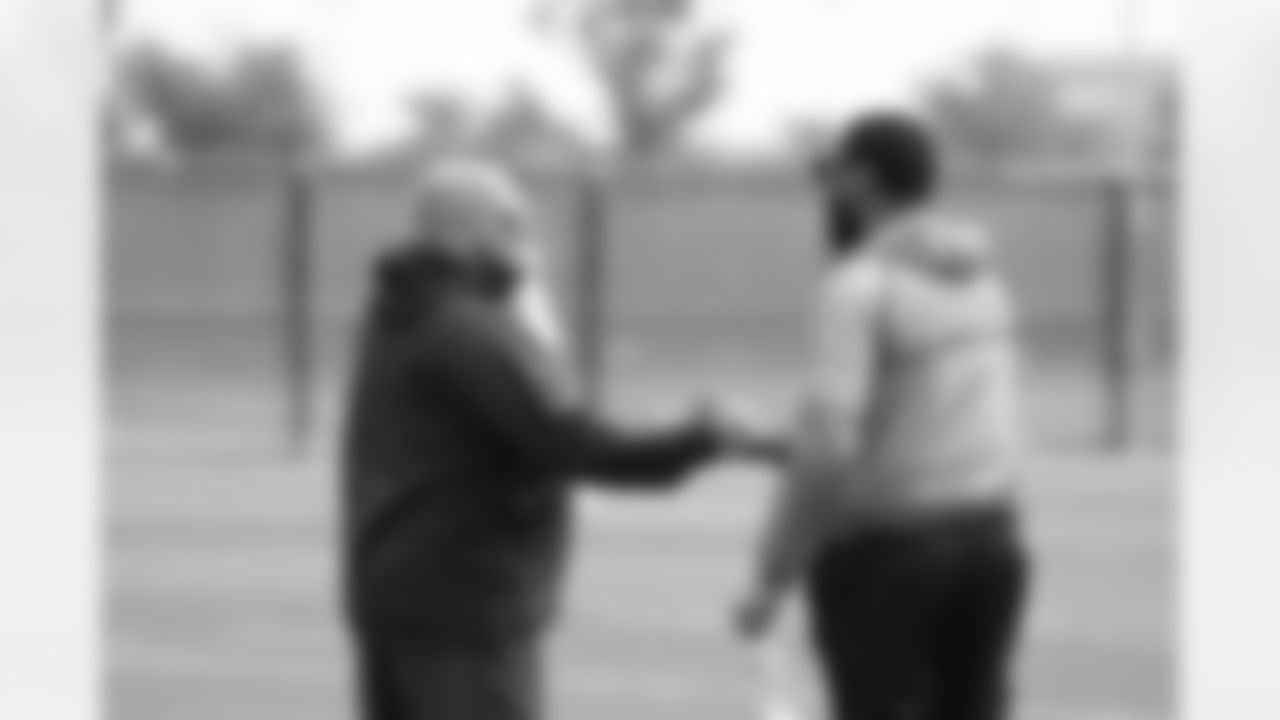
Brian Daboll and Mario Manningham shake during organized team activity at Quest Diagnostics Training Center on Friday June 3, 2022 in East Rutherford, New Jersey

Brian Daboll and Joe Schoen talk during organized team activity at Quest Diagnostics Training Center on Friday June 3, 2022 in East Rutherford, New Jersey
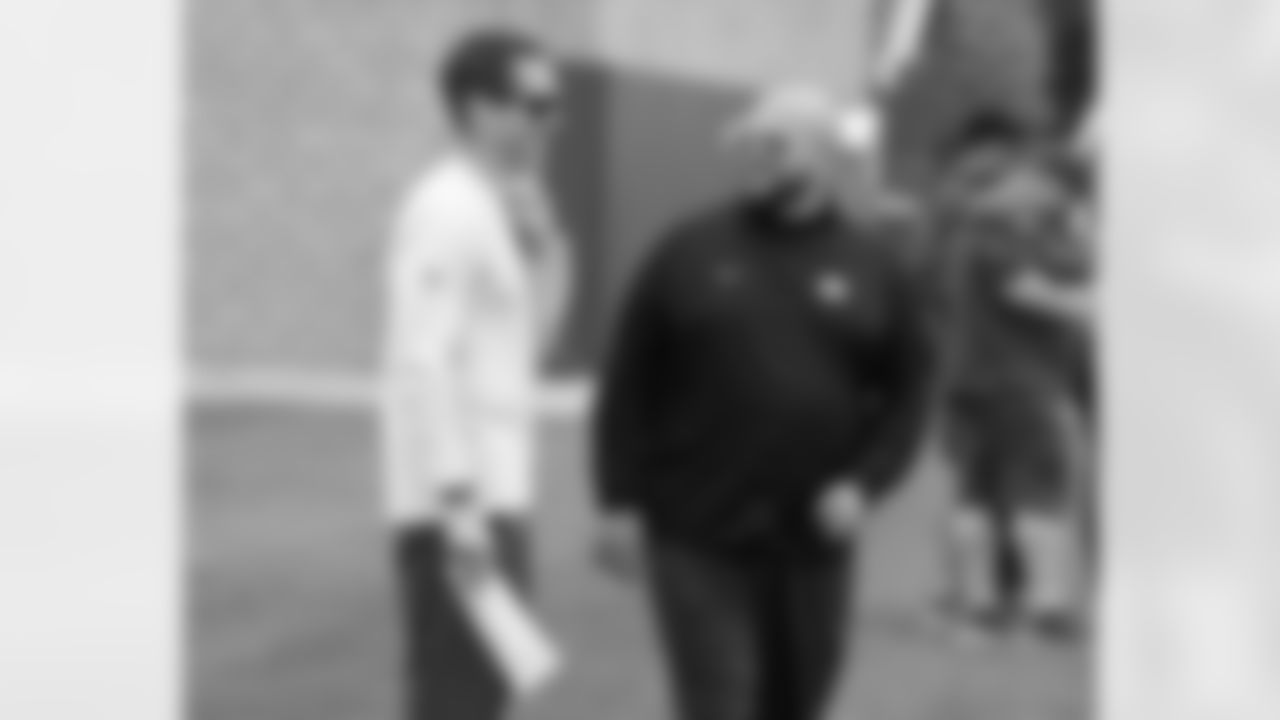
Joe Schoen talks with Brian Daboll during minicamp practice at Quest Diagnostics Training Center on Friday May 13, 2022 in East Rutherford, New Jersey
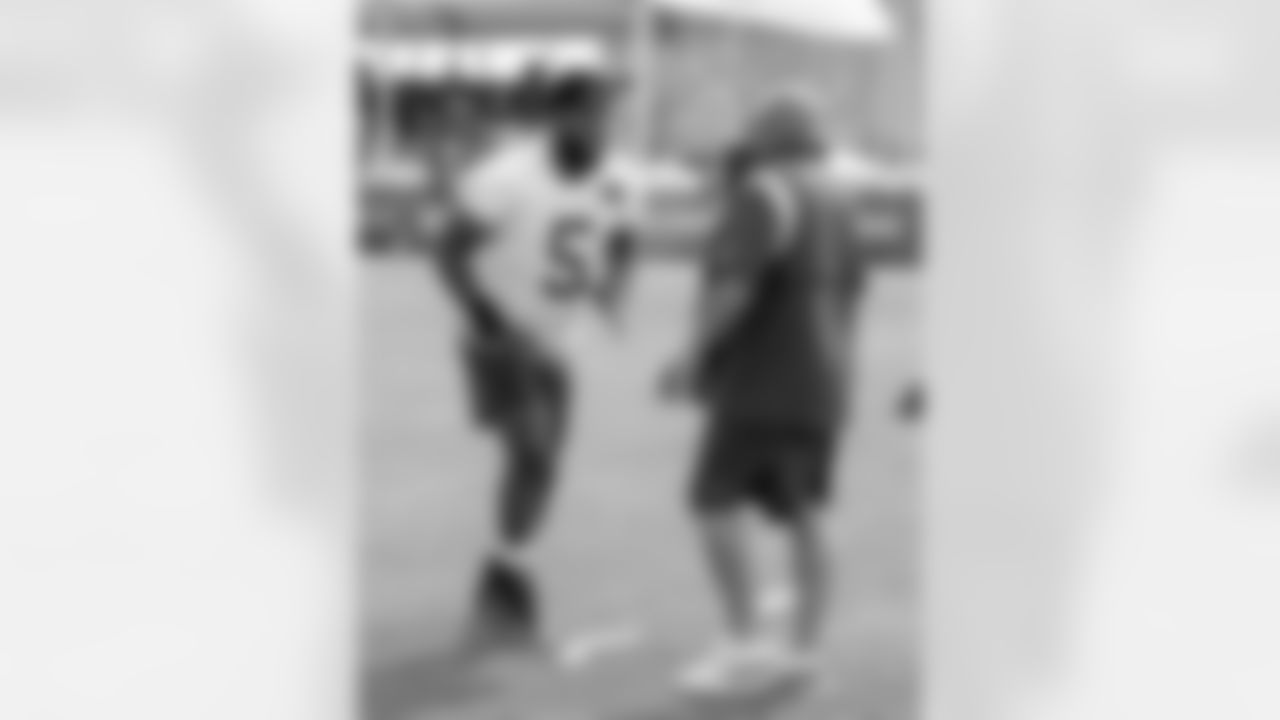
New York Giants' Kayvon Thibodeaux (50 talks with New York Giants head coach Brian Daboll during training camp practice at Quest Diagnostics Training Center on Thursday July 28, 2022 in East Rutherford, New Jersey
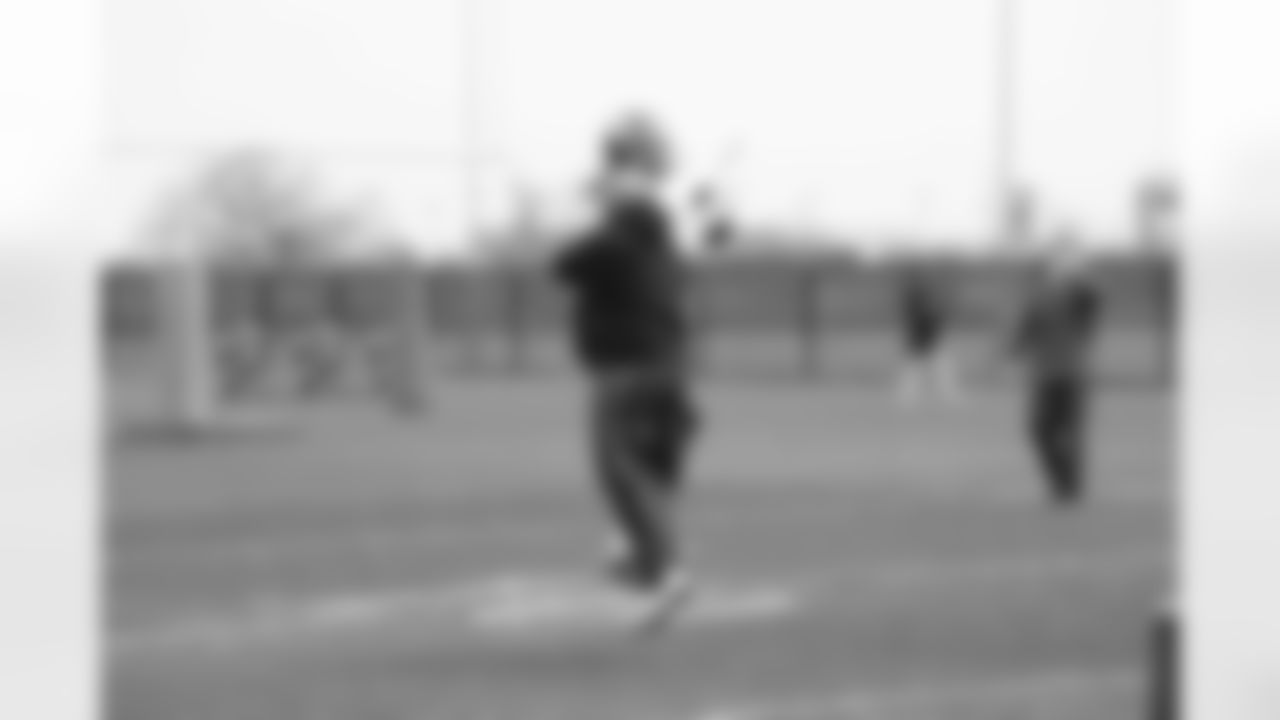
New York Giants head coach Brian Daboll celebrates an interception with safety Xavier McKinney during minicamp practice at Quest Diagnostics Training Center on Tuesday April 21, 2022 in East Rutherford, New Jersey

New York Giants head coach Brian Daboll during a preseason NFL football game against New England Patriots on Thursday August 11, 2022 in Foxborough, MA
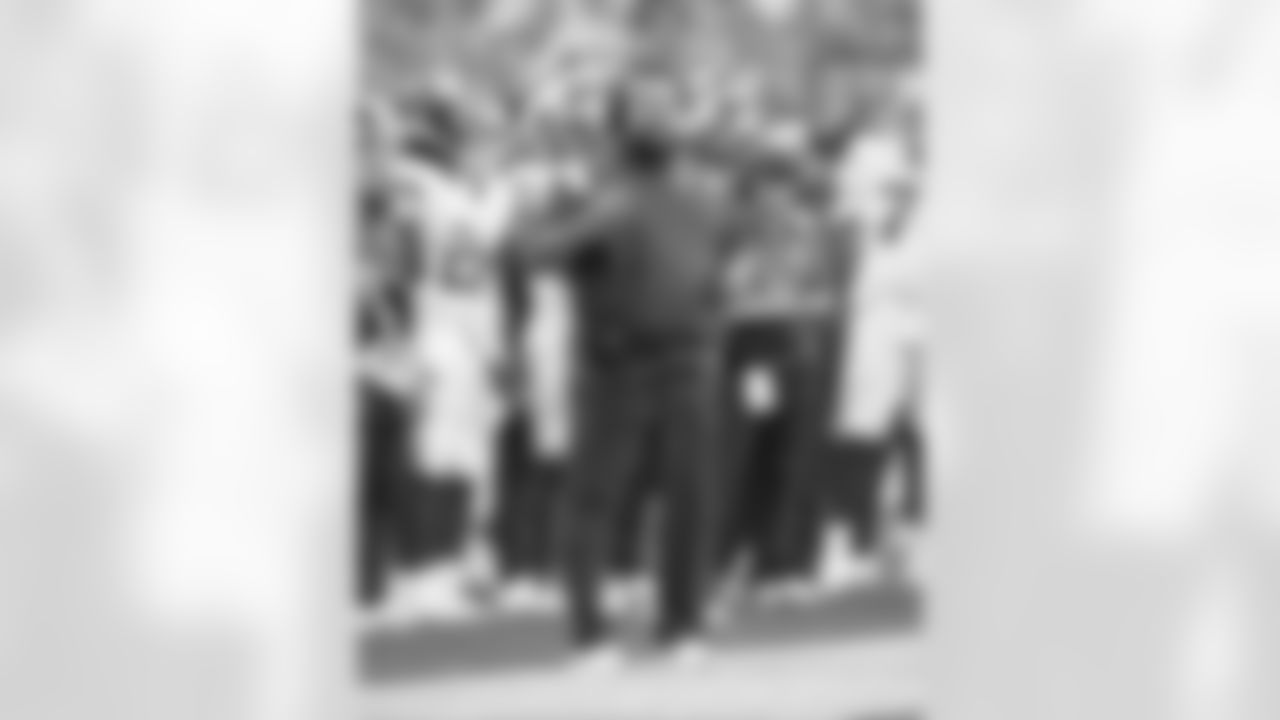
New York Giants head coach Brian Daboll during a preseason NFL football game against New England Patriots on Thursday August 11, 2022 in Foxborough, MA
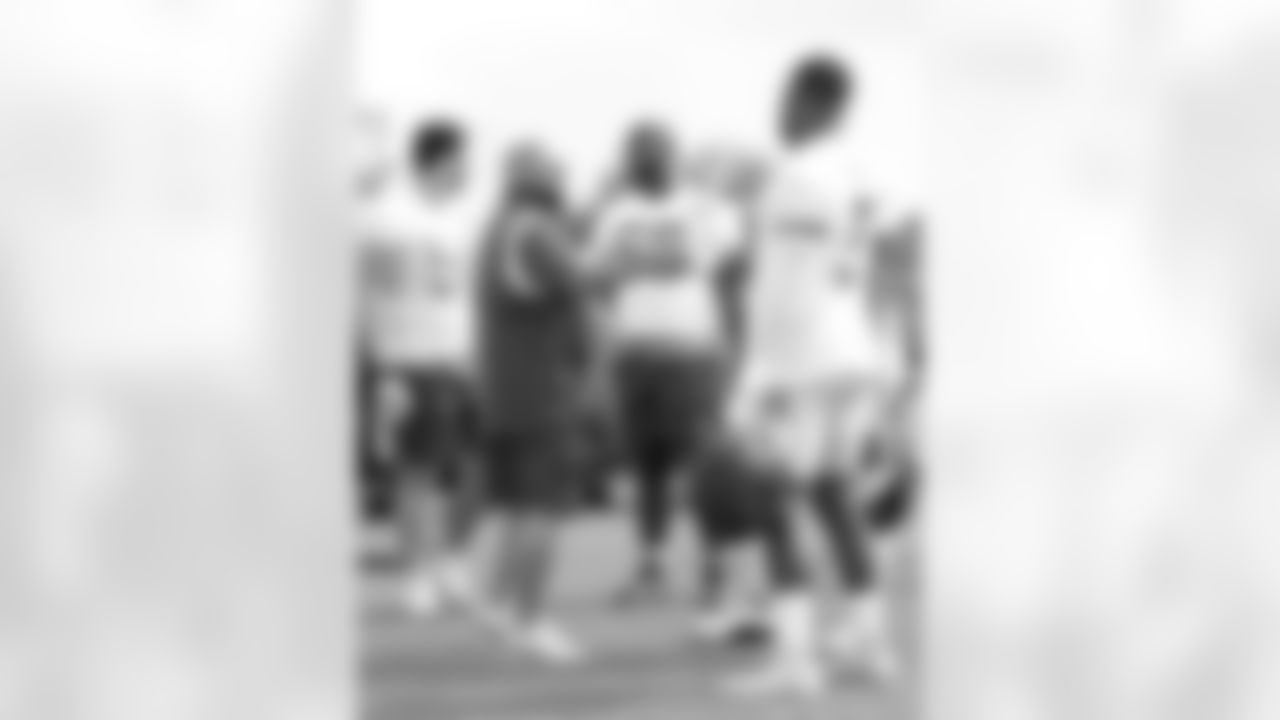
New York Giants head coach Brian Daboll shakes with Jalyn Holmes (91) during training camp practice at Quest Diagnostics Training Center on Thursday July 28, 2022 in East Rutherford, New Jersey
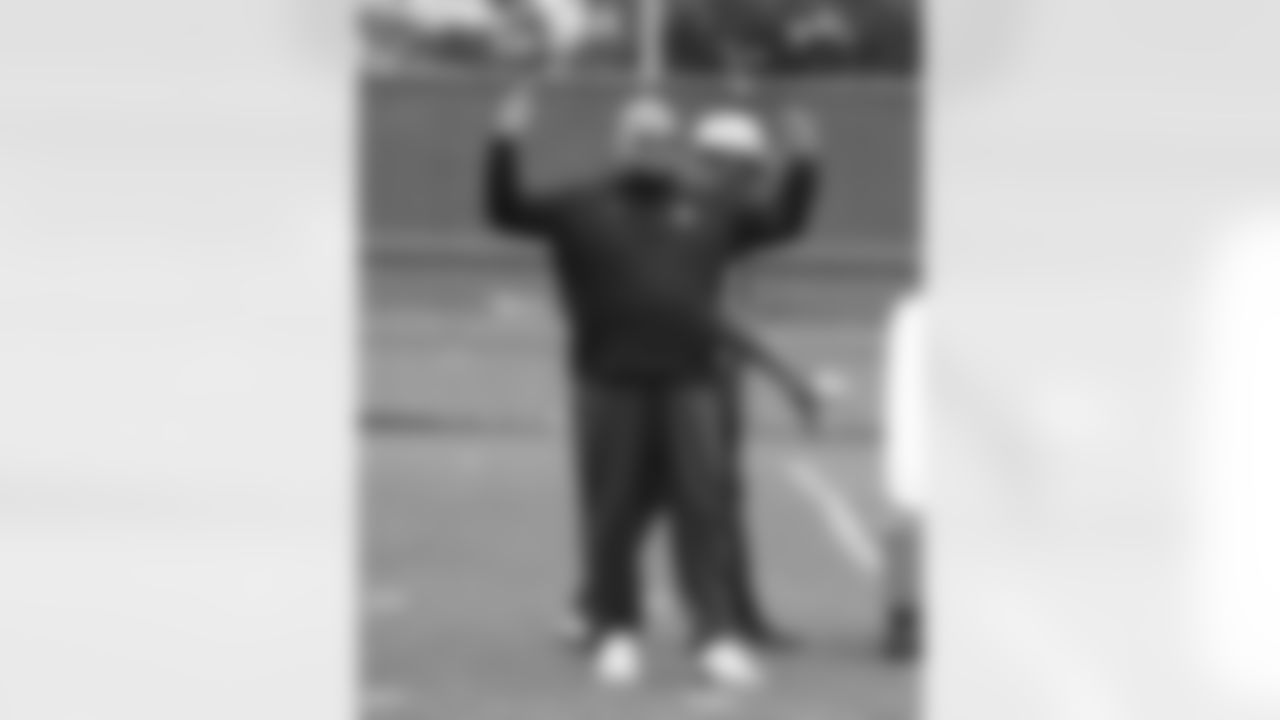
New York Giants head coach Brian Daboll during organized team activity at Quest Diagnostics Training Center on Thursday June 2, 2022 in East Rutherford, New Jersey
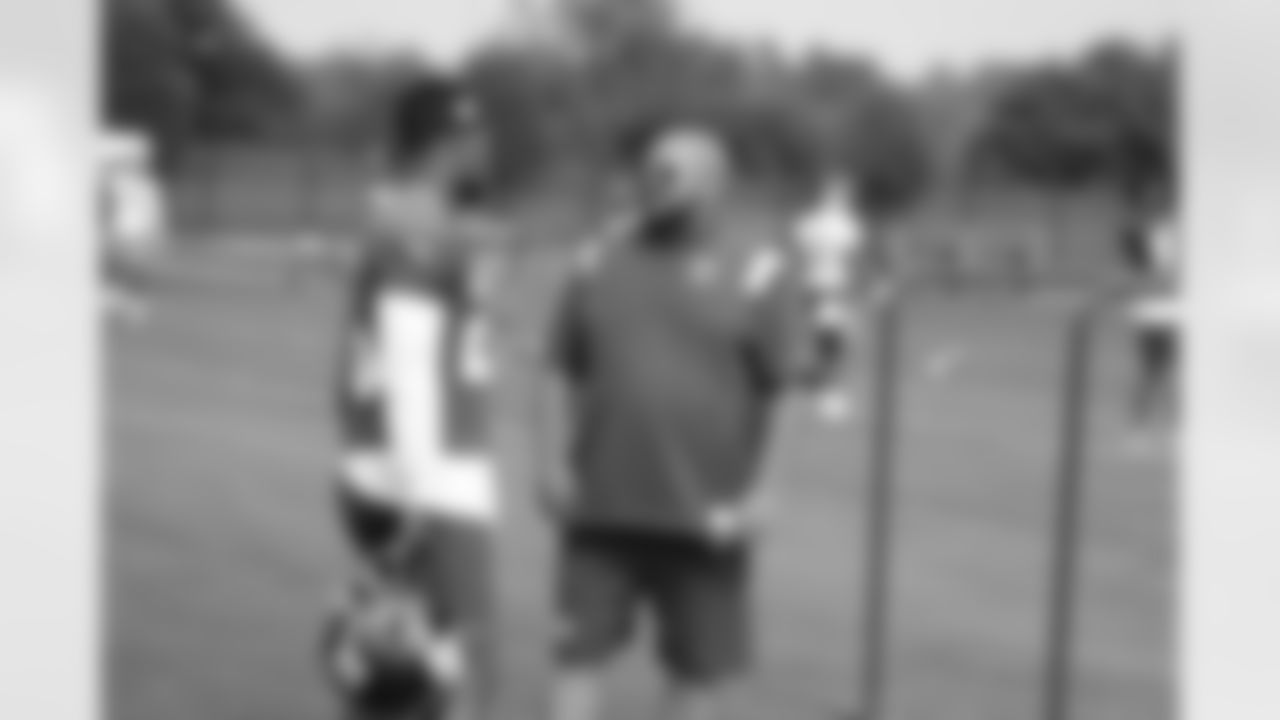
New York Giants head coach Brian Daboll talks with running back Saquon Barkley (26) during training camp practice at Quest Diagnostics Training Center on Thursday July 28, 2022 in East Rutherford, New Jersey
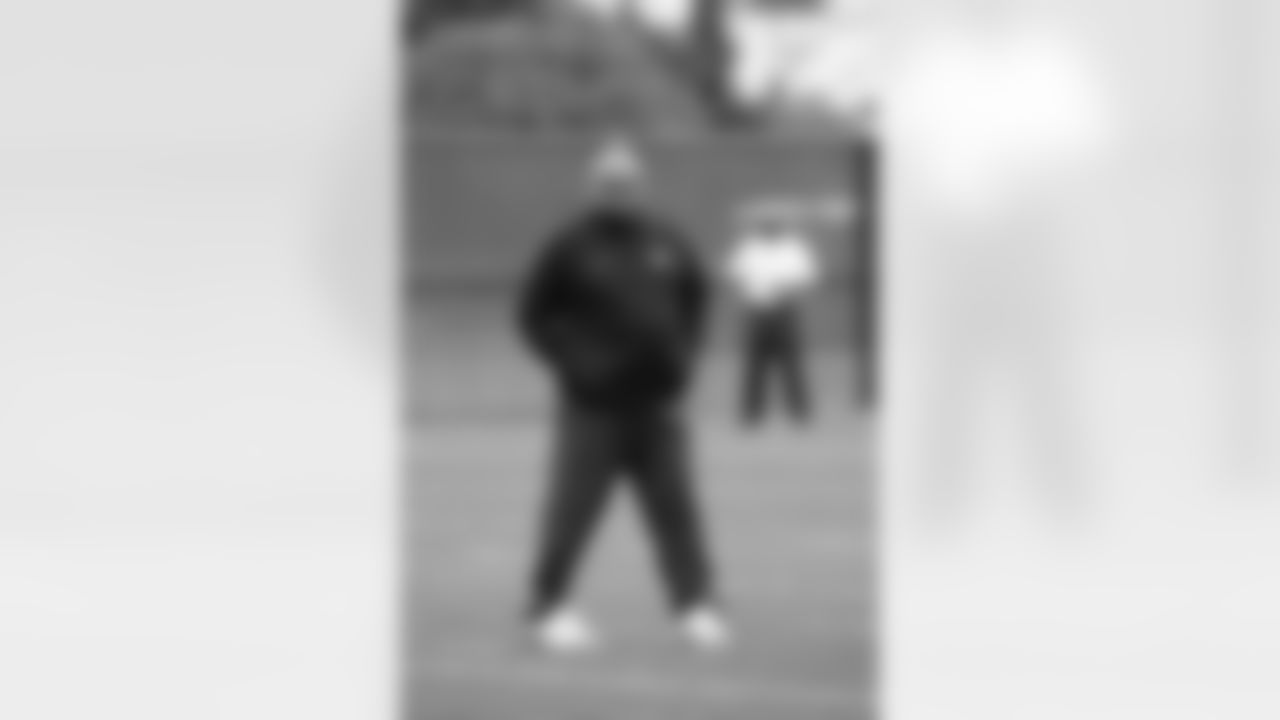
New York Giants head coach Brian Daboll during organized team activity at Quest Diagnostics Training Center on Thursday June 2, 2022 in East Rutherford, New Jersey
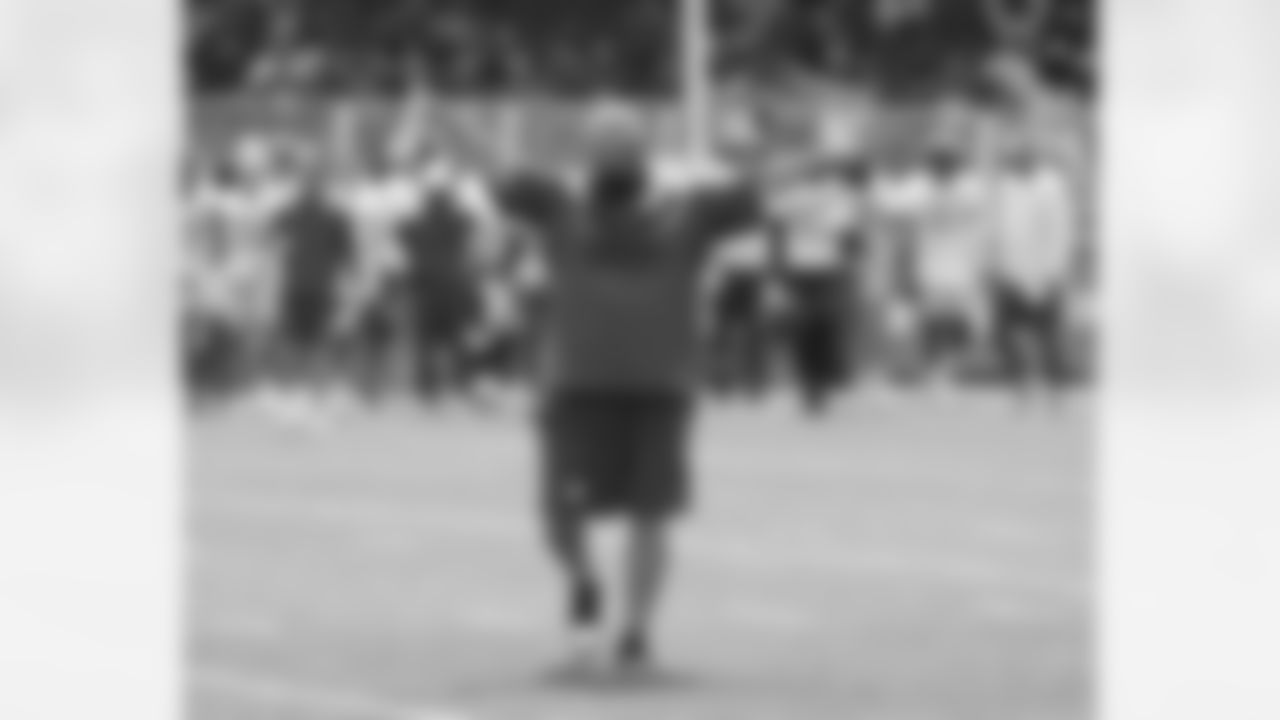
New York Giants head coach Brian Daboll during training camp practice at Quest Diagnostics Training Center on Wednesday July 27, 2022 in East Rutherford, New Jersey
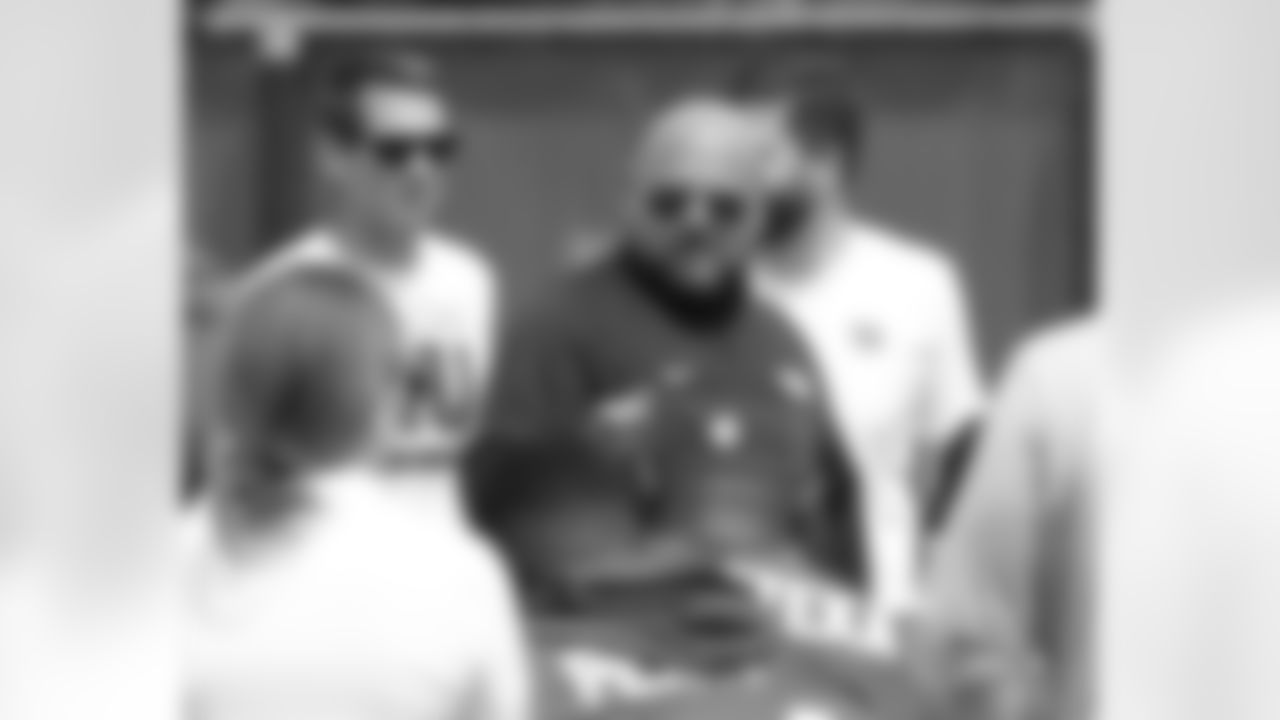
New York Giants head coach Brian Daboll talks to his team during organized team activity at Quest Diagnostics Training Center on Thursday June 2, 2022 in East Rutherford, New Jersey

New York Giants quarterback Daniel Jones (8) talks with head coach Brian Daboll before a preseason NFL football game against New England Patriots on Thursday August 11, 2022 in Foxborough, MA

New York Giants head coach Brian Daboll talks quaterback Daniel Jones during training camp practice at Quest Diagnostics Training Center on Friday July 29, 2022 in East Rutherford, New Jersey
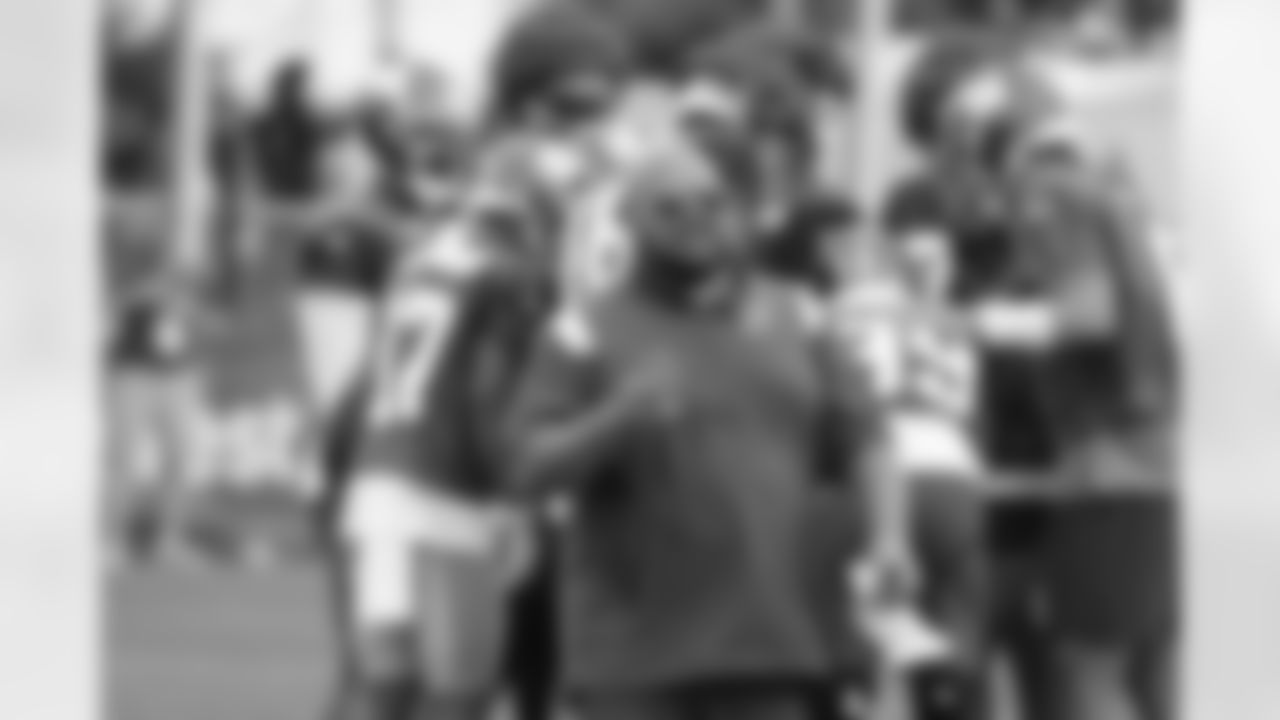
New York Giants head coach Brian Daboll during training camp practice at Quest Diagnostics Training Center on Friday July 29, 2022 in East Rutherford, New Jersey
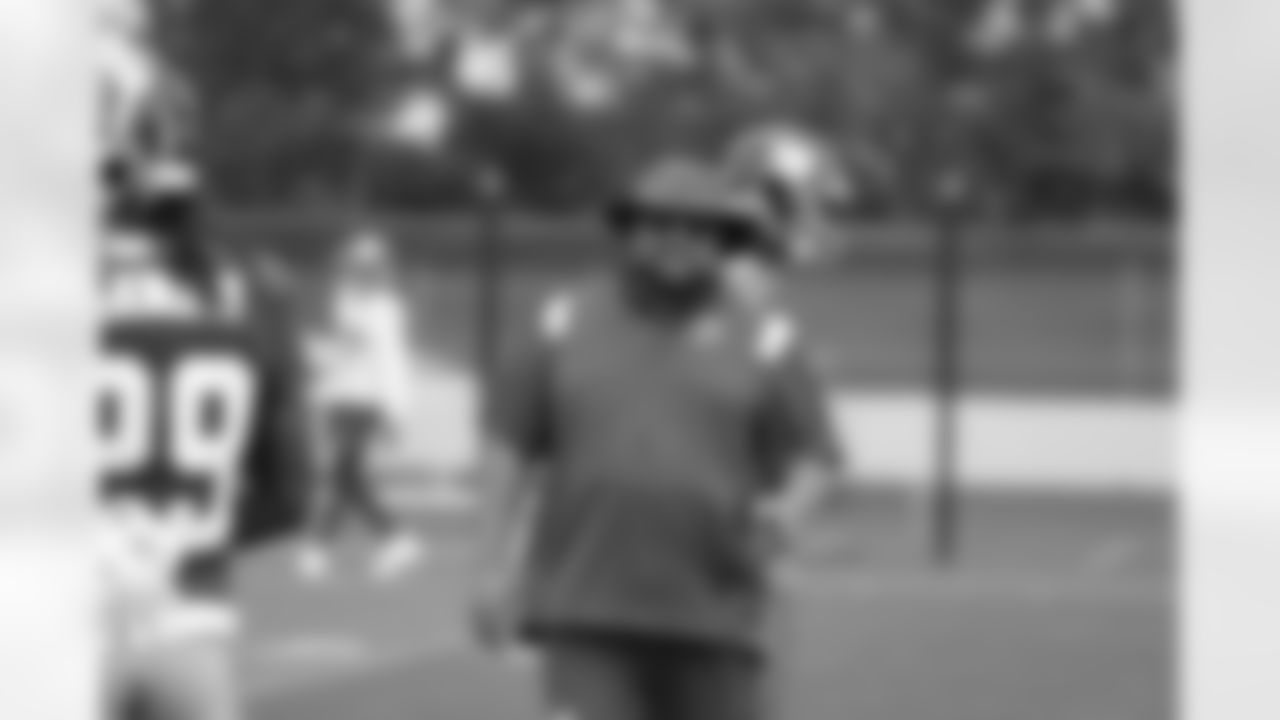
New York Giants head coach Brian Daboll during training camp practice at Quest Diagnostics Training Center on Friday August 26, 2022 in East Rutherford, New Jersey

Head coach Brian Daboll during minicamp practice at Quest Diagnostics Training Center on Tuesday April 20, 2022 in East Rutherford, New Jersey
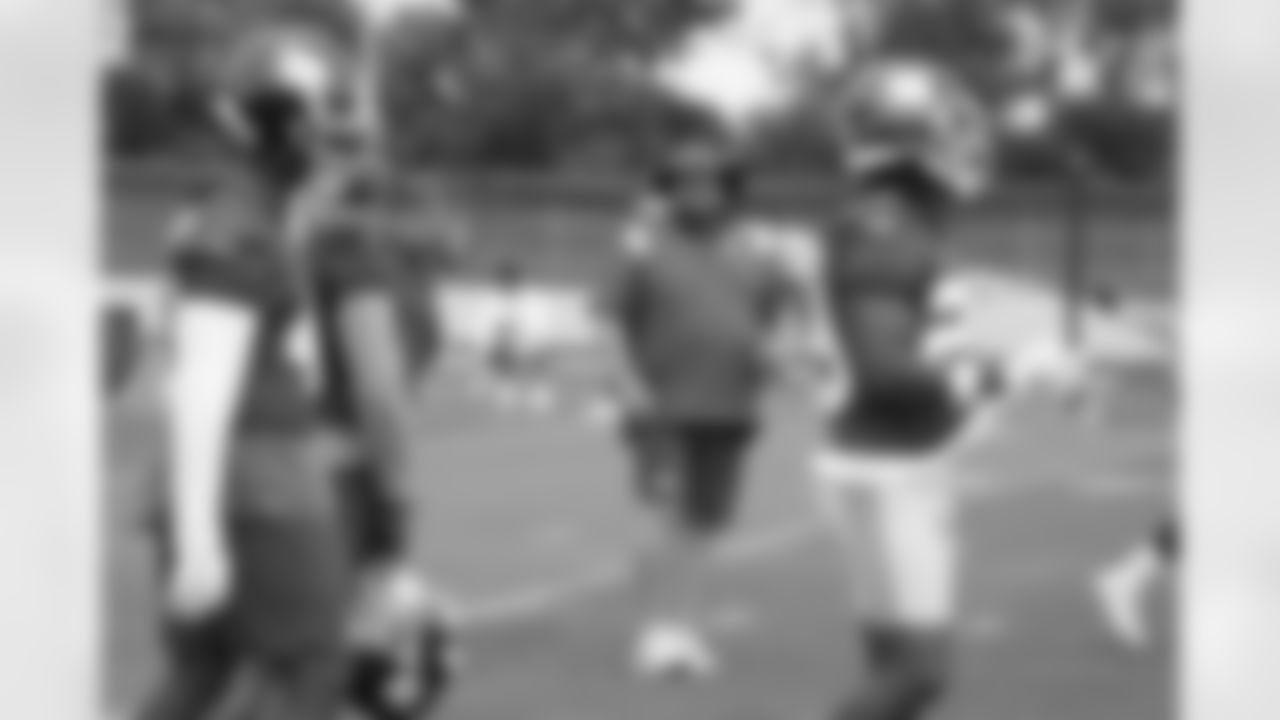
New York Giants head coach Brian Daboll during training camp practice at Quest Diagnostics Training Center on Friday August 26, 2022 in East Rutherford, New Jersey

New York Giants head coach Brian Daboll during a pre-season football game against the New York Jets on Sunday August 28, 2022 in East Rutherford, New Jersey (Evan Pinkus/NY Giants)
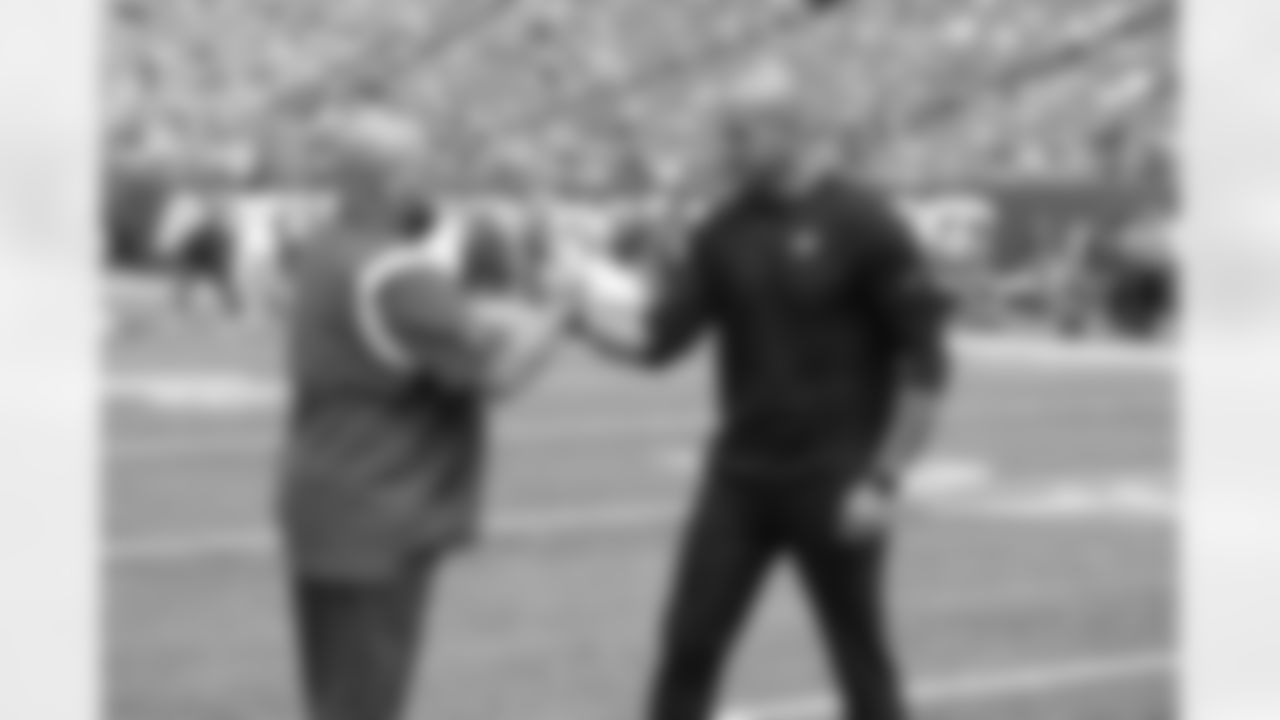
New York Giants head coach Brian Daboll talks with New York Jets head coach Robert Saleh before a pre-season football game against the New York Jets on Sunday August 28, 2022 in East Rutherford, New Jersey (Evan Pinkus/NY Giants)

New York Giants head coach Brian Daboll talks with defensive coordinator Don Martindale during training camp practice at Quest Diagnostics Training Center on Tuesday August 9, 2022 in East Rutherford, New Jersey

New York Giants General Manager Joe Schoen and head coach Brian Daboll pose for a photo with first round draft pick Evan Neal during a press conference at Quest Diagnostics Training Center on Saturday April 30, 2022 in East Rutherford, New Jersey
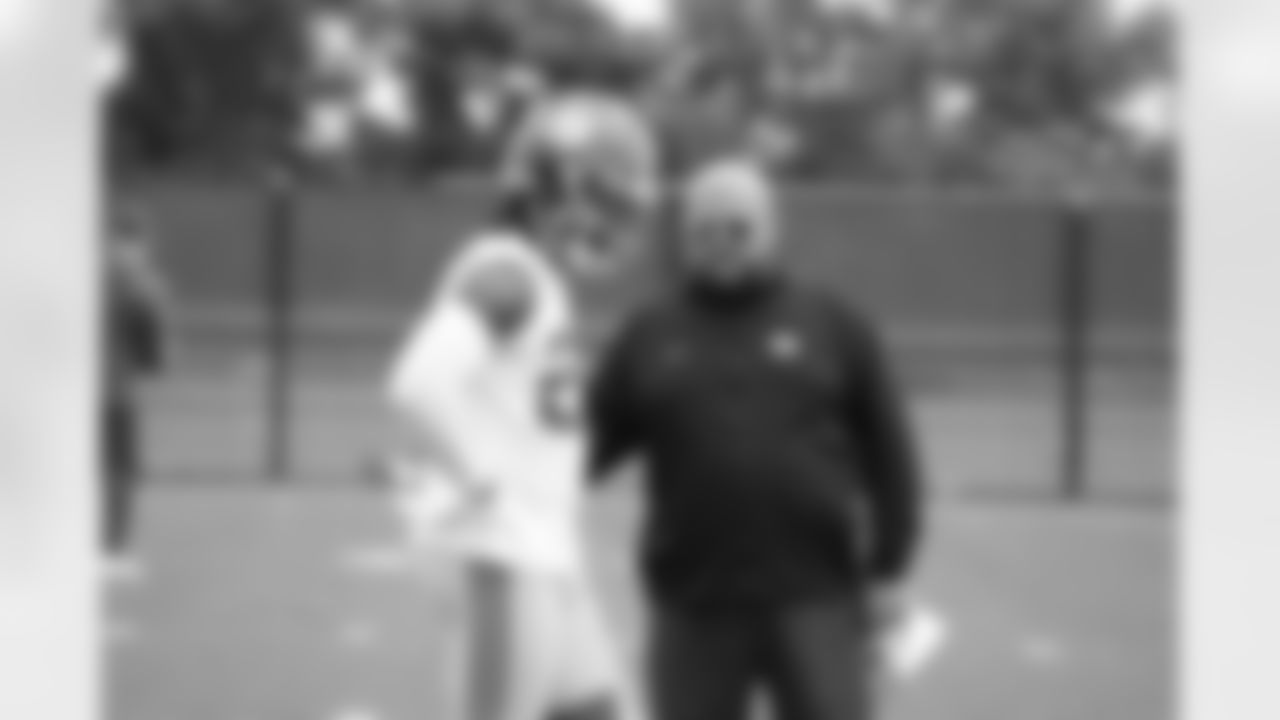
New York Giants head coach Brian Daboll talks with safety Xavier McKinney (29) during organized team activity at Quest Diagnostics Training Center on Thursday June 2, 2022 in East Rutherford, New Jersey

New York Giants head coach Brian Daboll during training camp practice at Quest Diagnostics Training Center on Tuesday August 9, 2022 in East Rutherford, New Jersey
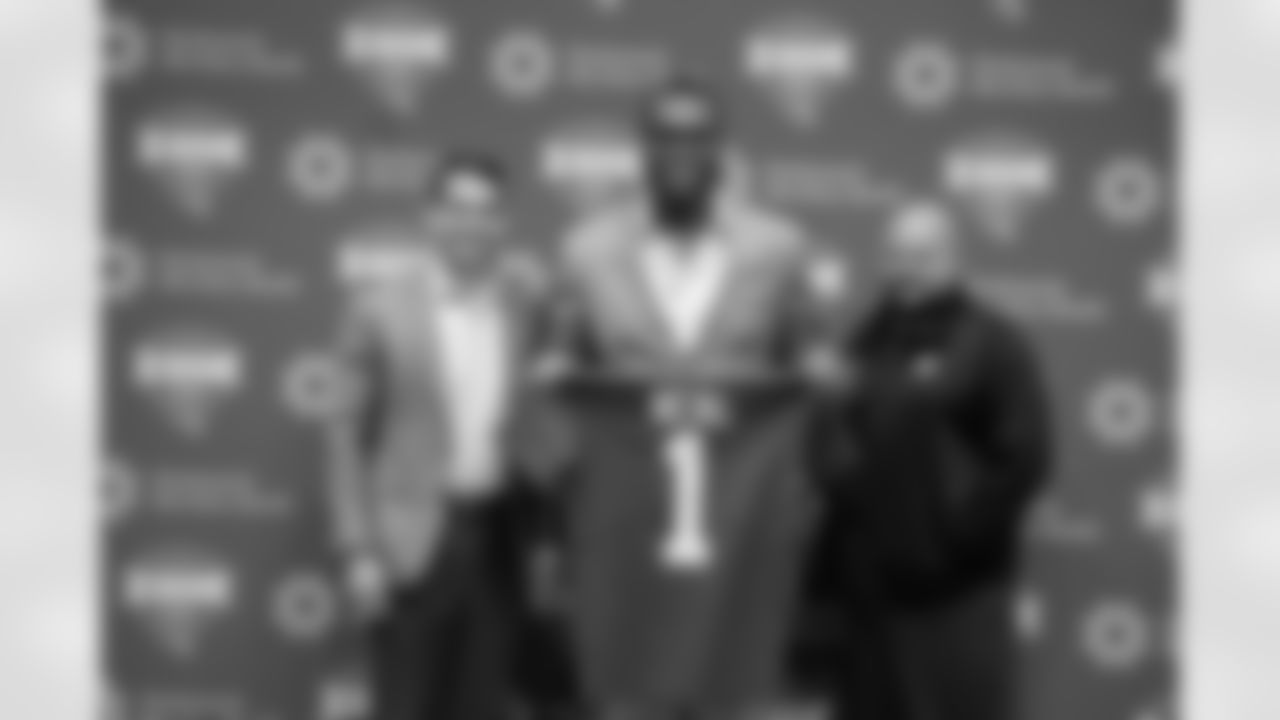
New York Giants General Manager Joe Schoen and head coach Brian Daboll pose for a photo with first round draft pick Evan Neal during a press conference at Quest Diagnostics Training Center on Saturday April 30, 2022 in East Rutherford, New Jersey
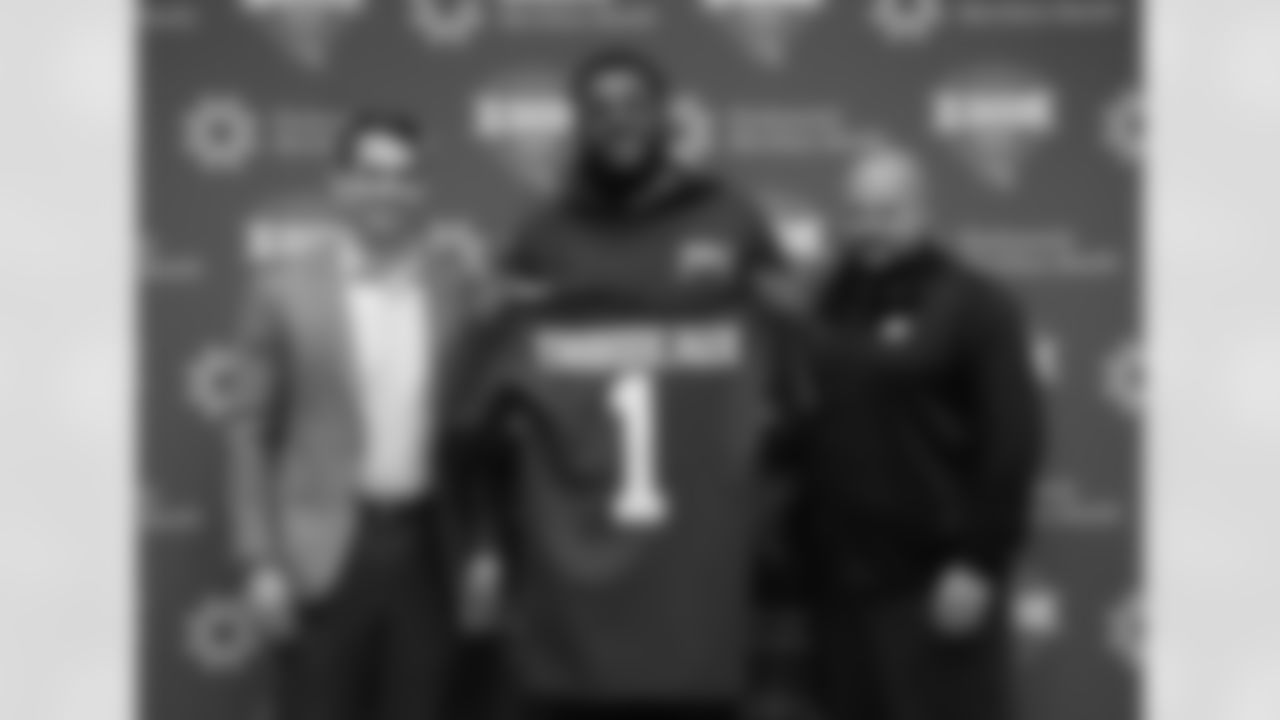
New York Giants General Manager Joe Schoen and head coach Brian Daboll pose for a photo with first round draft pick Kavon Thibodeaux during a press conference at Quest Diagnostics Training Center on Saturday April 30, 2022 in East Rutherford, New Jersey
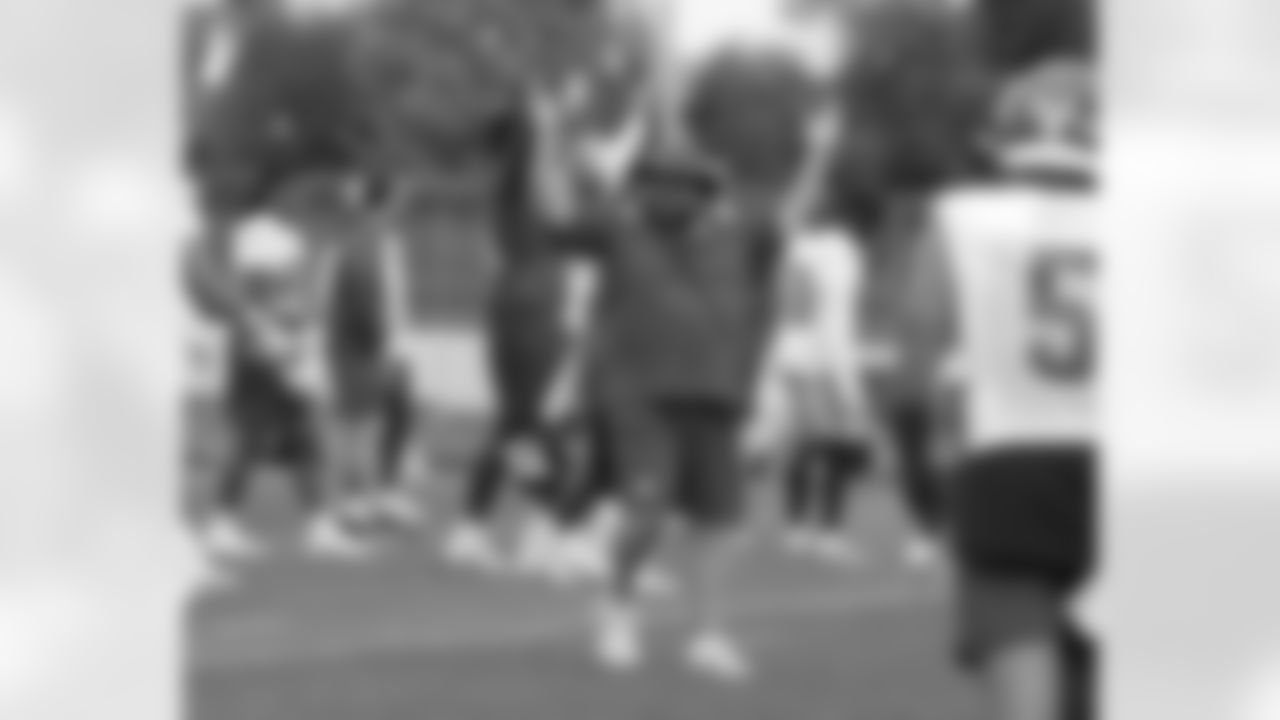
New York Giants head coach Brian Daboll signals touchdown during training camp practice at Quest Diagnostics Training Center on Friday August 26, 2022 in East Rutherford, New Jersey
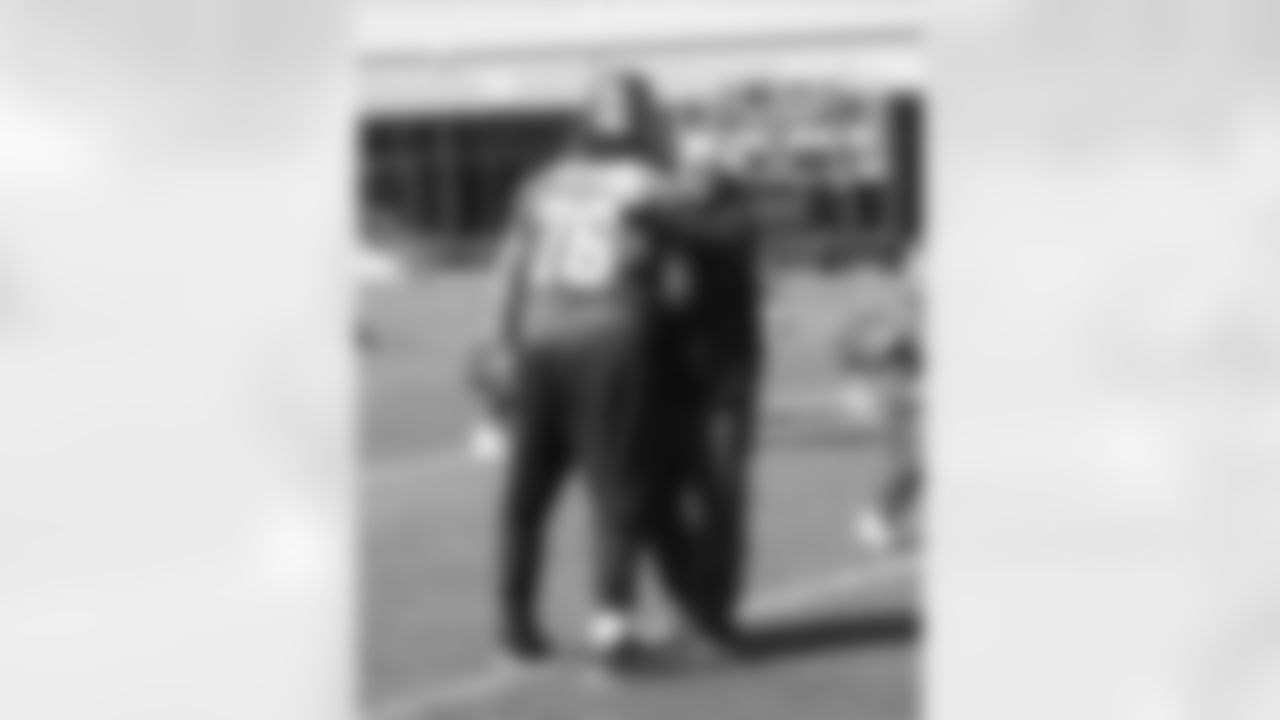
New York Giants center Joe Feliciano (76) gets a hug from head coach Brian Daboll during minicamp practice at Quest Diagnostics Training Center on Wednesday April 20, 2022 in East Rutherford, New Jersey
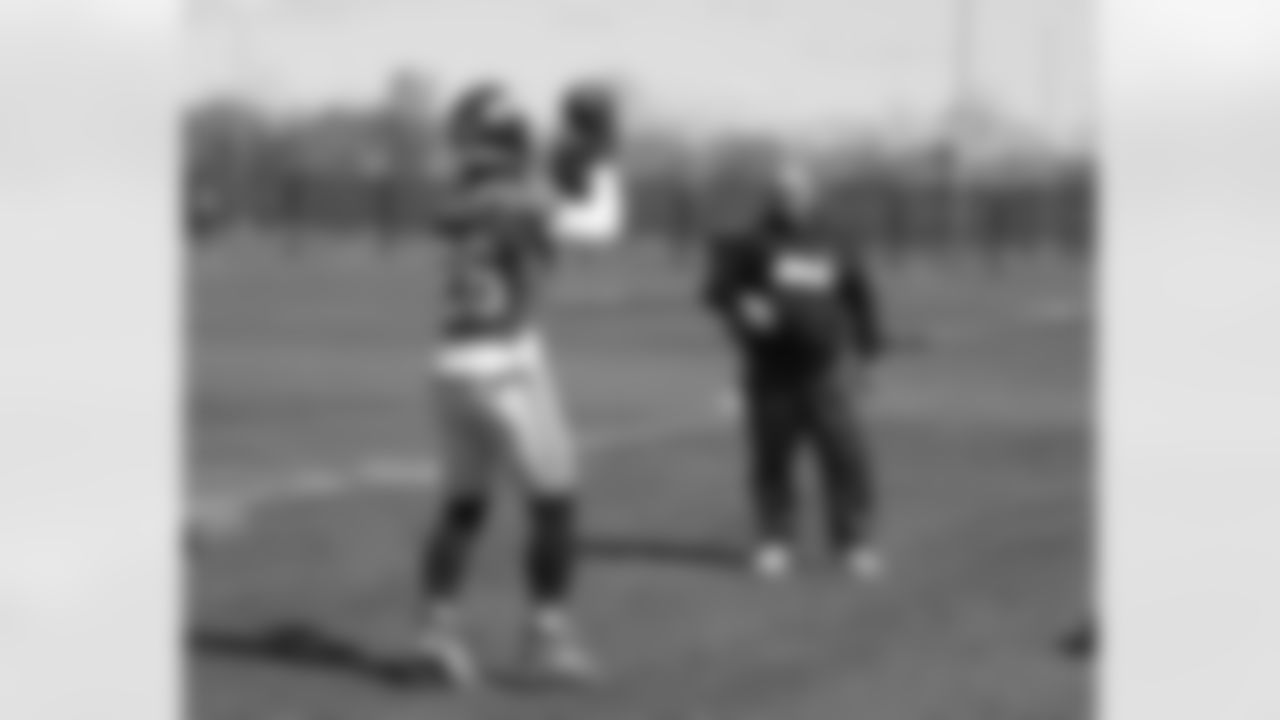
New York Giants head coach Brian Daboll works with running back Saquon Barkley (26) during minicamp practice at Quest Diagnostics Training Center on Wednesday April 20, 2022 in East Rutherford, New Jersey
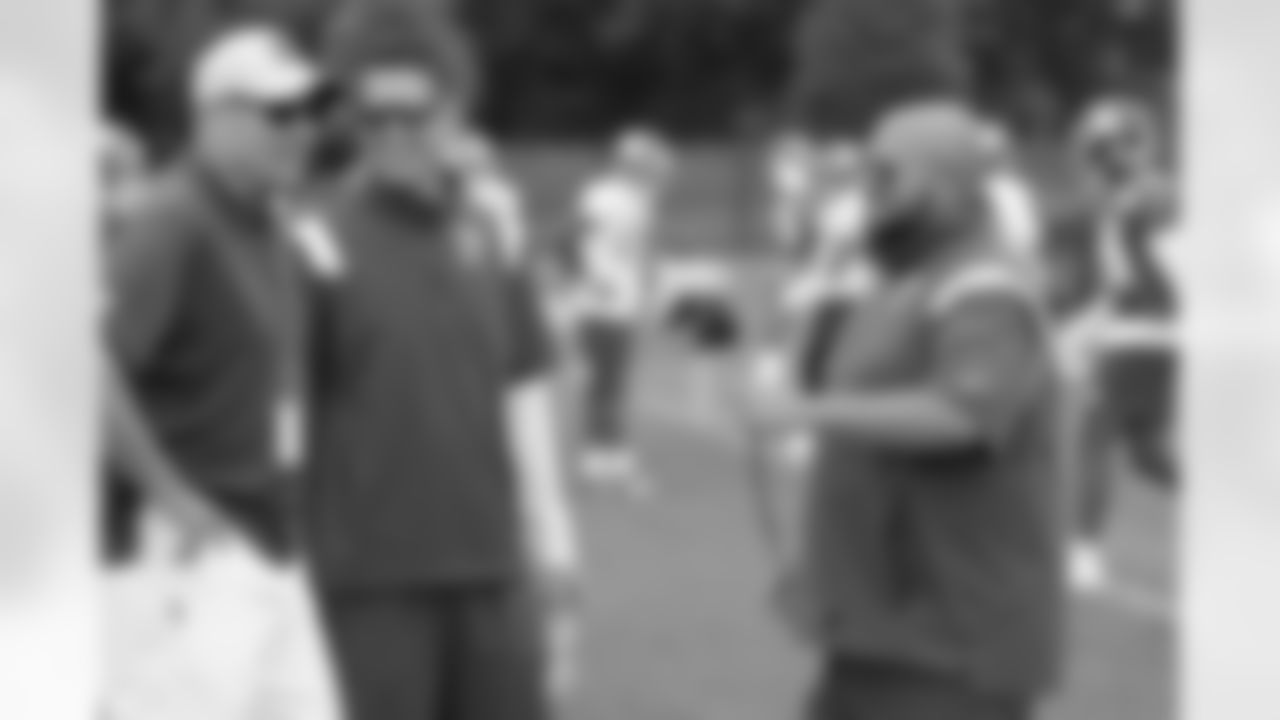
New York Giants head coach Brian Daboll talks with General manager Joe Schoen and former Giant Jeff Feagles during training camp practice at Quest Diagnostics Training Center on Friday July 29, 2022 in East Rutherford, New Jersey
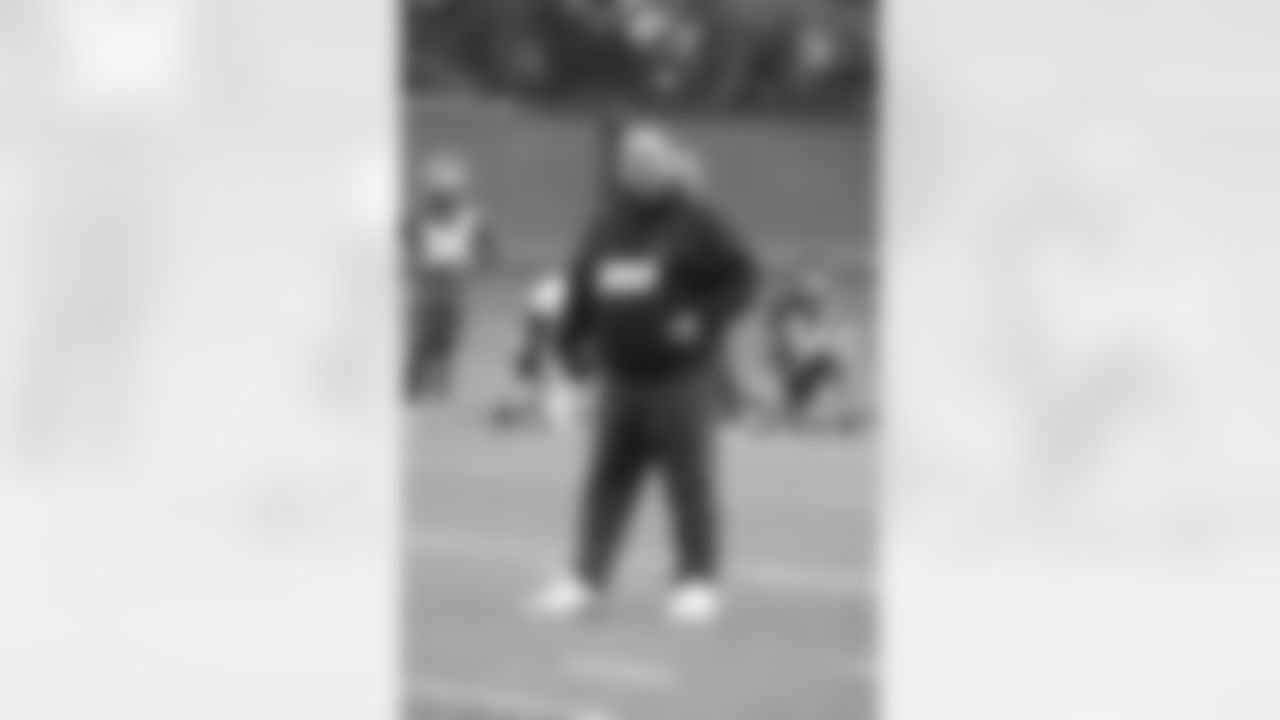
New York Giants head coach Brian Daboll during organized team activity at Quest Diagnostics Training Center on Wednesday June 1, 2022 in East Rutherford, New Jersey
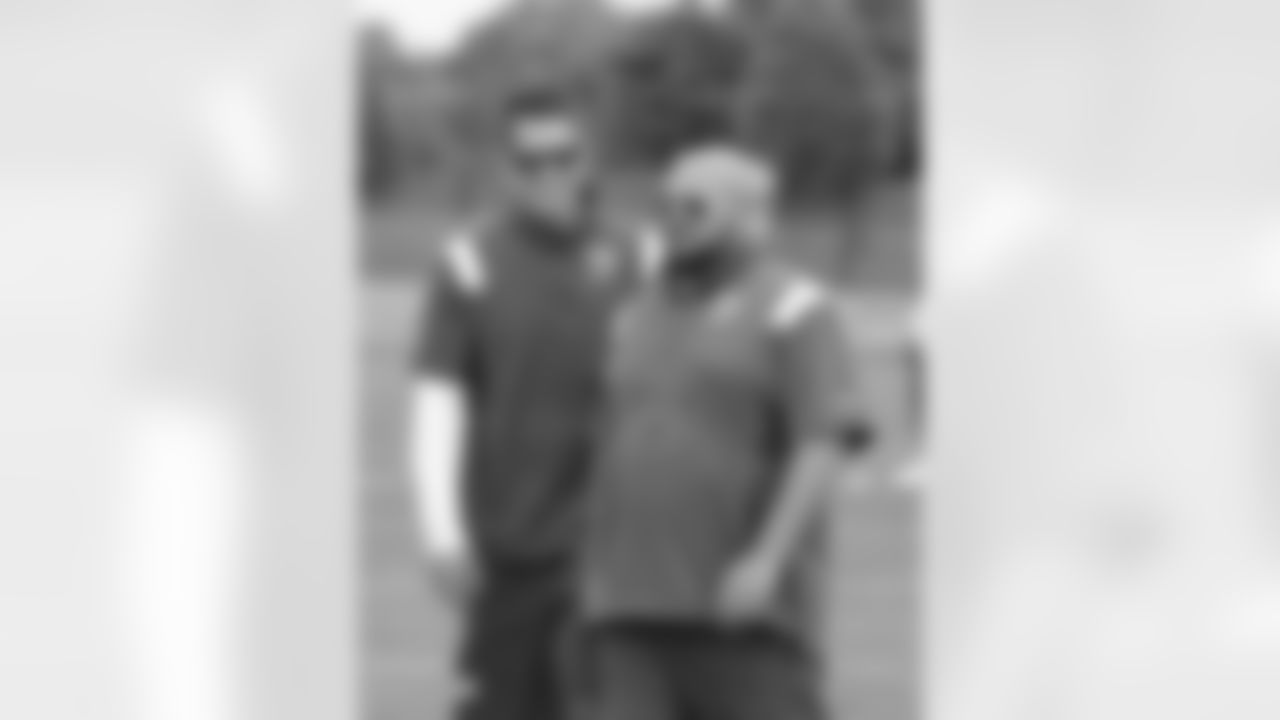
New York Giants head coach Brian Daboll walks with General manager Joe Schoen during training camp practice at Quest Diagnostics Training Center on Friday July 29, 2022 in East Rutherford, New Jersey
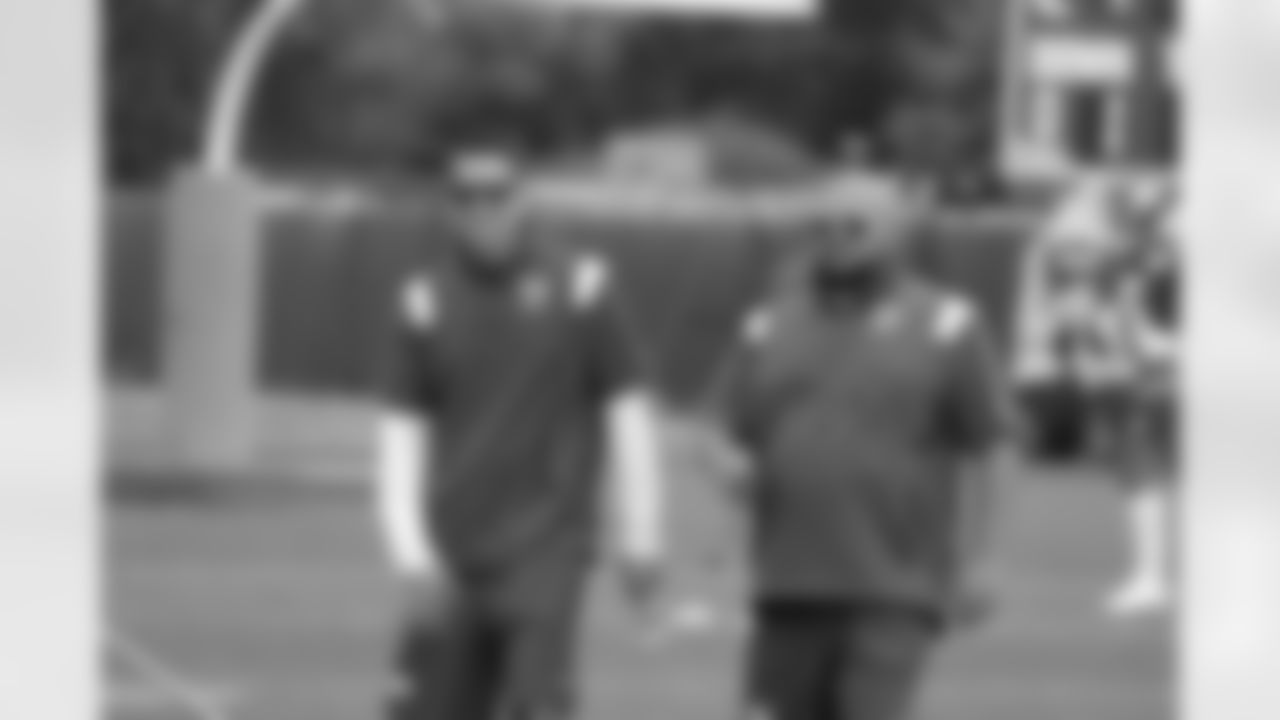
New York Giants head coach Brian Daboll walks with General manager Joe Schoen during training camp practice at Quest Diagnostics Training Center on Friday July 29, 2022 in East Rutherford, New Jersey
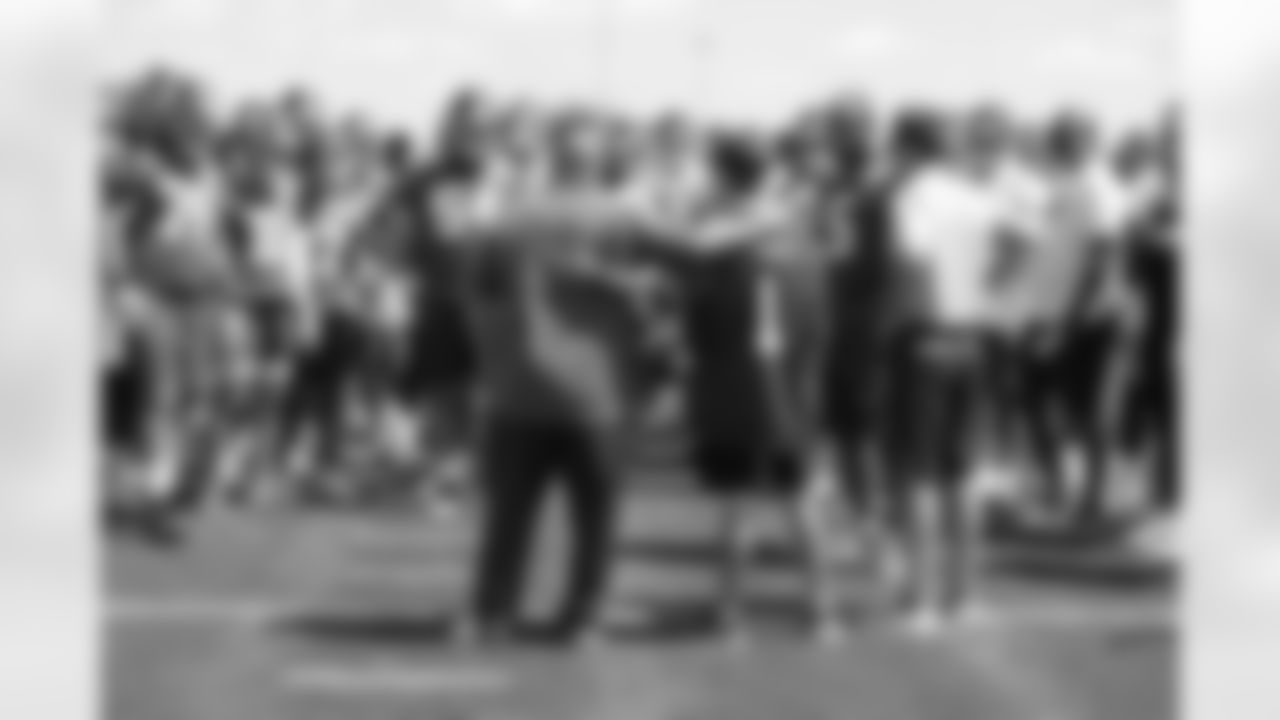
New York Giants head coach Brain Daboll introduces Sam Prince to the team during Minicamp at Quest Diagnostics Training Center on Wednesday June 8, 2022 in East Rutherford, New Jersey
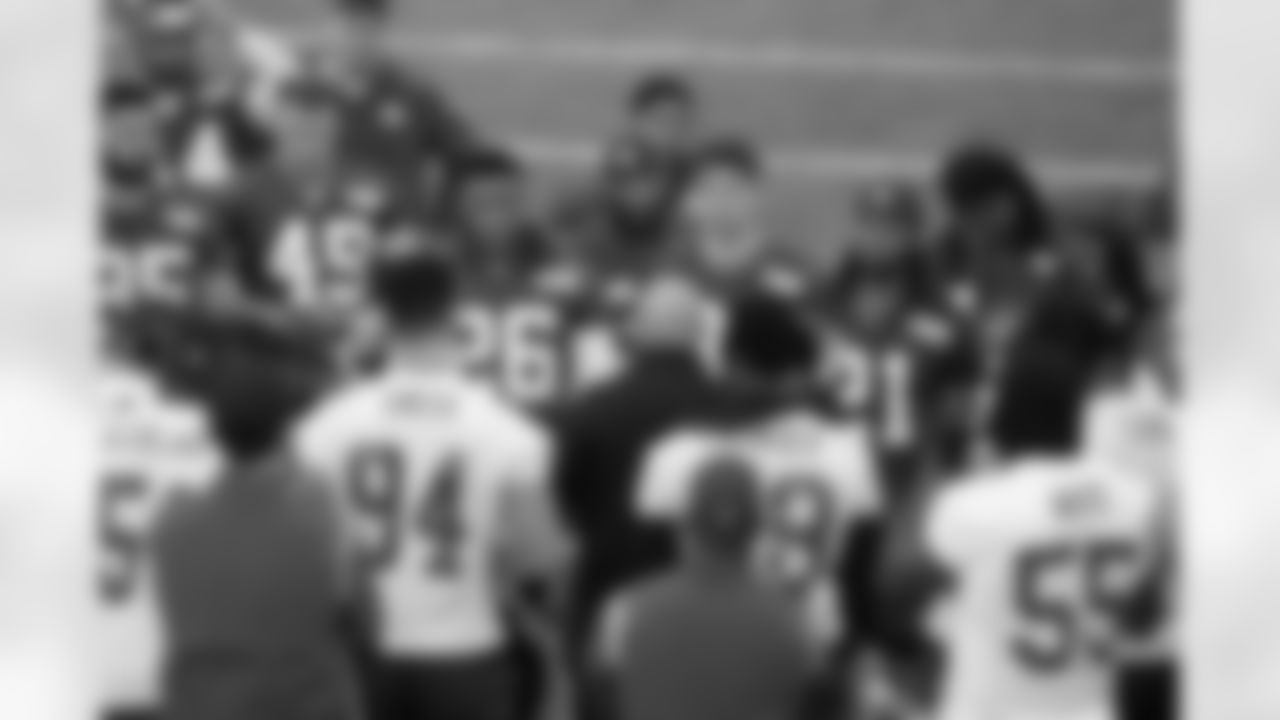
New York Giants head coach Brian Daboll talks to his team following minicamp practice at Quest Diagnostics Training Center on Tuesday April 19, 2022 in East Rutherford, New Jersey
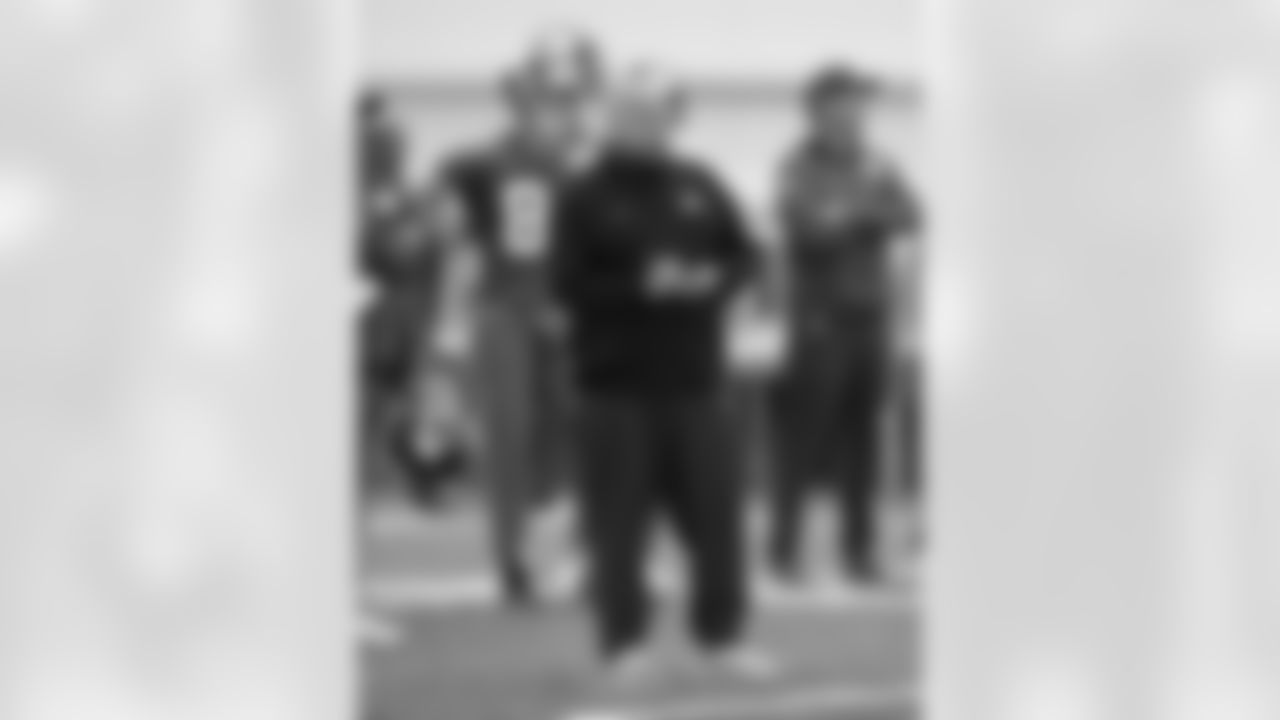
New York Giants head coach Brian Daboll during minicamp practice at Quest Diagnostics Training Center on Tuesday April 19, 2022 in East Rutherford, New Jersey
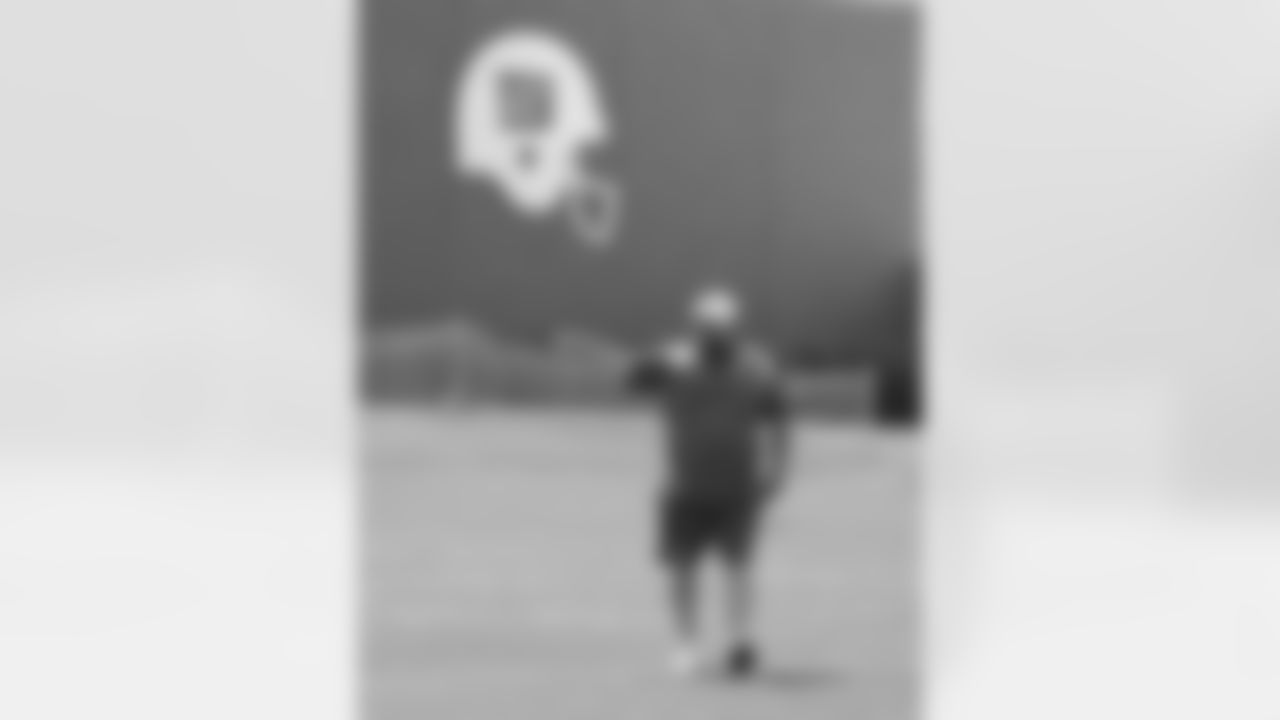
New York Giants head coach Brian Daboll during training camp practice at Quest Diagnostics Training Center on Wednesday August 24, 2022 in East Rutherford, New Jersey

New York Giants head coach Brian Daboll during training camp practice at Quest Diagnostics Training Center on Thursday July 28, 2022 in East Rutherford, New Jersey

New York Giants head coach Brian Daboll talks with quaterback Daniel Jones (8) during training camp practice at Quest Diagnostics Training Center on Thursday July 28, 2022 in East Rutherford, New Jersey
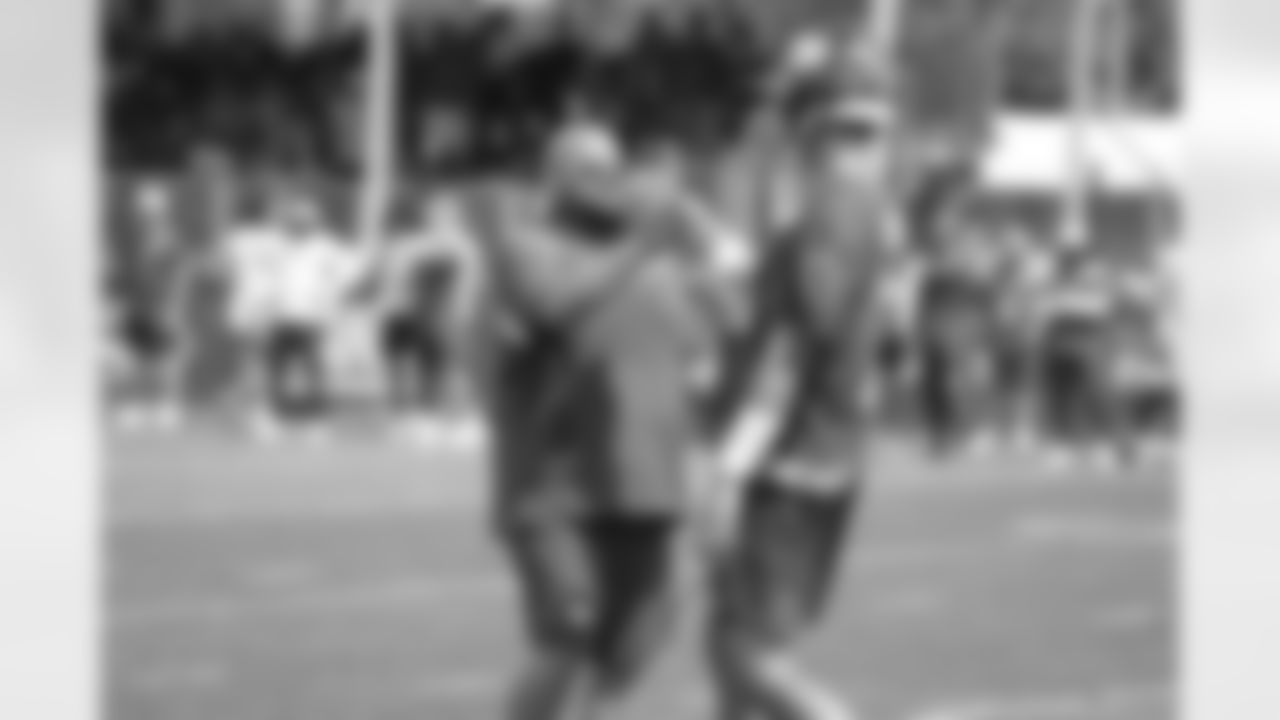
New York Giants head coach Brian Daboll fist bumps quaterback Daniel Jones (8) during training camp practice at Quest Diagnostics Training Center on Thursday July 28, 2022 in East Rutherford, New Jersey
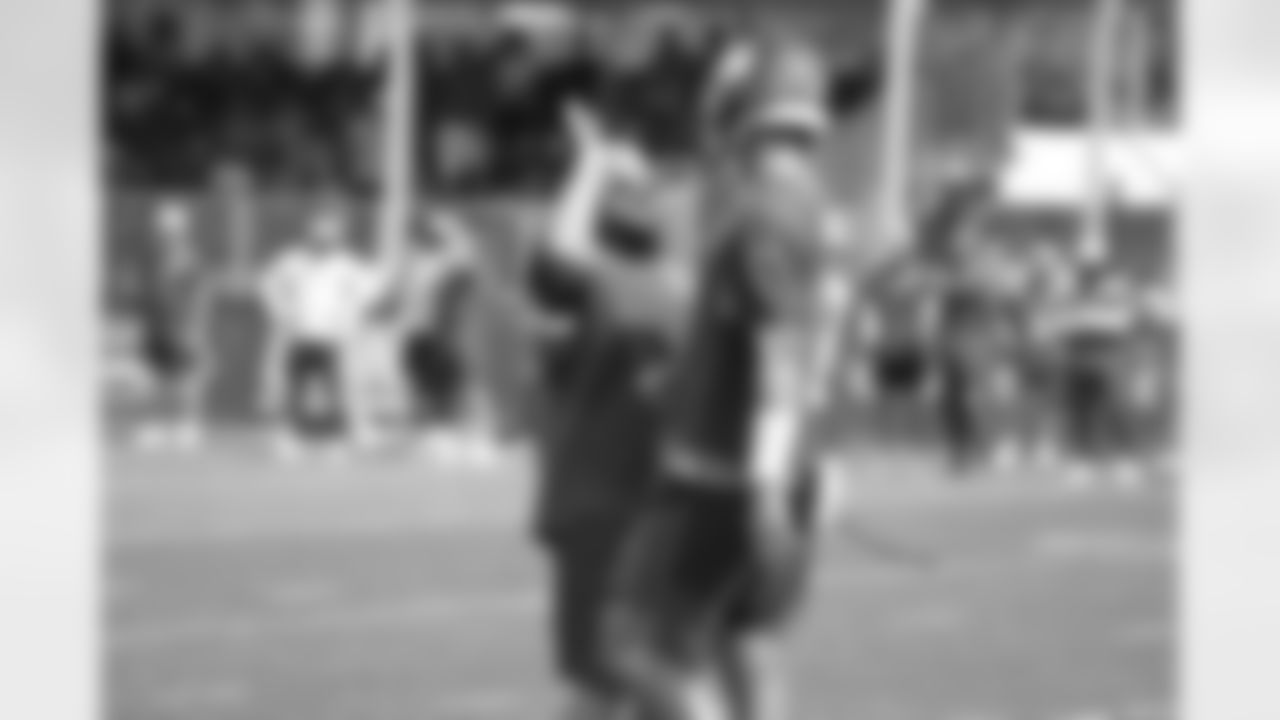
New York Giants head coach Brian Daboll fist bumps quaterback Daniel Jones (8) during training camp practice at Quest Diagnostics Training Center on Thursday July 28, 2022 in East Rutherford, New Jersey

New York Giants head coach Brian Daboll during minicamp practice at Quest Diagnostics Training Center on Tuesday April 19, 2022 in East Rutherford, New Jersey

New York Giants head coach Brian Daboll during training camp practice at Quest Diagnostics Training Center on Thursday July 28, 2022 in East Rutherford, New Jersey
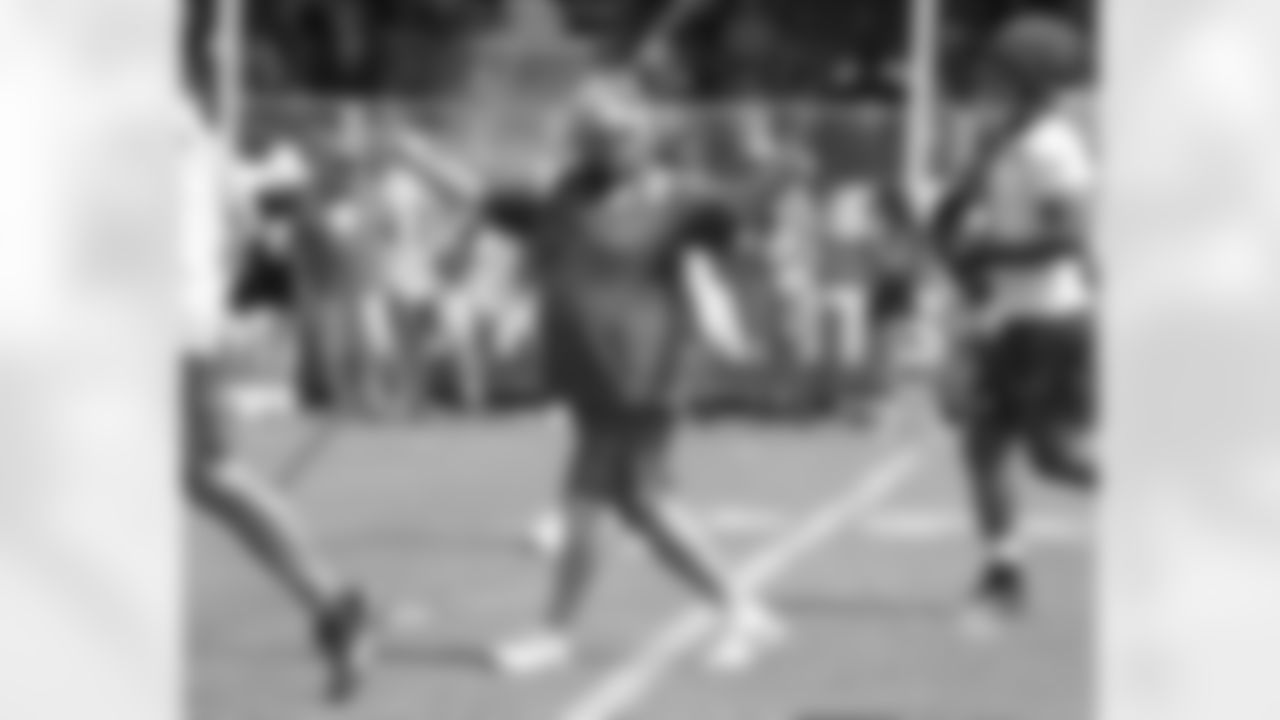
New York Giants head coach Brian Daboll during training camp practice at Quest Diagnostics Training Center on Thursday July 28, 2022 in East Rutherford, New Jersey
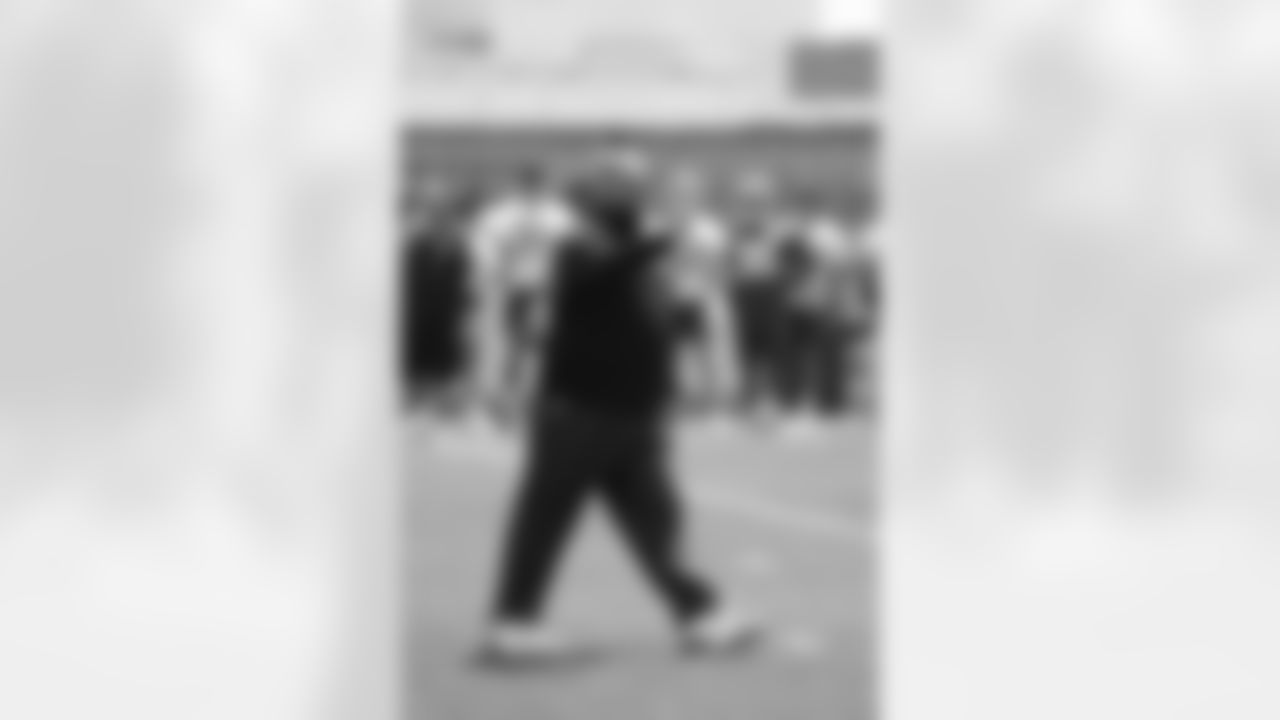
New York Giants head coach Brian Daboll during organized team activity at Quest Diagnostics Training Center on Thursday May 26, 2022 in East Rutherford, New Jersey

New York Giants head coach Brian Daboll during organized team activity at Quest Diagnostics Training Center on Thursday May 26, 2022 in East Rutherford, New Jersey
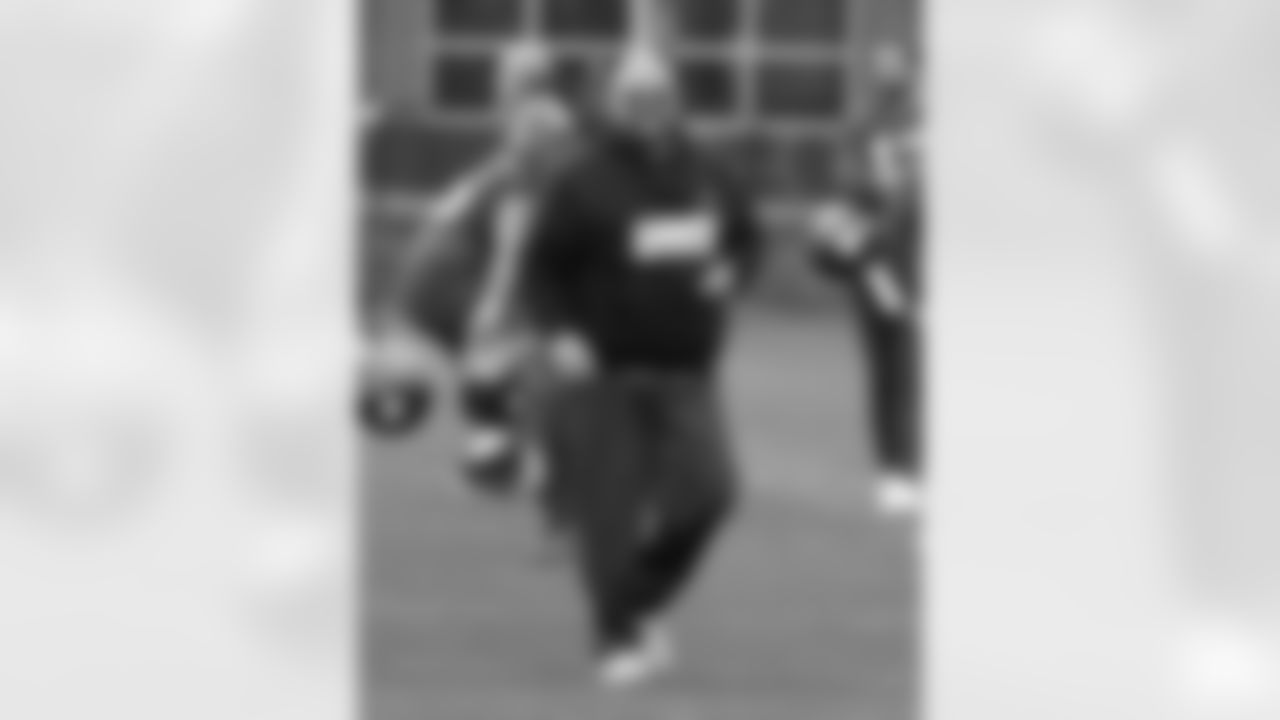
Head Coach Brian Daboll during minicamp practice at Quest Diagnostics Training Center on Tuesday April 21, 2022 in East Rutherford, New Jersey

Joe Schoen, Michael Strahan and Brian Daboll talk after organized team activity at Quest Diagnostics Training Center on Thursday June 2, 2022 in East Rutherford, New Jersey
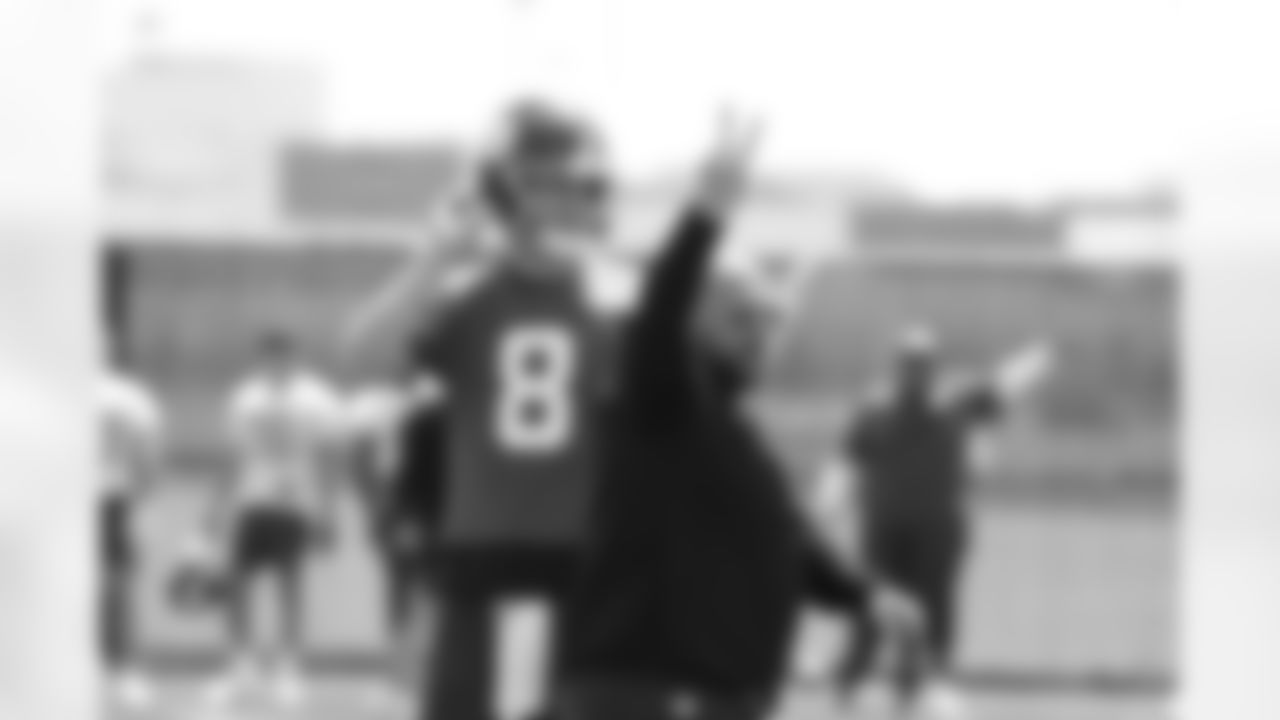
New York Giants head coach Brian Daboll during organized team activity at Quest Diagnostics Training Center on Thursday May 26, 2022 in East Rutherford, New Jersey
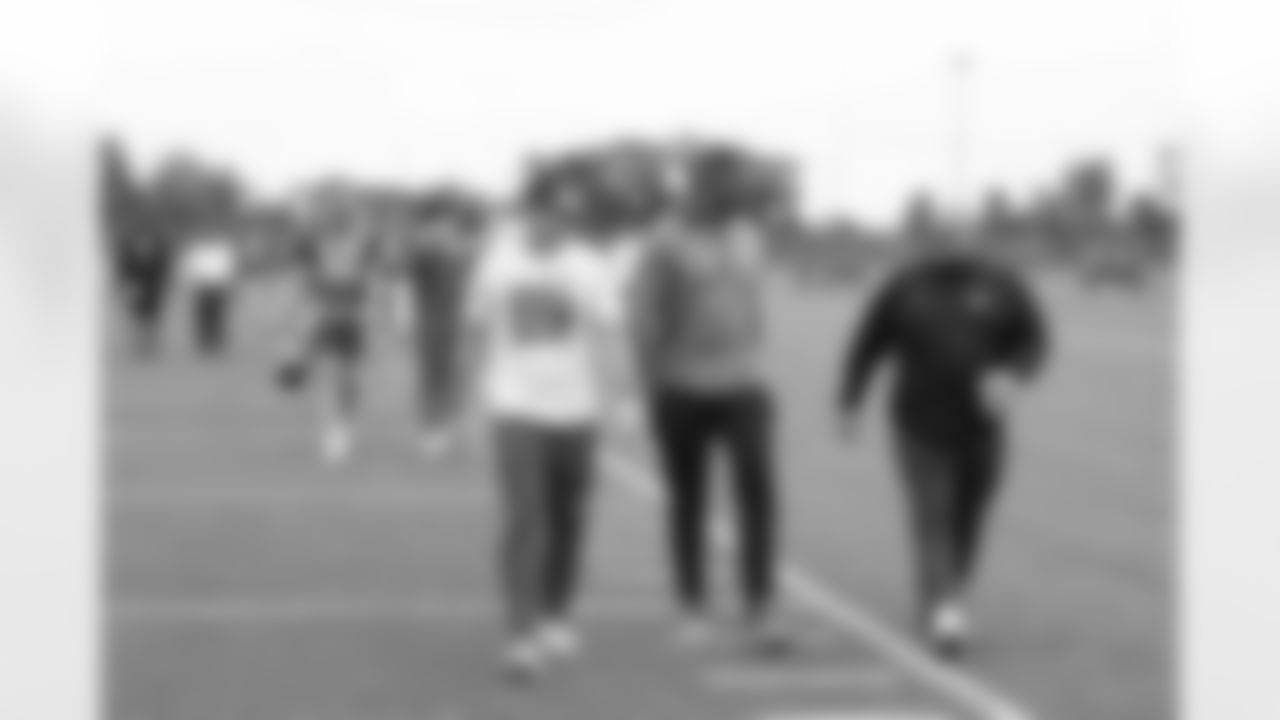
Joe Schoen, Michael Strahan and Brian Daboll talk after organized team activity at Quest Diagnostics Training Center on Thursday June 2, 2022 in East Rutherford, New Jersey

Joe Schoen, Michael Strahan and Brian Daboll talk after organized team activity at Quest Diagnostics Training Center on Thursday June 2, 2022 in East Rutherford, New Jersey
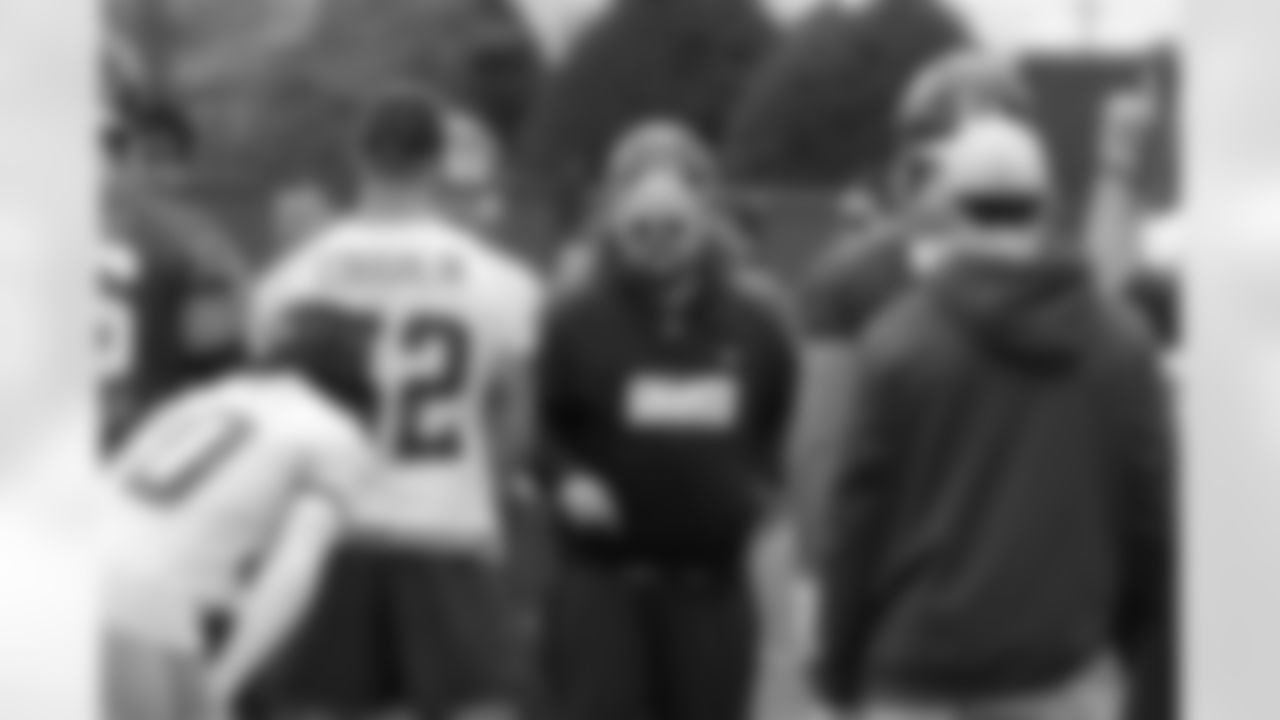
New York Giants head coach Brian Daboll talks to his players during minicamp practice at Quest Diagnostics Training Center on Tuesday April 21, 2022 in East Rutherford, New Jersey

New York Giants Foundation Charity Golf Classic at Canoe Brook Country Club on Monday May 31, 2022 in Summit, New Jersey

New York Giants head coach Brian Daboll during minicamp practice at Quest Diagnostics Training Center on Tuesday April 19, 2022 in East Rutherford, New Jersey
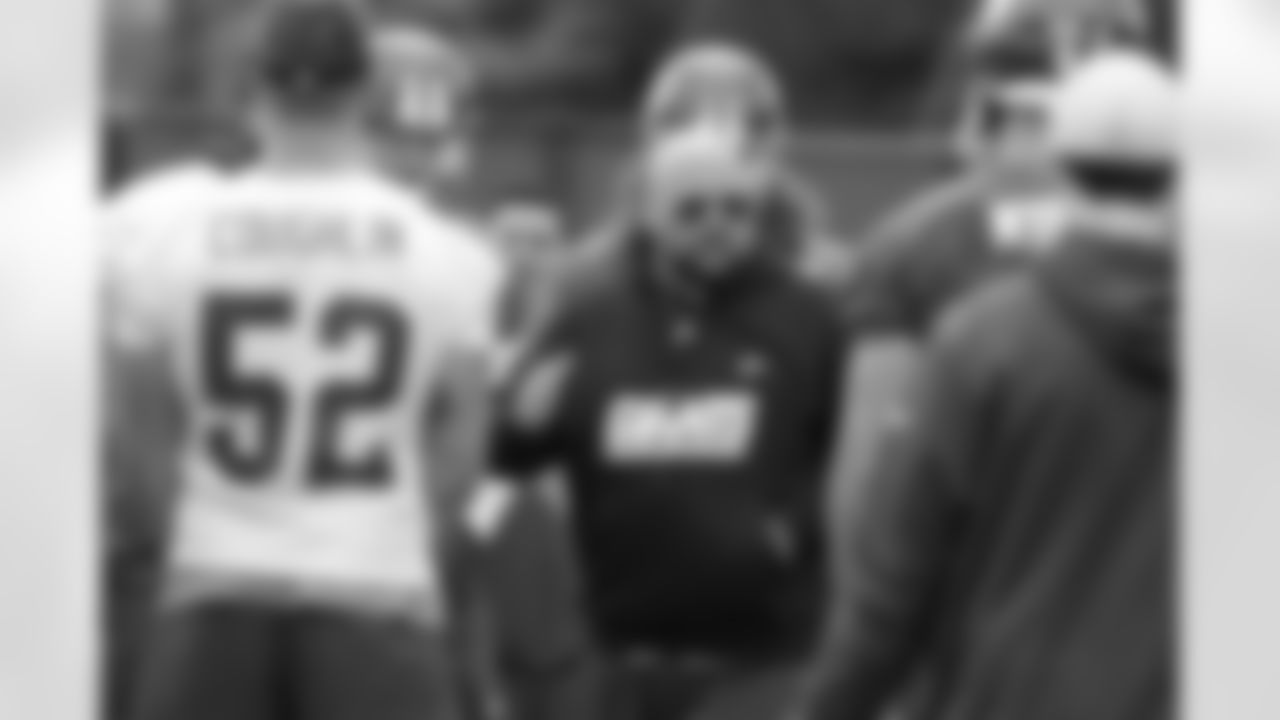
New York Giants head coach Brian Daboll talks to his players during minicamp practice at Quest Diagnostics Training Center on Tuesday April 21, 2022 in East Rutherford, New Jersey
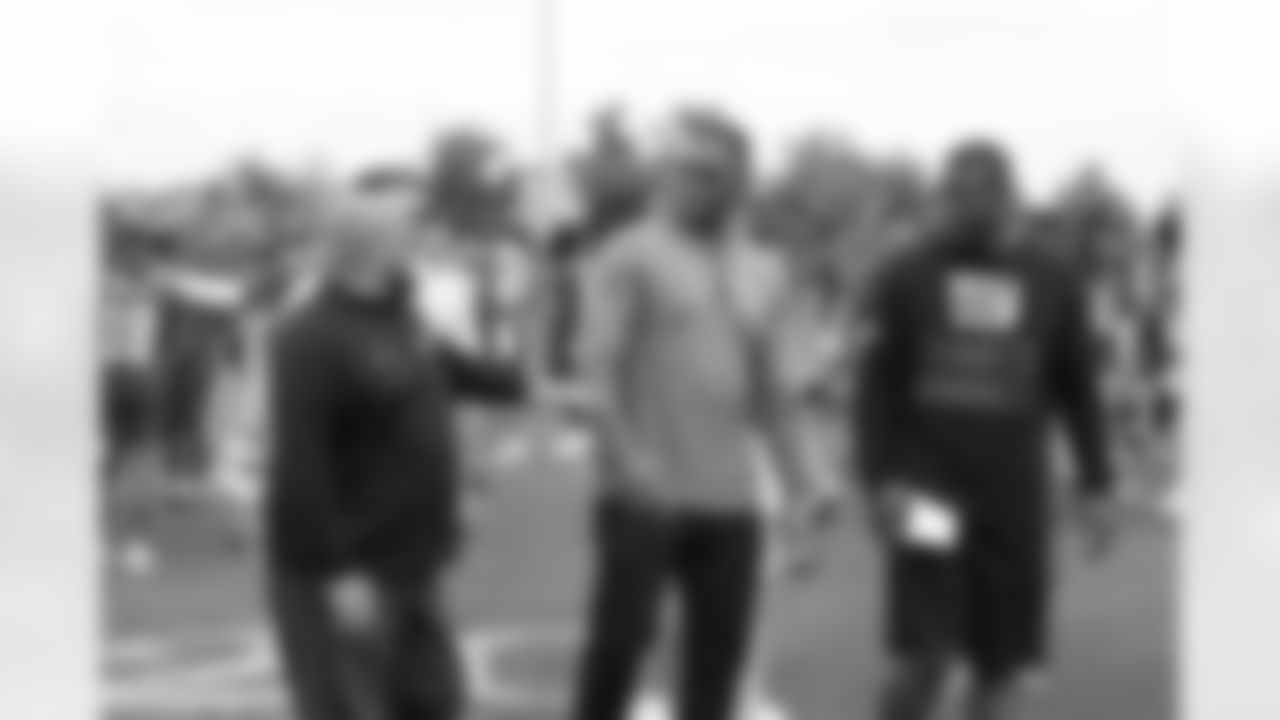
New York Giants head coach Brian Daboll talks with Michael Strahan during organized team activity at Quest Diagnostics Training Center on Thursday June 2, 2022 in East Rutherford, New Jersey
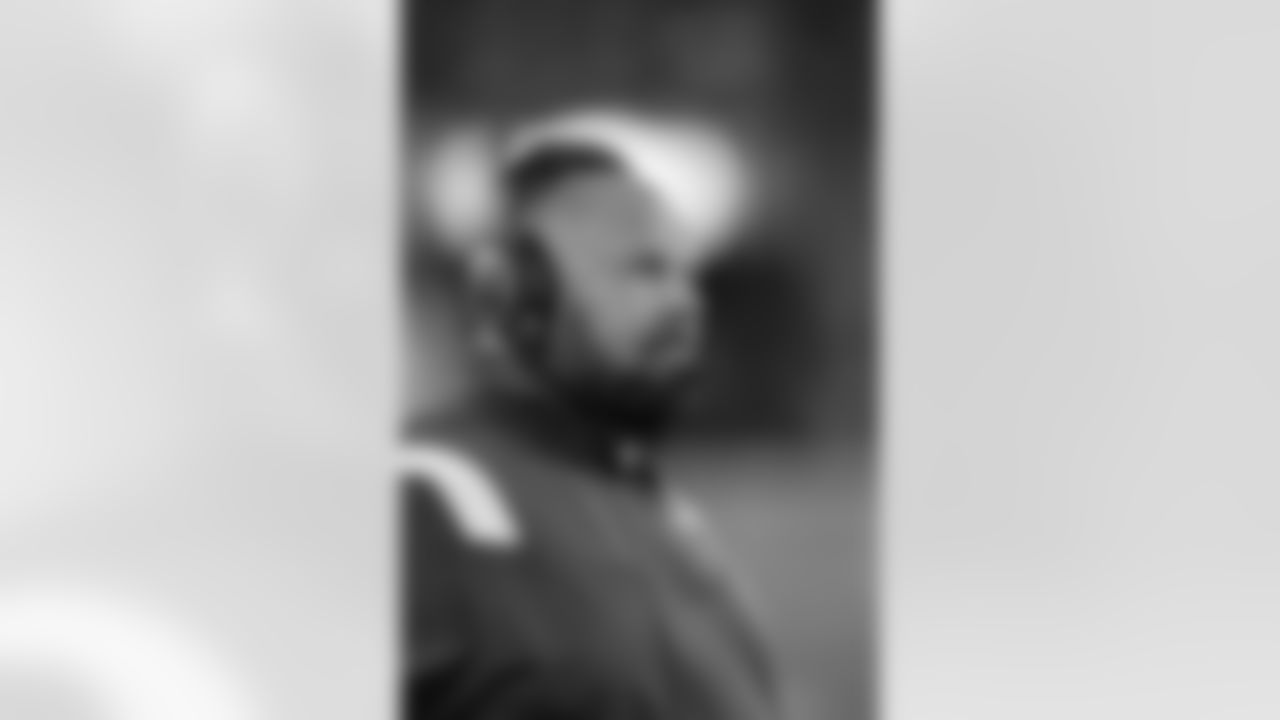
New York Giants head coach Brian Daboll during a pre-season football game against the Cincinnati Bengals on Sunday August 21, 2022 in East Rutherford, New Jersey (Evan Pinkus/NY Giants)
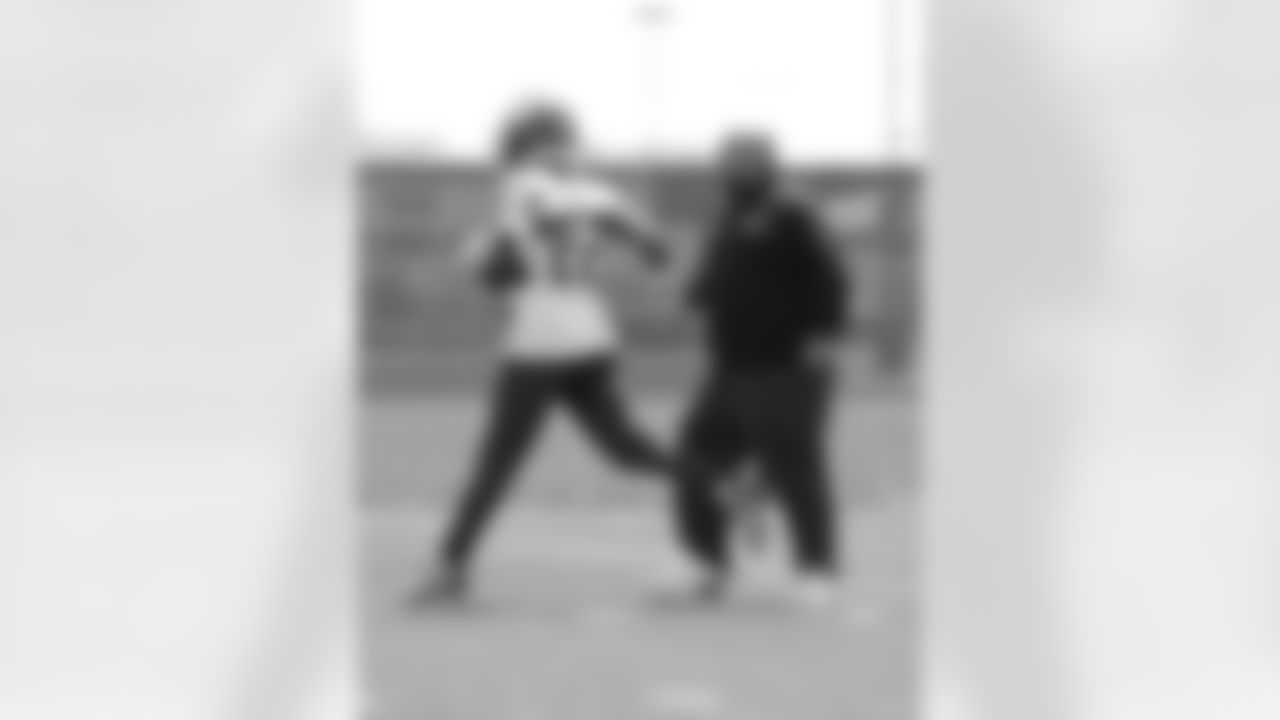
New York Giants cornerback Adoree' Jackson (22) shakes hands with Brian Daboll after returning an interception during organized team activity at Quest Diagnostics Training Center on Thursday May 26, 2022 in East Rutherford, New Jersey
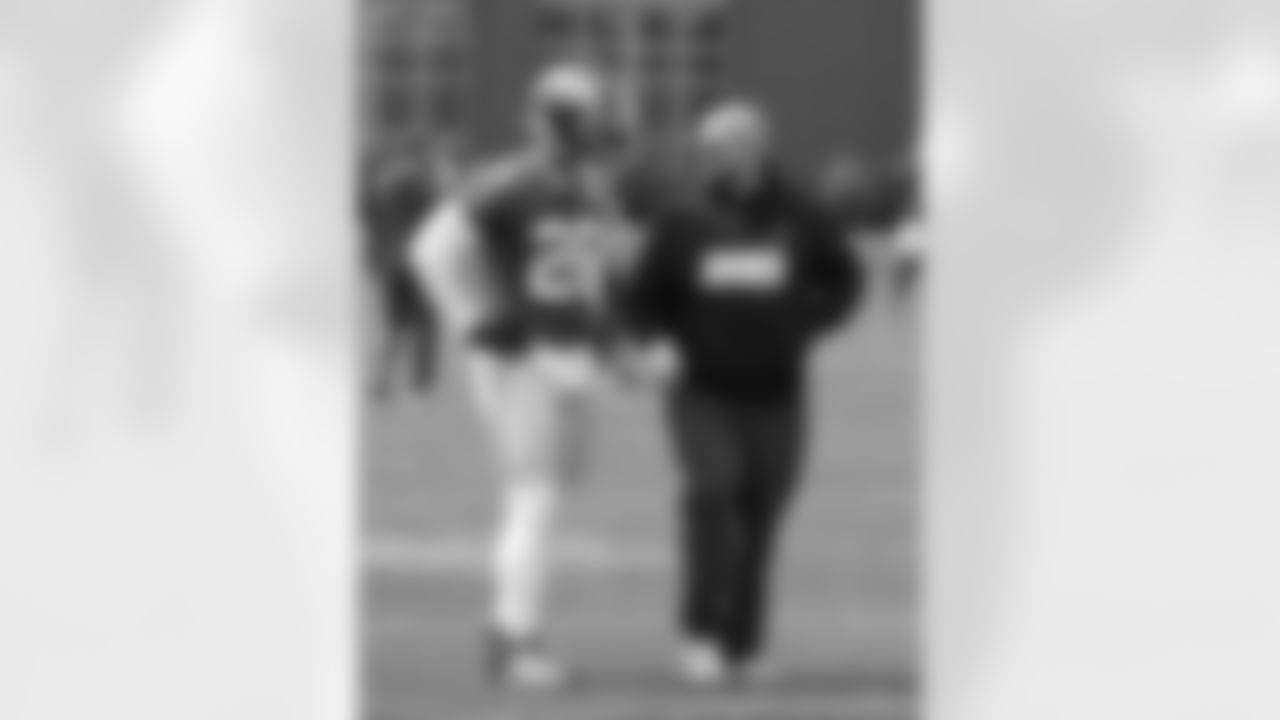
New York Giants head coach Brian Daboll talks with running back Saquon Barkley (26) during minicamp practice at Quest Diagnostics Training Center on Tuesday April 21, 2022 in East Rutherford, New Jersey
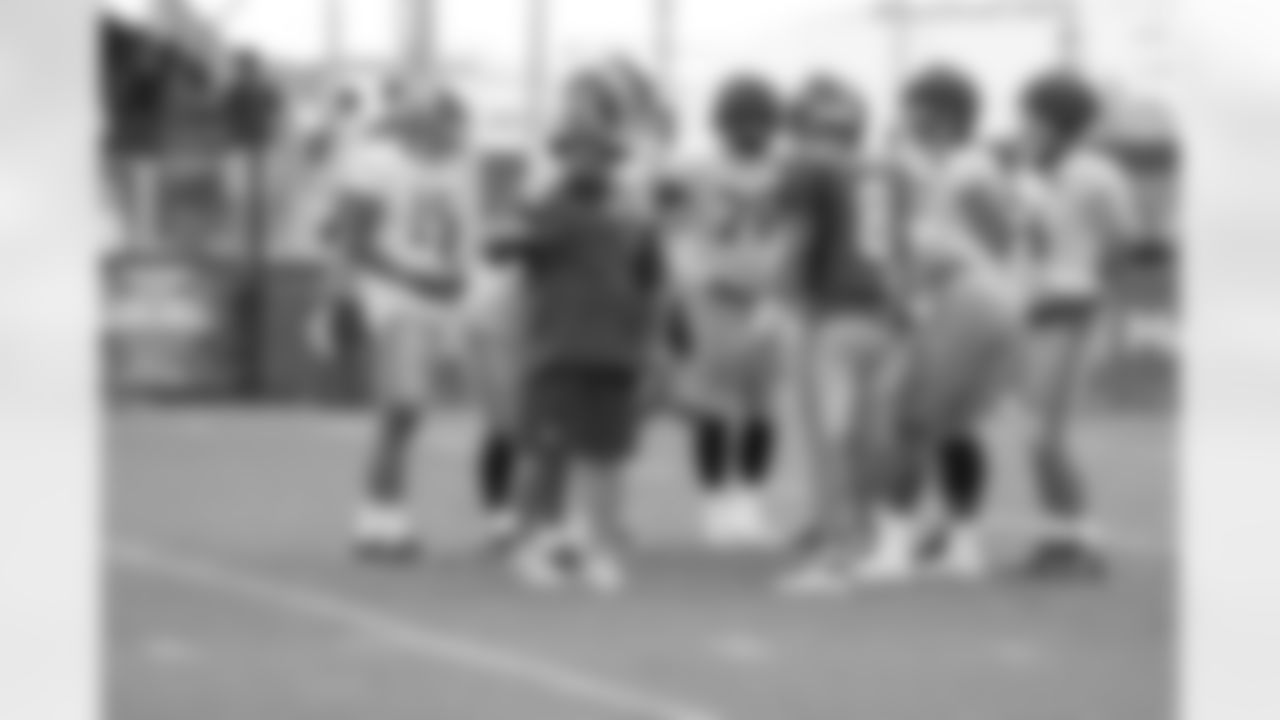
New York Giants head coach Brian Daboll during training camp practice at Quest Diagnostics Training Center on Sunday August 7, 2022 in East Rutherford, New Jersey

New York Giants Evan Neal (70) talks with head coach Brian Daboll during training camp practice at Quest Diagnostics Training Center on Thursday July 28, 2022 in East Rutherford, New Jersey
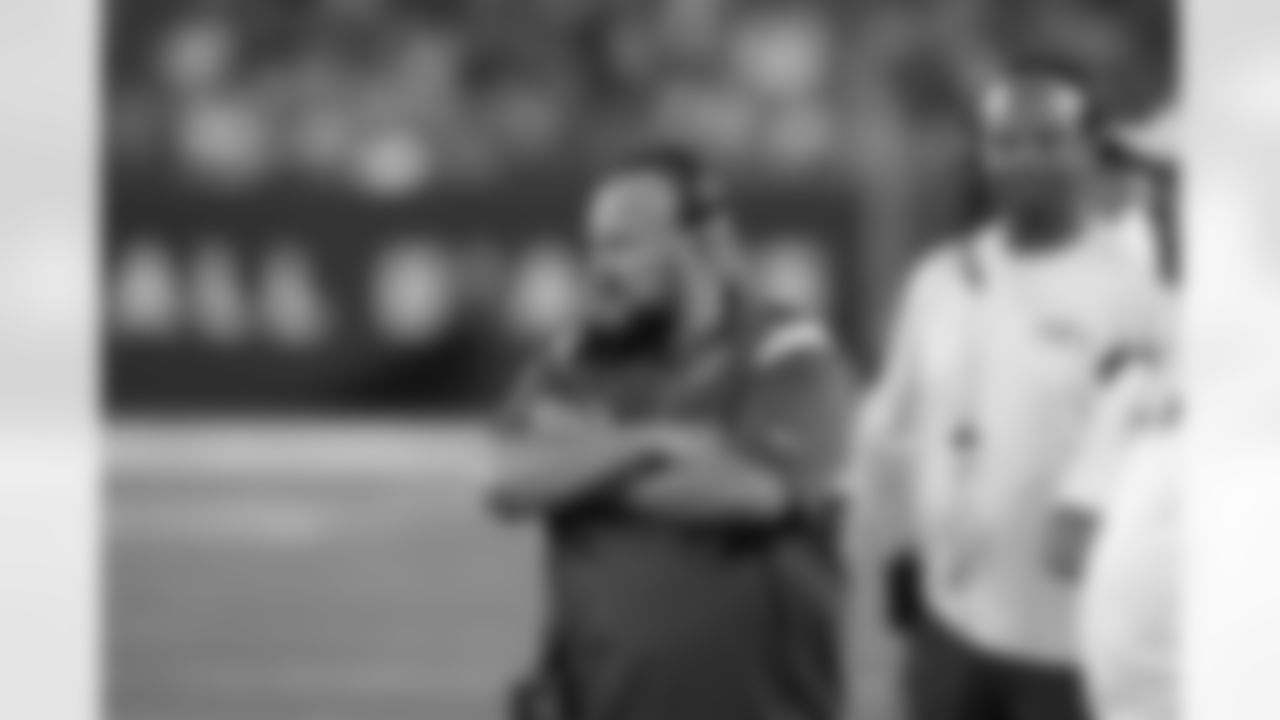
New York Giants head coach Brian Daboll during a pre-season football game against the Cincinnati Bengals on Sunday August 21, 2022 in East Rutherford, New Jersey (Evan Pinkus/NY Giants)

New York Giants head coach Brian Daboll during a pre-season football game against the Cincinnati Bengals on Sunday August 21, 2022 in East Rutherford, New Jersey (Evan Pinkus/NY Giants)

New York Giants head coach Brian Daboll and Darnay Holmes (30) during training camp practice at Quest Diagnostics Training Center on Wednesday July 27, 2022 in East Rutherford, New Jersey

New York Giants Foundation Charity Golf Classic at Canoe Brook Country Club on Monday May 31, 2022 in Summit, New Jersey

New York Giants Foundation Charity Golf Classic at Canoe Brook Country Club on Monday May 31, 2022 in Summit, New Jersey

New York Giants Foundation Charity Golf Classic at Canoe Brook Country Club on Monday May 31, 2022 in Summit, New Jersey

Brian Daboll

New York Giants head coach Brian Daboll watches from the sideline during a pre-season football game against the Cincinnati Bengals on Sunday August 21, 2022 in East Rutherford, New Jersey (Evan Pinkus/NY Giants)

Brian Daboll

Brian Daboll

Brian Daboll

Cleveland Browns offensive coordinator Brian Daboll congratulates Cleveland Browns wide receiver Josh Cribbs (16) as he comes off the field against the Jacksonville Jaguars in their NFL football game Sunday, Jan. 3, 2010, in Cleveland. (AP Photo/Amy Sancetta)
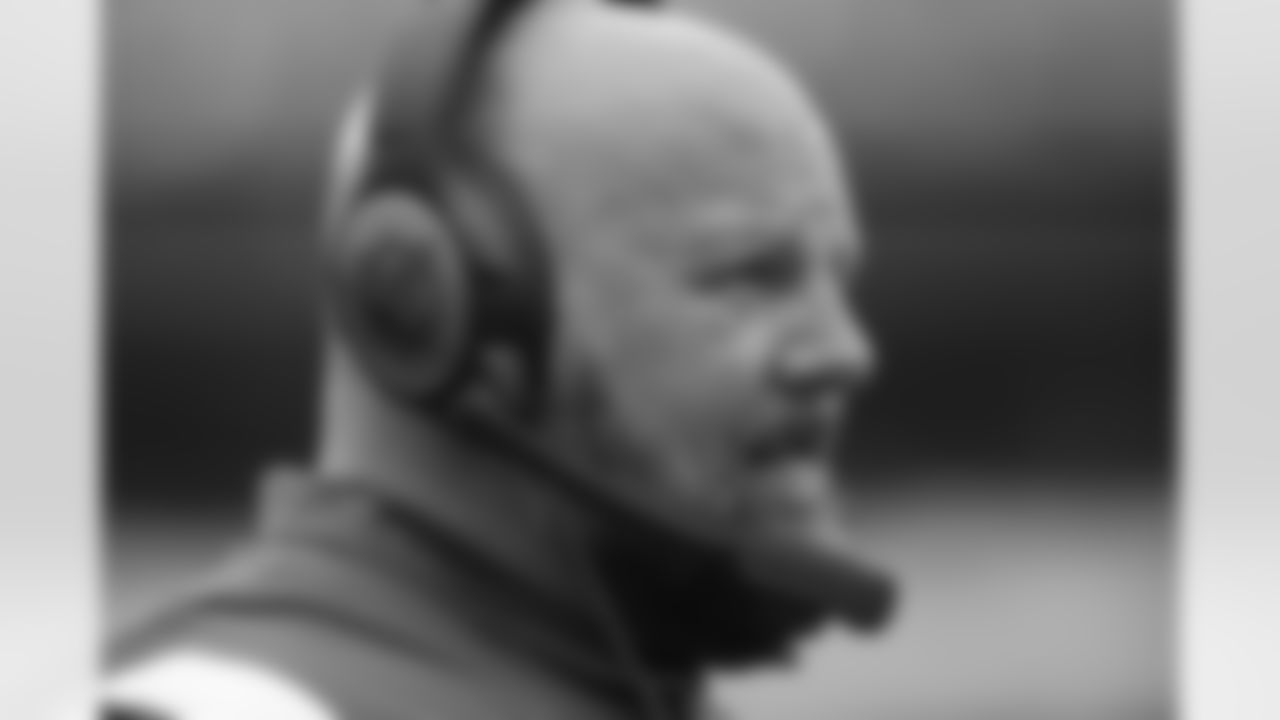
New York Giants head coach Brian Daboll works the sidelines in the first half of a preseason NFL football game against the New York Jets, Sunday, Aug. 28, 2022, in East Rutherford, N.J. (AP Photo/John Munson)
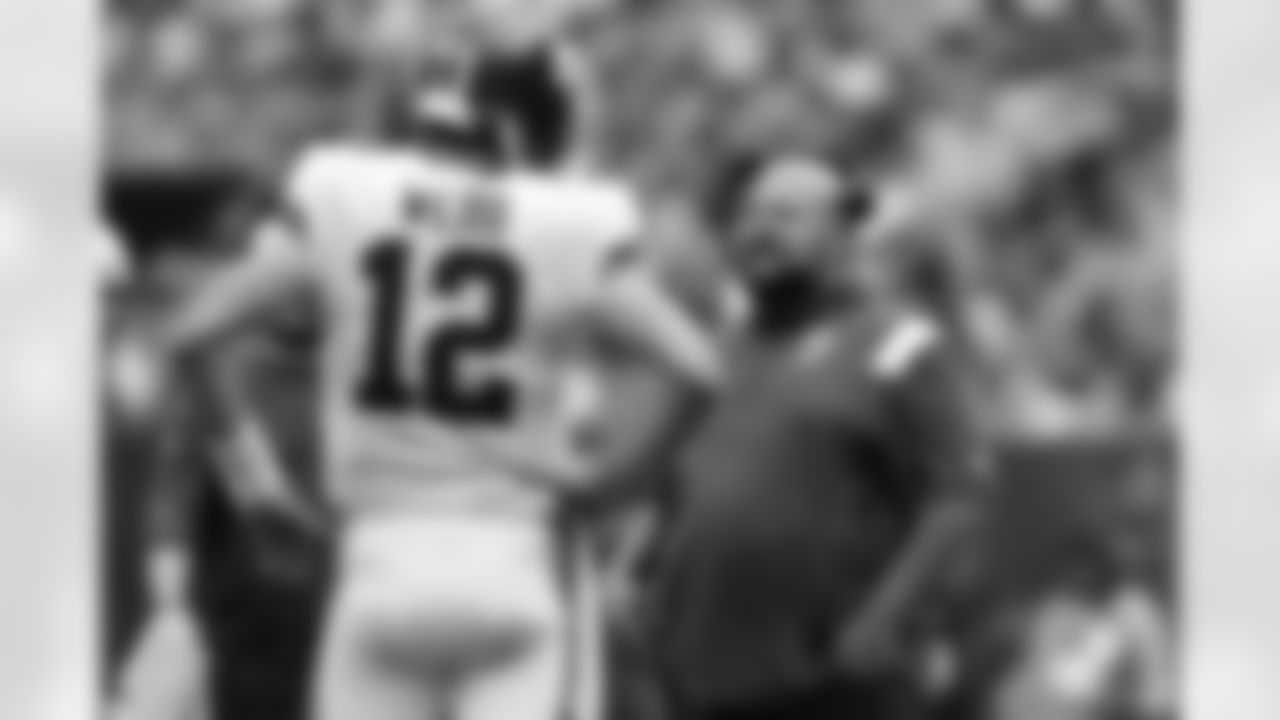
New York Giants head coach Brian Daboll talks with quarterback Davis Webb (12) during an NFL pre-season football game, Sunday, Aug. 27, 2022, in East Rutherford, N.J.. (AP Photo/Rich Schultz)
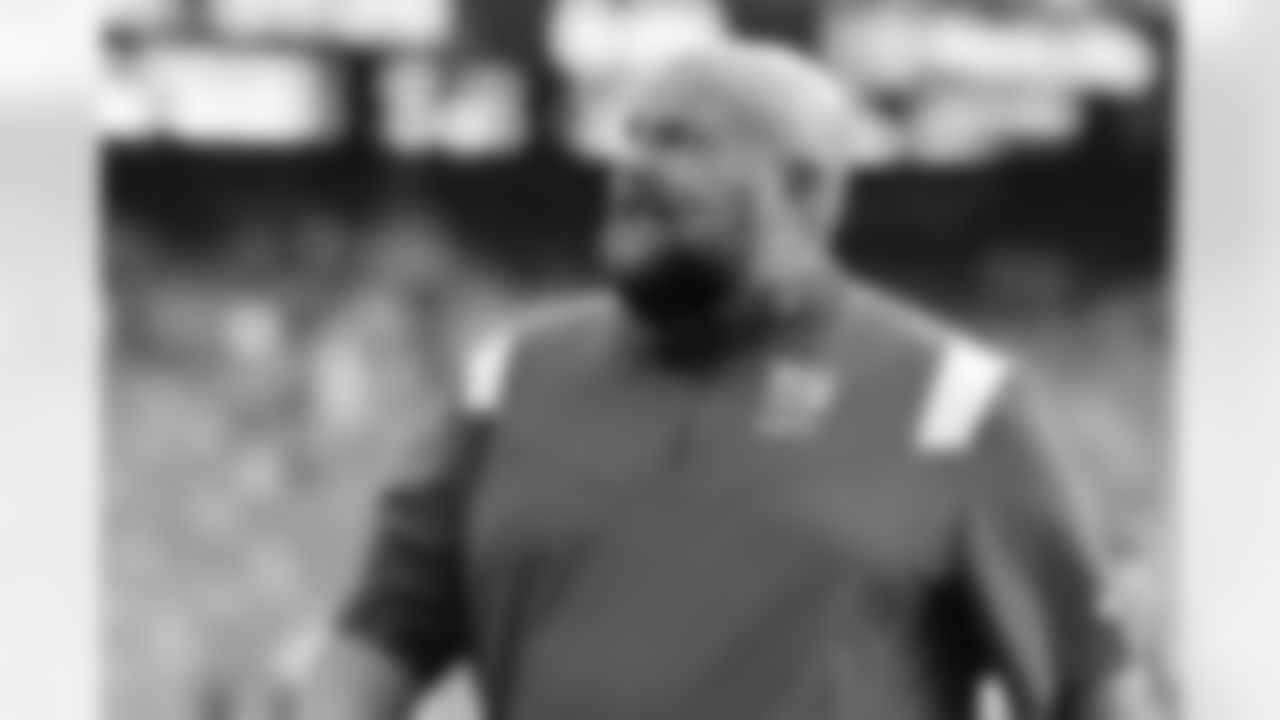
New York Giants head coach Brian Daboll walks off the field after their 31-27 loss to the New York Jets in an NFL pre-season football game, Sunday, Aug. 27, 2022, in East Rutherford, N.J.. (AP Photo/Rich Schultz)
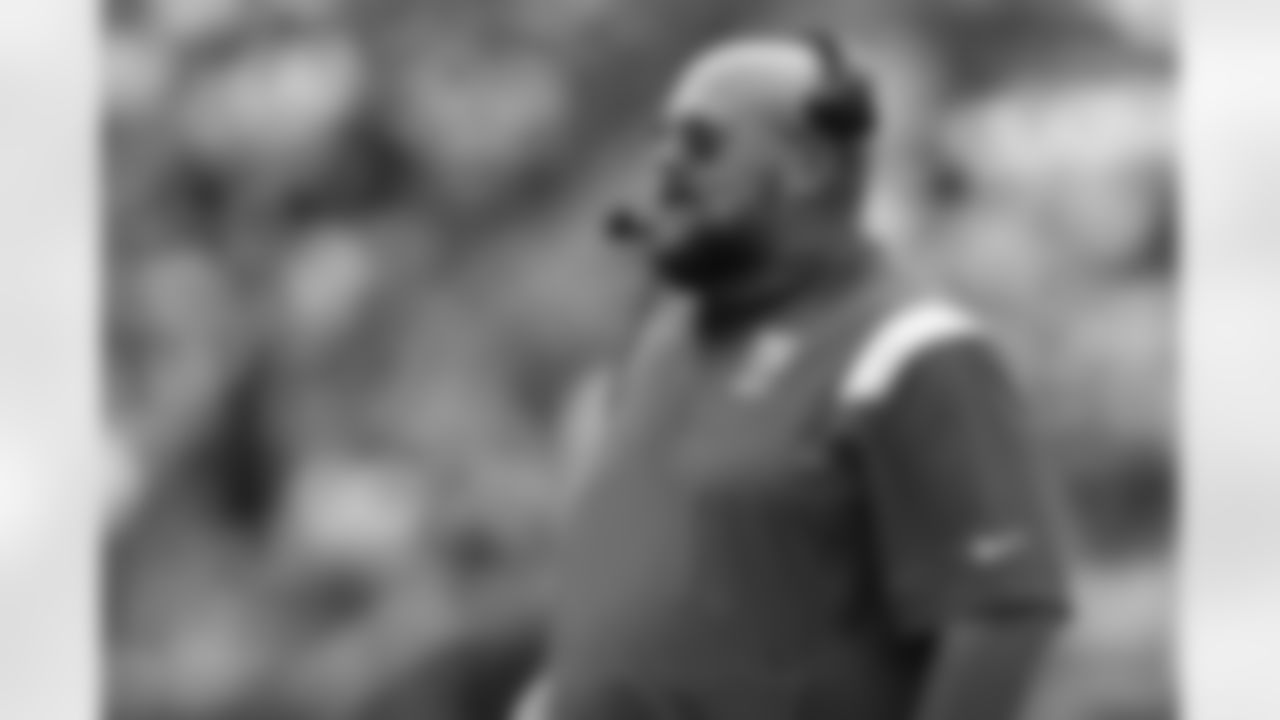
New York Giants head coach Brian Daboll works the sidelines in the first half of a preseason NFL football game against the New York Jets, Sunday, Aug. 28, 2022, in East Rutherford, N.J. (AP Photo/John Munson)
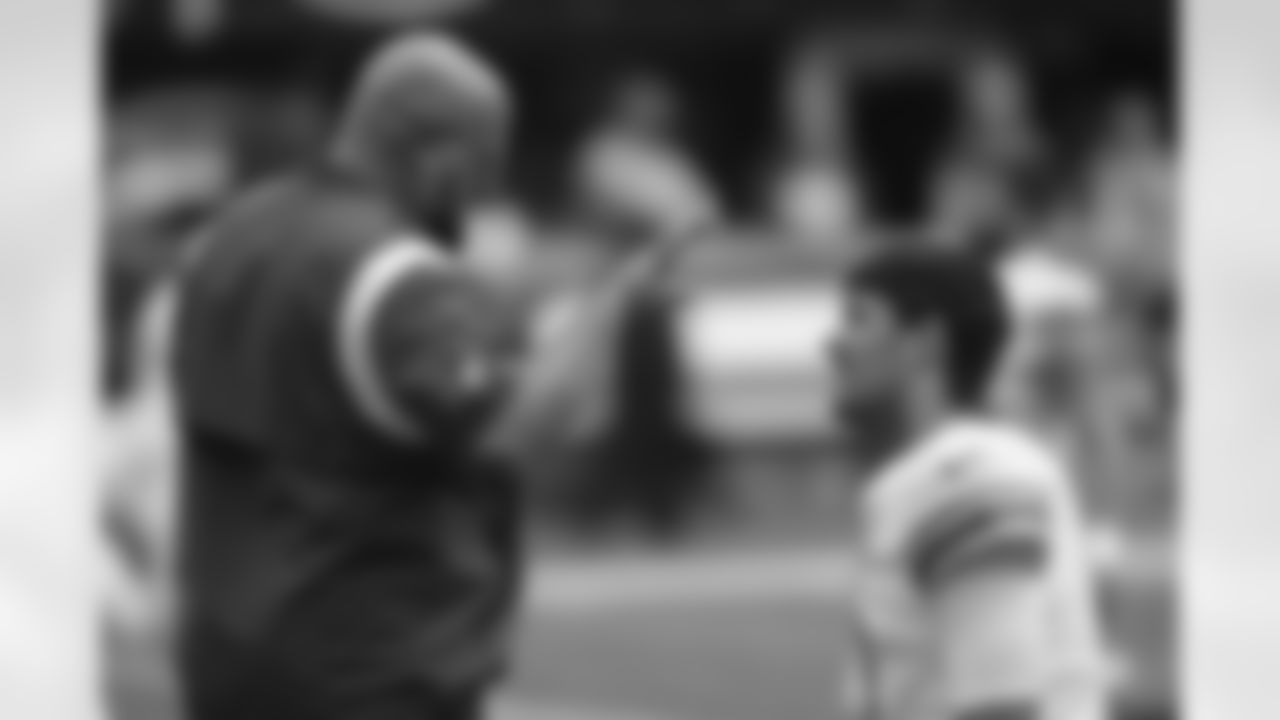
New York Giants head coach Brian Daboll, left, meets with quarterback Daniel Jones, right, during practice before a preseason NFL football game against the New York Jets, Sunday, Aug. 28, 2022, in East Rutherford, N.J. (AP Photo/John Munson)
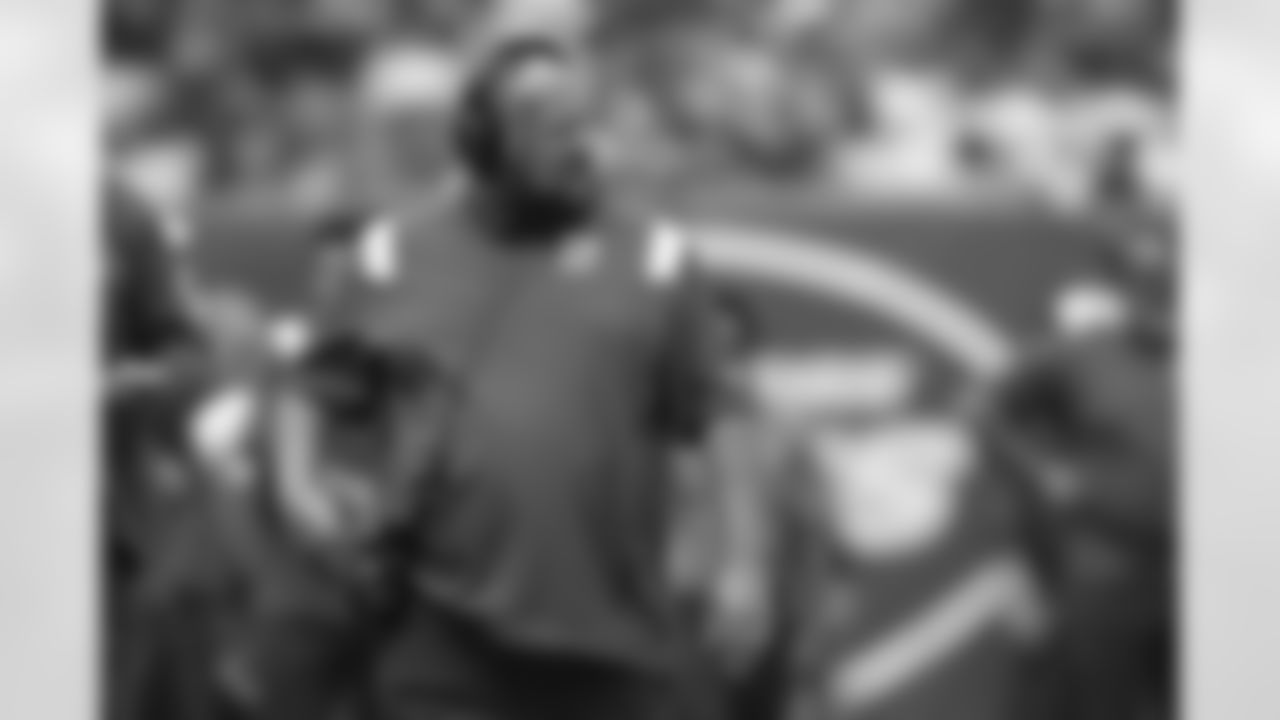
New York Giants head coach Brian Daboll works the sidelines in the first half of a preseason NFL football game against the New York Jets, Sunday, Aug. 28, 2022, in East Rutherford, N.J. (AP Photo/John Munson)
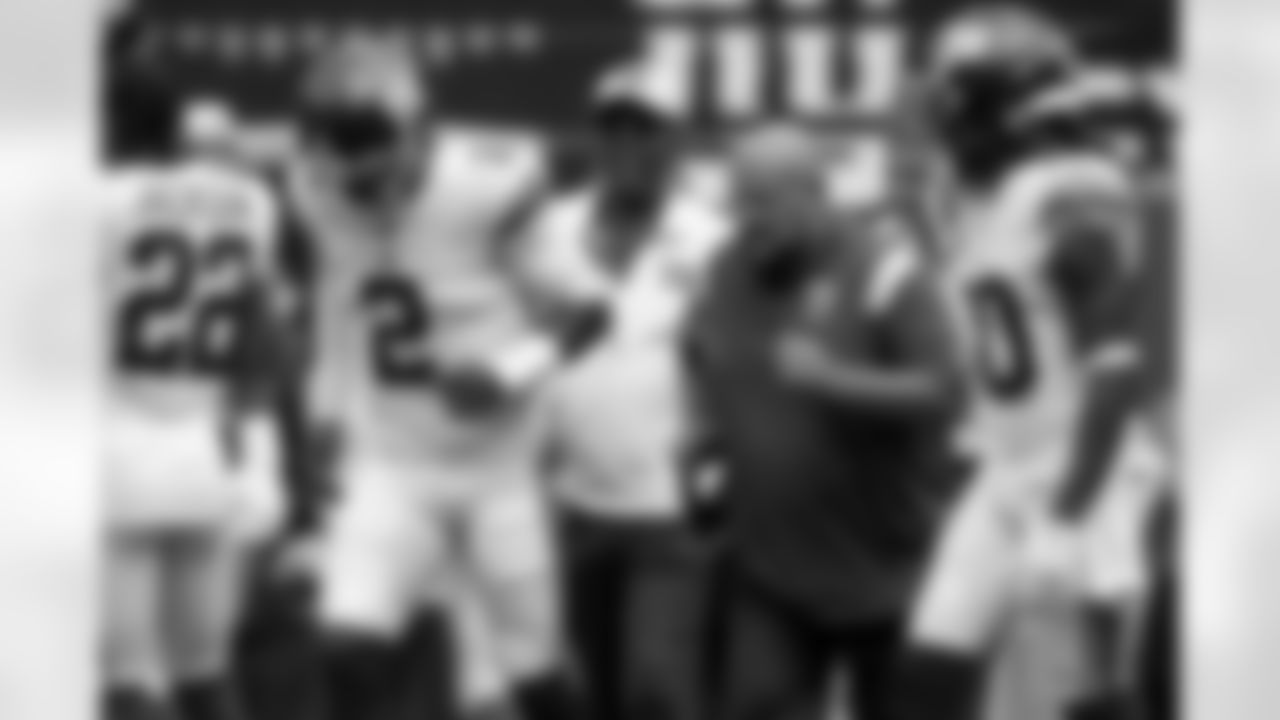
New York Giants quarterback Tyrod Taylor (2) runs off the field alongside head coach Brian Daboll, center right, after taking a hard hit from New York Jets defensive end Micheal Clemons (72) in the first half of a preseason NFL football game, Sunday, Aug. 28, 2022, in East Rutherford, N.J. (AP Photo/Julia Nikhinson)

Cincinnati Bengals head coach Zac Taylor, right, shakes hands with New York Giants head coach Brian Daboll after an NFL football game Sunday, Aug. 21, 2022, in East Rutherford, N.J. The Giants won 25-22. (AP Photo/John Munson)

New York Giants head coach Brian Daboll works the sidelines during practice before a preseason NFL football game against the New York Jets, Sunday, Aug. 28, 2022, in East Rutherford, N.J. (AP Photo/John Munson)
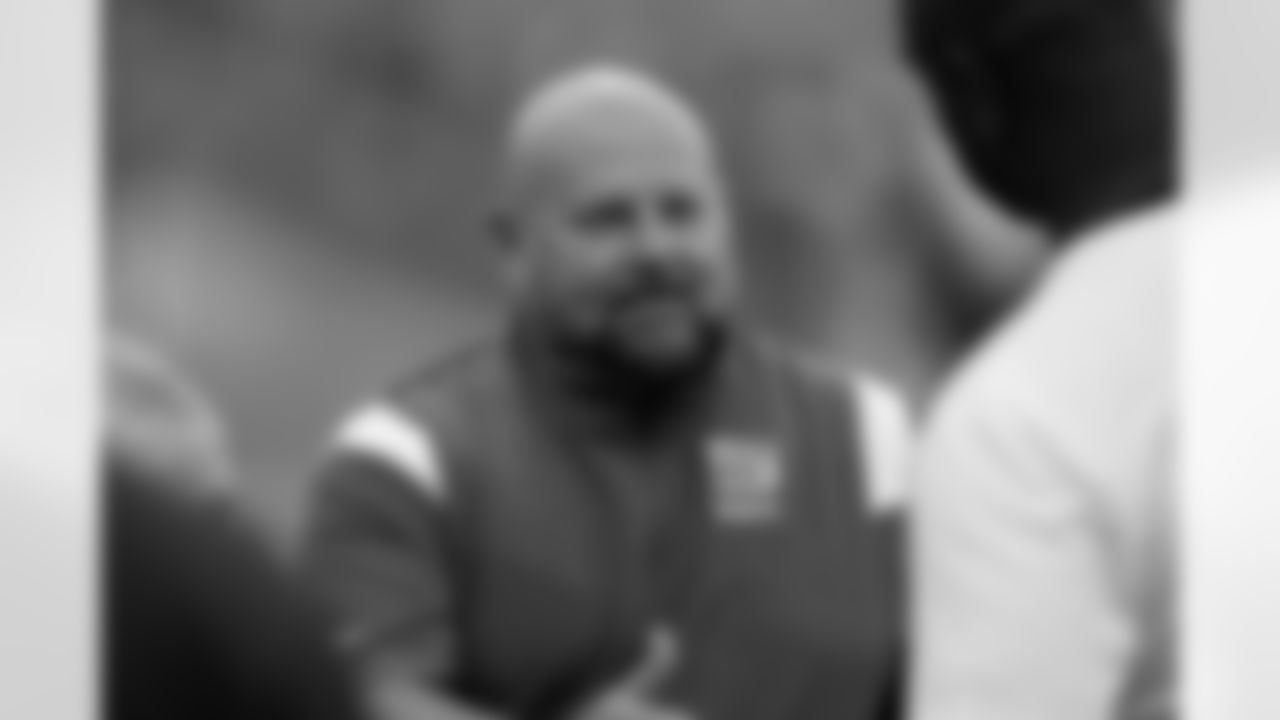
New York Giants head coach Brian Daboll greets people on the field prior to an NFL football game between against the New England Patriots, Thursday, Aug. 11, 2022, in Foxborough, Mass. (AP Photo/Charles Krupa)
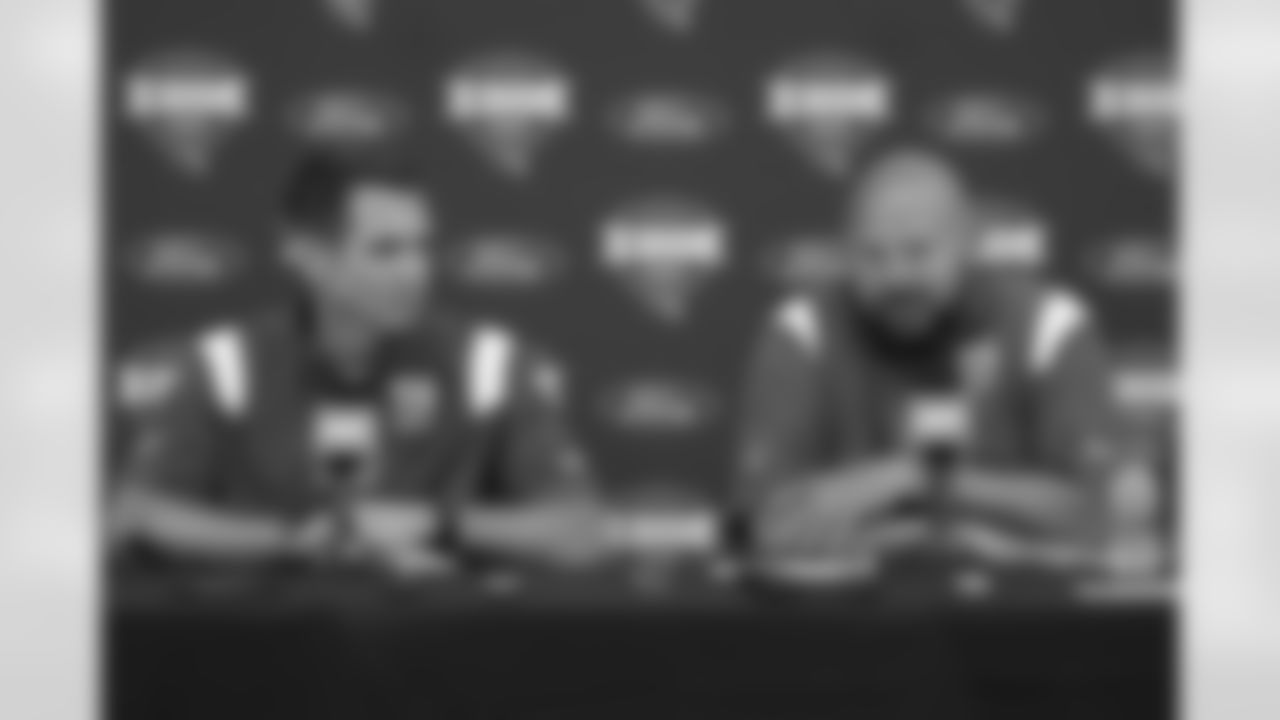
FILE - New York Giants general manager Joe Schoen, left, and head coach Brian Daboll, right, attend a news conference before training camp at the NFL football team's practice facility July 27, 2022, in East Rutherford, N.J. For the third time since 2018, the Giants are rebuilding again. Schoen has replaced Dave Gettleman as general manager and Daboll was selected to replace Joe Judge as coach. (AP Photo/John Minchillo, File)
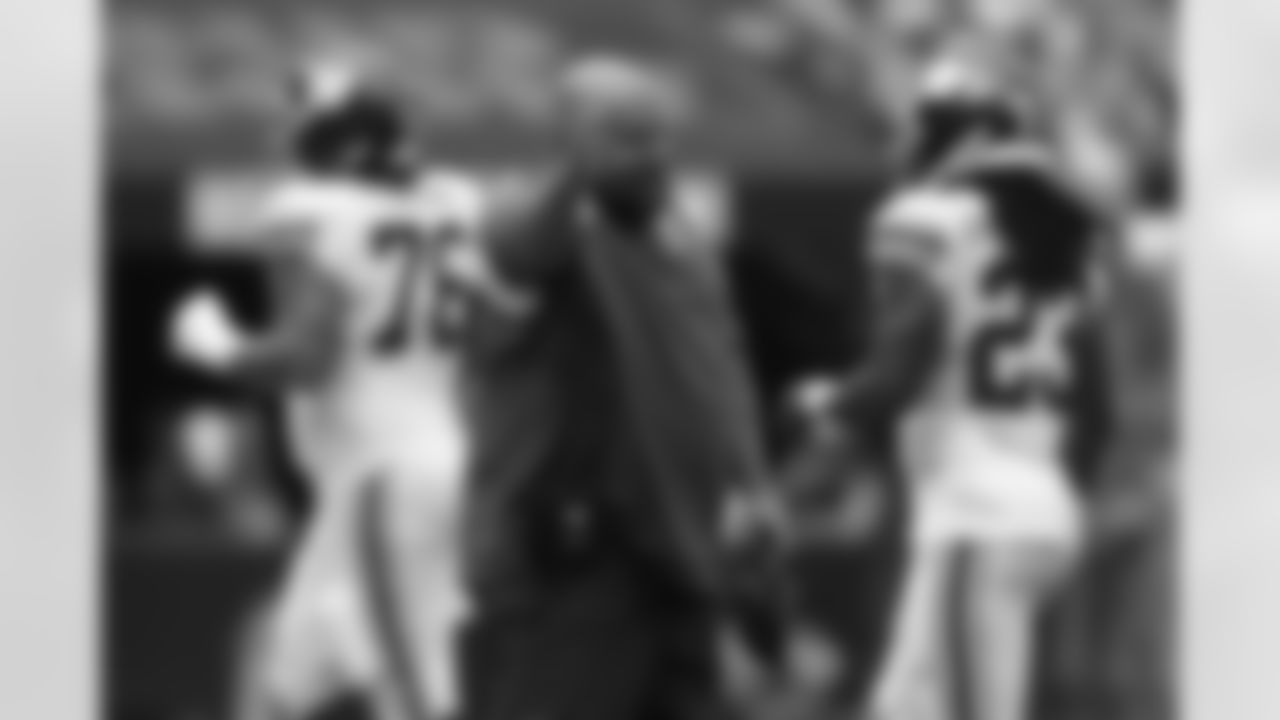
New York Giants head coach Brian Daboll works the sidelines in the first half of a preseason NFL football game against the New York Jets, Sunday, Aug. 28, 2022, in East Rutherford, N.J. (AP Photo/John Munson)
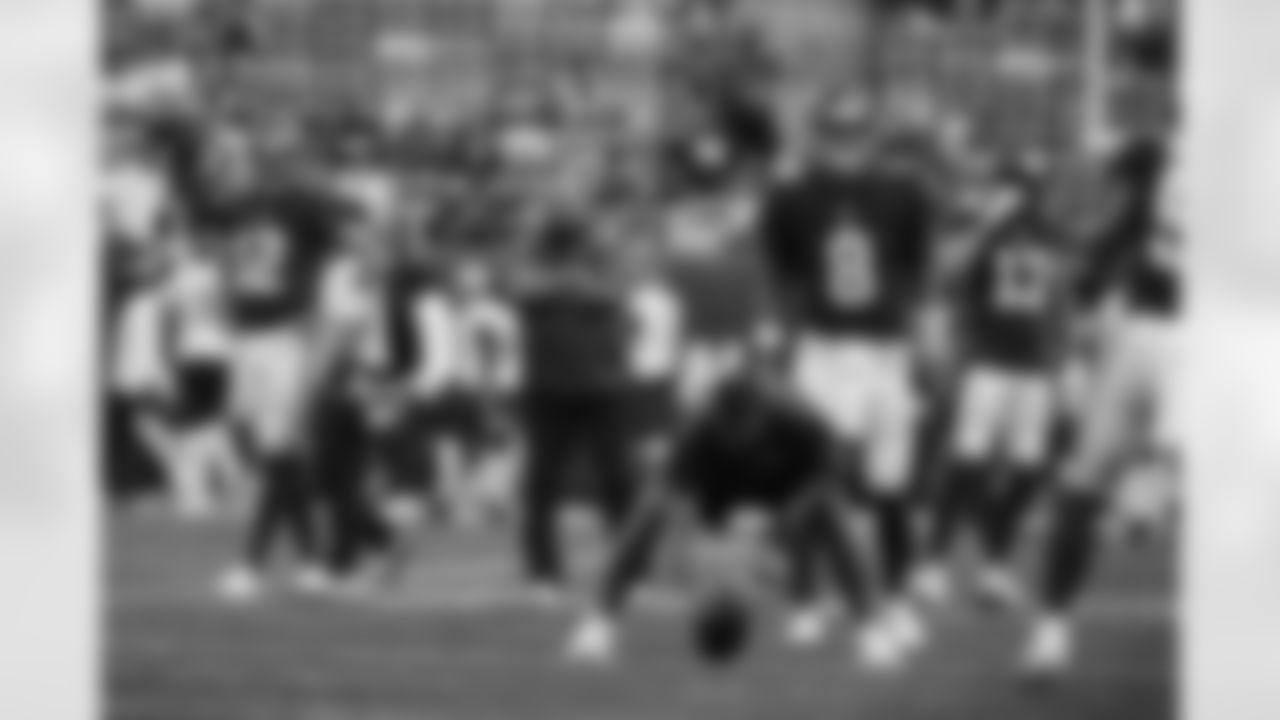
New York Giants head coach Brian Daboll watches his team warm up before a preseason NFL football game against the Cincinnati Bengals Sunday, Aug. 21, 2022, in East Rutherford, N.J. (AP Photo/John Munson)

New York Giants head coach Brian Daboll talks to reporters before a practice at the NFL football team's training facility in East Rutherford, N.J., Thursday, May 26, 2022. (AP Photo/Seth Wenig)

New York Giants head coach Brian Daboll on the sideline during the second half of an NFL football game against the New England Patriots, Thursday, Aug. 11, 2022, in Foxborough, Mass. (AP Photo/Greg M. Cooper)
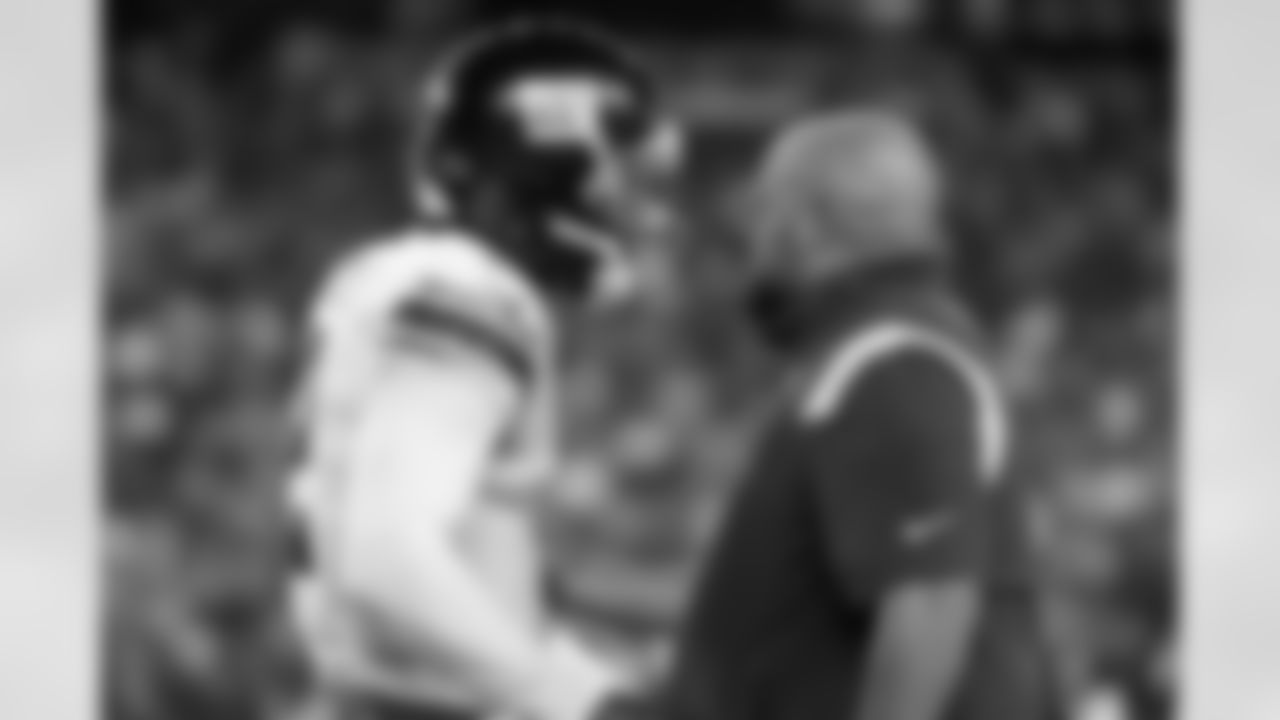
New York Giants quarterback Tyrod Taylor (2) talk with head coach Brian Daboll during the first half of an NFL football game against the New England Patriots, Thursday, Aug. 11, 2022, in Foxborough, Mass. (AP Photo/Greg M. Cooper)
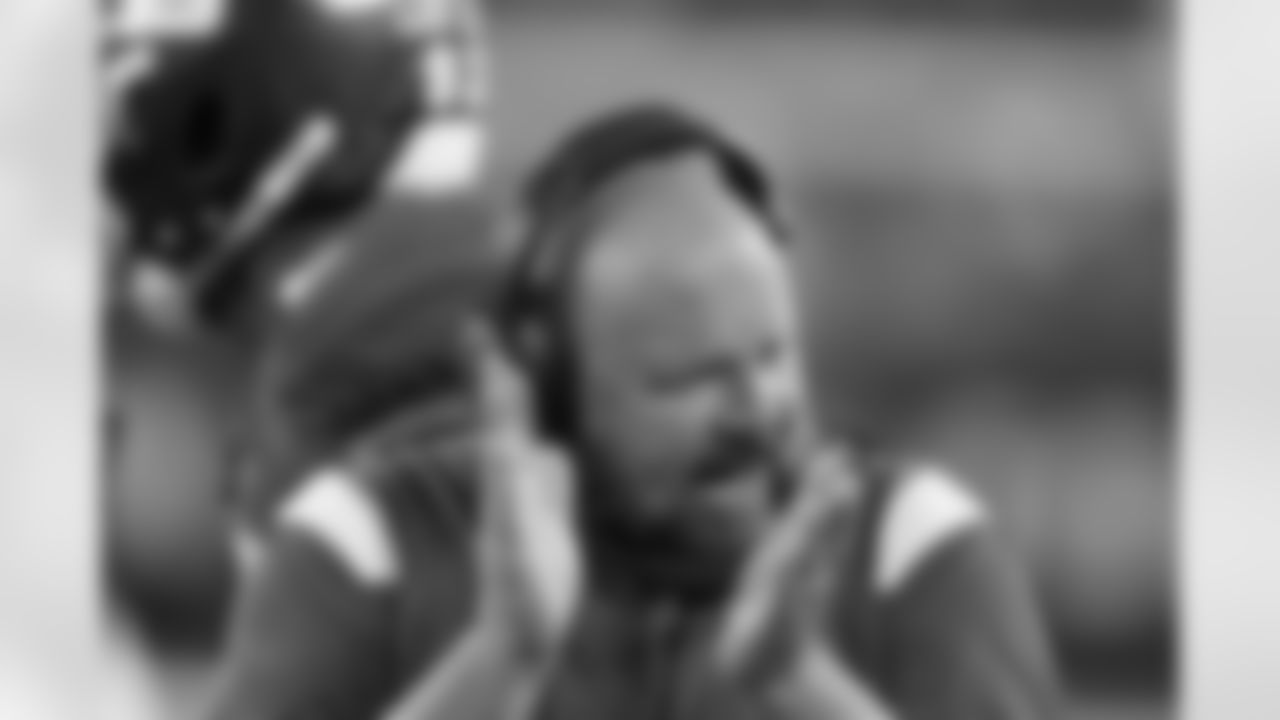
New York Giants head coach Brian Daboll calls out to his players during the first half of a preseason NFL football game against the Cincinnati Bengals Sunday, Aug. 21, 2022, in East Rutherford, N.J. (AP Photo/John Minchillo)
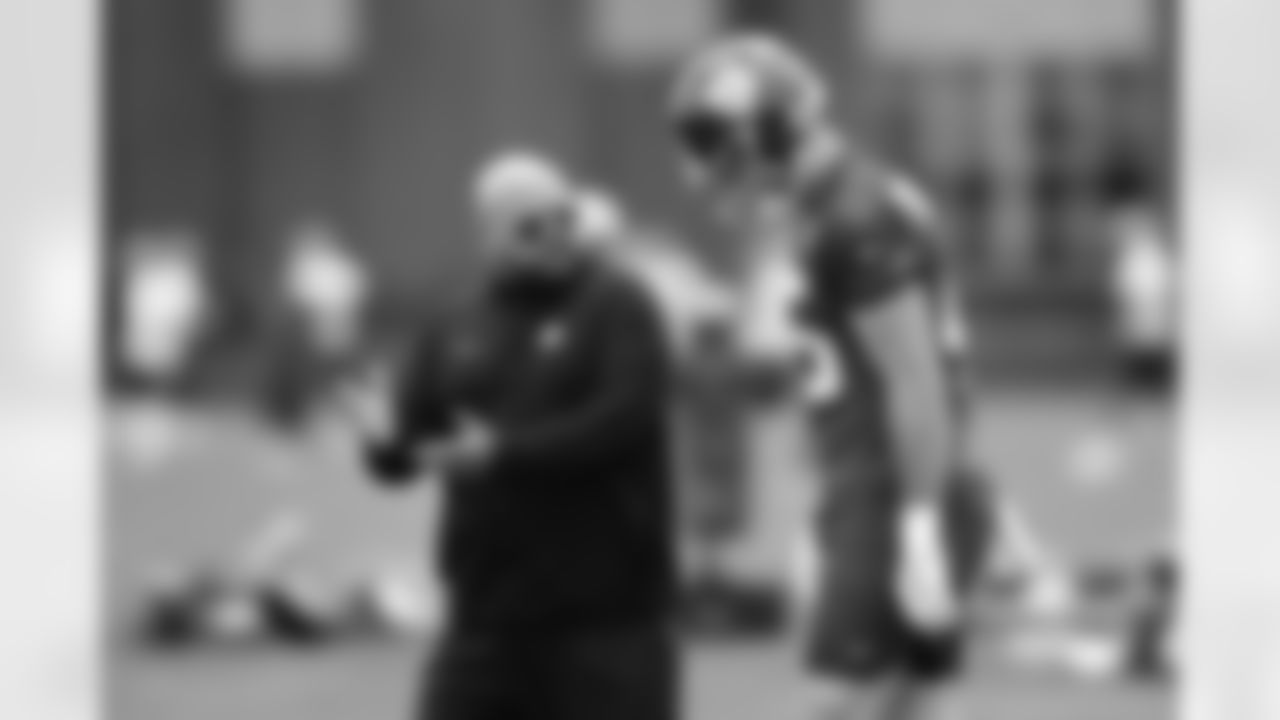
New York Giants head coach Brian Daboll talks to tight end Daniel Bellinger during drills at the NFL football team's rookie minicamp in East Rutherford, N.J., Friday, May 13, 2022. (AP Photo/Noah K. Murray)
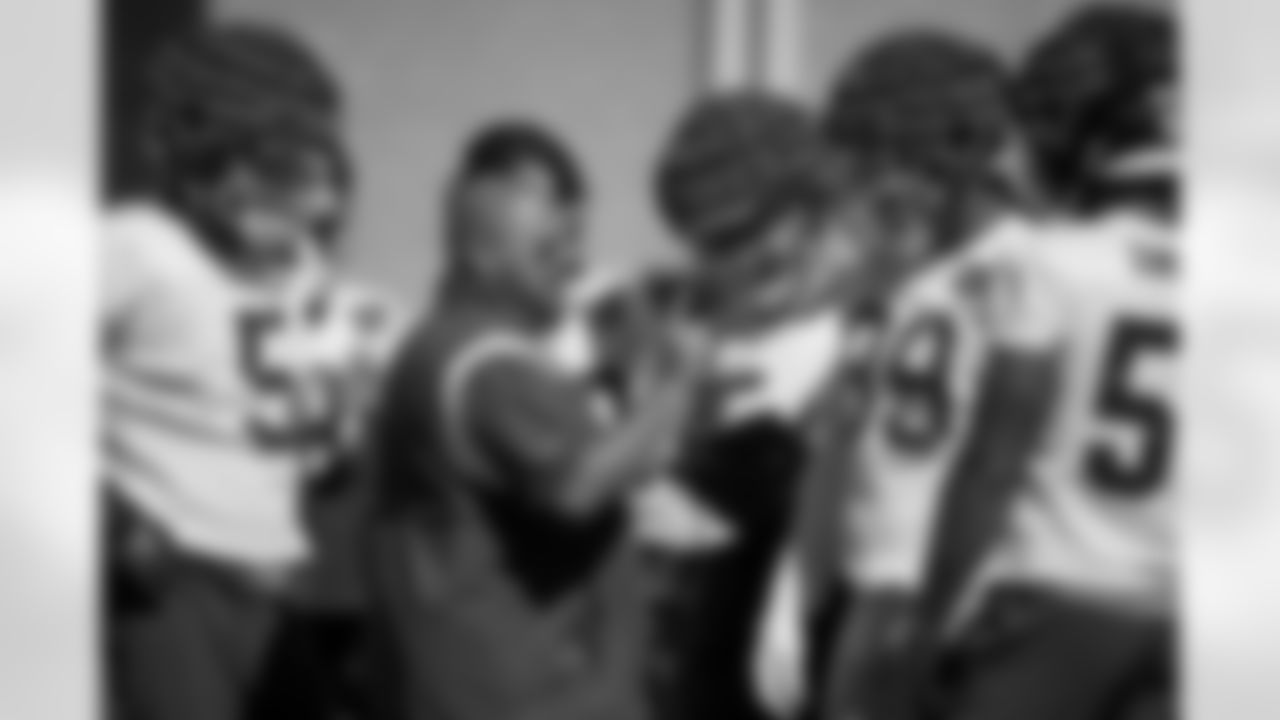
New York Giants head coach Brian Daboll, center, speaks with his first string defensive lineman during training camp at the NFL football team's practice facility, Saturday, July 30, 2022, in East Rutherford, N.J. (AP Photo/John Minchillo)
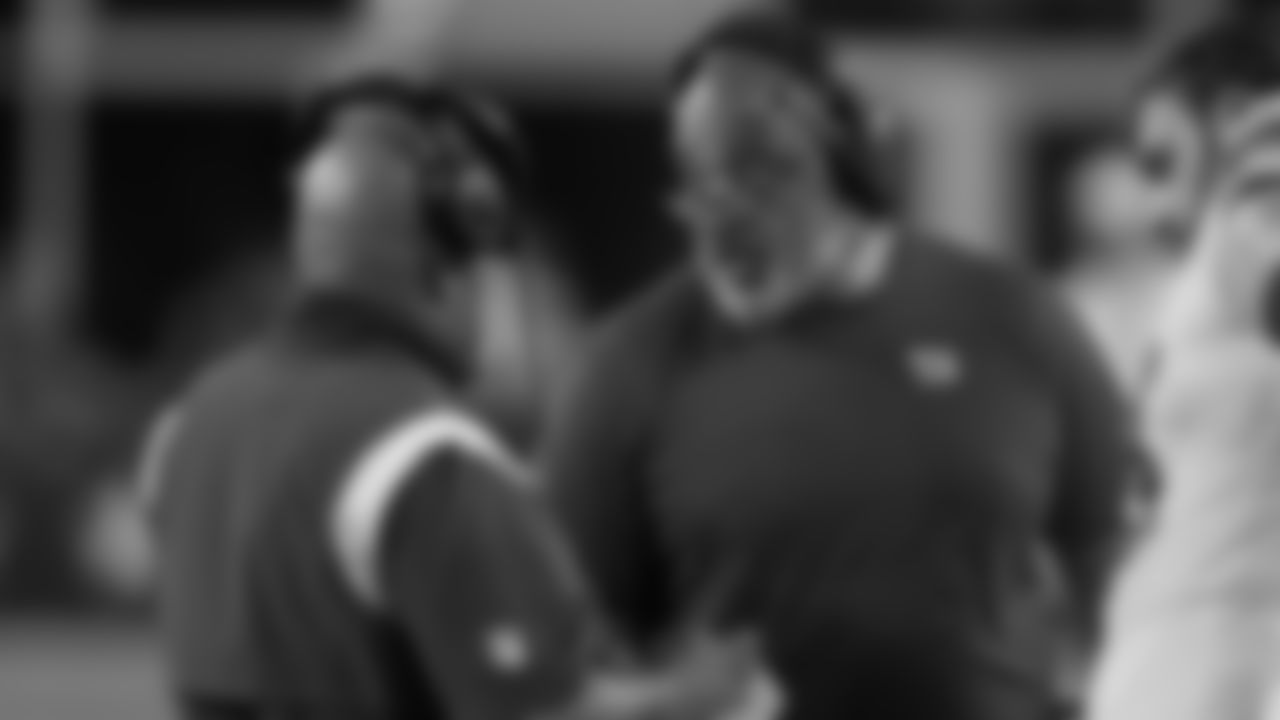
Giants offensive line coach Bobby Johnson talks with head coach Brian Daboll, left, during a preseason NFL football game, Thursday, Aug. 11, 2022, in Foxborough, Mass. (AP Photo/Charles Krupa)

New York Giants head coach Brian Daboll speaks with reporters during a coaches press availability at the NFL owner's meeting, Tuesday, March 29, 2022, at The Breakers resort in Palm Beach, Fla. (AP Photo/Rebecca Blackwell)
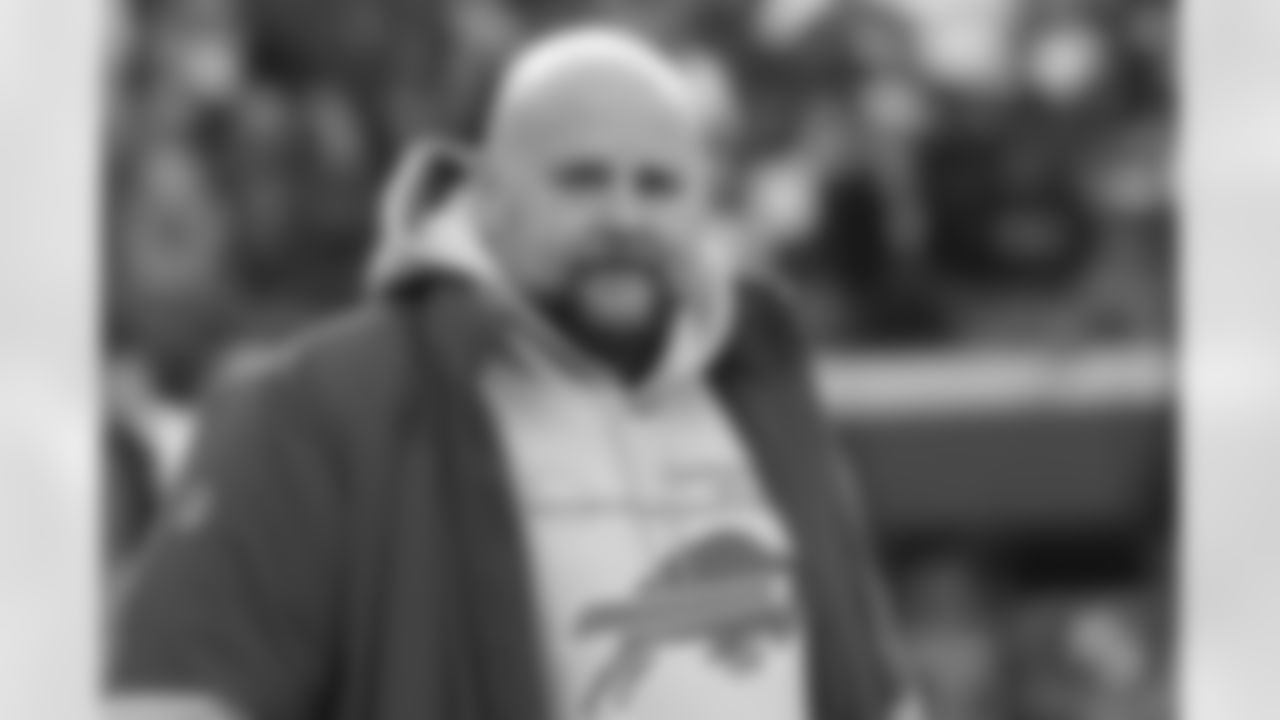
FILE - Buffalo Bills offensive coordinator Brian Daboll attends warmups before an NFL divisional playoff football game against the Kansas City Chiefs, Jan. 23, 2022, in Kansas City, Mo. The New York Giants hired Daboll as their head coach Friday, Jan. 28, 2022. (AP Photo/Reed Hoffmann, File)

New York Giants head coach Brian Daboll answers questions from media at the NFL football team's rookie minicamp in East Rutherford, N.J., Friday, May 13, 2022. (AP Photo/Noah K. Murray)

New York Giants head coach Brian Daboll waits to take the stage to speak at an introductory news conference at the NFL football team's training facility, Monday, Jan. 31, 2022, in East Rutherford, N.J. (AP Photo/John Minchillo)

New York Giants head coach Brian Daboll introduces Osi Umenyiora during training camp practice at Quest Diagnostics Training Center on Thursday August 18, 2022 in East Rutherford, New Jersey
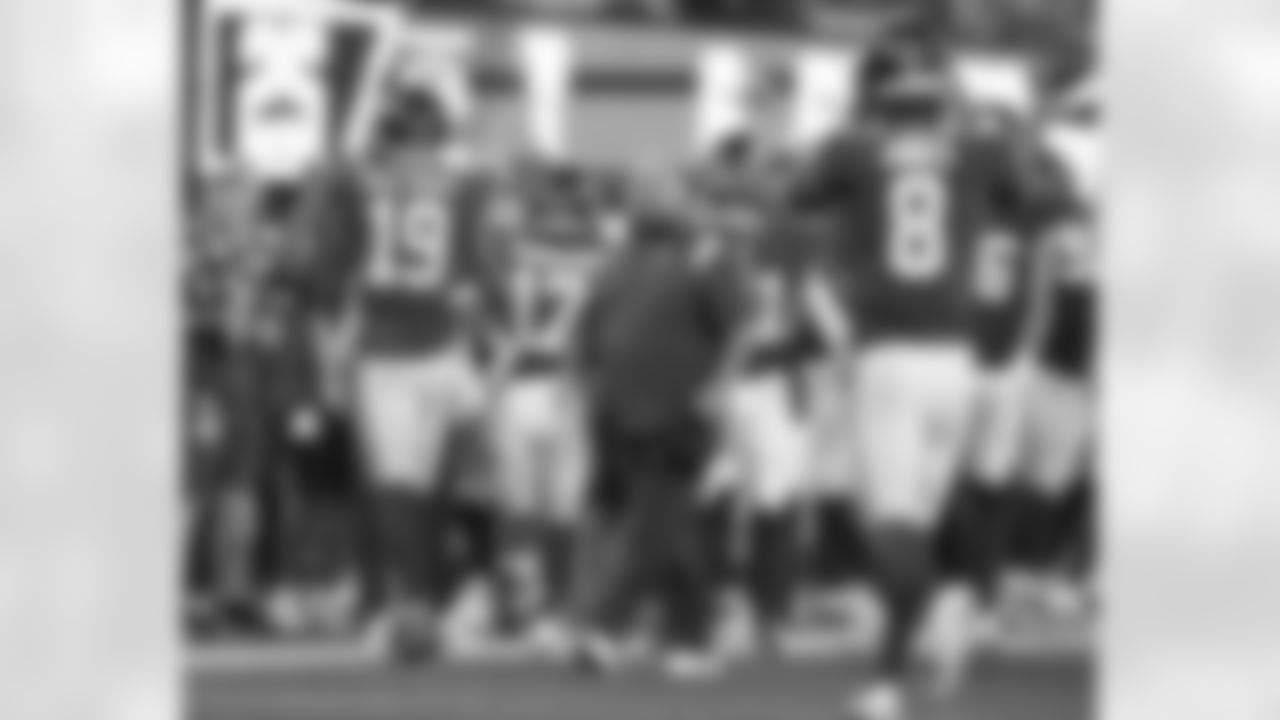
New York Giants head coach Brian Daboll during a pre-season football game against the Cincinnati Bengals on Sunday August 21, 2022 in East Rutherford, New Jersey (Evan Pinkus/NY Giants)
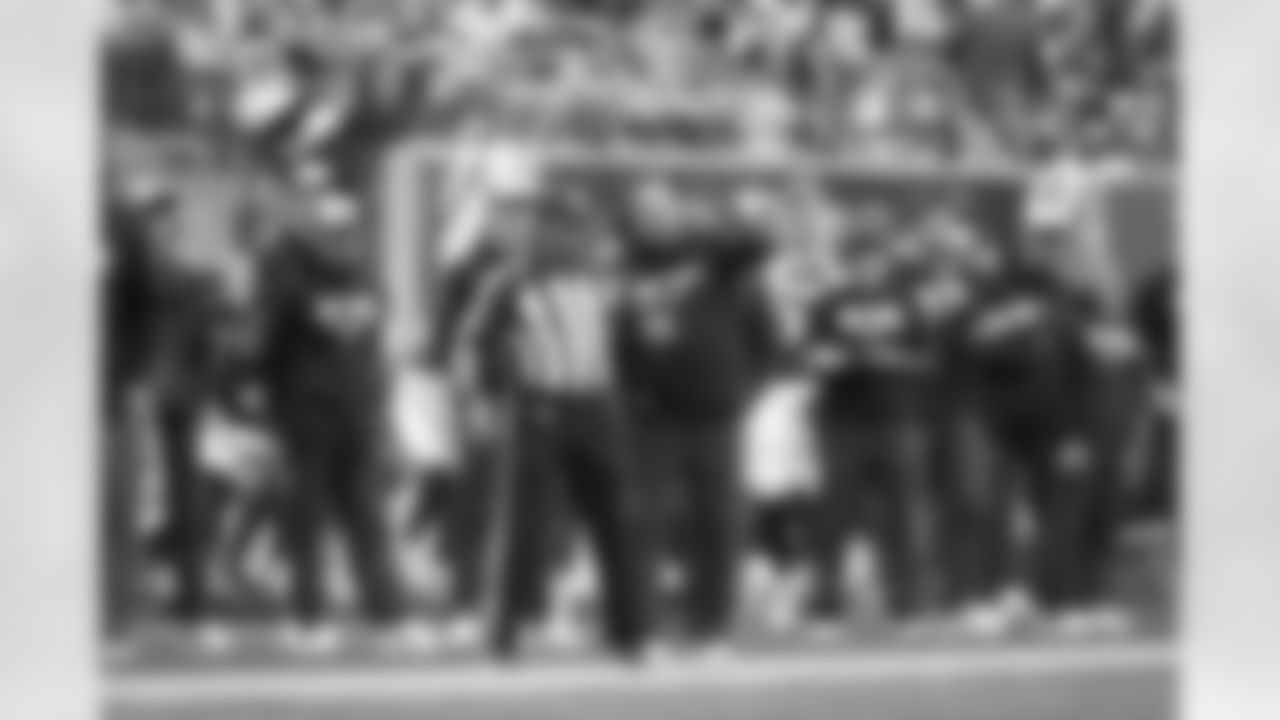
New York Giants head coach Brian Daboll during a football game against the Baltimore Ravens on Sunday October 16, 2022 in East Rutherford, New Jersey (Evan Pinkus/NY Giants)
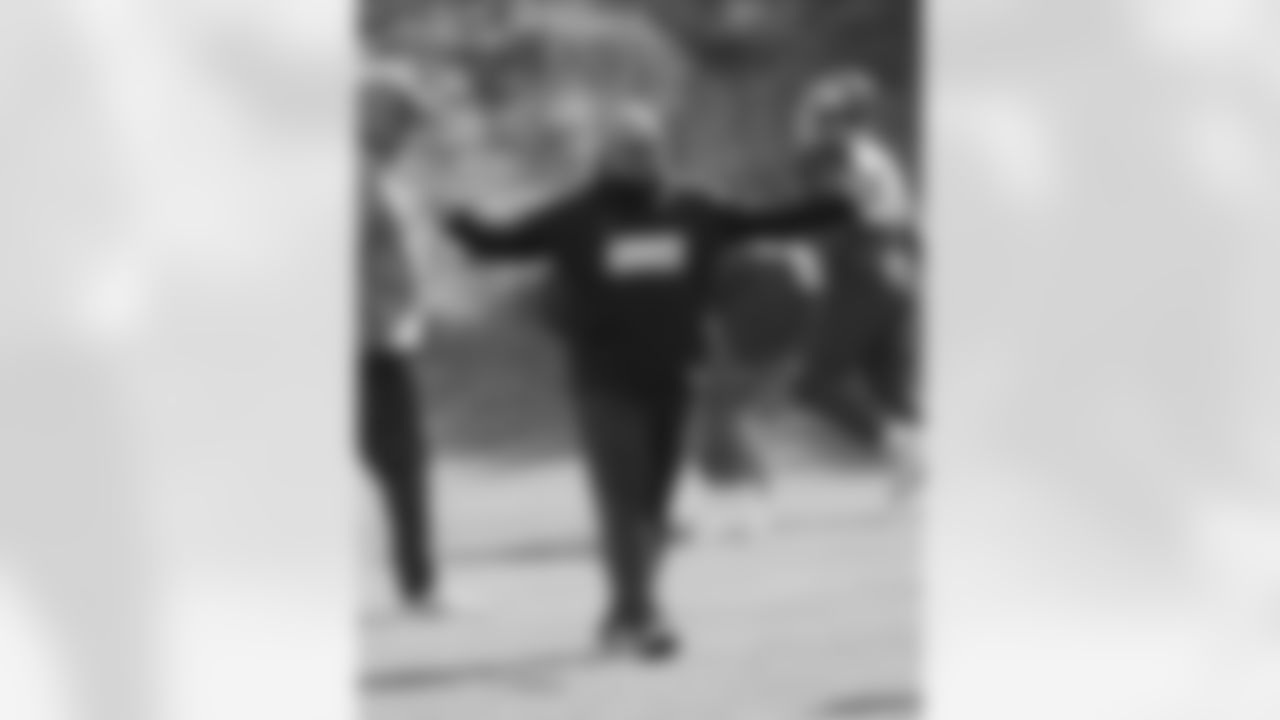
New York Giants head coach Brian Daboll at practice in Ware, England before a game against the Green Bay Packers. Credit: Evan Pinkus/New York Giants

New York Giants head coach Brian Daboll talks with quarterback Daniel Jones (8) during a pre-season football game against the Cincinnati Bengals on Sunday August 21, 2022 in East Rutherford, New Jersey (Evan Pinkus/NY Giants)
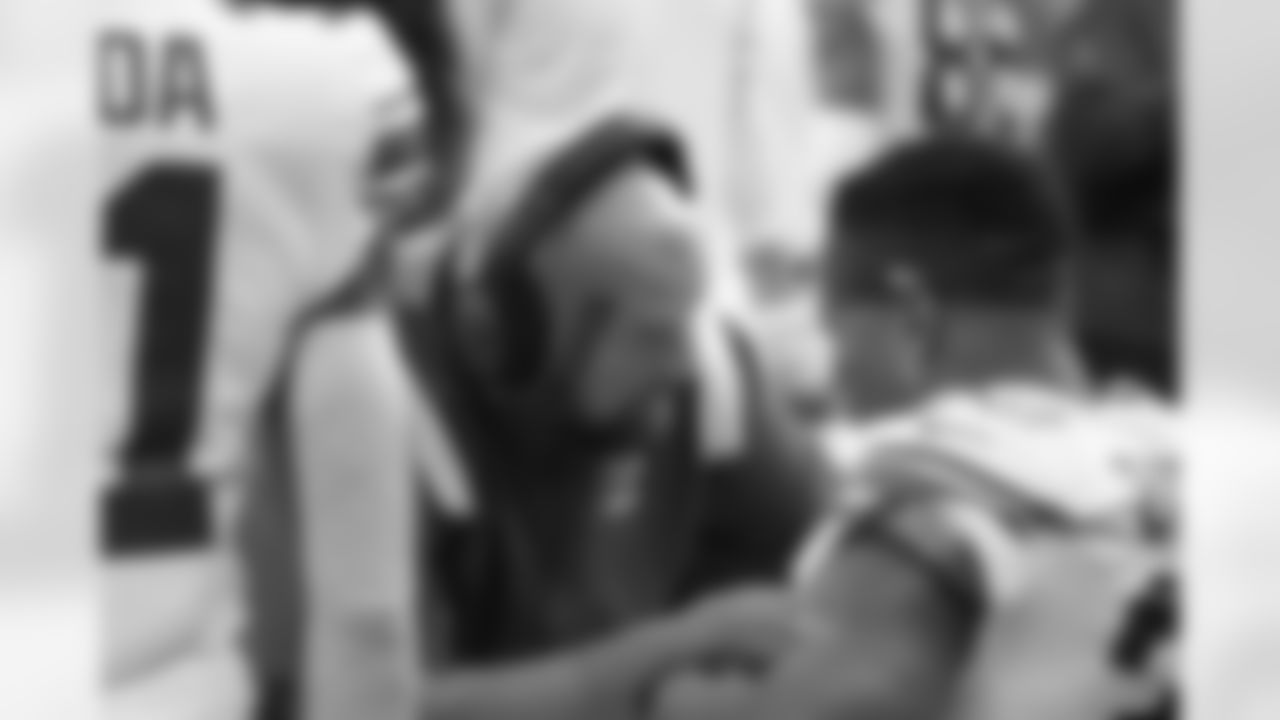

New York Giants head coach Brian Daboll during a football game against the Chicago Bears on Sunday October 2, 2022 in East Rutherford, New Jersey (Evan Pinkus/NY Giants)
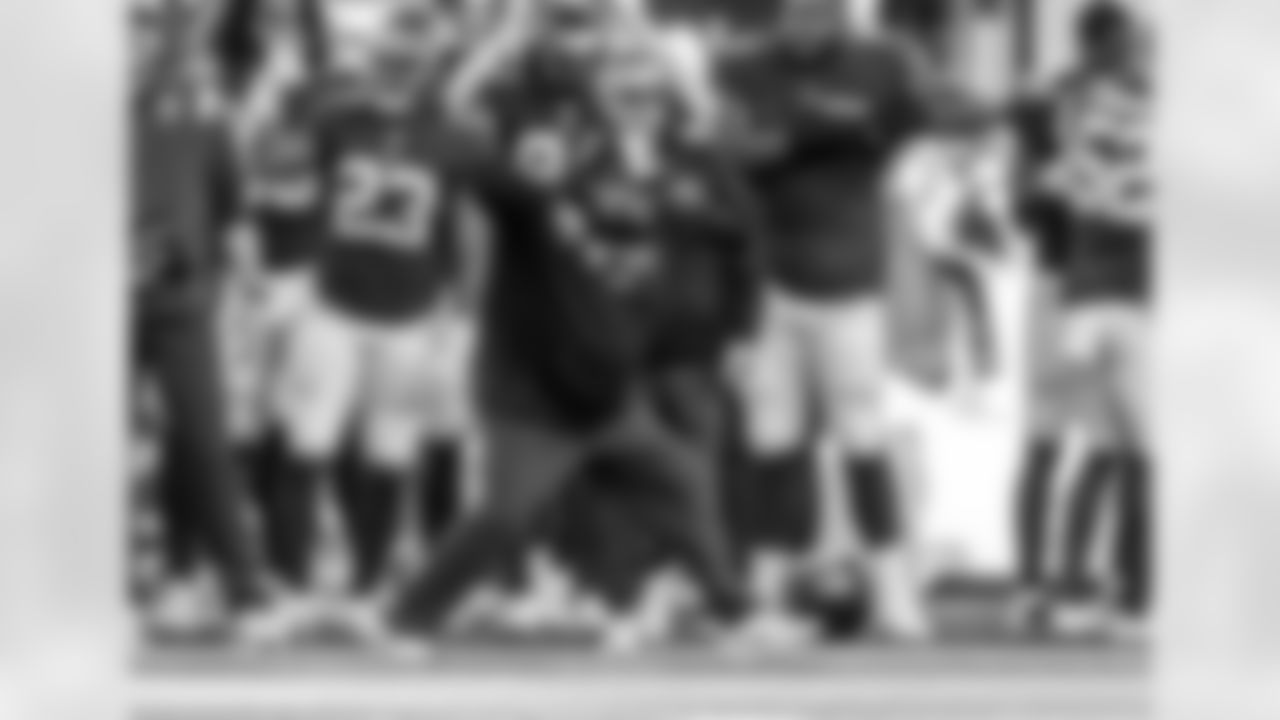
The New York Giants take on the Baltimore Ravens at Metlife Stadium in East Rutherford, NJ on Sunday October 16, 2022. (Ben Solomon/New York Giants)

New York Giants head coach Brian Daboll talks with Osi Umenyiora during training camp practice at Quest Diagnostics Training Center on Thursday August 18, 2022 in East Rutherford, New Jersey

New York Giants head coach Brian Daboll at practice in Ware, England before a game against the Green Bay Packers. Credit: Evan Pinkus/New York Giants
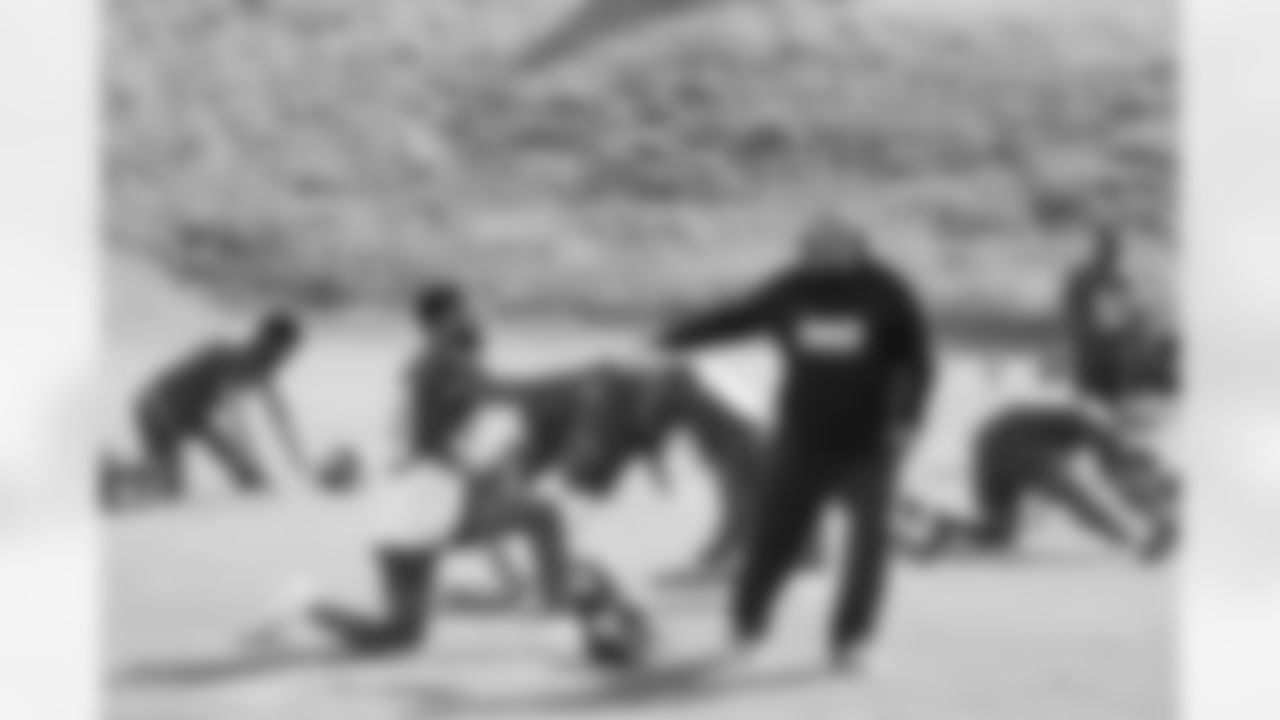
New York Giants head coach Brian Daboll shakes hands with New York Giants safety Julian Love (20) at practice in Ware, England before a game against the Green Bay Packers. Credit: Evan Pinkus/New York Giants
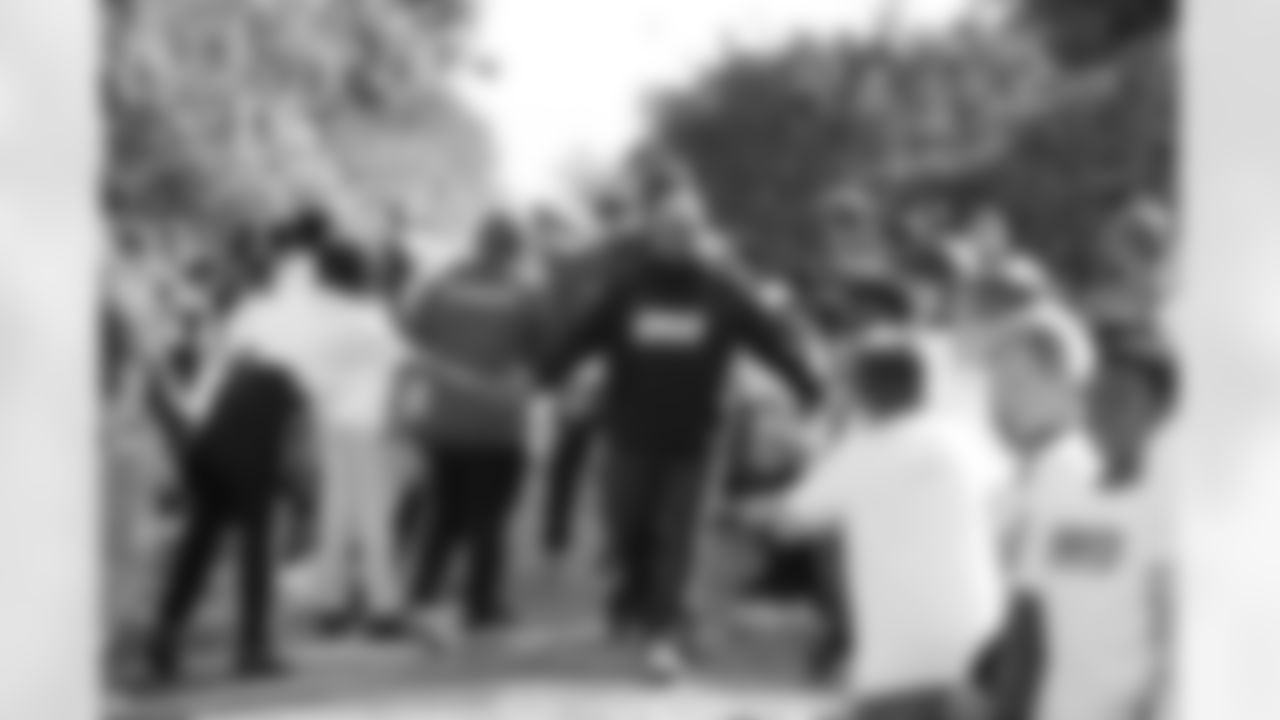
New York Giants head coach Brian Daboll walks to practice in England before a game against the Green Bay Packers Credit: Evan Pinkus/ New York Giants

New York Giants head coach Brian Daboll fist bumps Shea Tierney before a week 1 football game against the Tennessee Titans on Sunday September 11, 2022 in Nashville, Tennesse (Evan Pinkus/NY Giants)
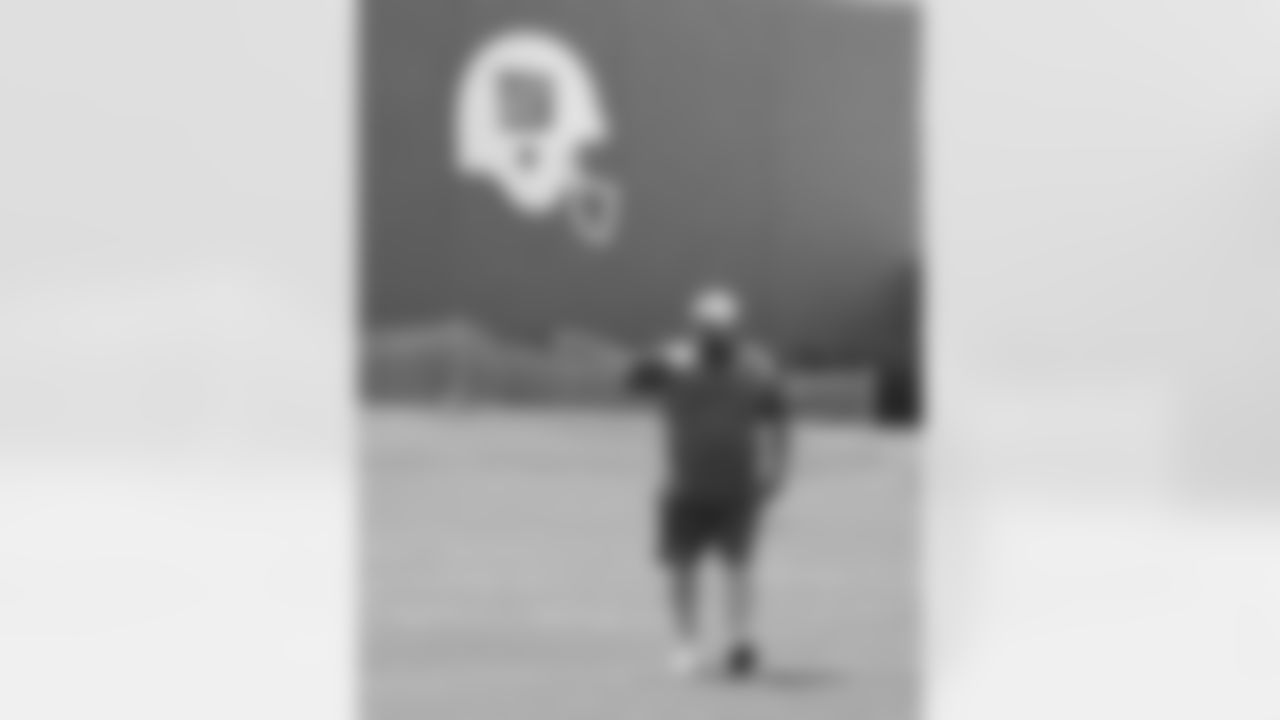
New York Giants head coach Brian Daboll during training camp practice at Quest Diagnostics Training Center on Wednesday August 24, 2022 in East Rutherford, New Jersey
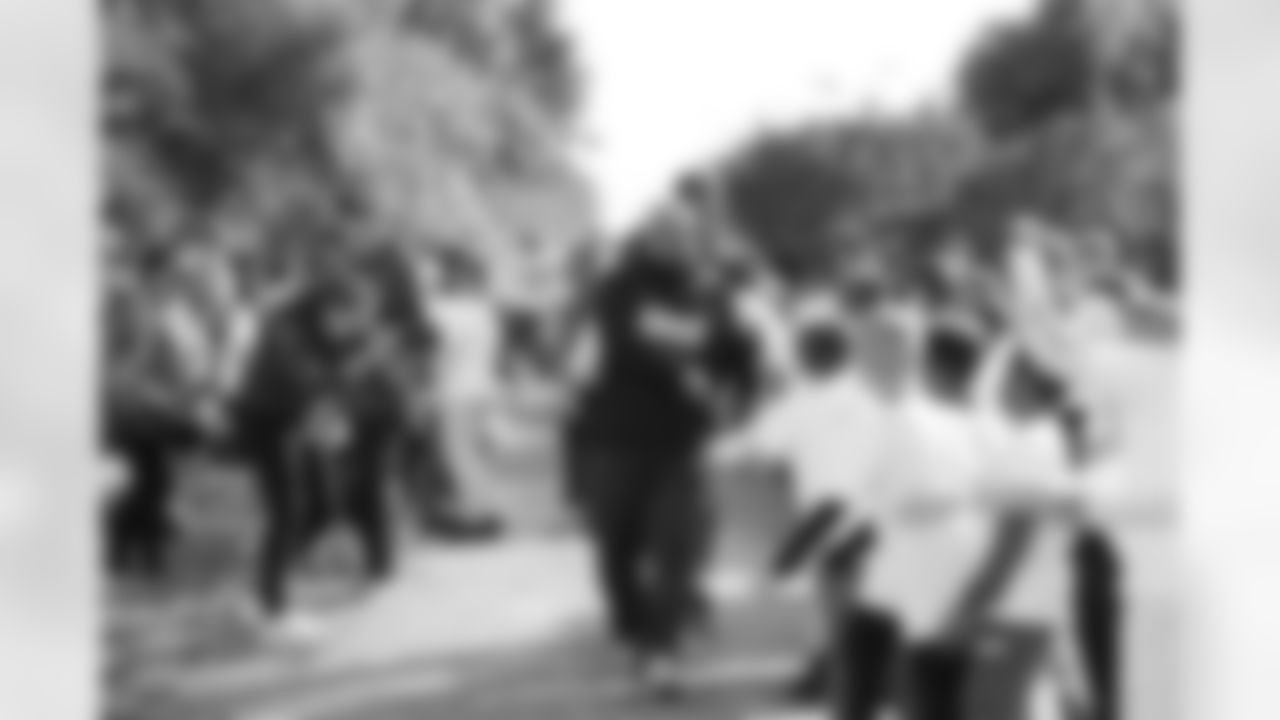
New York Giants head coach Brian Daboll walks to practice in England before a game against the Green Bay Packers Credit: Evan Pinkus/ New York Giants
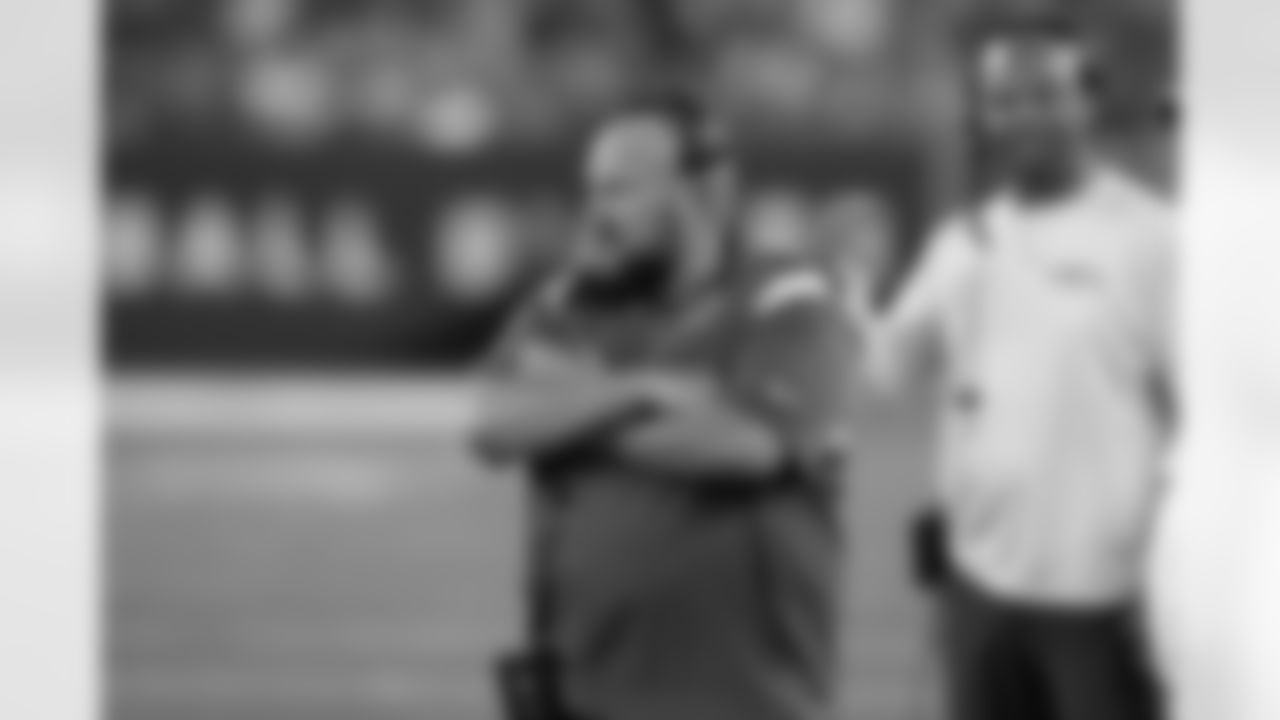
New York Giants head coach Brian Daboll during a pre-season football game against the Cincinnati Bengals on Sunday August 21, 2022 in East Rutherford, New Jersey (Evan Pinkus/NY Giants)

The New York Giants take on the Baltimore Ravens at Metlife Stadium in East Rutherford, NJ on Sunday October 16, 2022. (Ben Solomon/New York Giants)
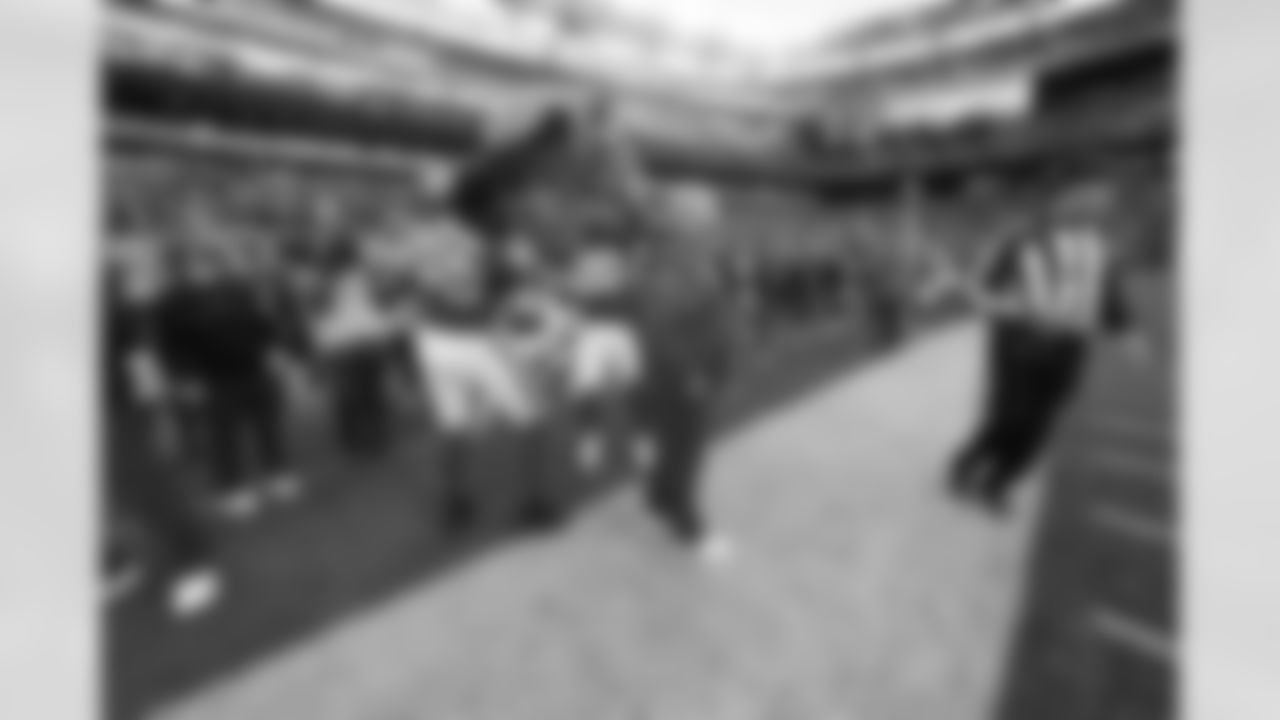
New York Giants linebacker Jihad Ward (55) and safety Julian Love (20) dump Gatorade on New York Giants head coach Brian Daboll during a NFL football game against the against the Indianapolis Colts, Sunday January 1, 2023 in East Rutherford, NJ (Evan Pinkus\New York Giants )

Brian Daboll Head Coach, Leonard Williams (99)
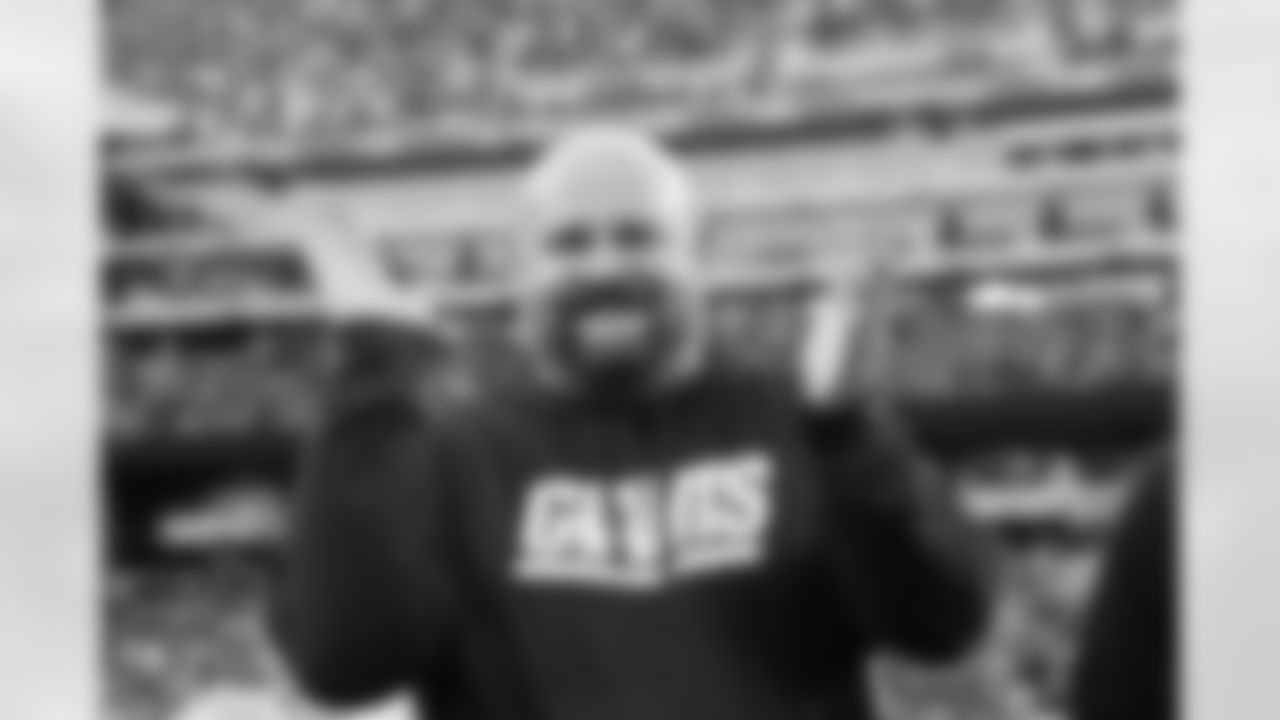
Brian Daboll Head Coach

Head Coach Brian Daboll Head Coach

Brian Daboll Head Coach
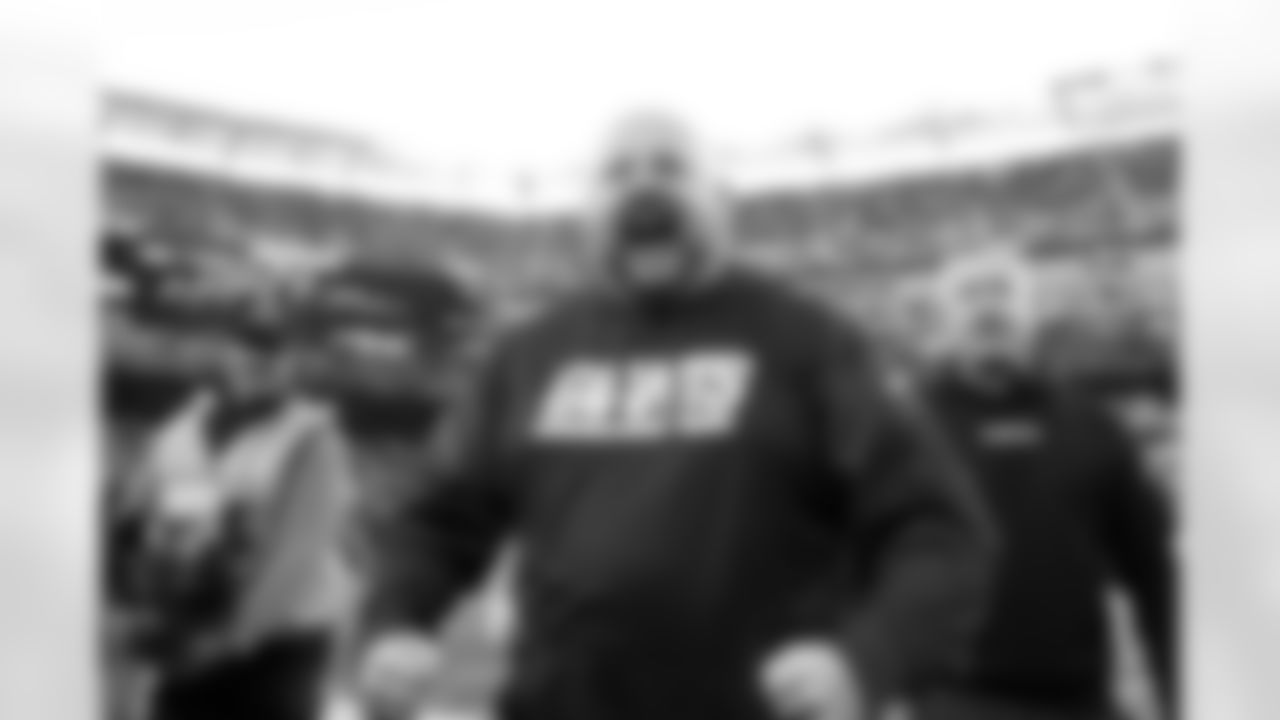
Brian Daboll Head Coach

HC Brian Daboll
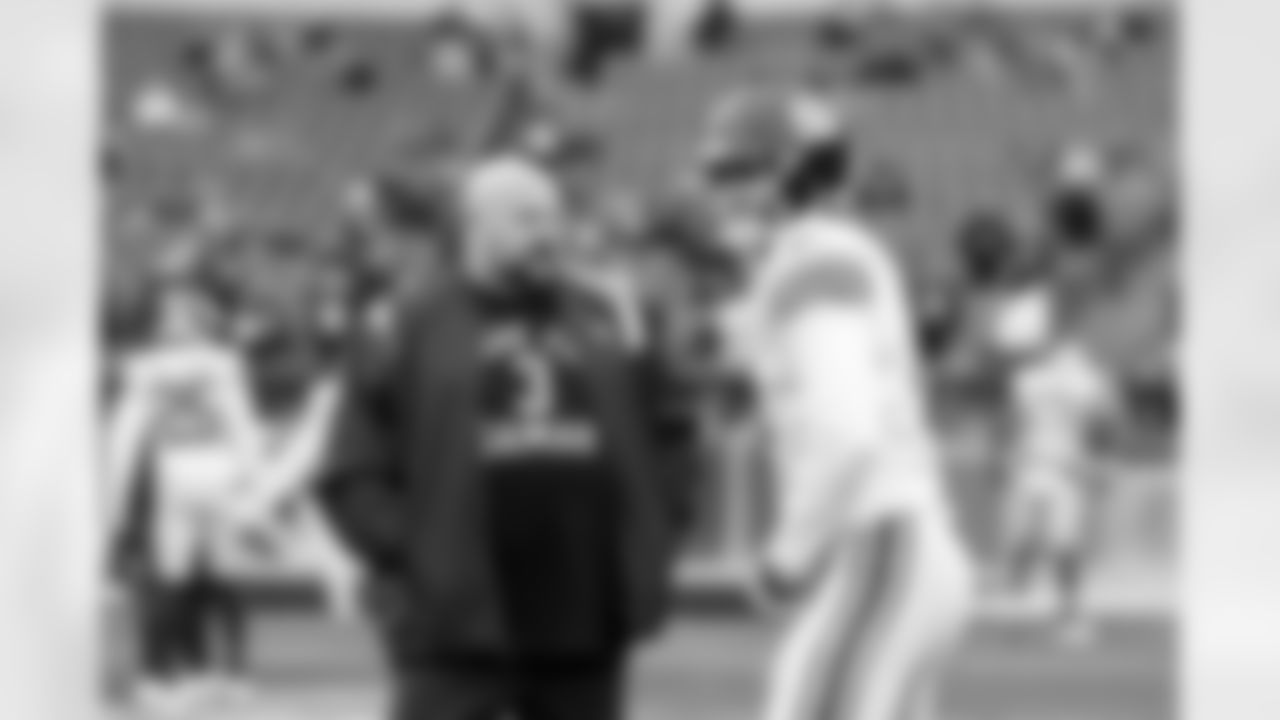
Brian Daboll Head Coach, Daniel Jones (8)
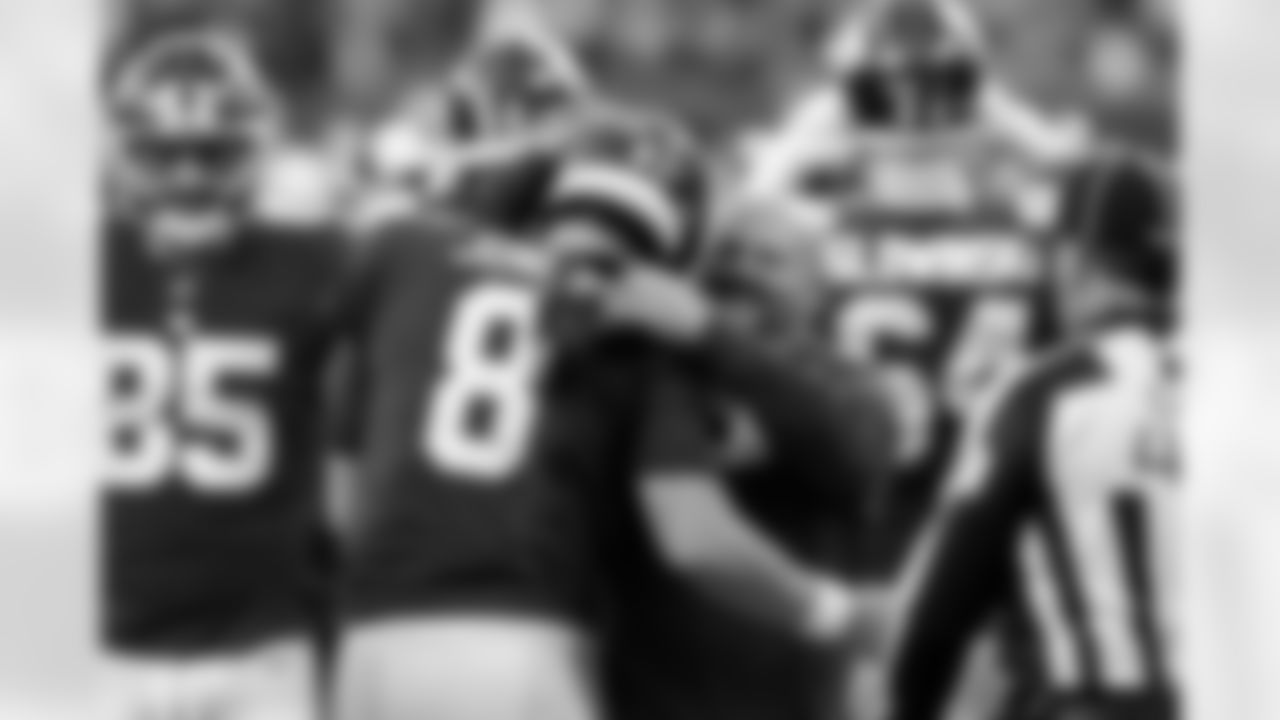
Brian Daboll Head Coach, Daniel Jones (8)
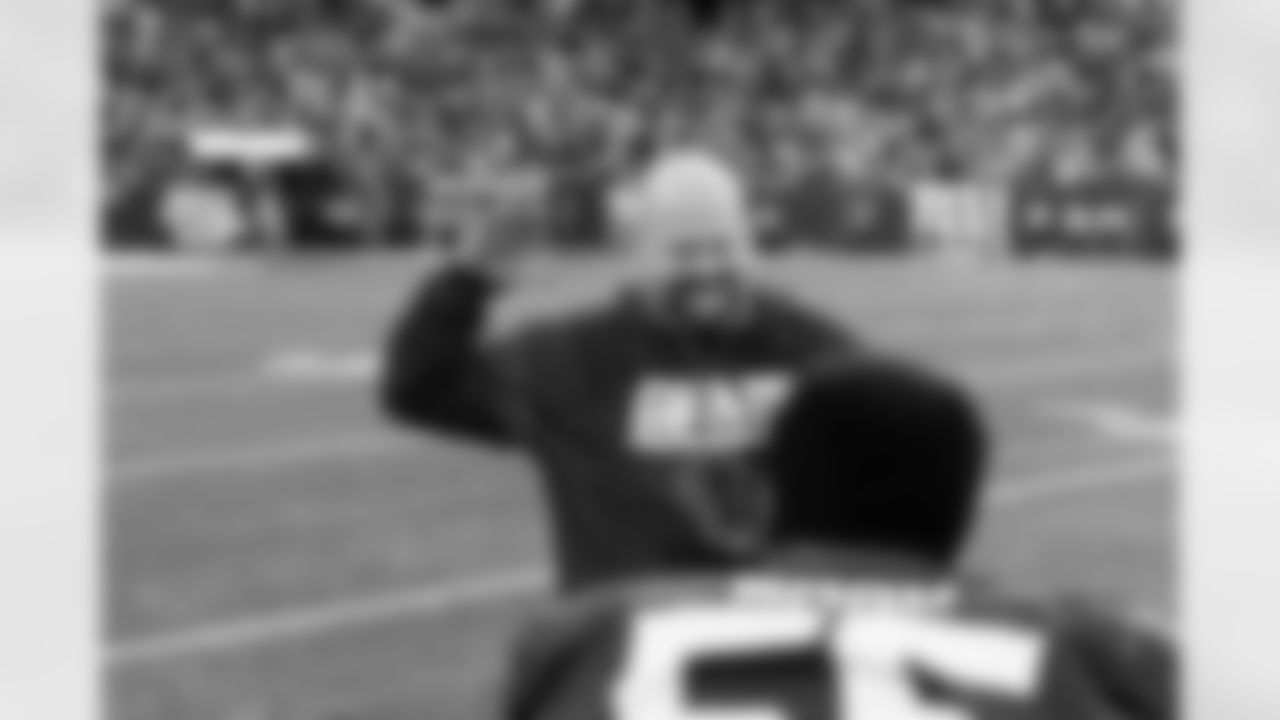
Brian Daboll Head Coach
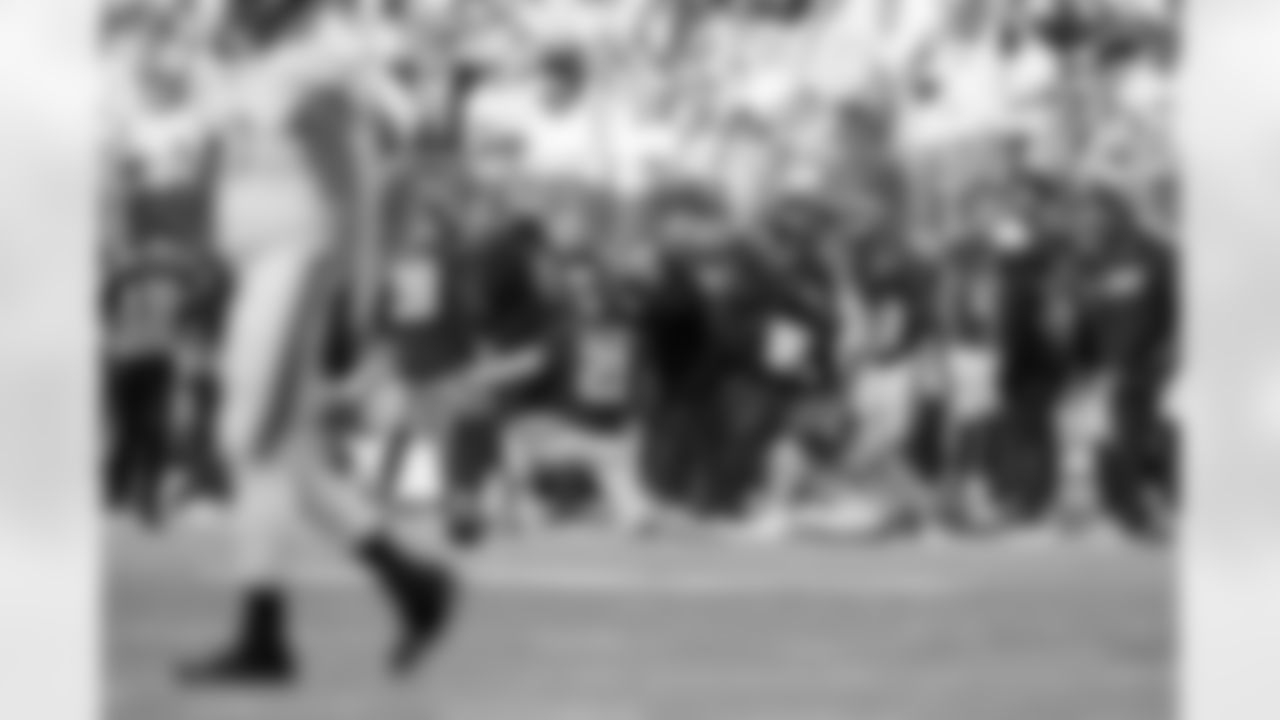
Landon Collins (21), Brian Daboll Head Coach

Brian Daboll Head Coach

New York Giants head coach Brian Daboll after a NFL football game against the Indianapolis Colts, Sunday January 1, 2023 in East Rutherford, NJ (Evan Pinkus\New York Giants )

Don Martindale Defensive Coordinator, Brian Daboll Head Coach

New York Giants head coach Brian Daboll talks to his team following a NFL football game against the Indianapolis Colts, Sunday January 1, 2023 in East Rutherford, NJ (Evan Pinkus\New York Giants )

New York Giants head coach Brian Daboll hugs General Manager Joe Schoen following a NFL football game against the against the Indianapolis Colts, Sunday January 1, 2023 in East Rutherford, NJ (Evan Pinkus\New York Giants )

New York Giants head coach Brian Daboll during a NFL football game against the Philadelphia Eagles, Sunday January 8, 2023 in Philadelphia, Pennsylvania (Evan Pinkus\New York Giants )

New York Giants head coach Brian Daboll after a NFL football game against the Indianapolis Colts, Sunday January 1, 2023 in East Rutherford, NJ (Evan Pinkus\New York Giants )

New York Giants head coach Brian Daboll after beating the Indianapolis Colts, Sunday January 1, 2023 in East Rutherford, NJ (Evan Pinkus\New York Giants )
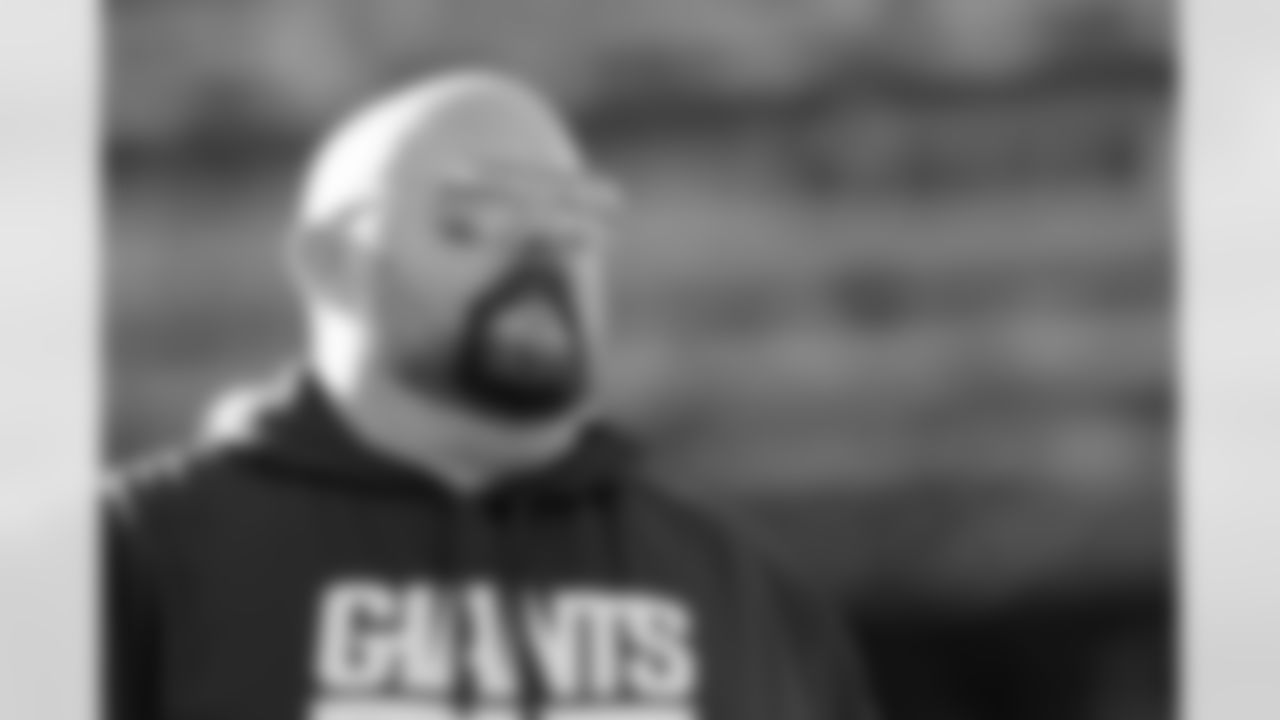
Brian Daboll Head Coach
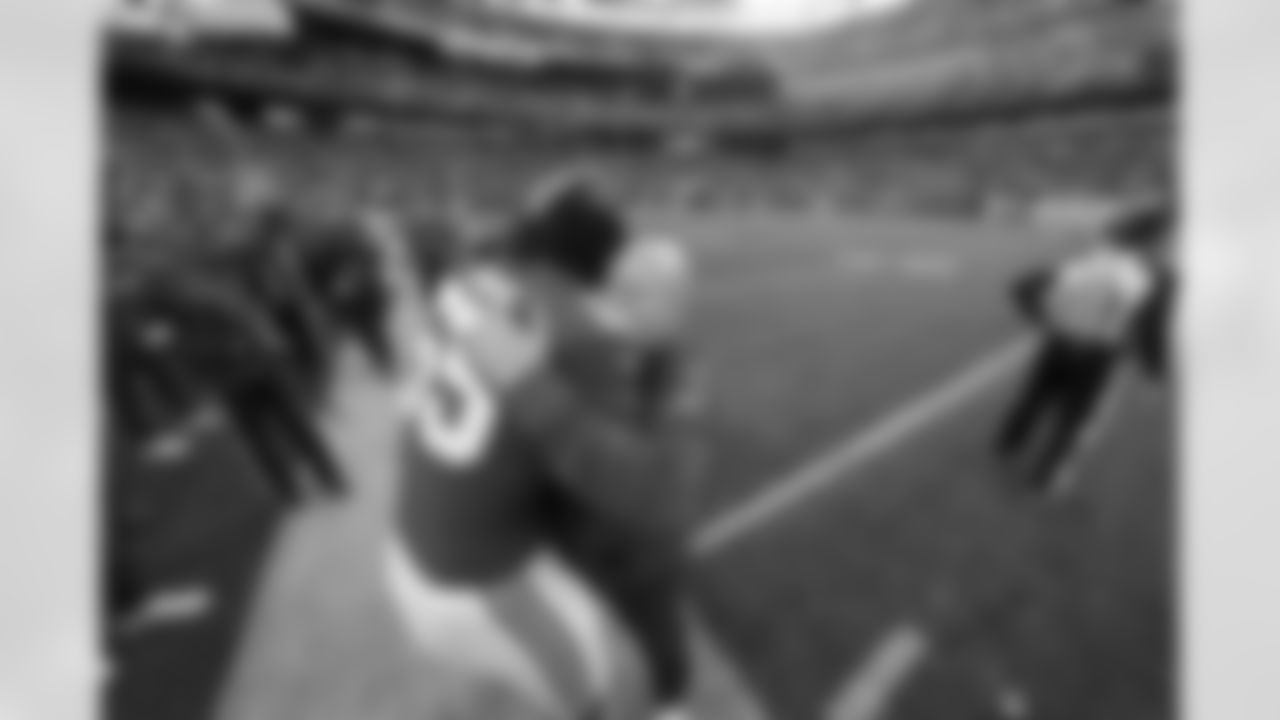
New York Giants head coach Brian Daboll hugs New York Giants linebacker Jihad Ward (55) during a NFL football game against the against the Indianapolis Colts, Sunday January 1, 2023 in East Rutherford, NJ (Evan Pinkus\New York Giants )
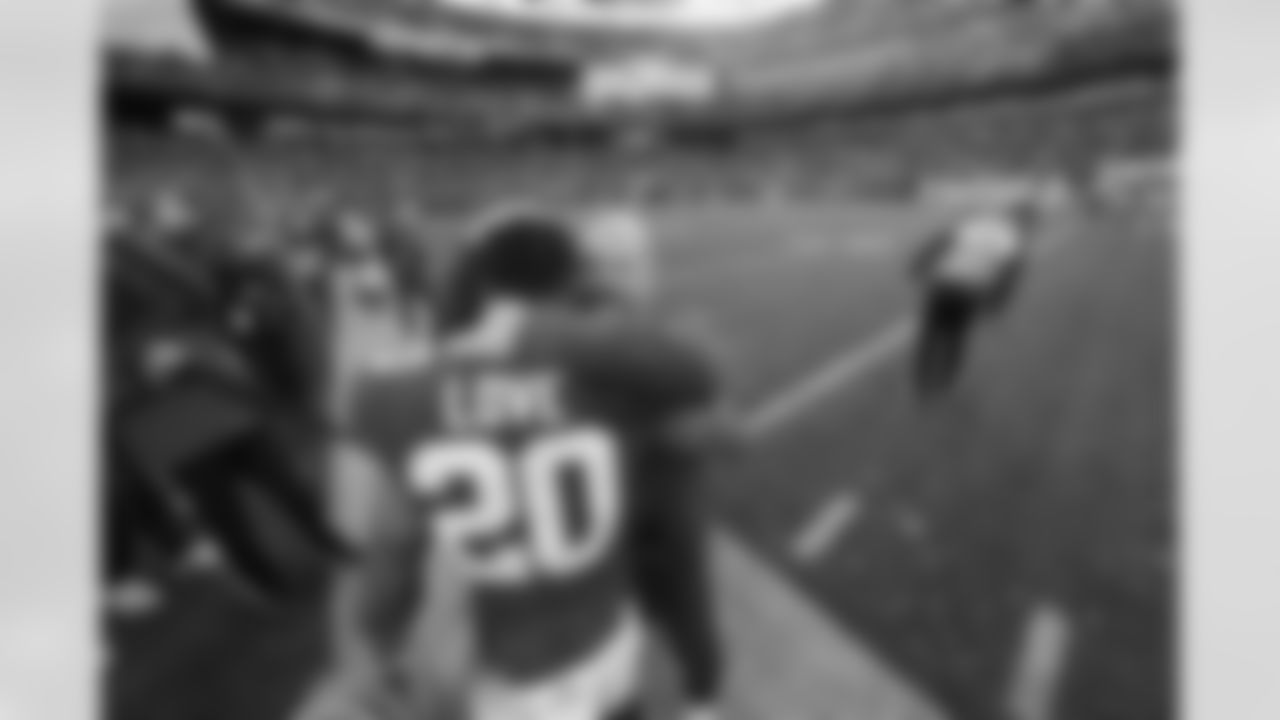
New York Giants head coach Brian Daboll hugs New York Giants safety Julian Love (20) during a NFL football game against the against the Indianapolis Colts, Sunday January 1, 2023 in East Rutherford, NJ (Evan Pinkus\New York Giants )
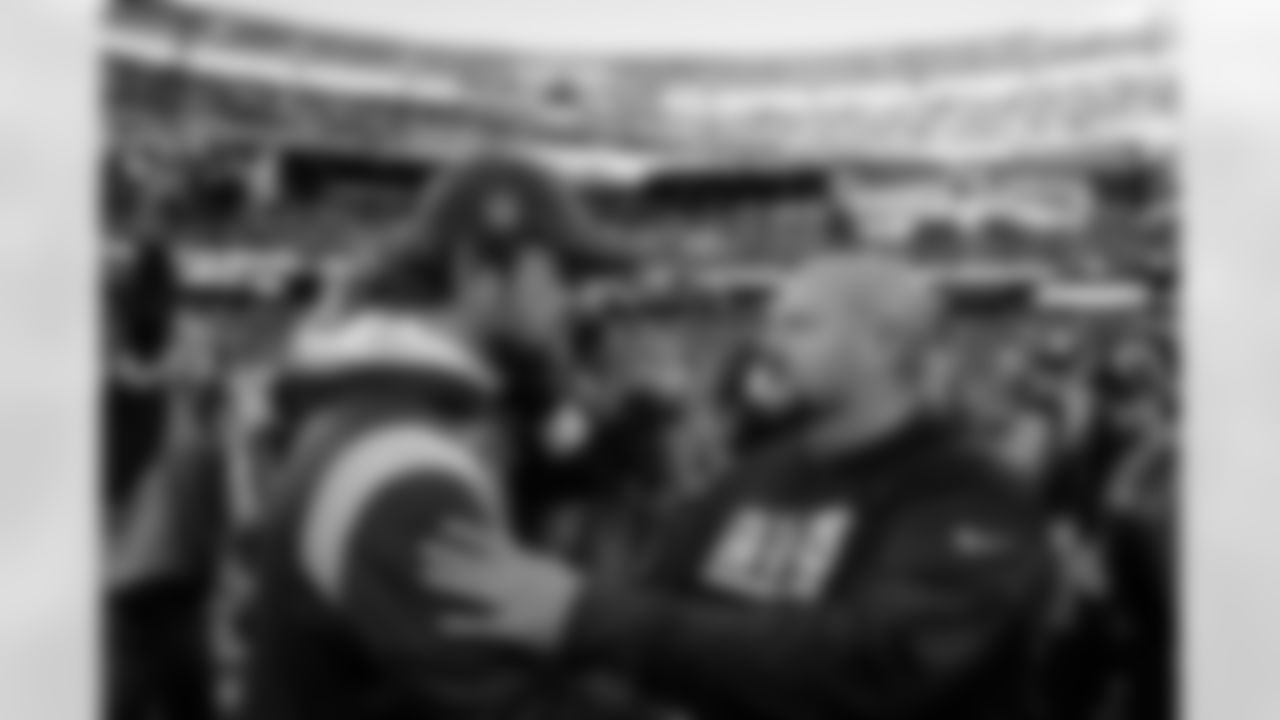
Brian Daboll Head Coach, Jeff Saturday
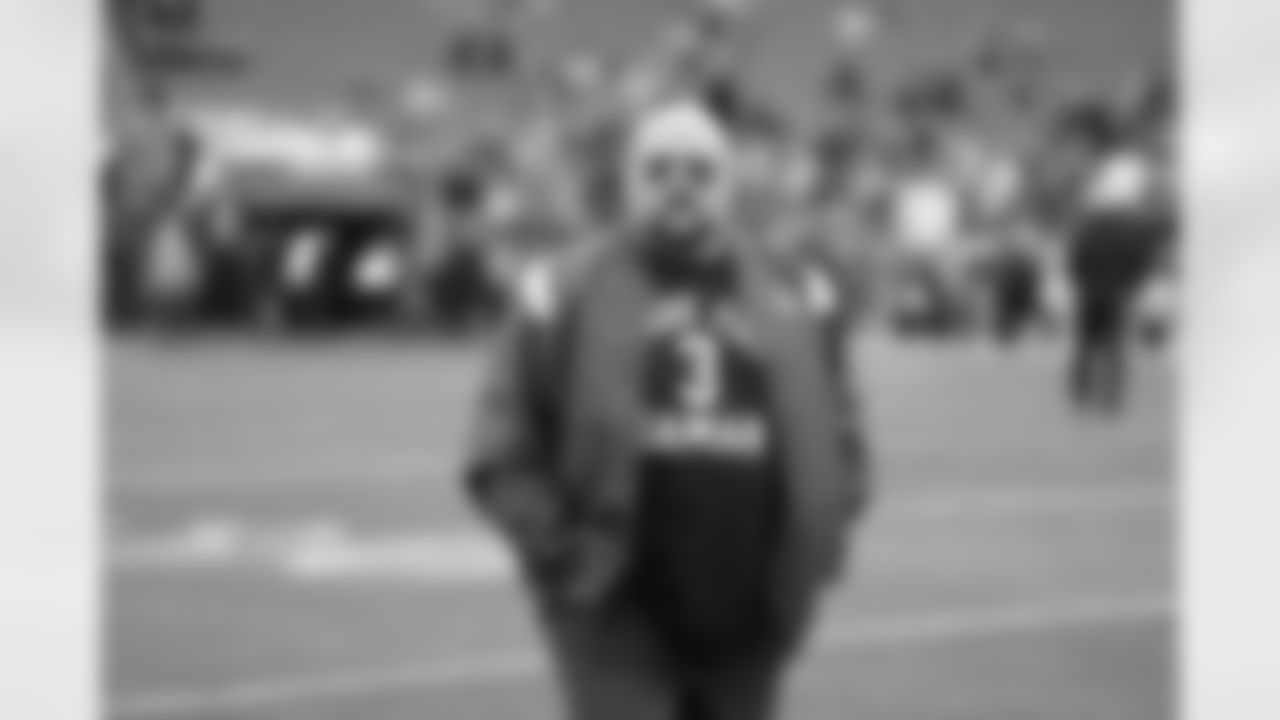
New York Giants head coach Brian Daboll before a NFL football game against the Philadelphia Eagles, Sunday January 8, 2023 in Philadelphia, Pennsylvania (Evan Pinkus\New York Giants )

New York Giants linebacker Jihad Ward (55) and safety Julian Love (20) dump Gatorade on New York Giants head coach Brian Daboll during a NFL football game against the against the Indianapolis Colts, Sunday January 1, 2023 in East Rutherford, NJ (Evan Pinkus\New York Giants )

New York Giants head coach Brian Daboll talks to his team in the locker room following a NFL football game against the Indianapolis Colts, Sunday January 1, 2023 in East Rutherford, NJ (Evan Pinkus\New York Giants )
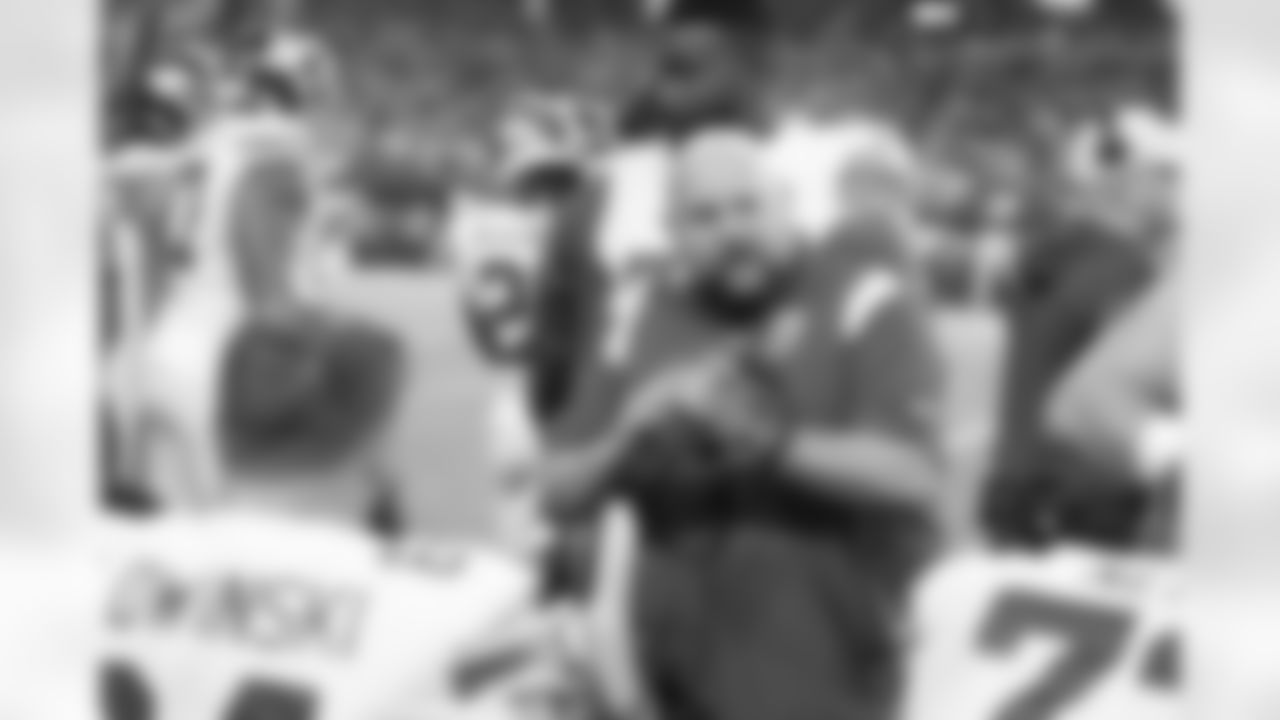
New York Giants head coach Brian Daboll during a NFL wild card playoff game against the Minnesota Vikings, Sunday January 15, 2023 in Minneapolis, Minnesota (Evan Pinkus\New York Giants )
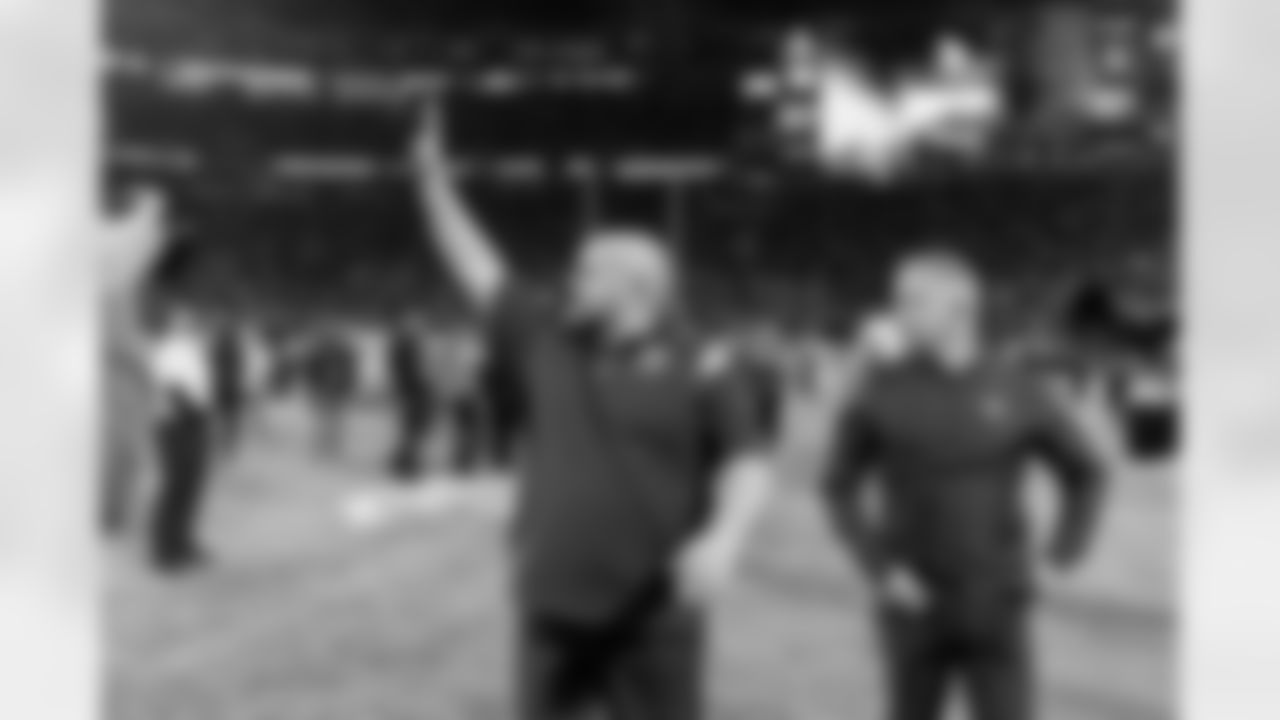
Brian Daboll Head Coach
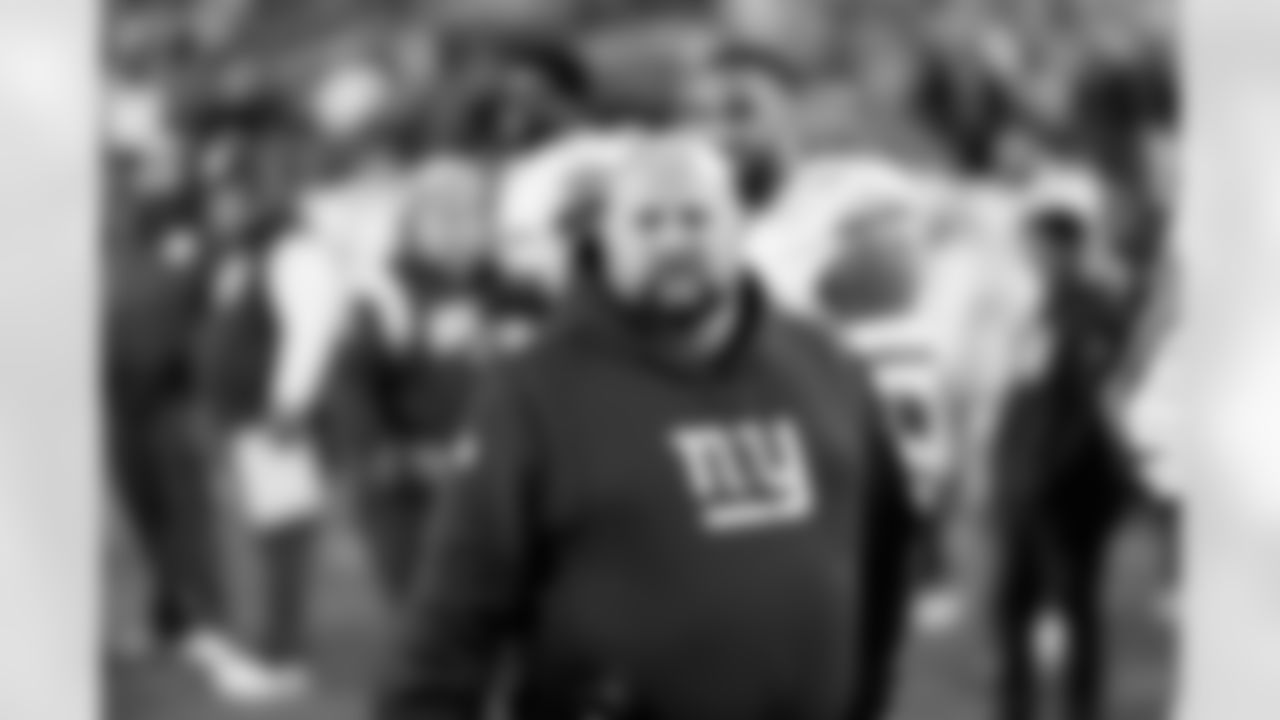
Brian Daboll Head Coach
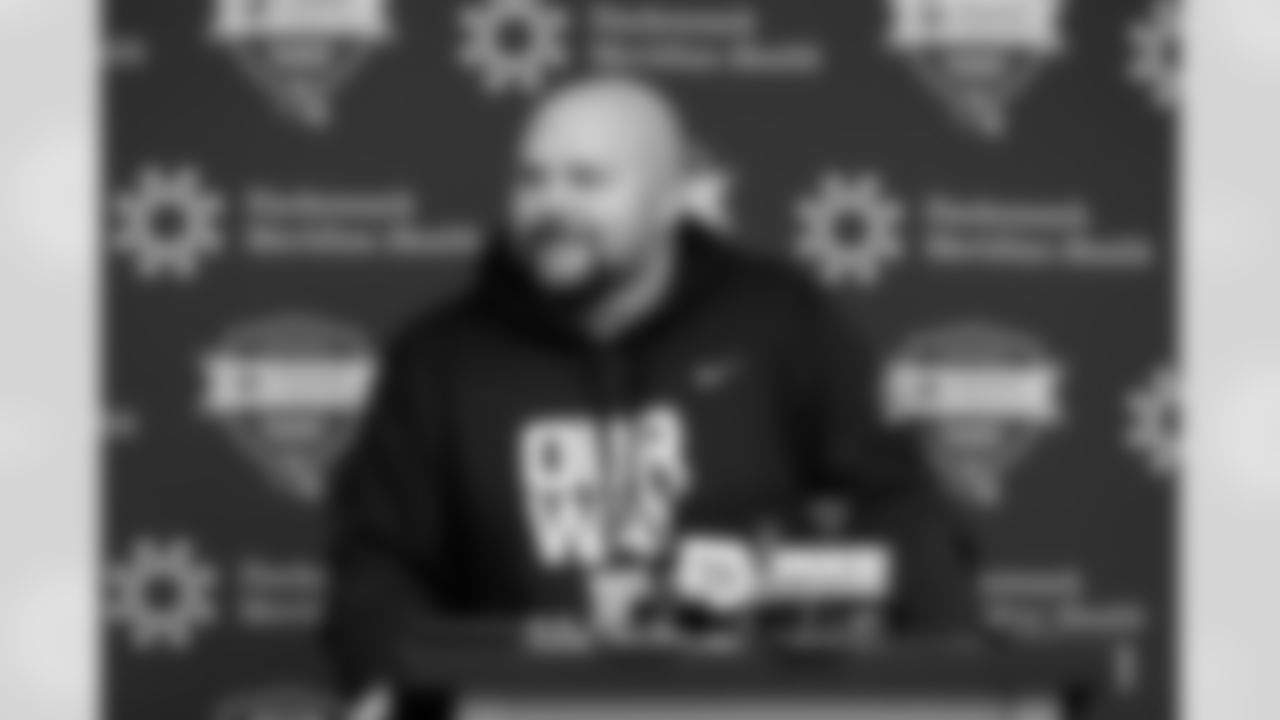

New York Giants head coach Brian Daboll before a NFL Divisional Playoff game against the Philadelphia Eagles, Saturday January 21, 2023 in Philadelphia, Pennsylvania (Evan Pinkus\New York Giants )

Brian Daboll Head Coach
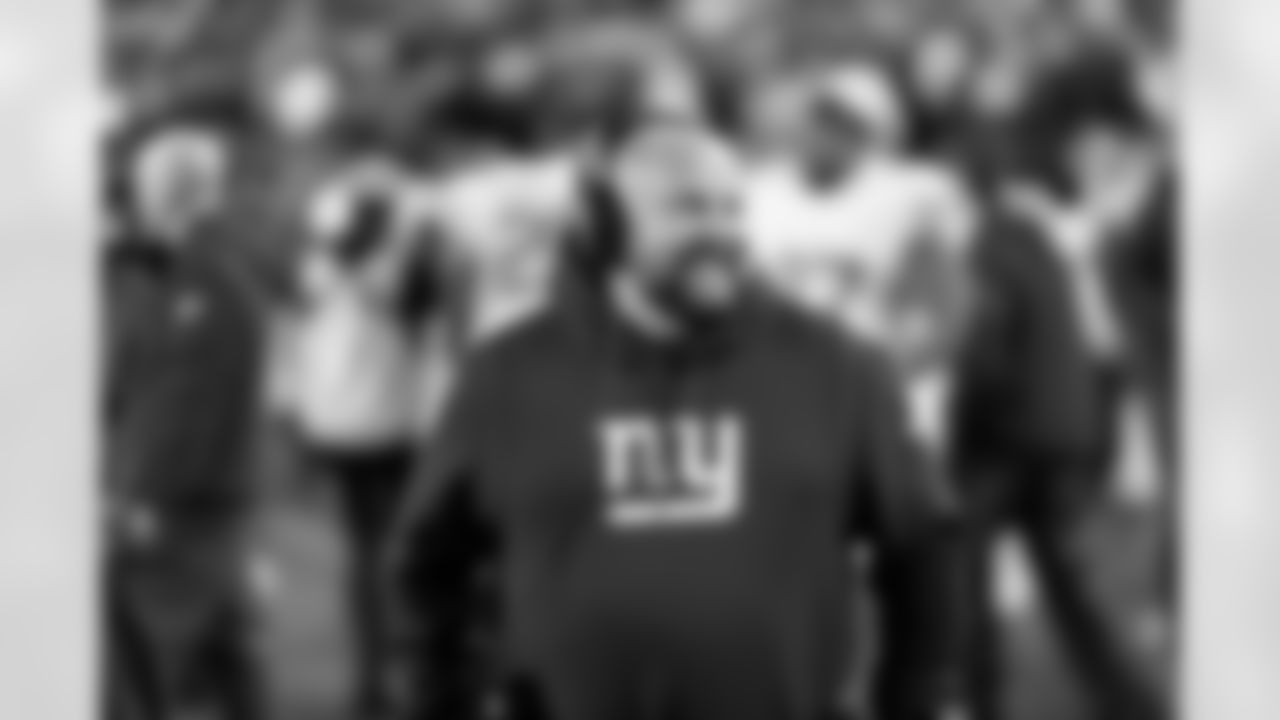
Brian Daboll Head Coach
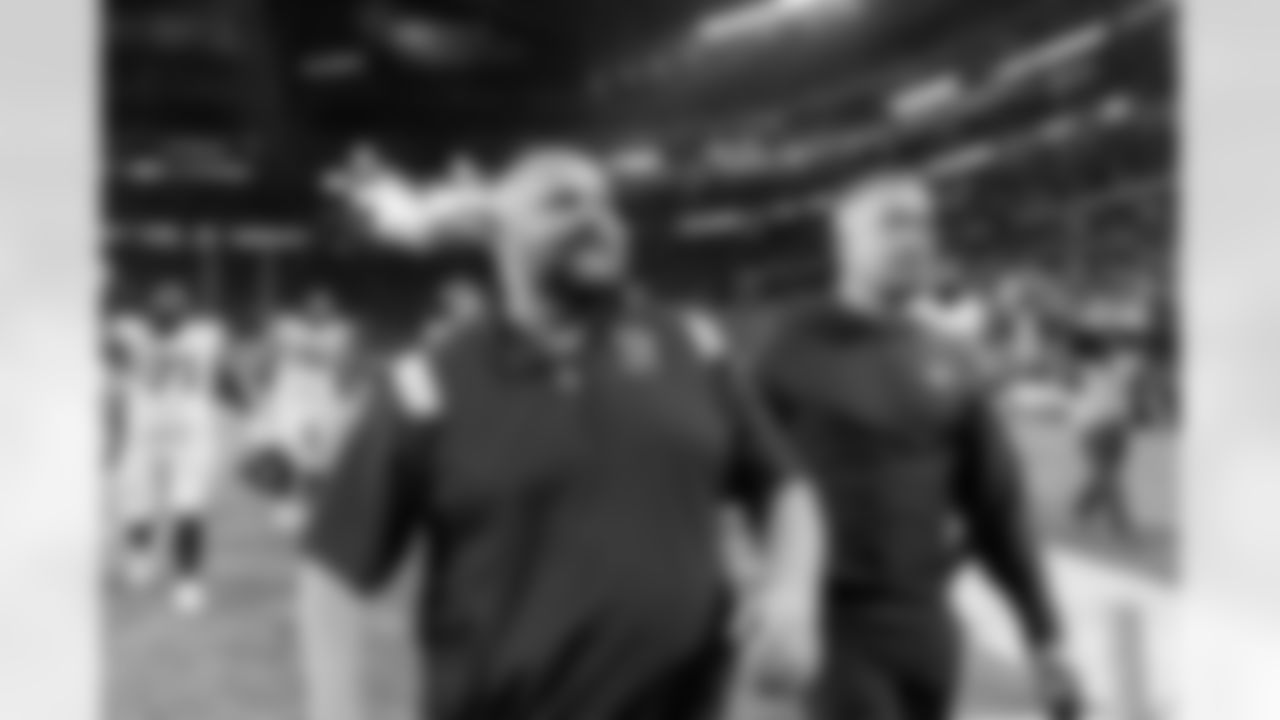
Brian Daboll Head Coach, Jerry Meade Vice President of Security

Brian Daboll Head Coach
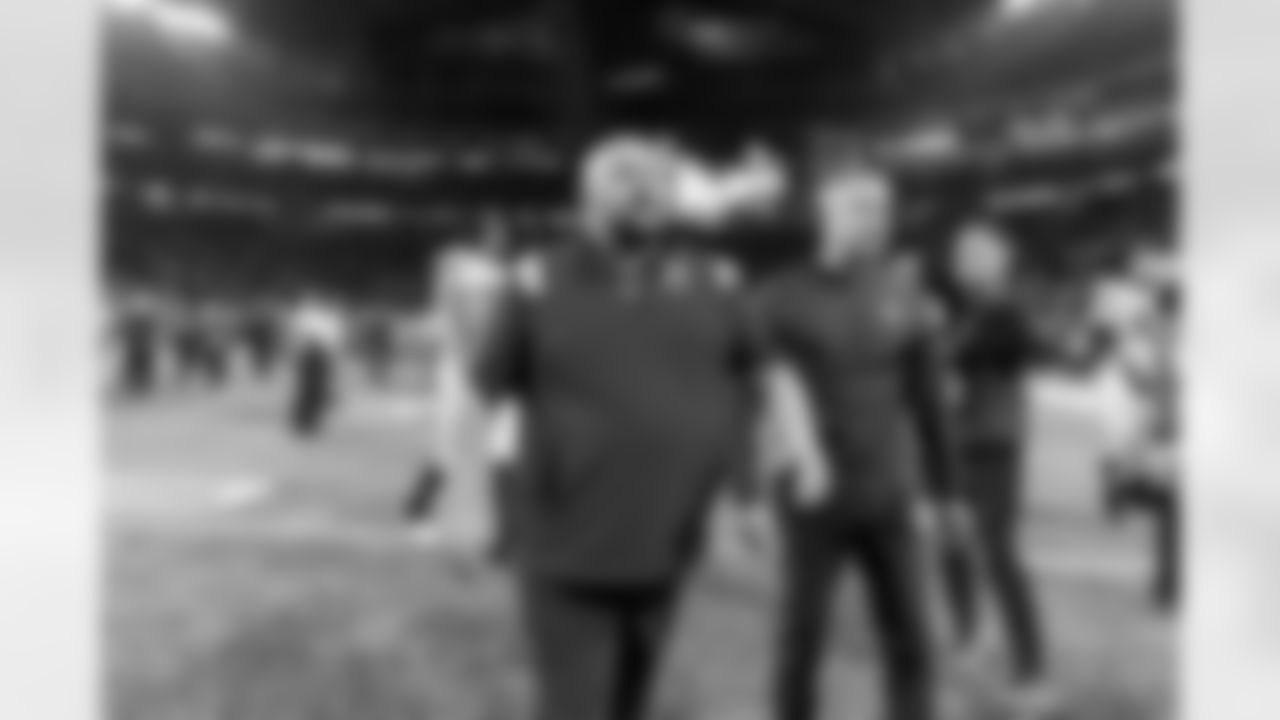
Brian Daboll Head Coach

New York Giants head coach Brian Daboll and Daniel Jones hug following a NFL wild card playoff game against the Minnesota Vikings, Sunday January 15, 2023 in Minneapolis, Minnesota (Evan Pinkus\New York Giants )

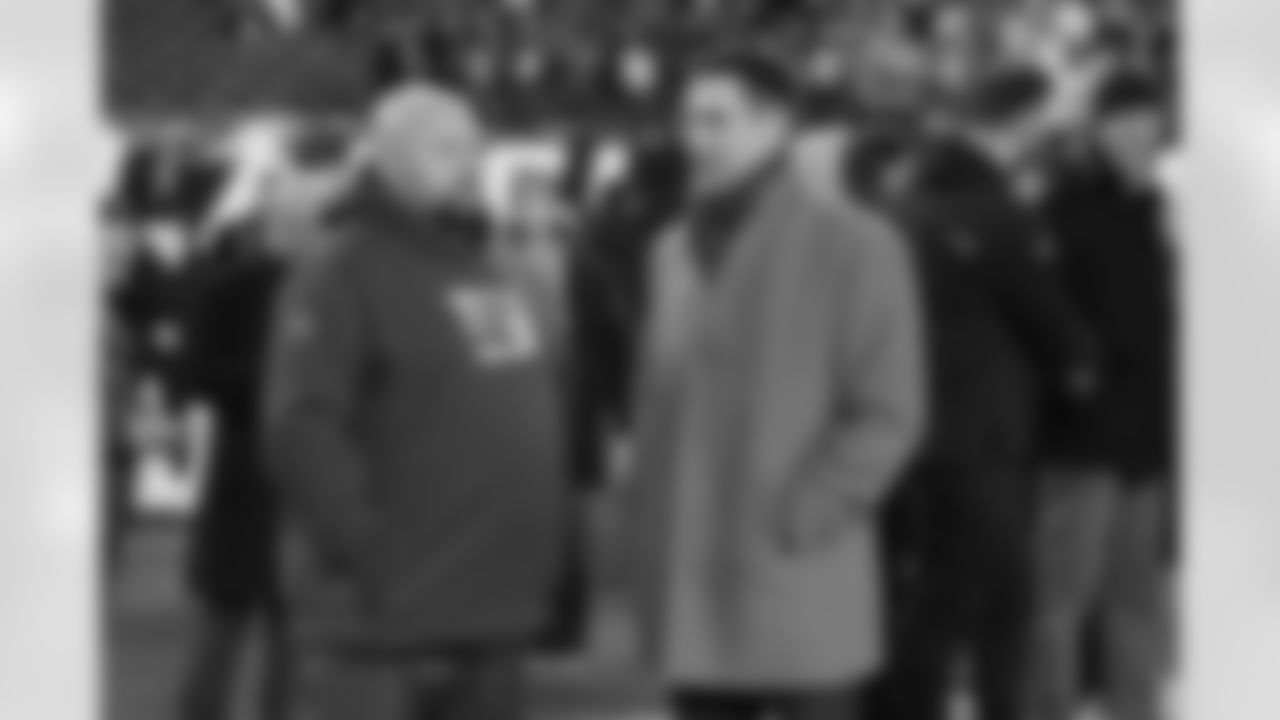
New York Giants head coach Brian Daboll talks with general manager Joe Schoen before a NFL Divisional Playoff game against the Philadelphia Eagles, Saturday January 21, 2023 in Philadelphia, Pennsylvania (Evan Pinkus\New York Giants )

Don Martindale Defensive Coordinator, Brian Daboll Head Coach
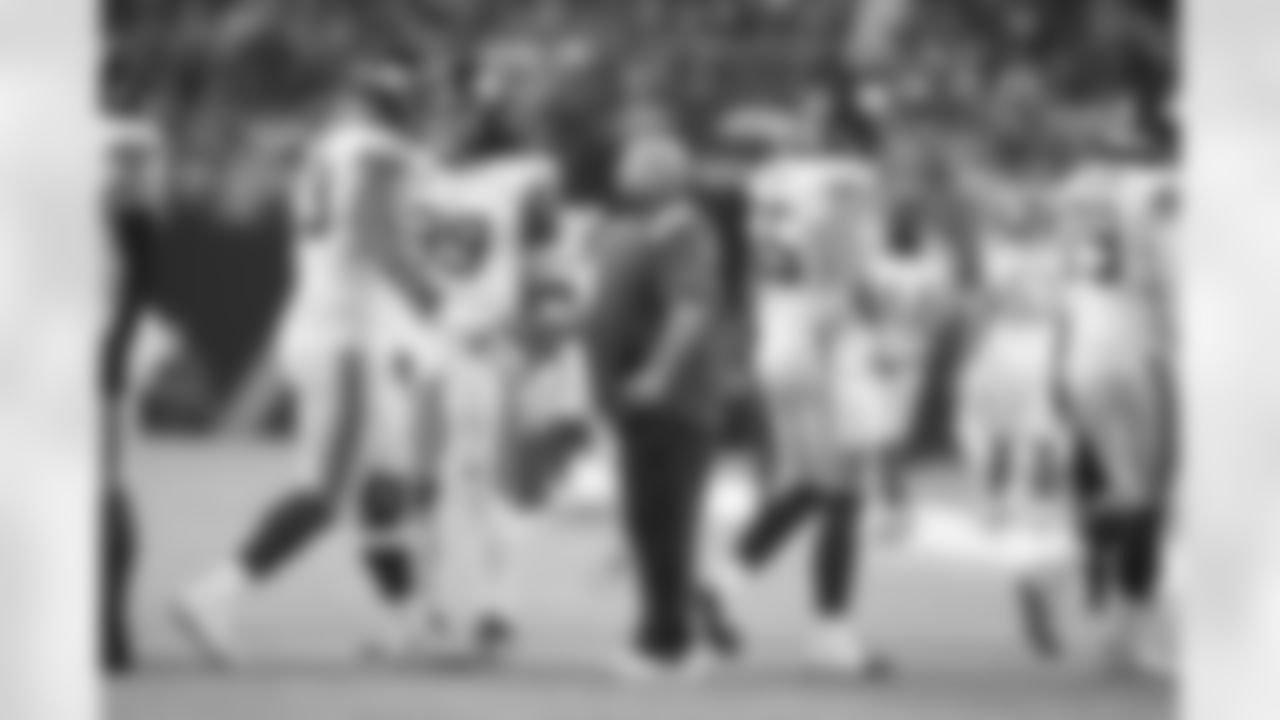
New York Giants head coach Brian Daboll during a NFL wild card playoff game against the Minnesota Vikings, Sunday January 15, 2023 in Minneapolis, Minnesota (Evan Pinkus\New York Giants )

New York Giants head coach Brian Daboll during a NFL wild card playoff game against the Minnesota Vikings, Sunday January 15, 2023 in Minneapolis, Minnesota (Evan Pinkus\New York Giants )
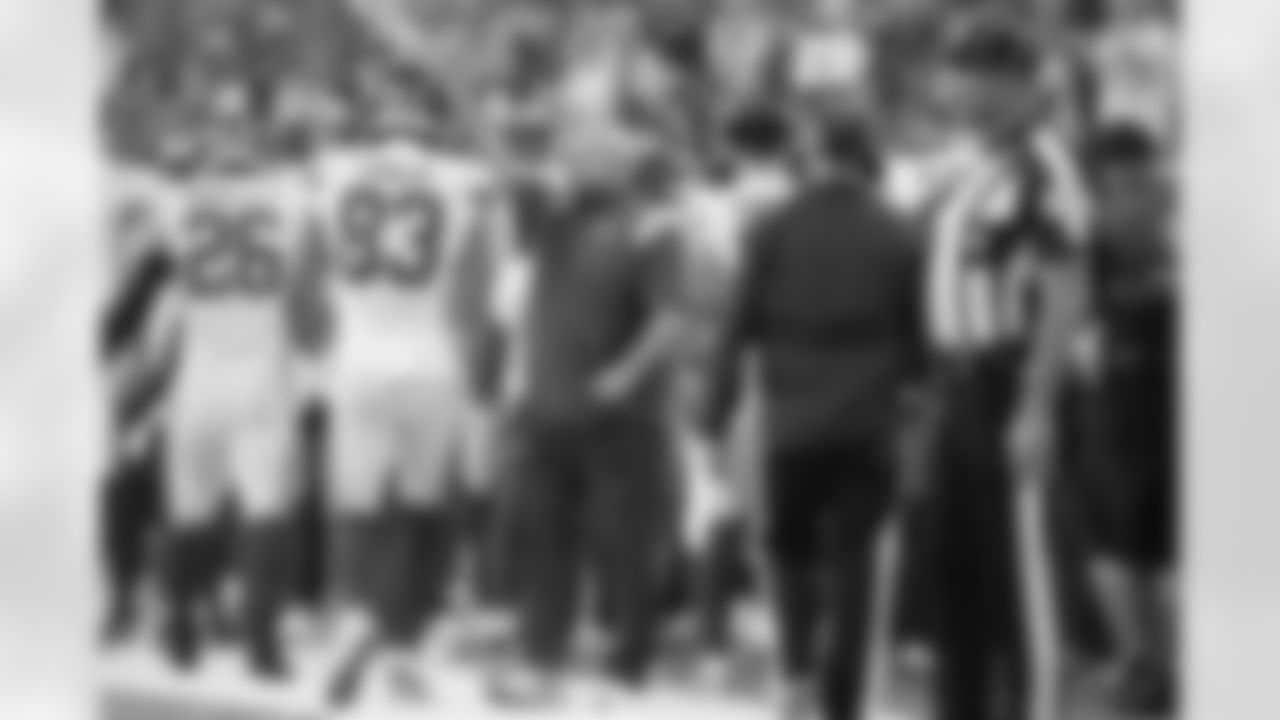
New York Giants head coach Brian Daboll during a NFL wild card playoff game against the Minnesota Vikings, Sunday January 15, 2023 in Minneapolis, Minnesota (Evan Pinkus\New York Giants )
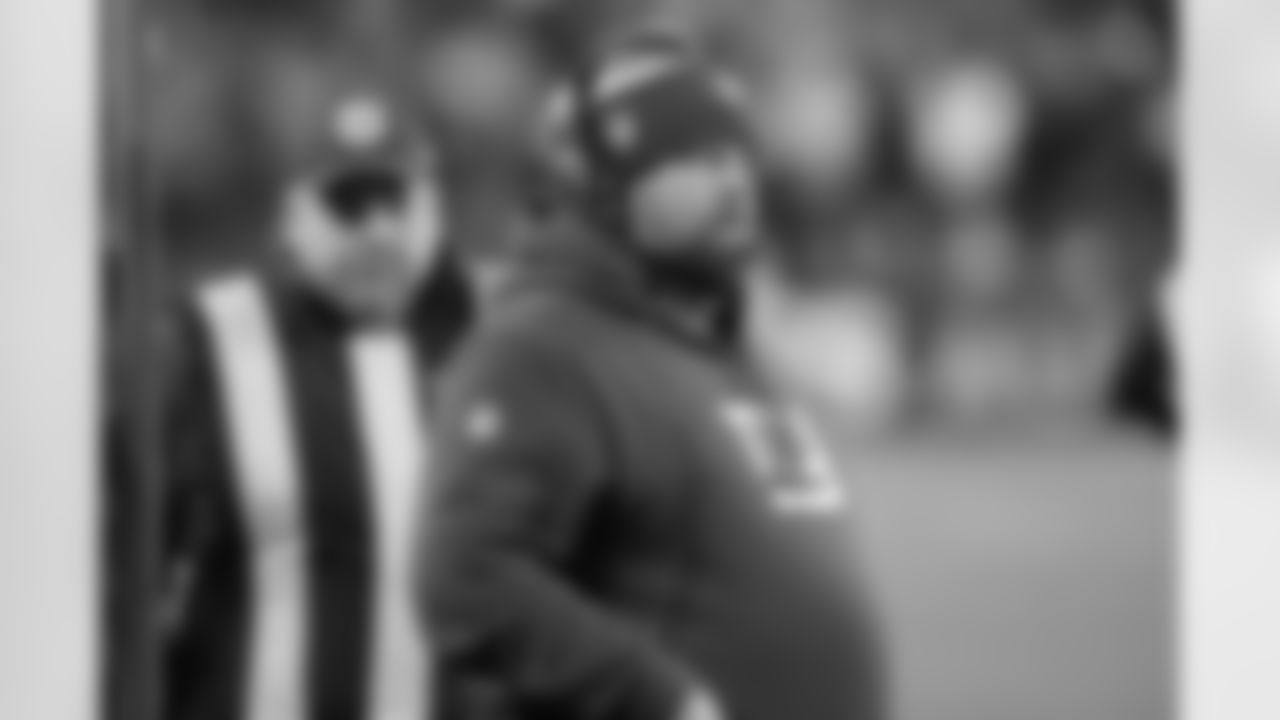
New York Giants head coach Brian Daboll during a NFL Divisional Playoff game against the Philadelphia Eagles, Saturday January 21, 2023 in Philadelphia, Pennsylvania (Evan Pinkus\New York Giants )
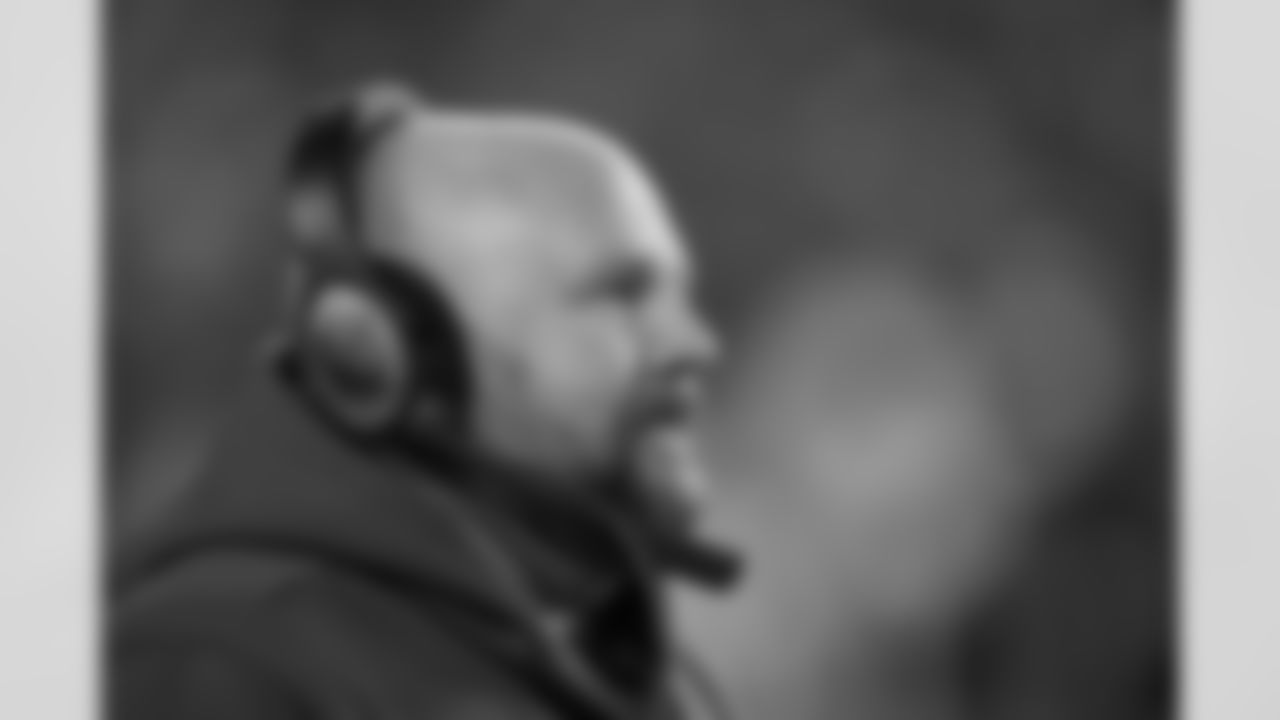
New York Giants head coach Brian Daboll during a NFL Divisional Playoff game against the Philadelphia Eagles, Saturday January 21, 2023 in Philadelphia, Pennsylvania (Evan Pinkus\New York Giants )















